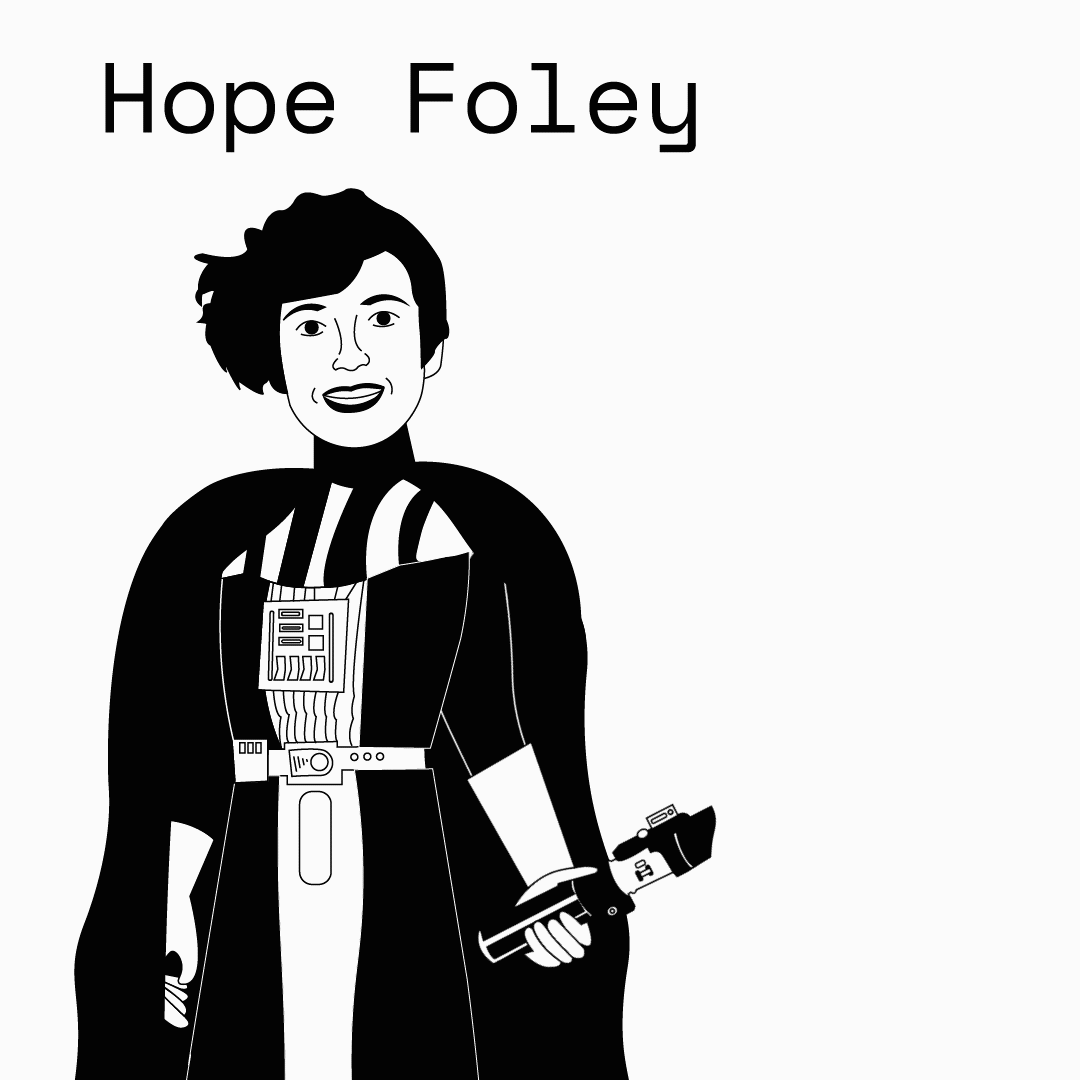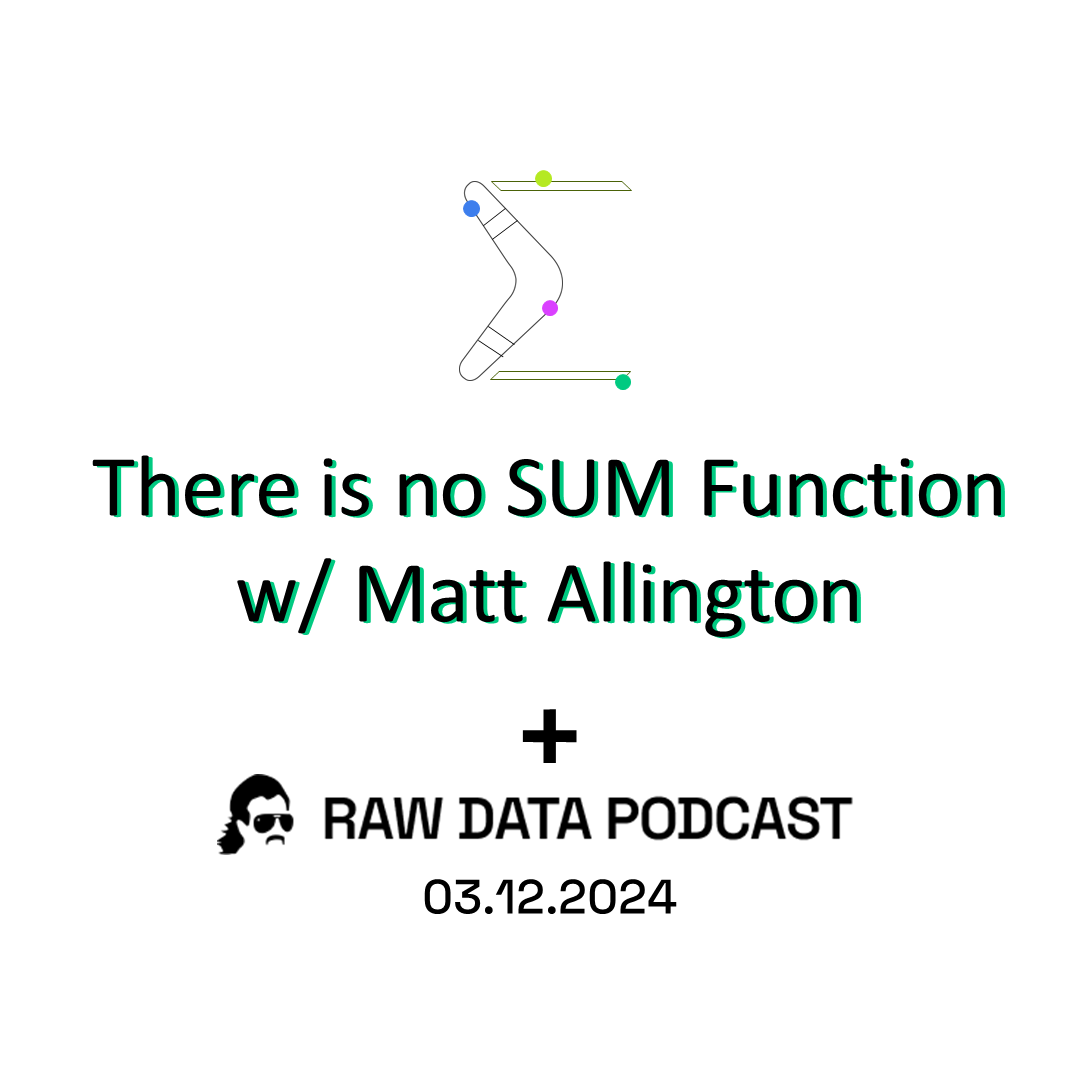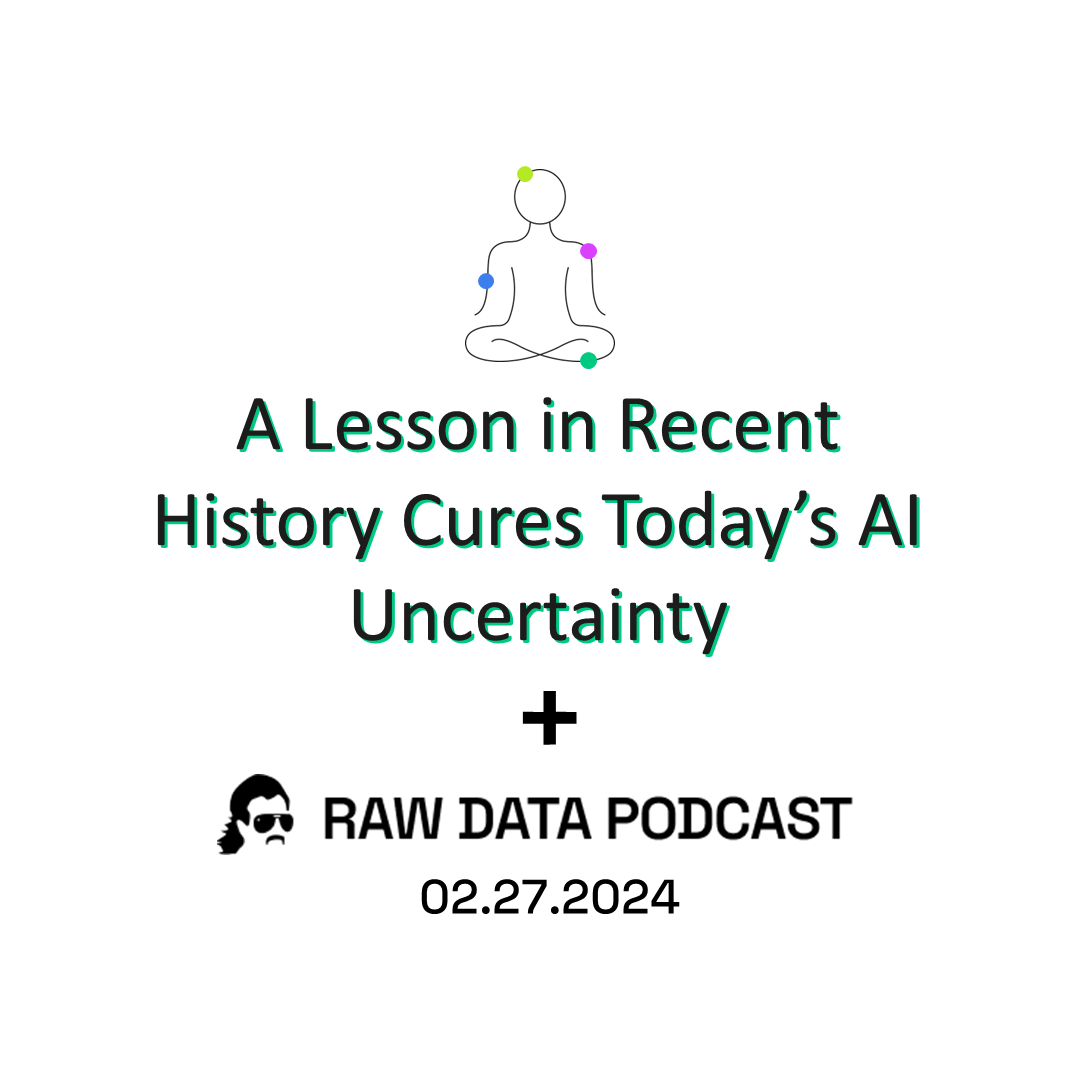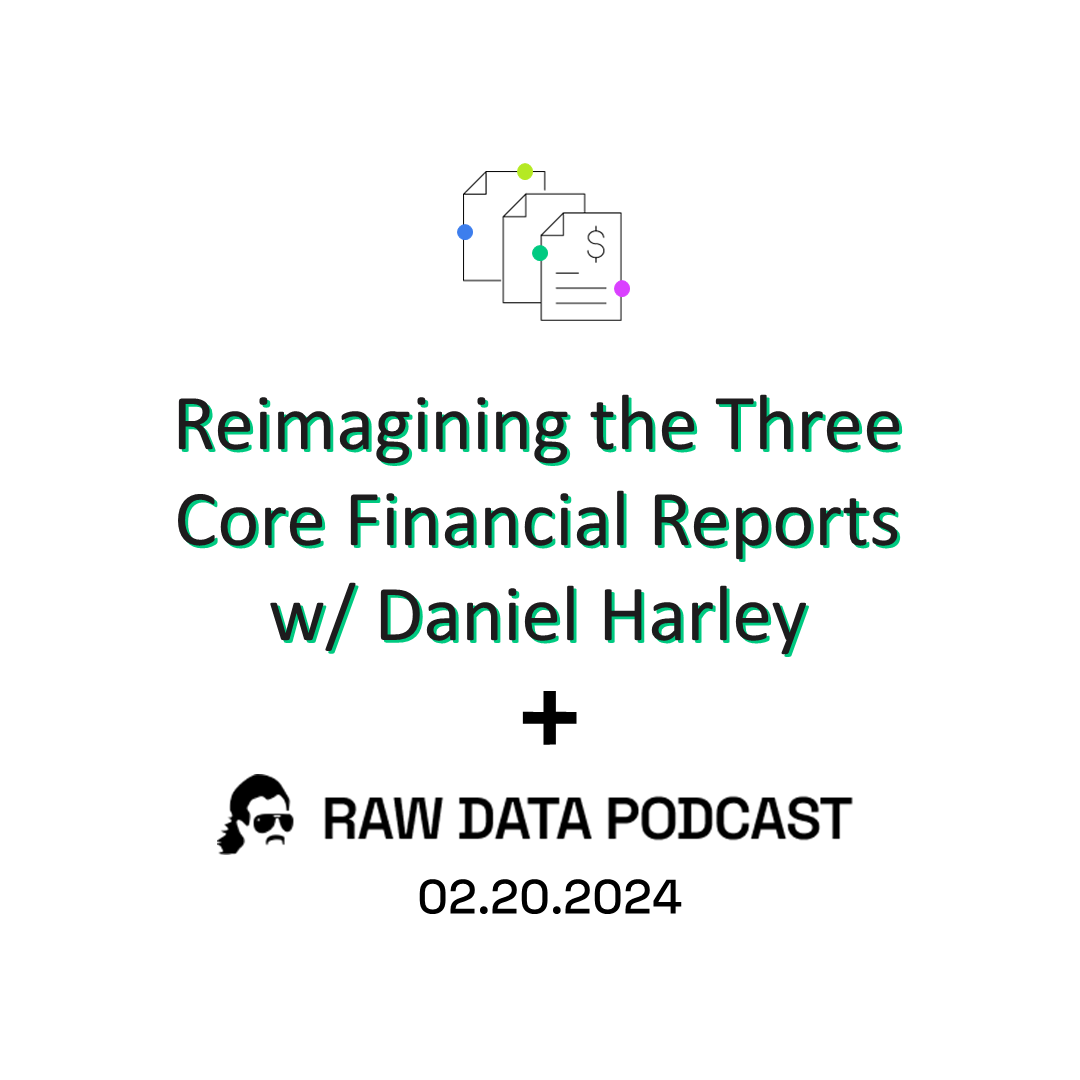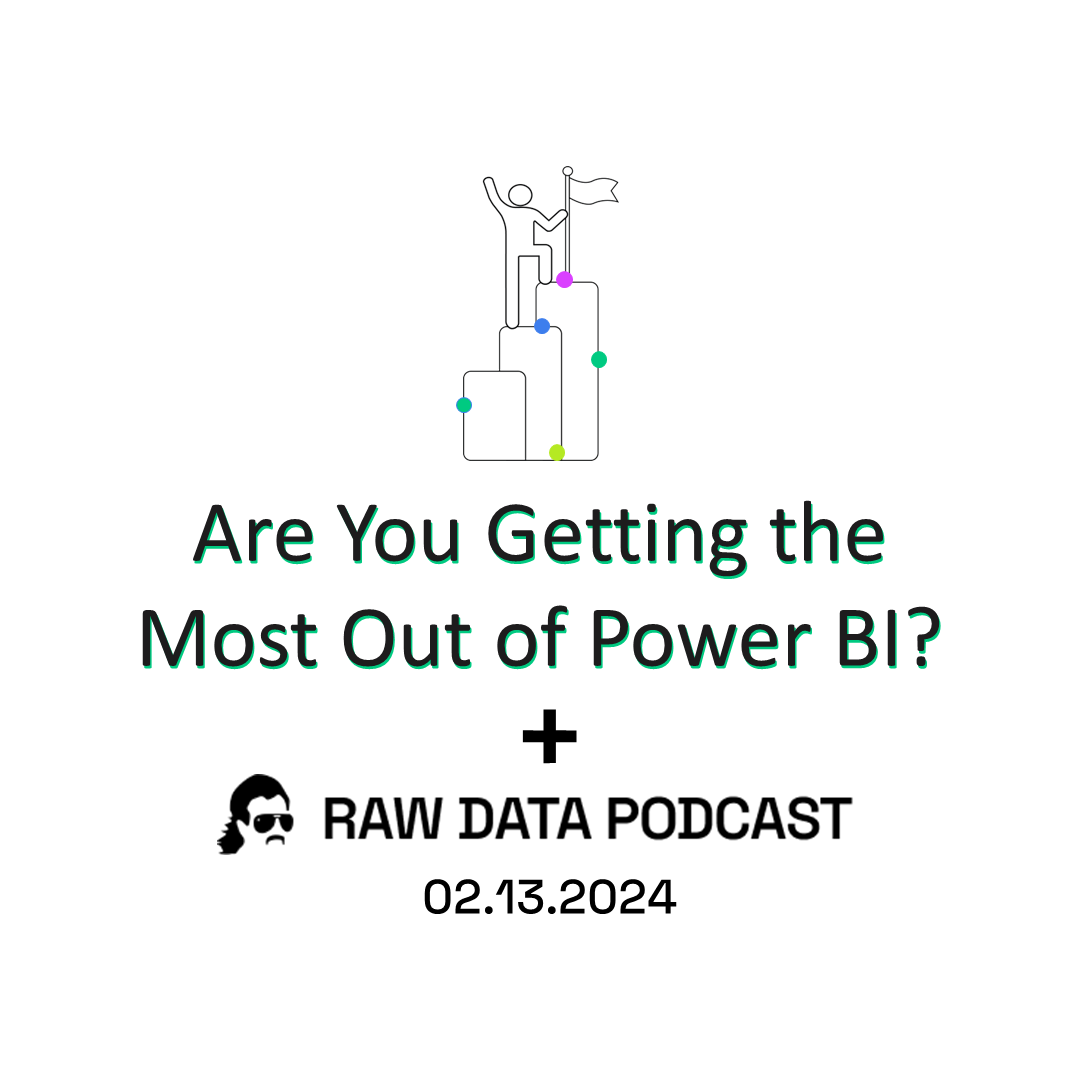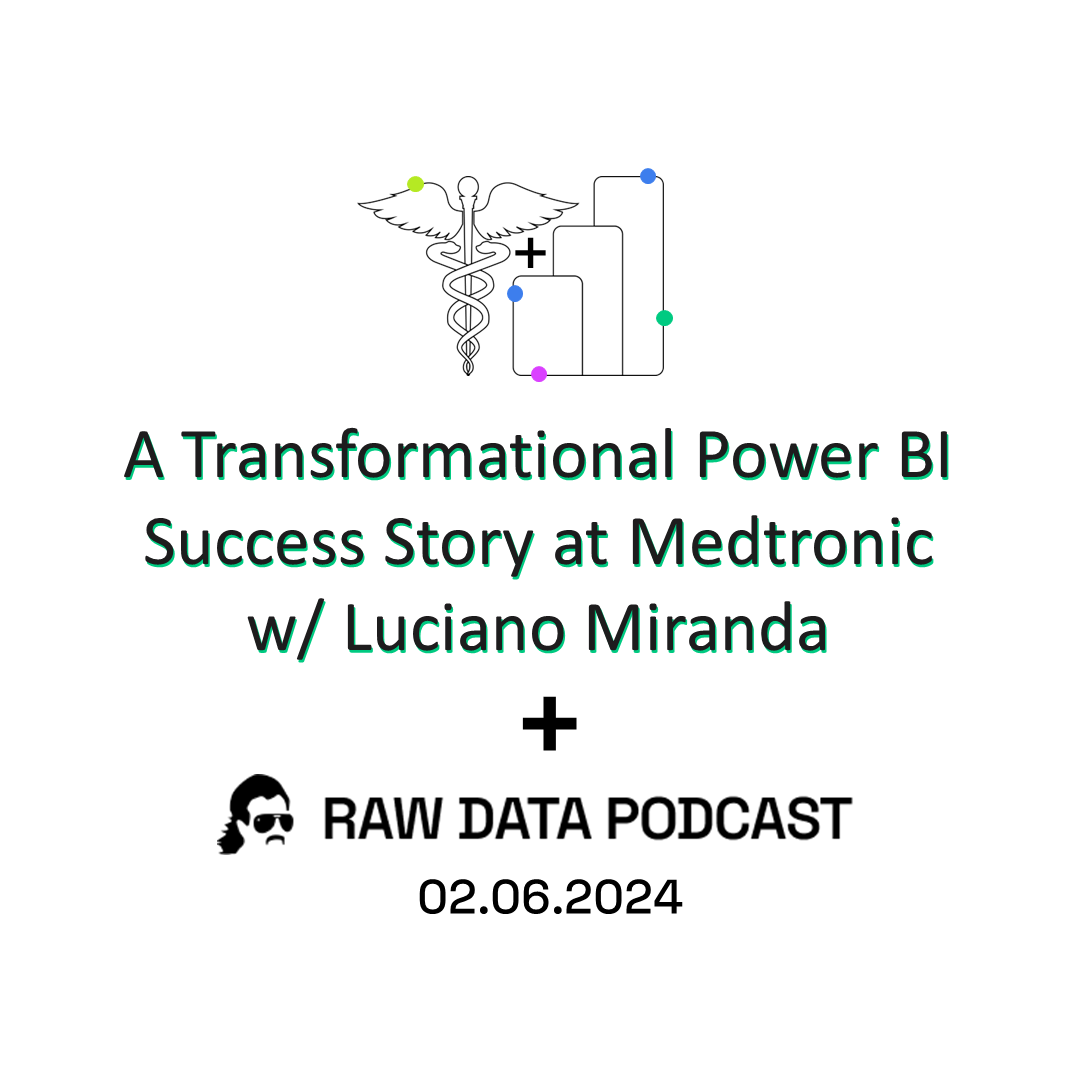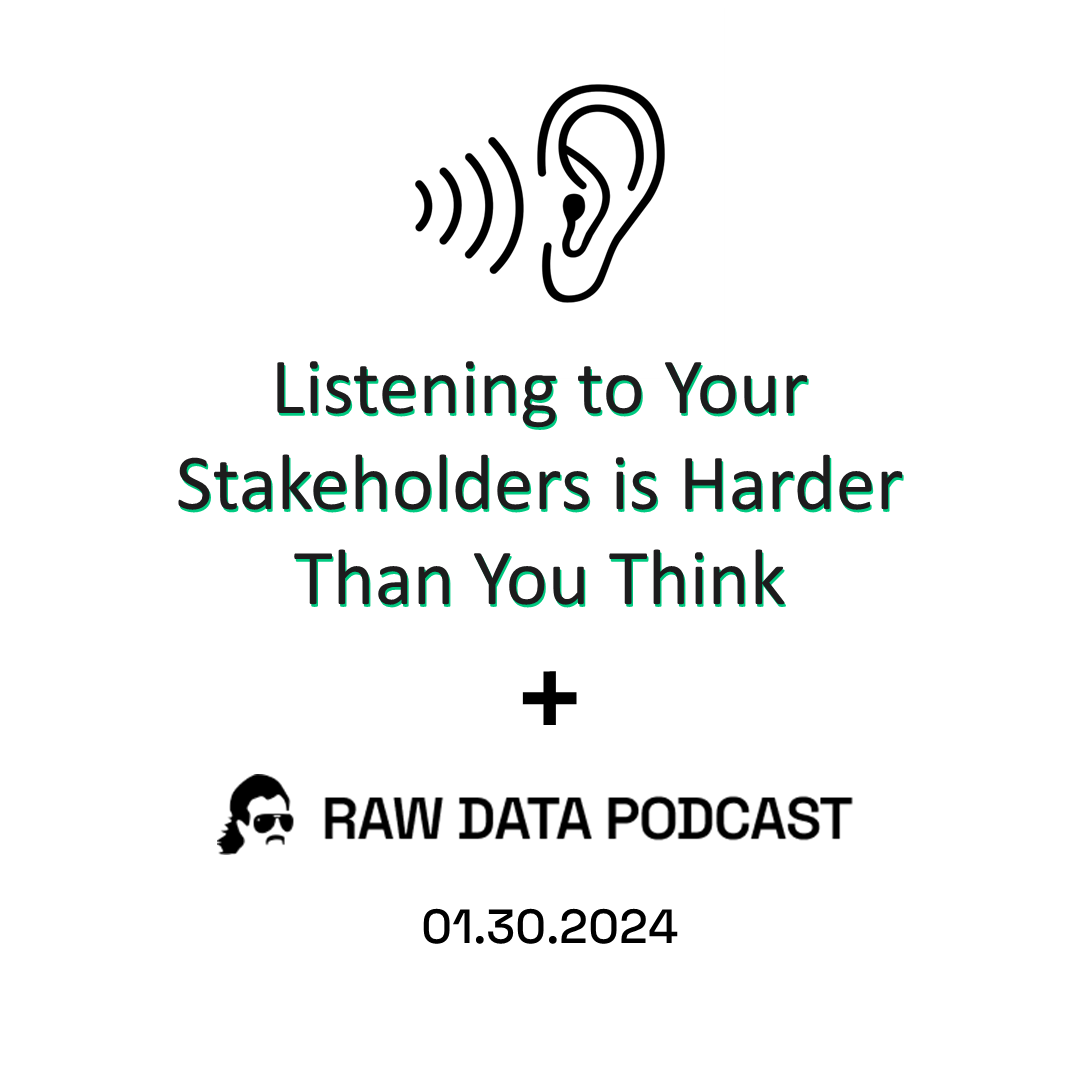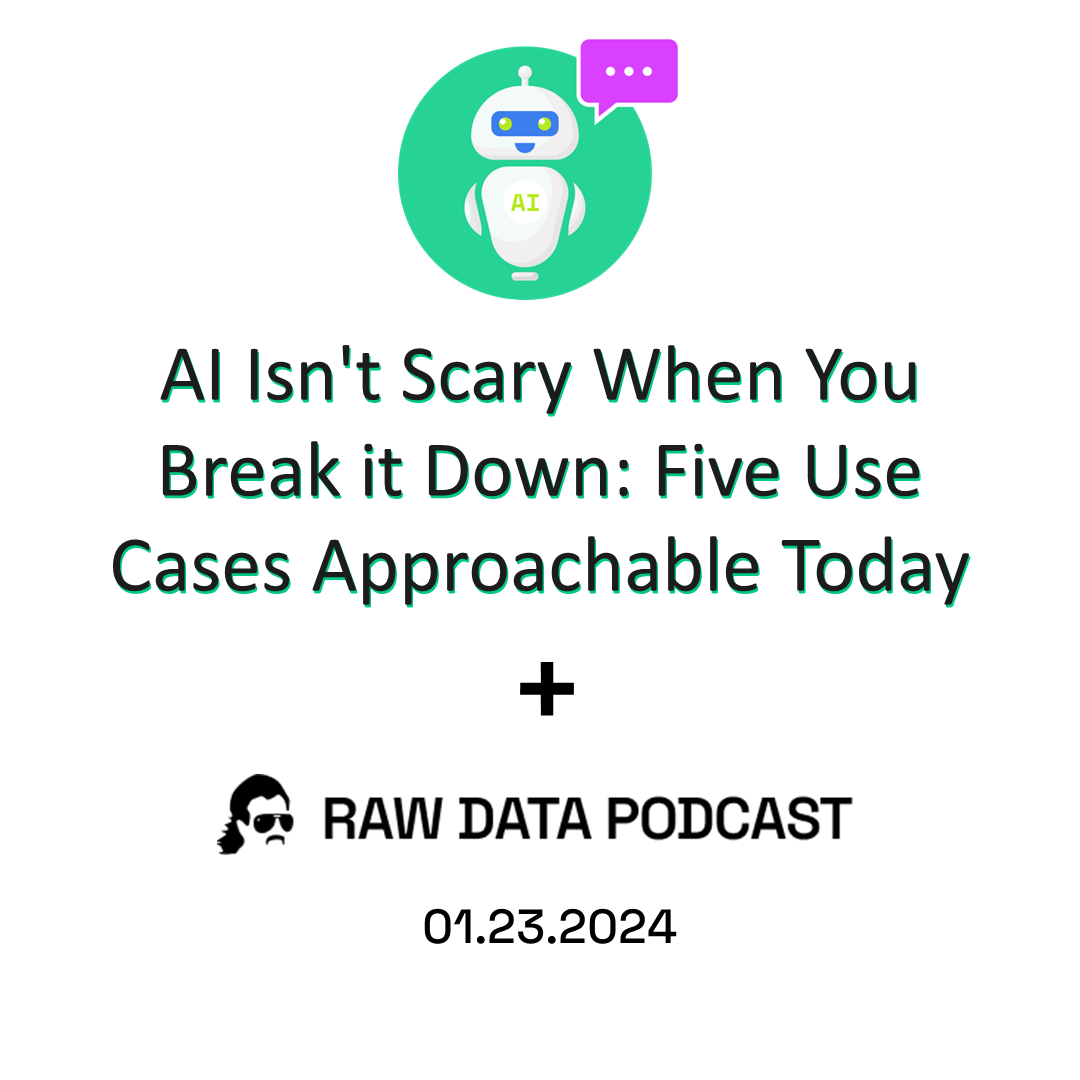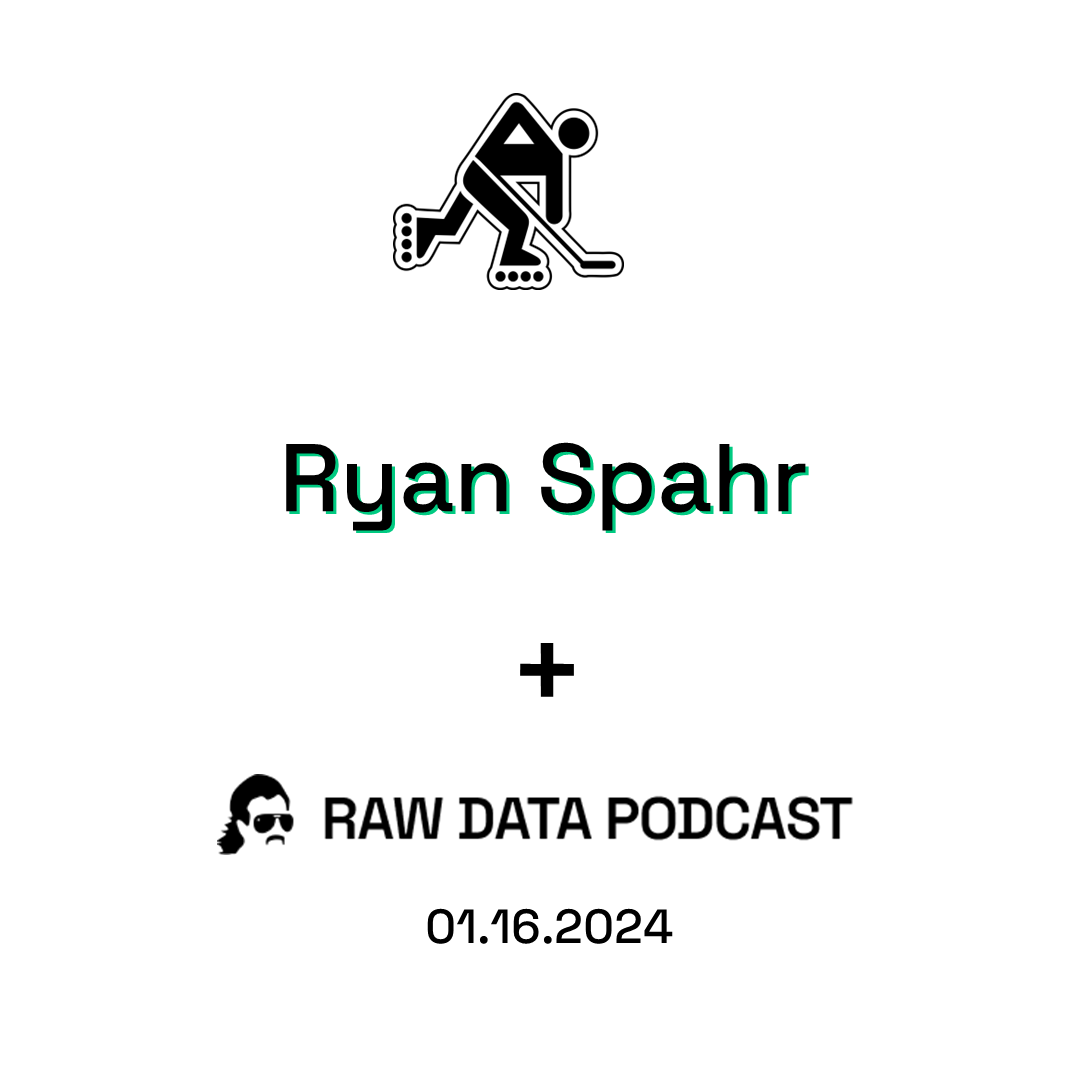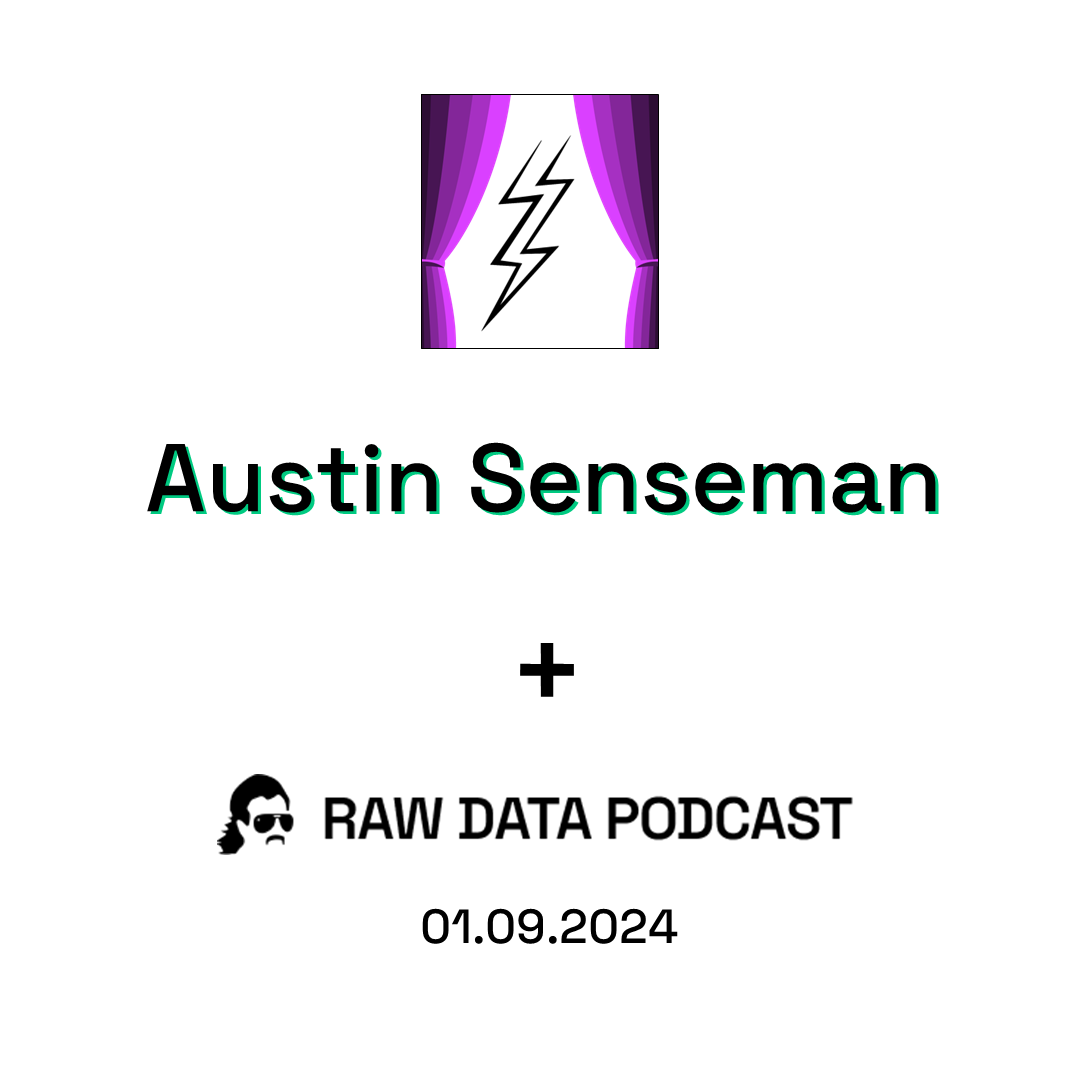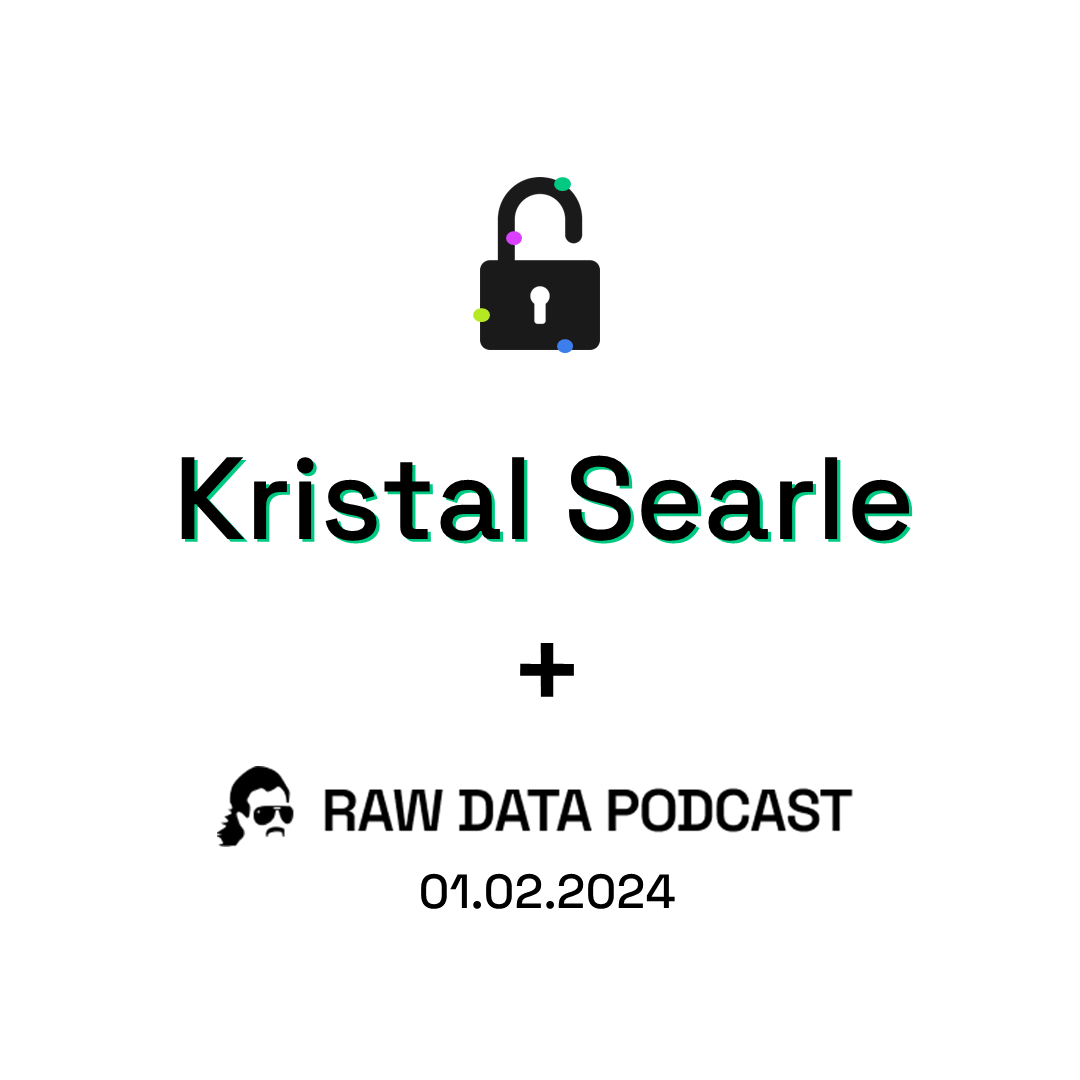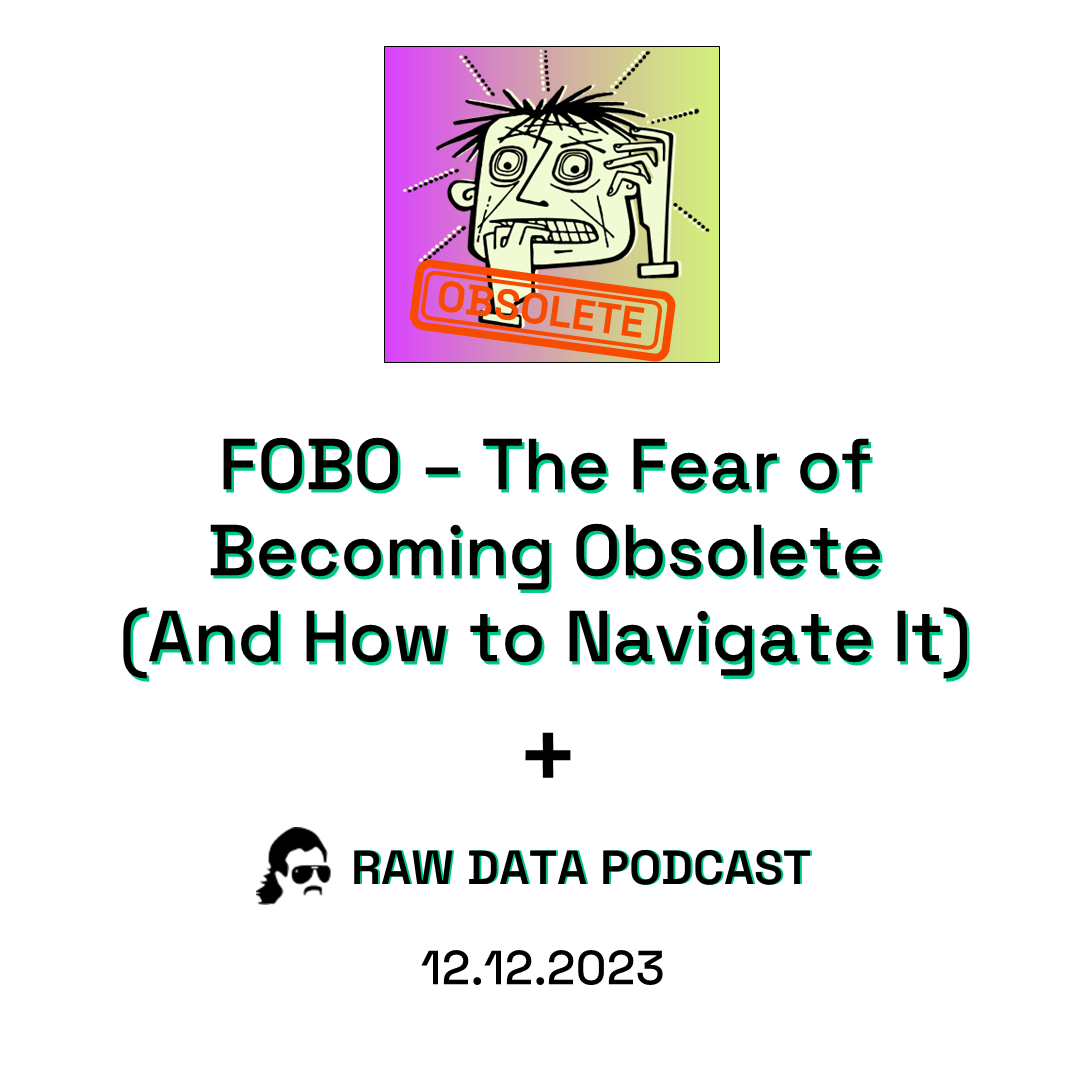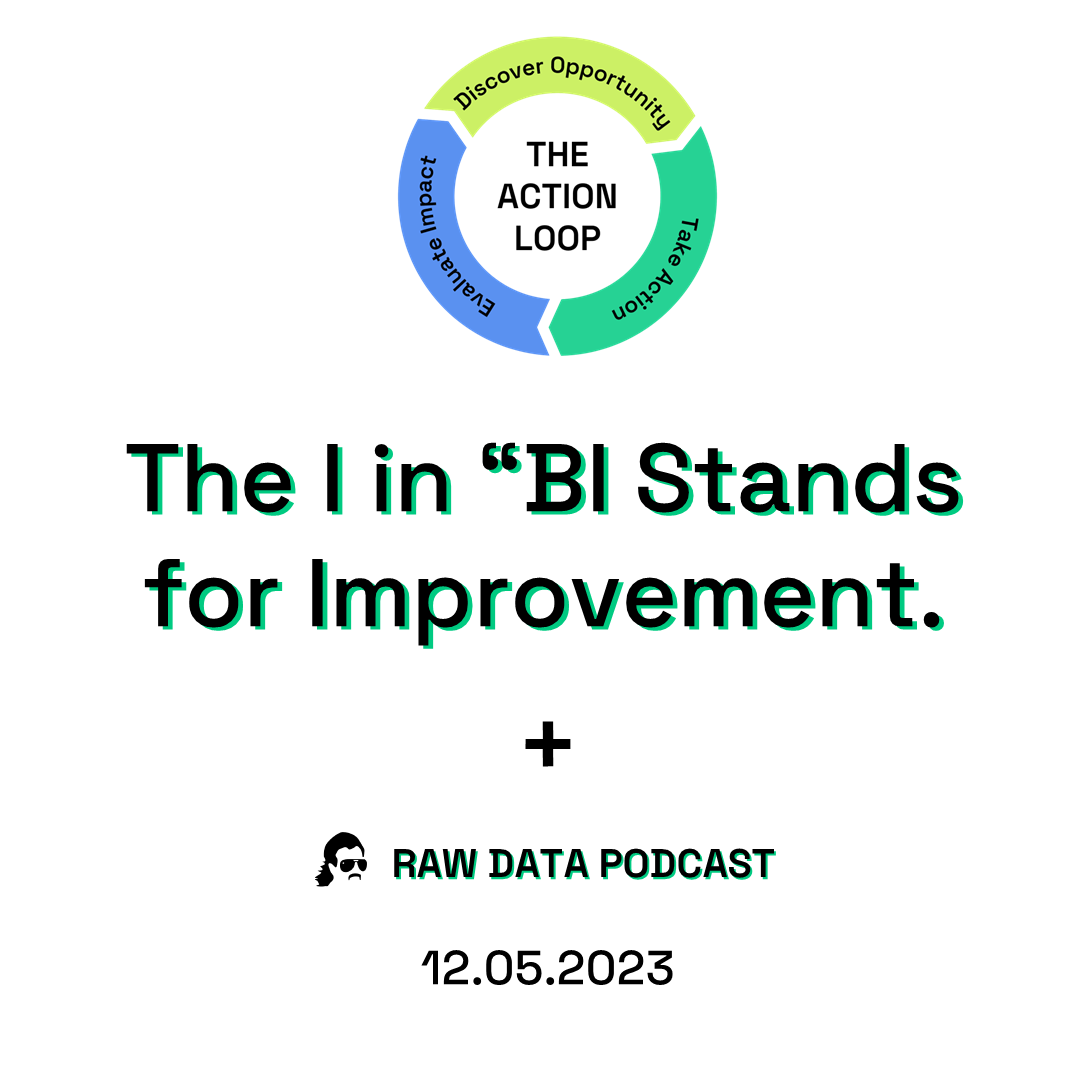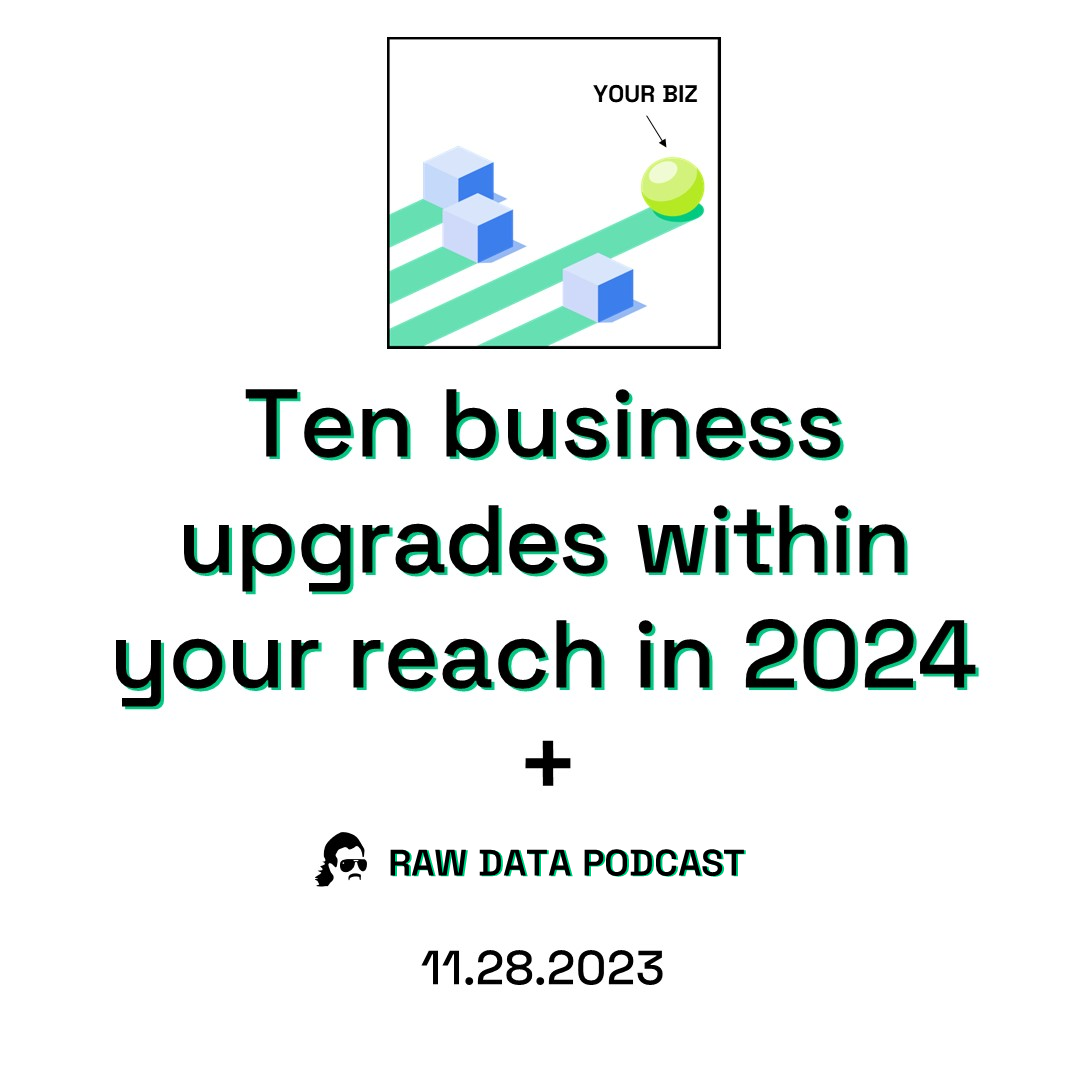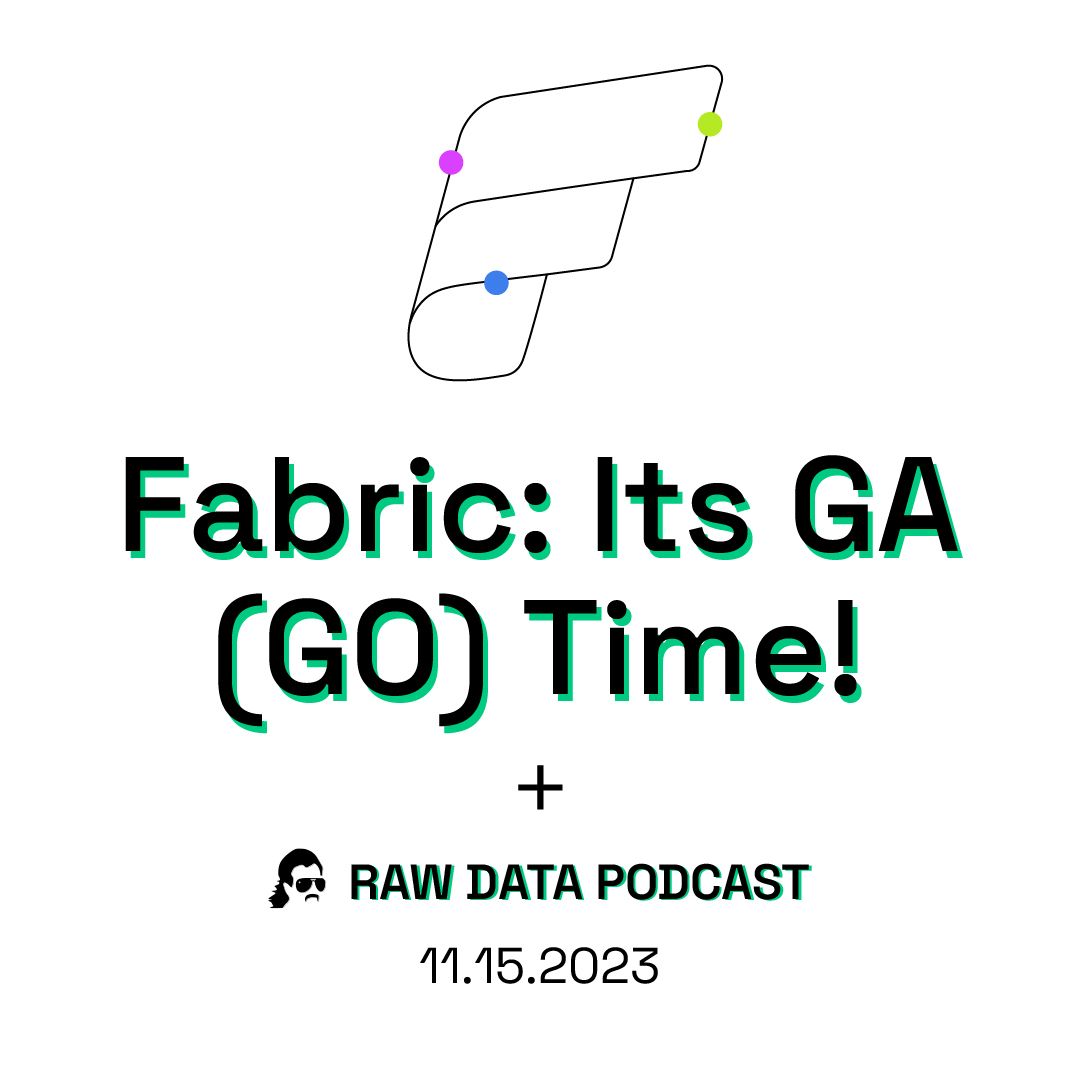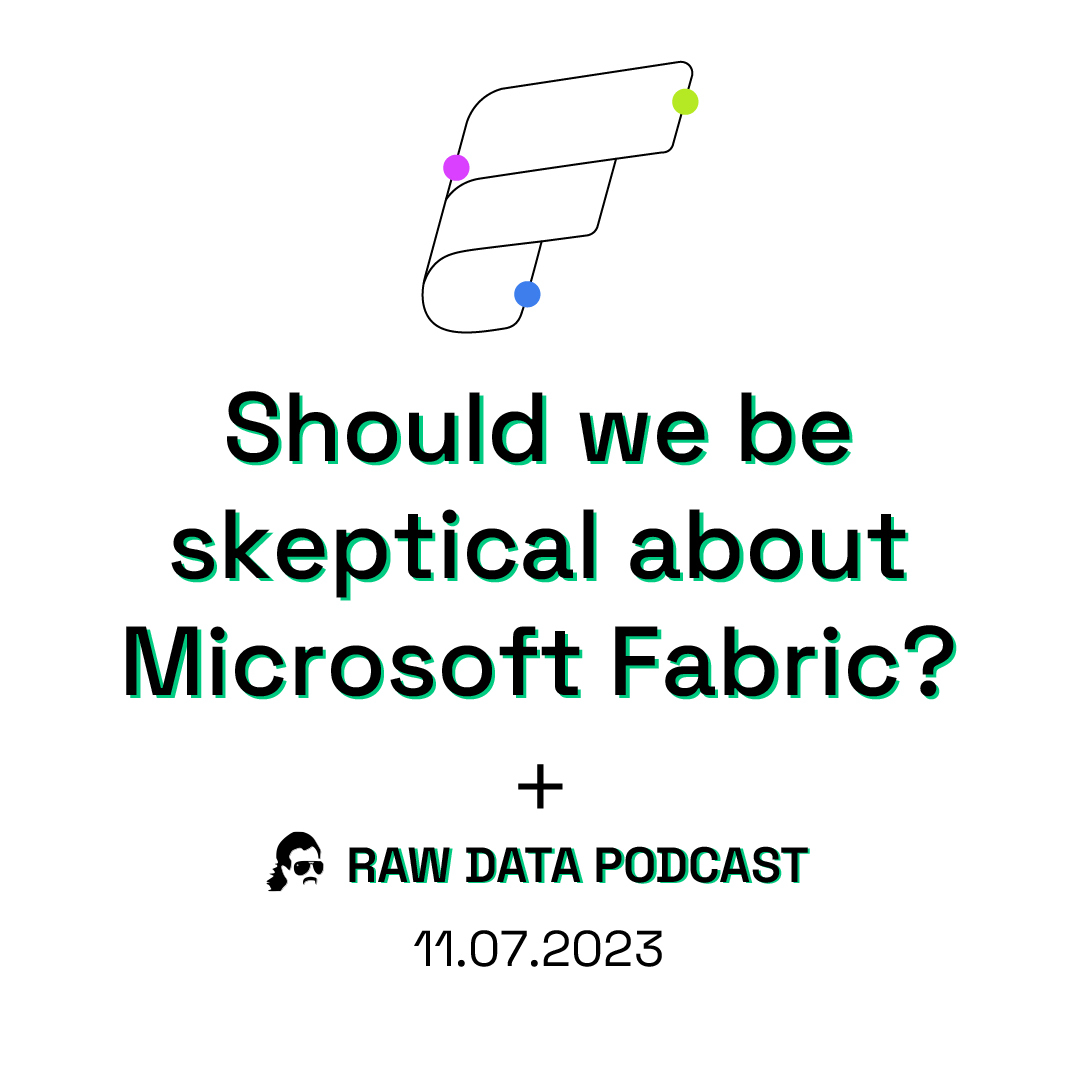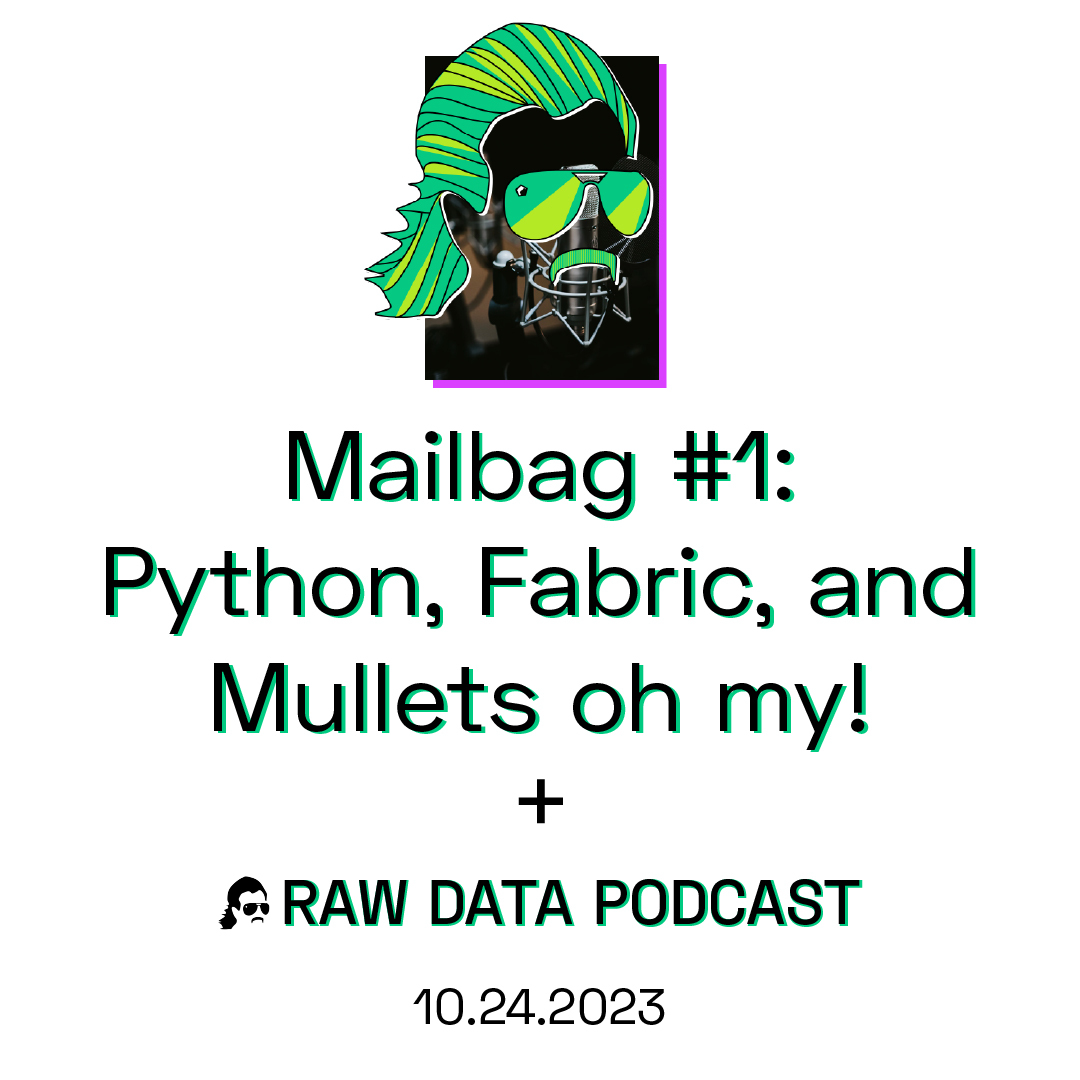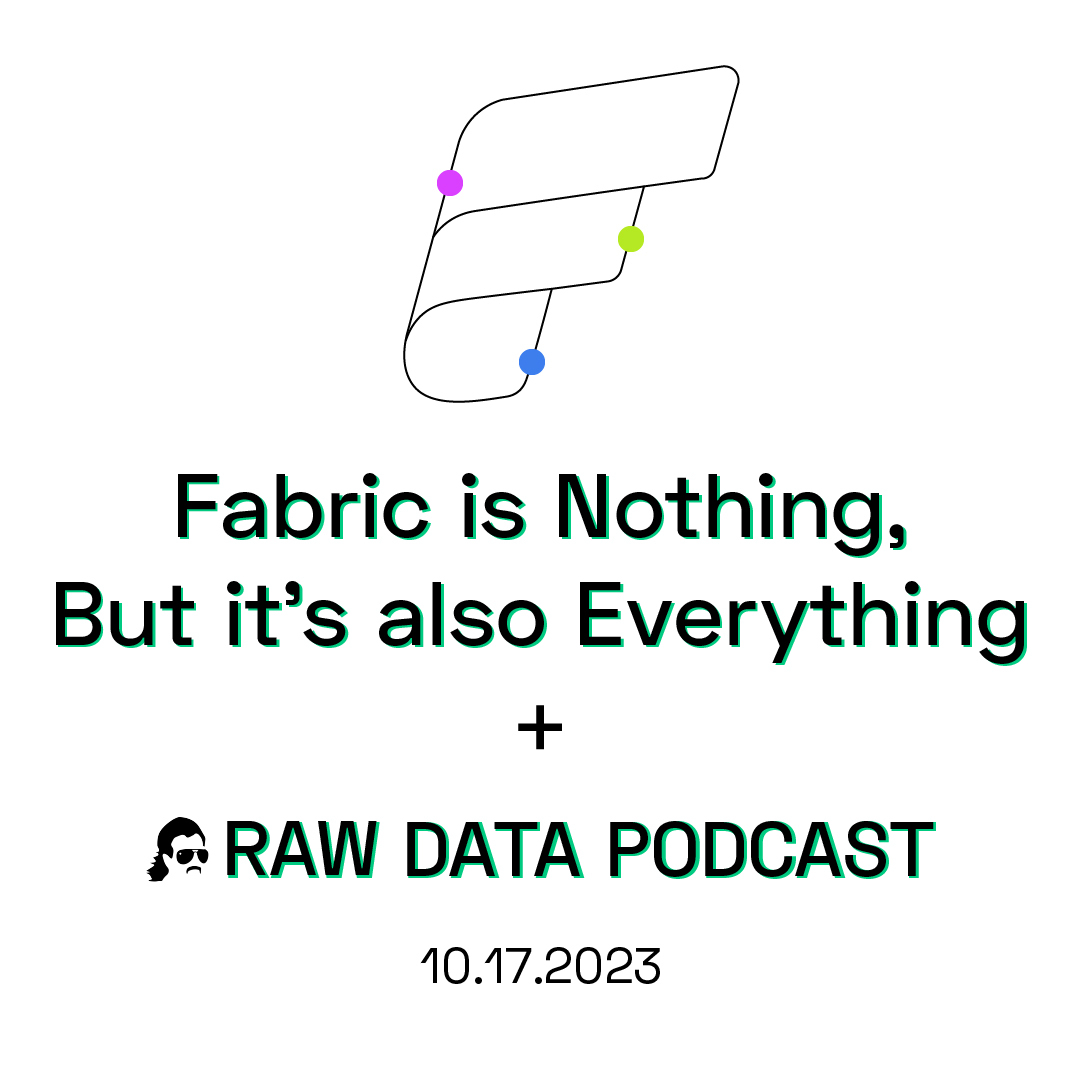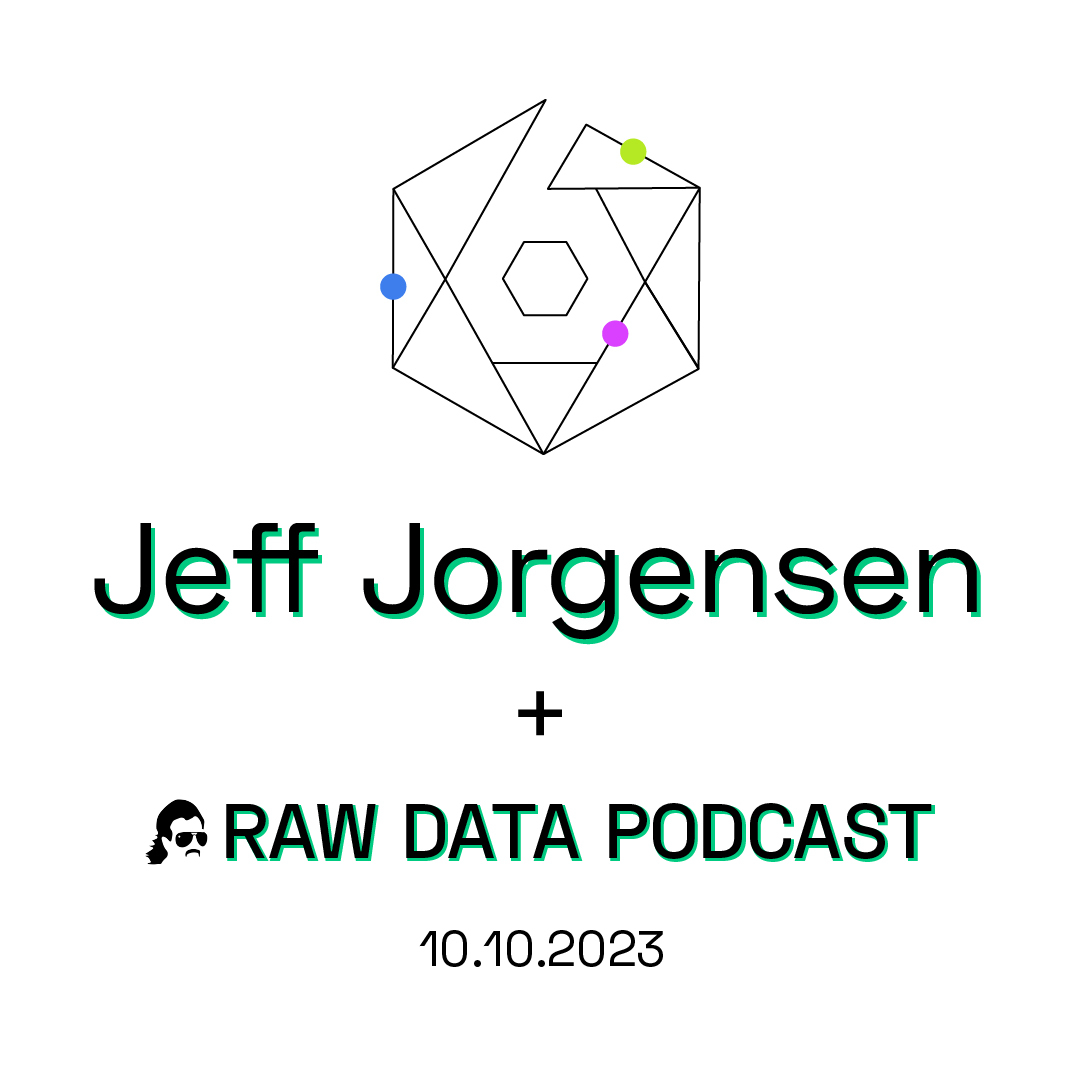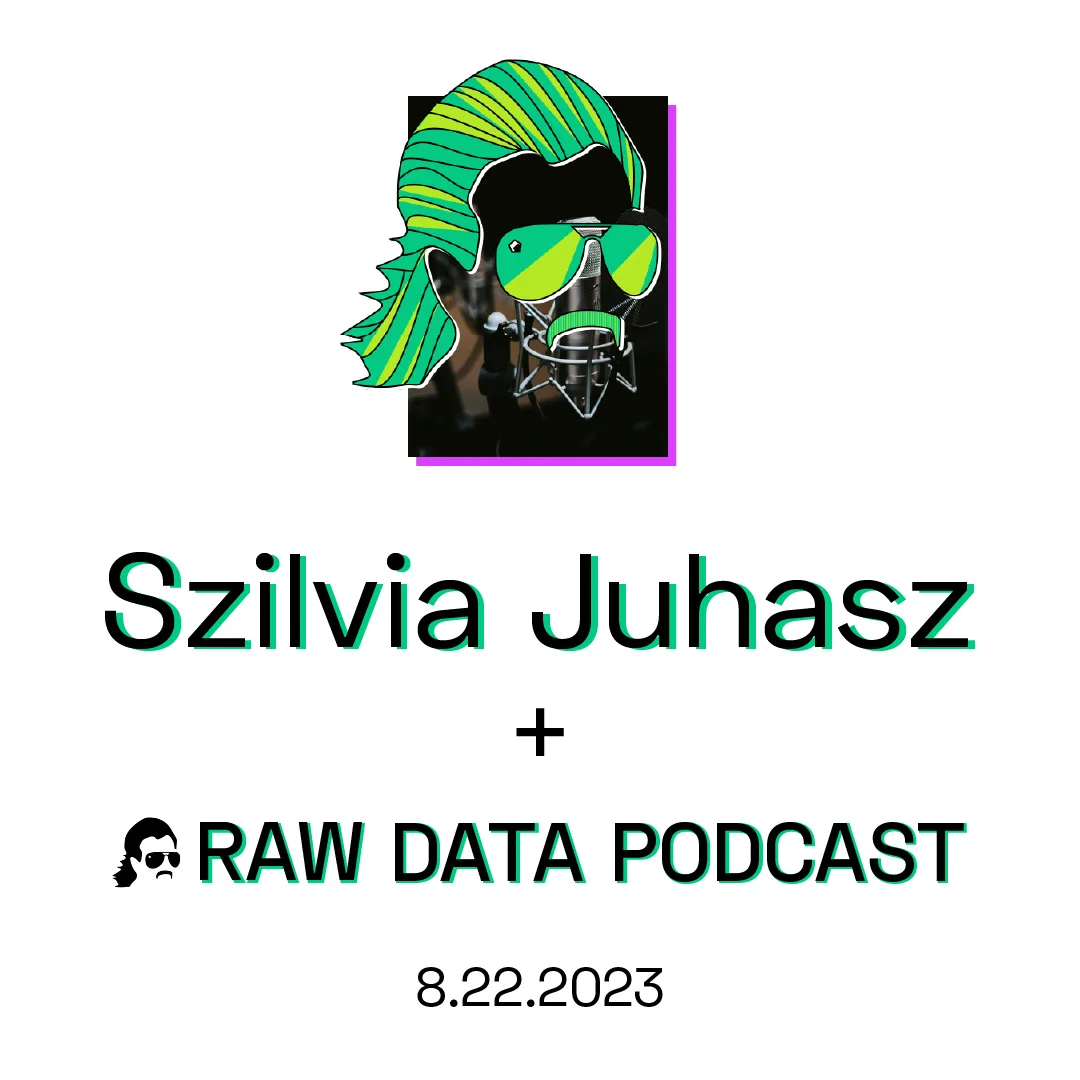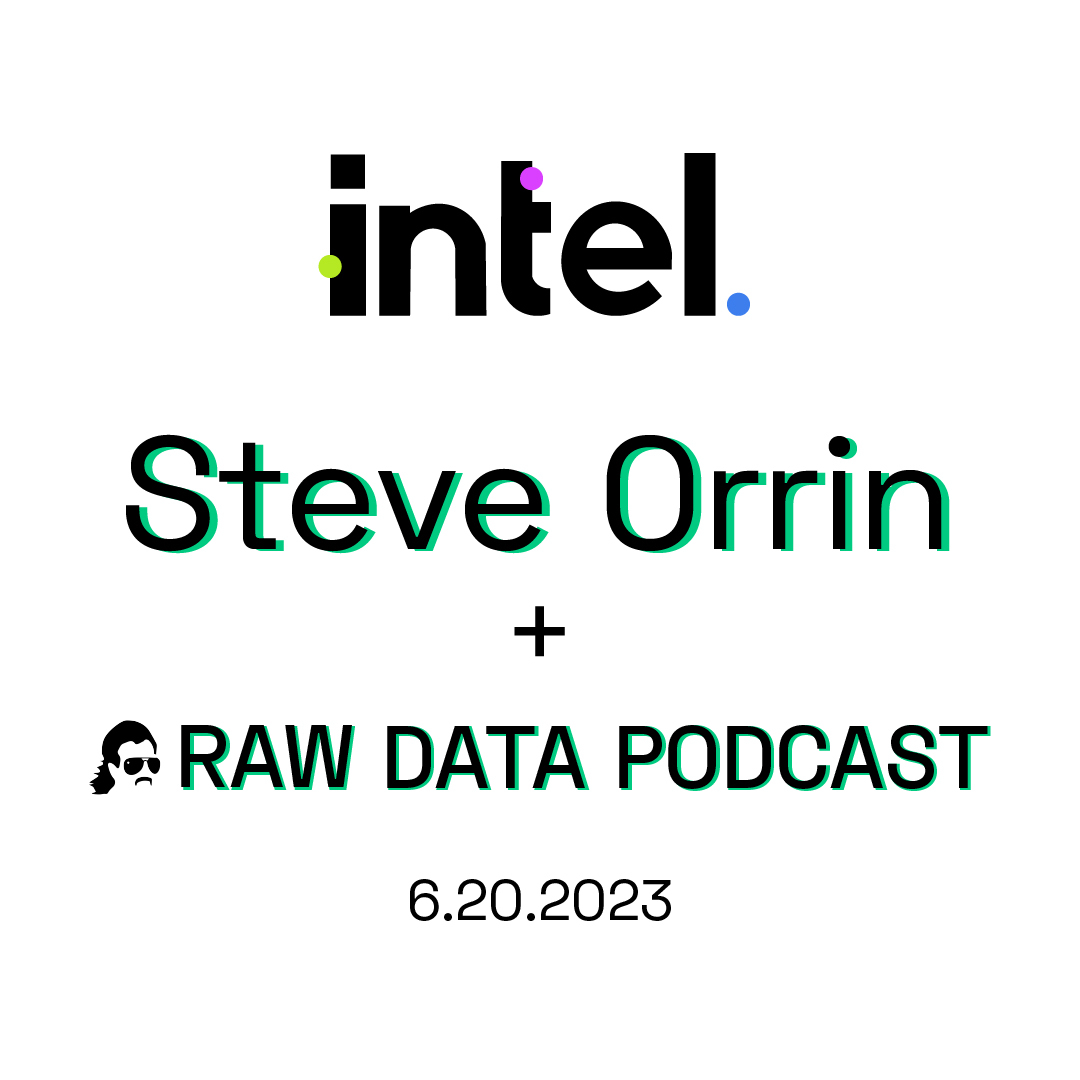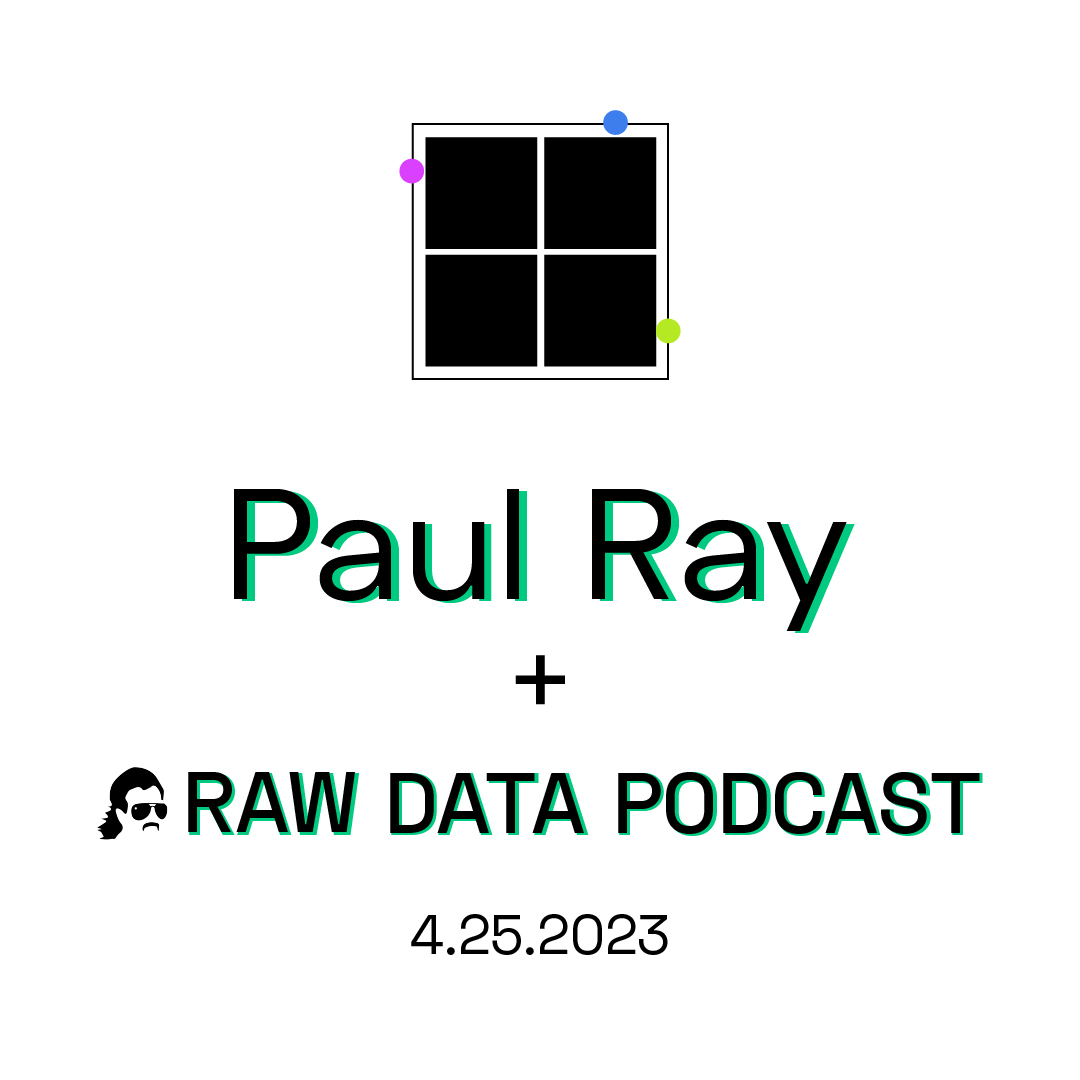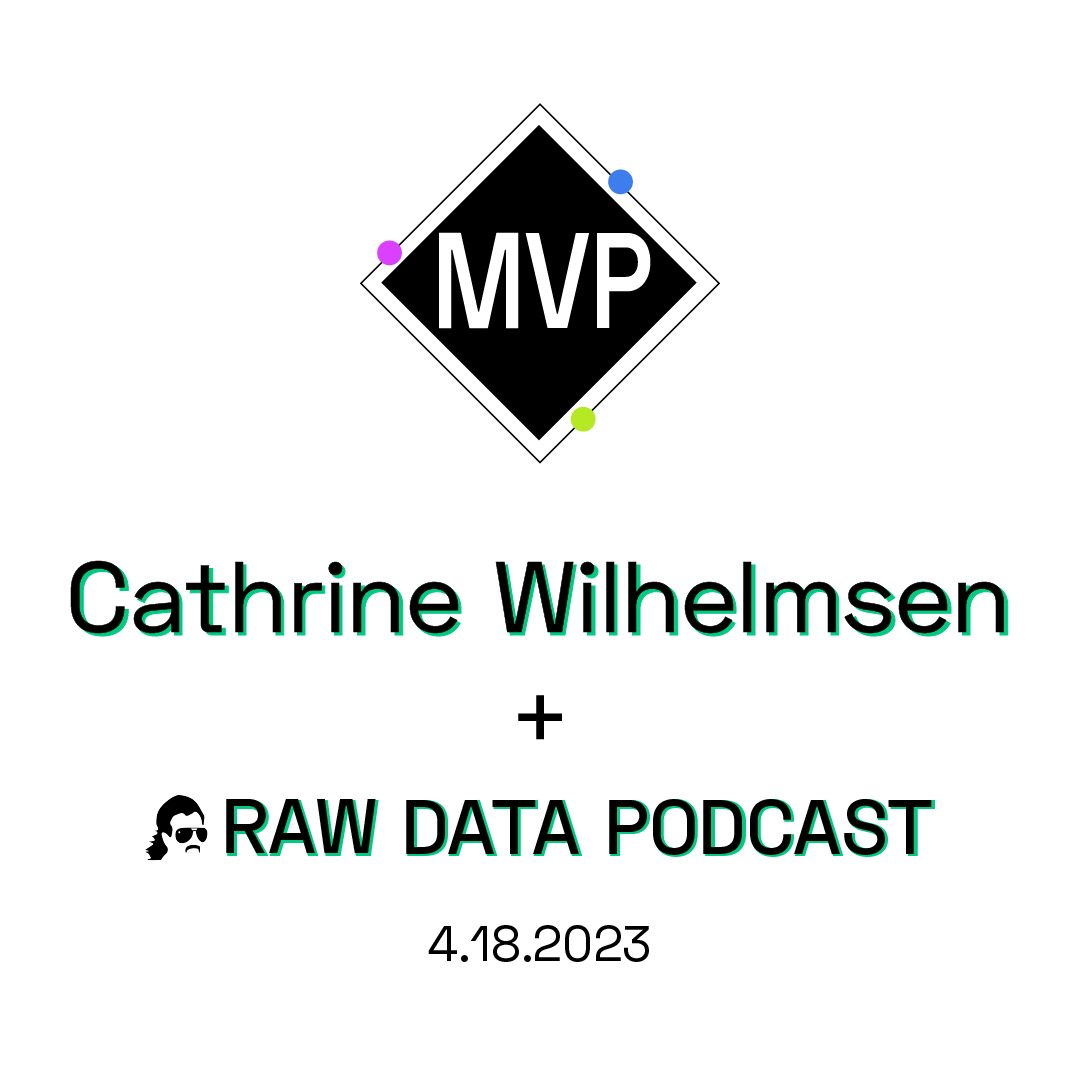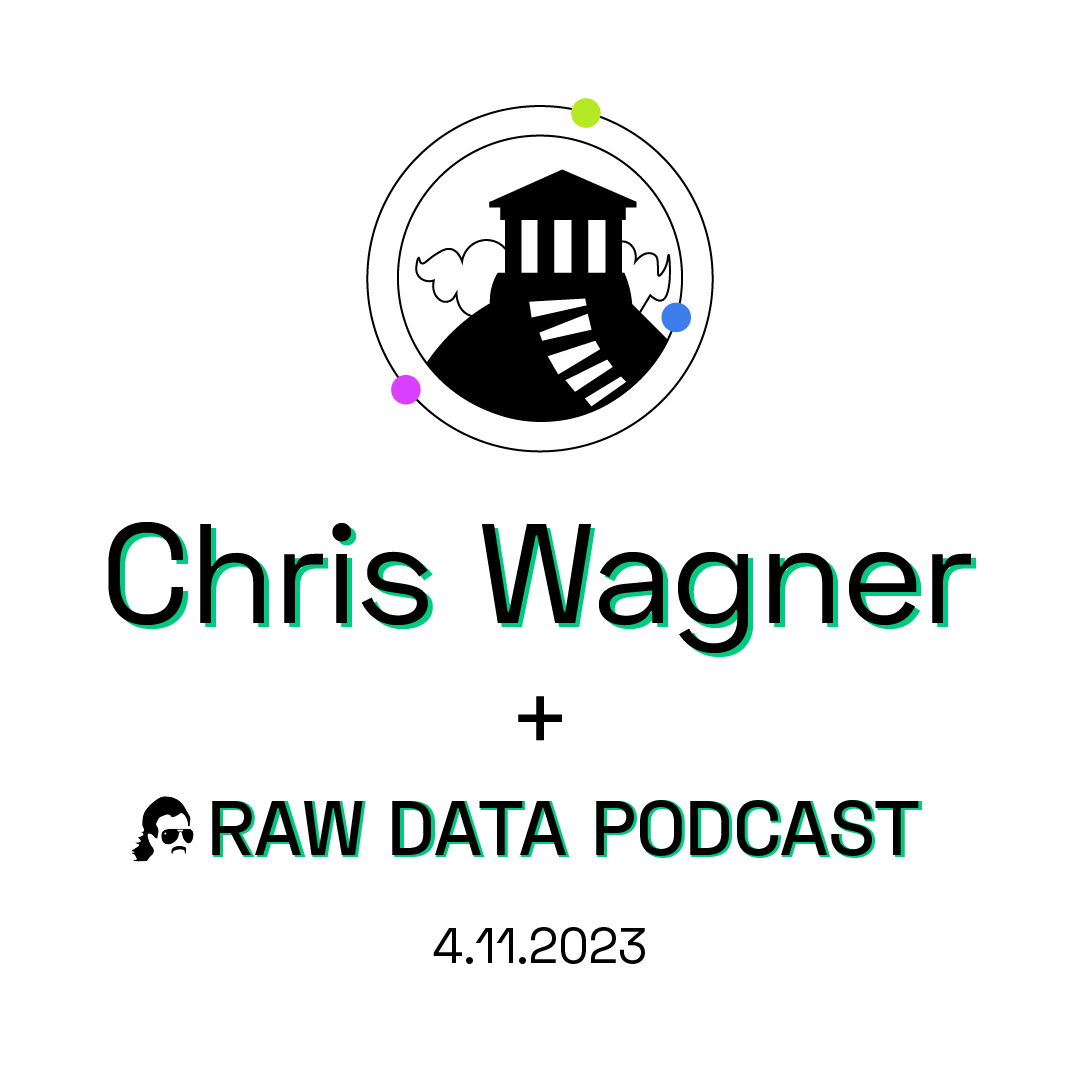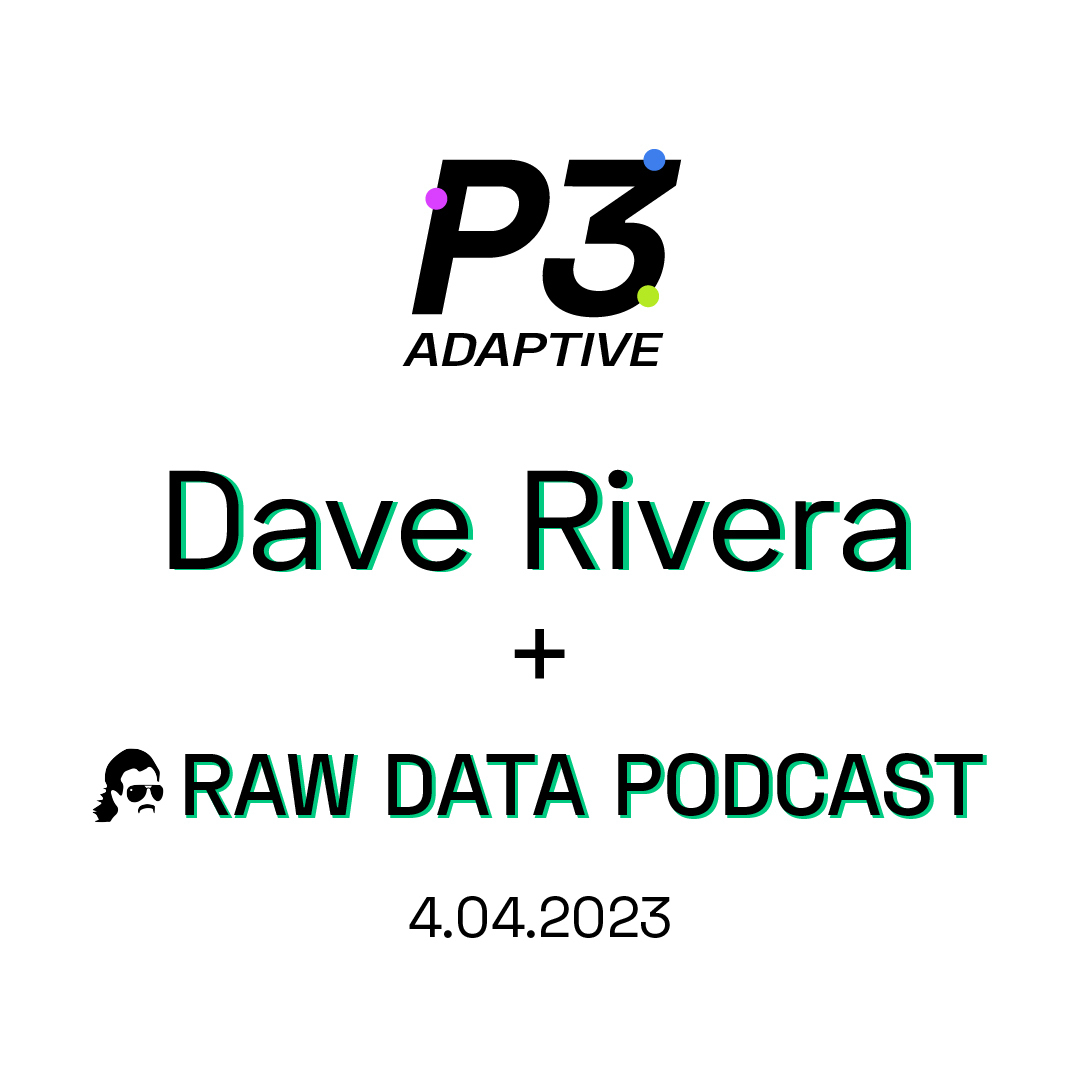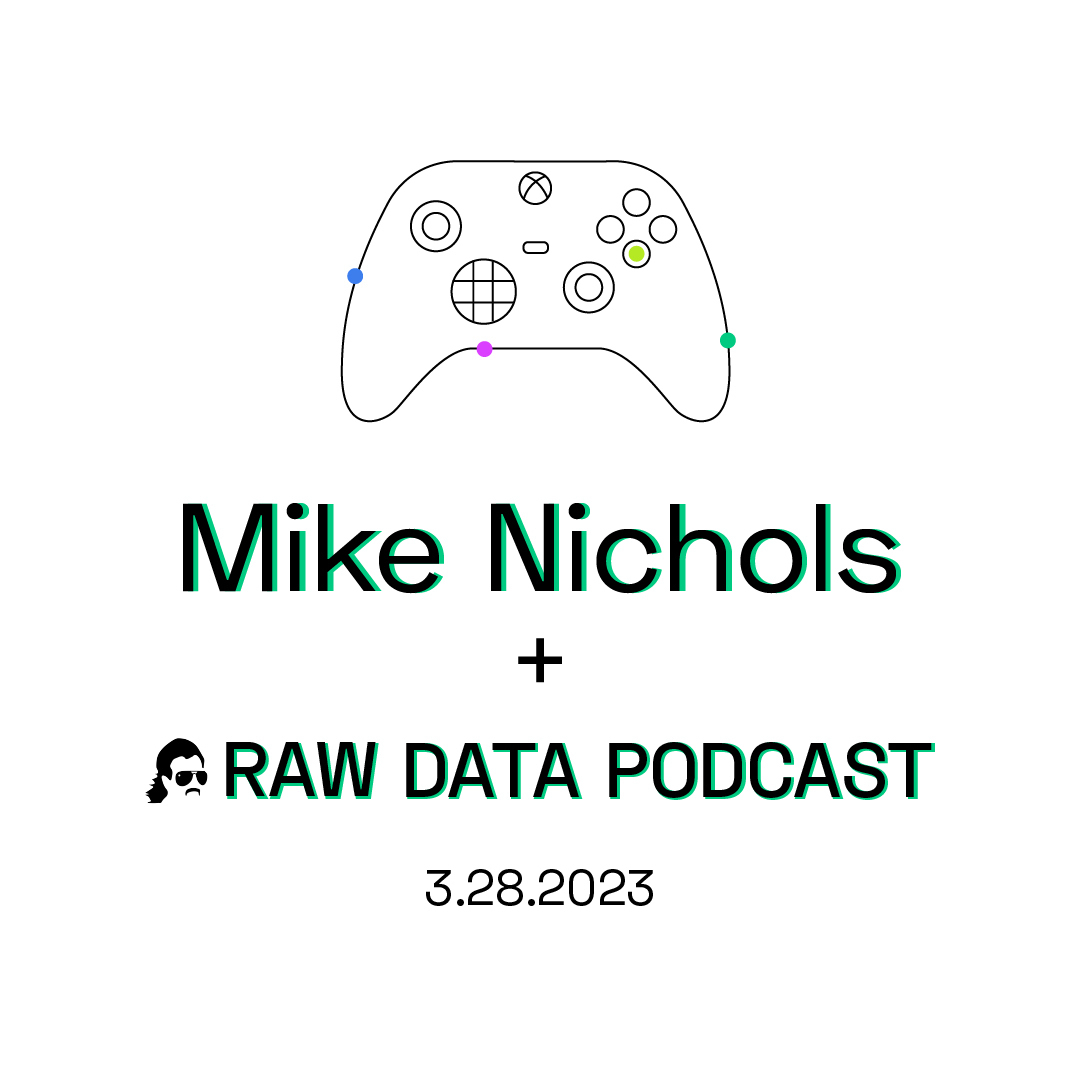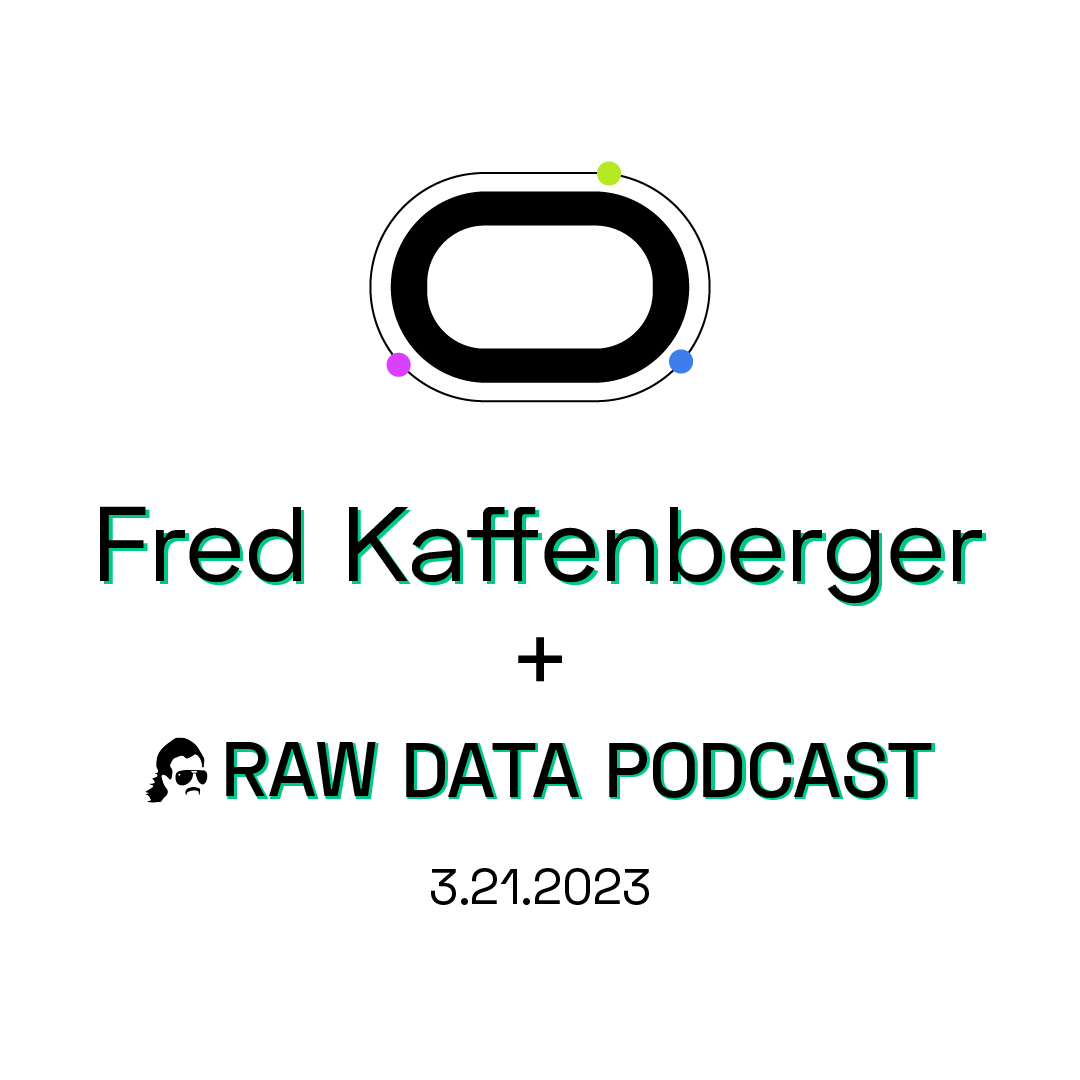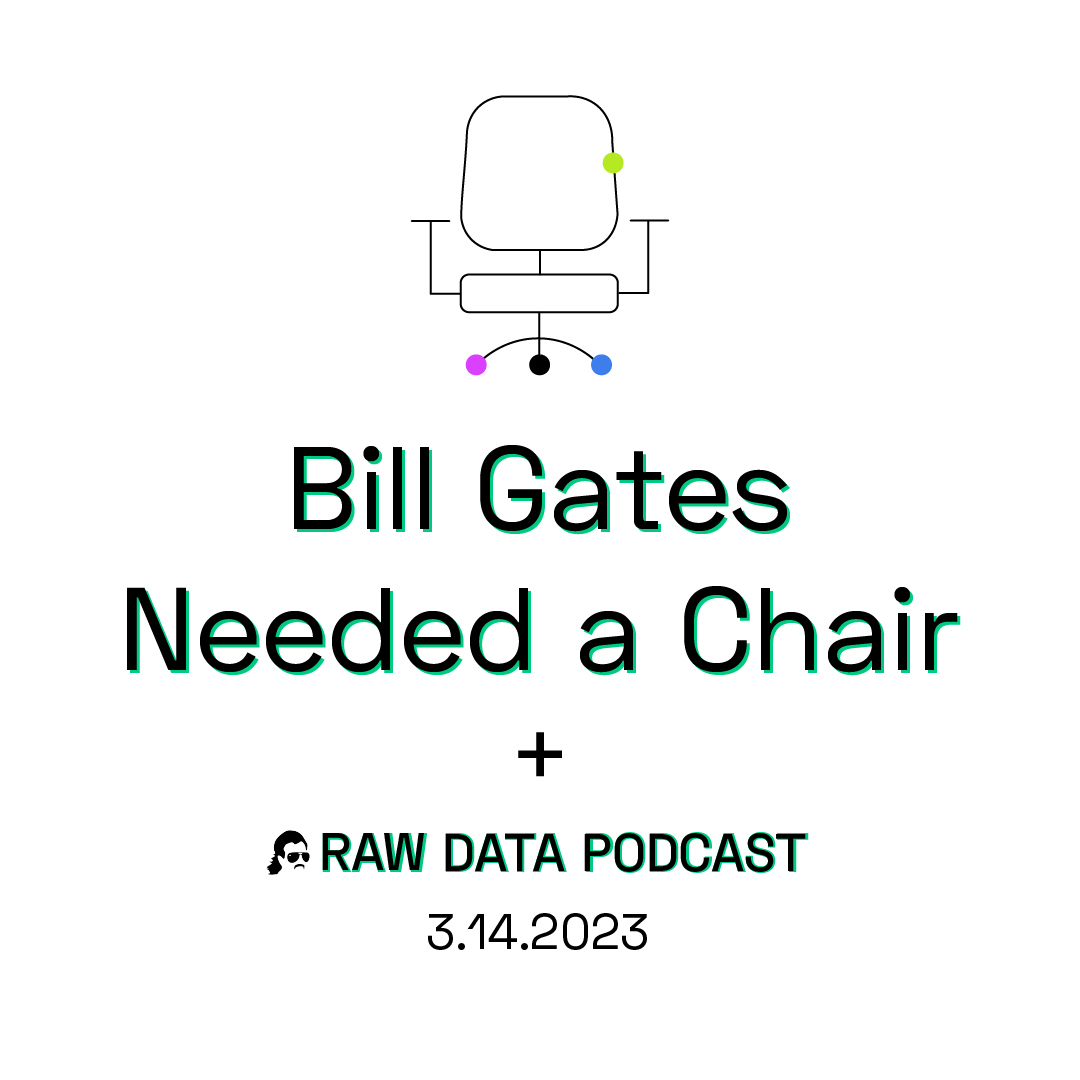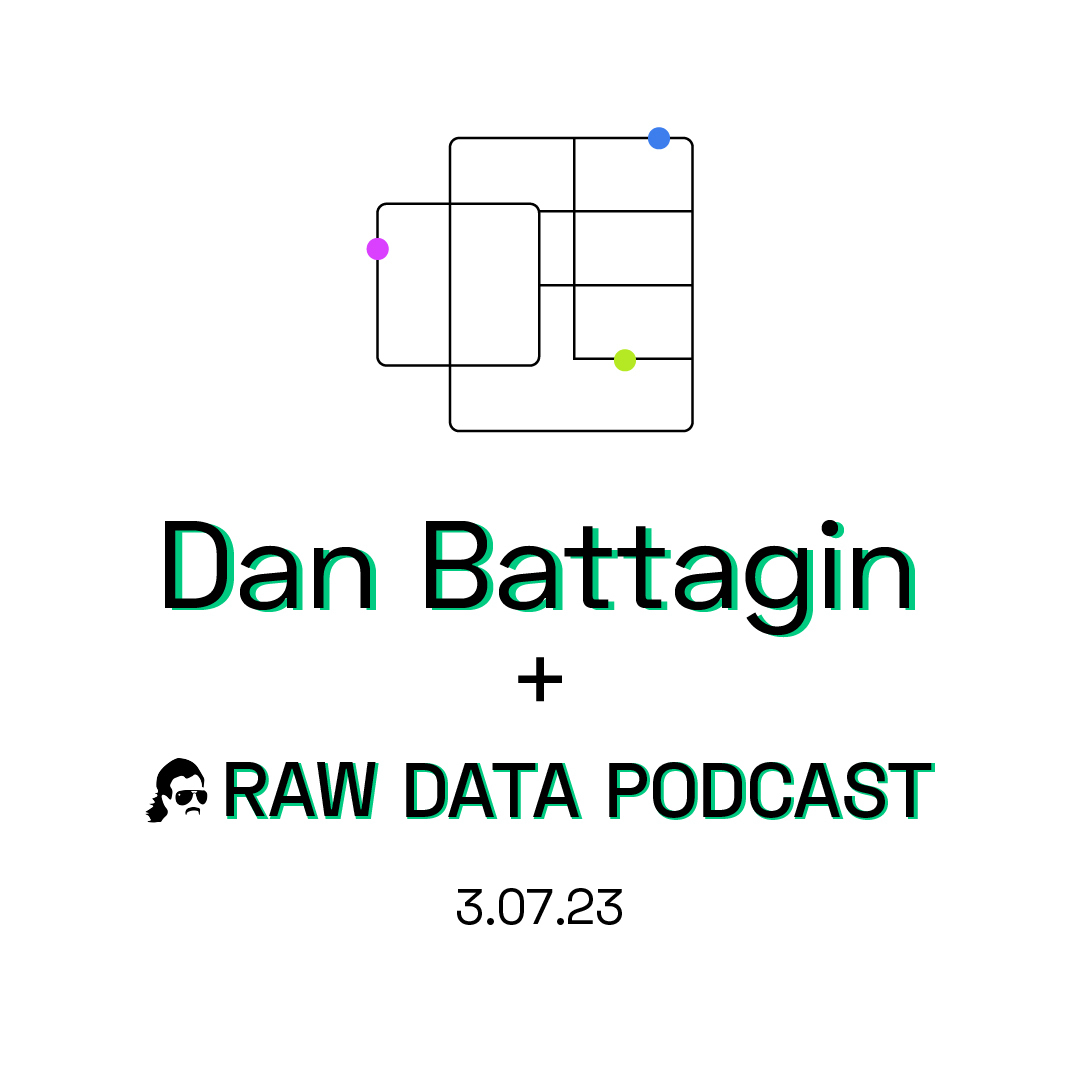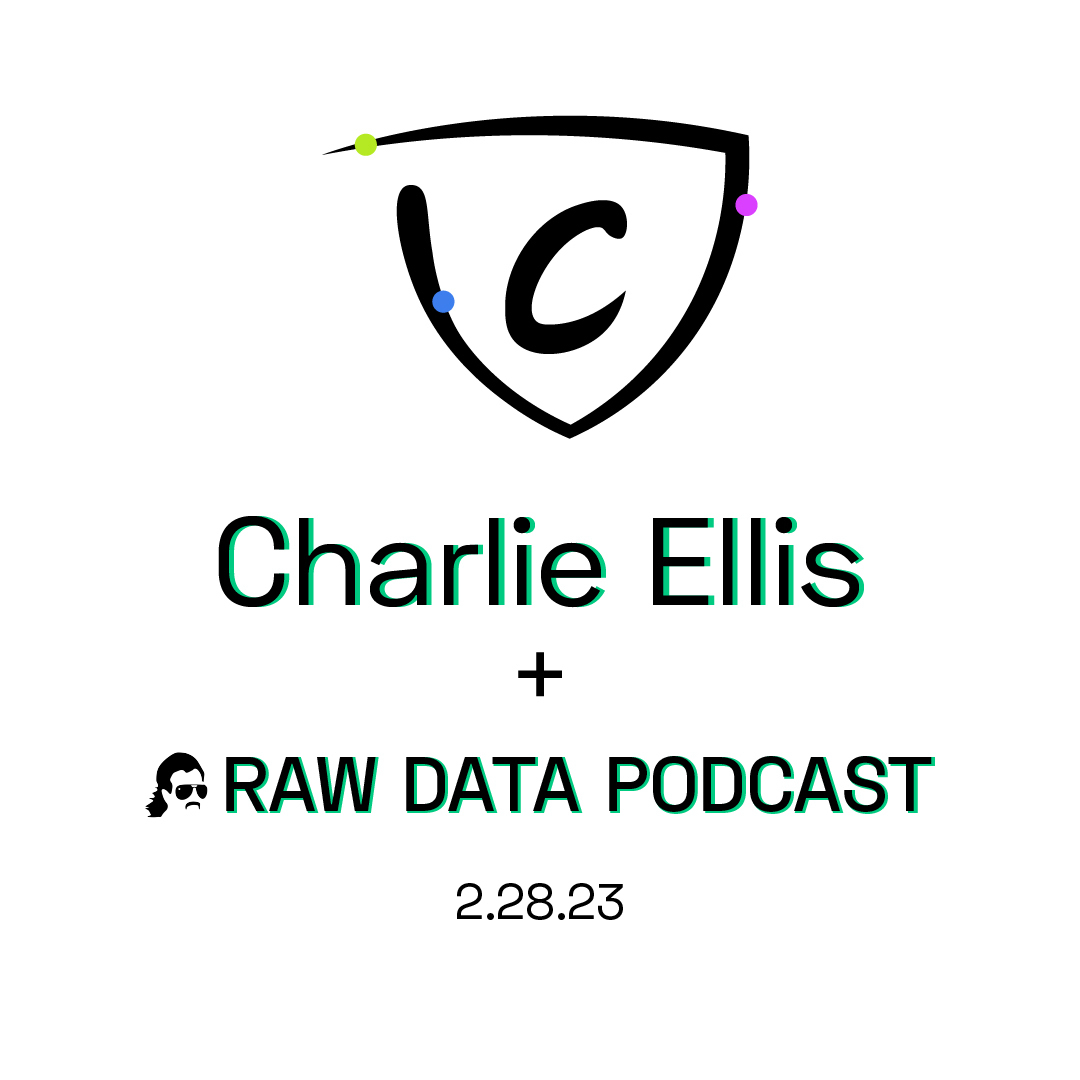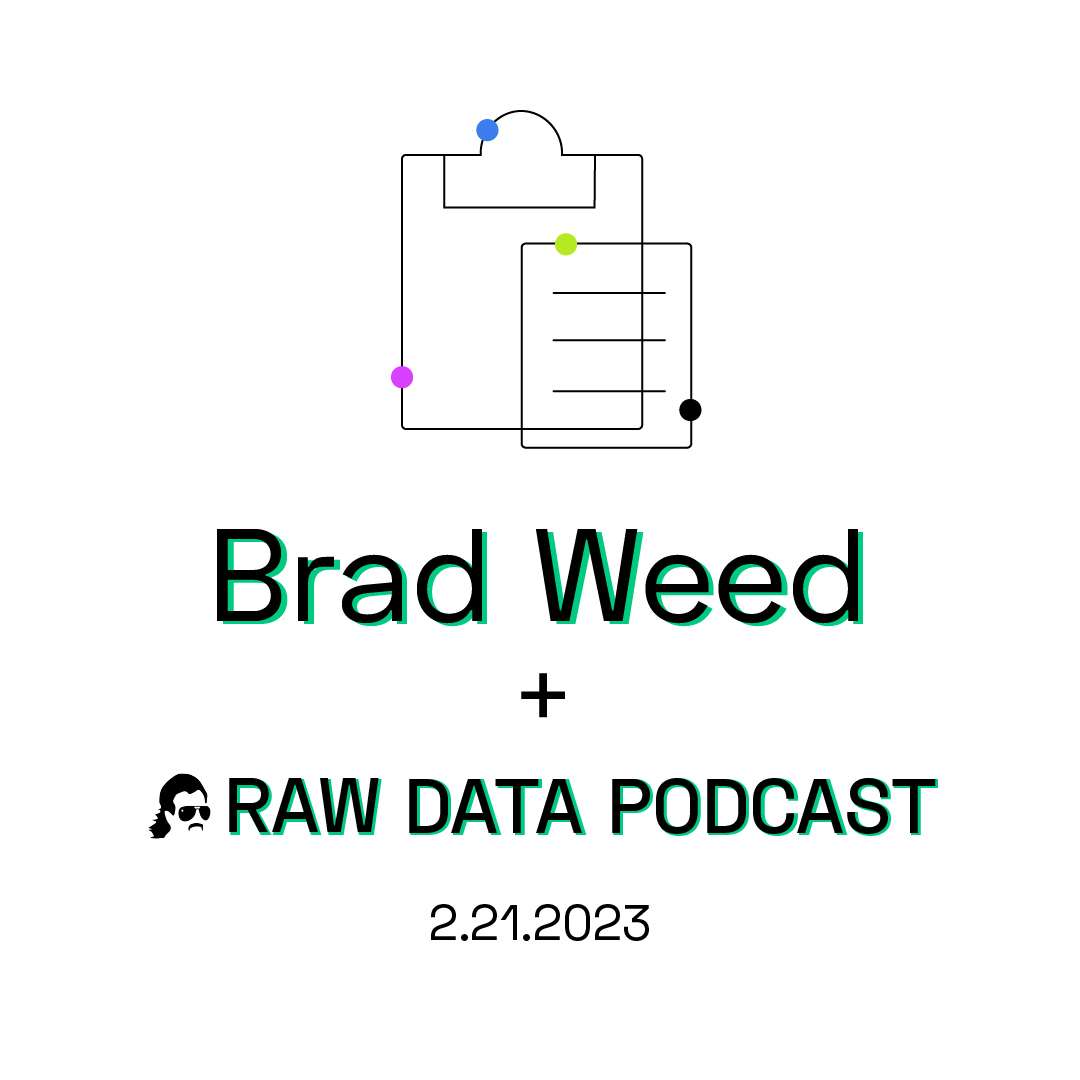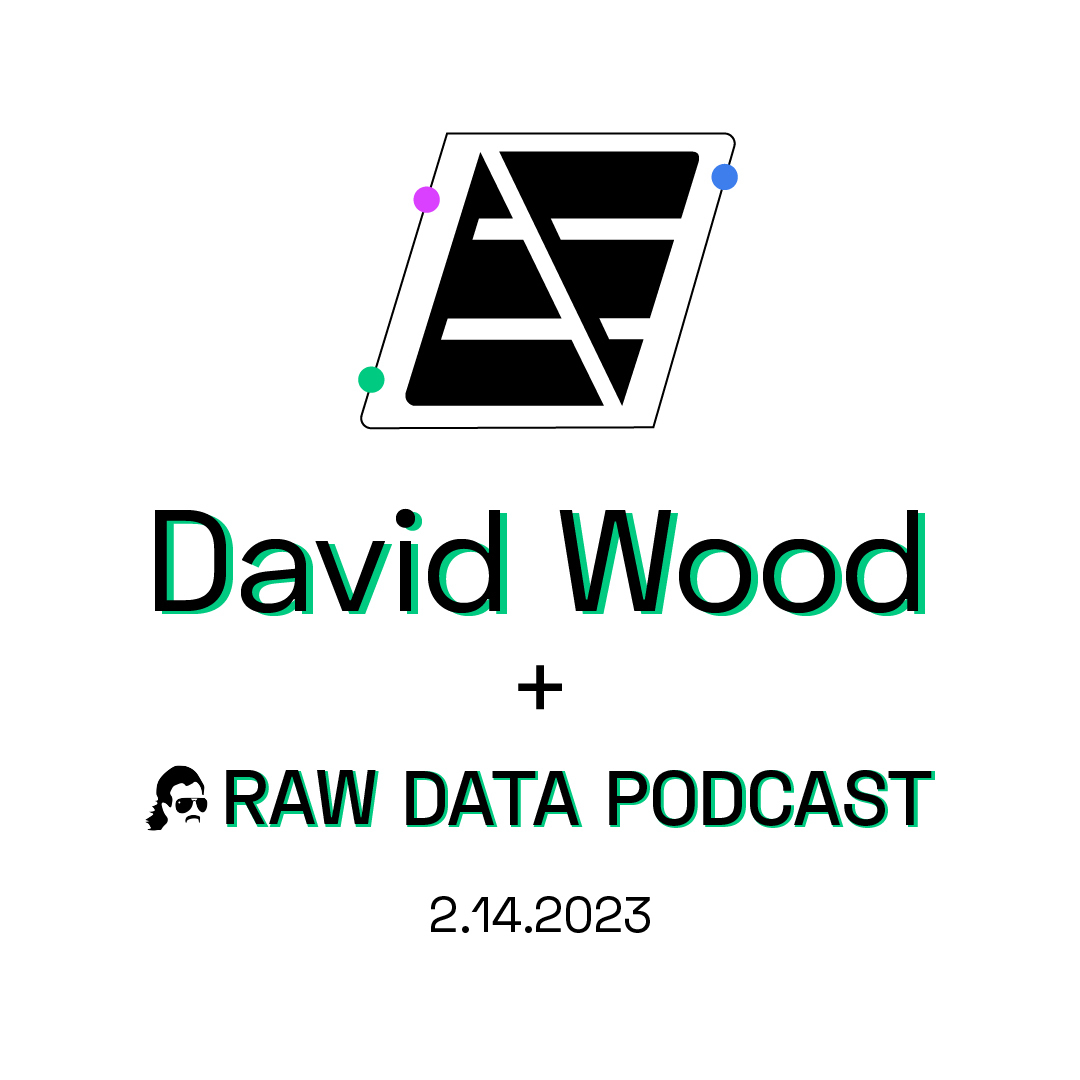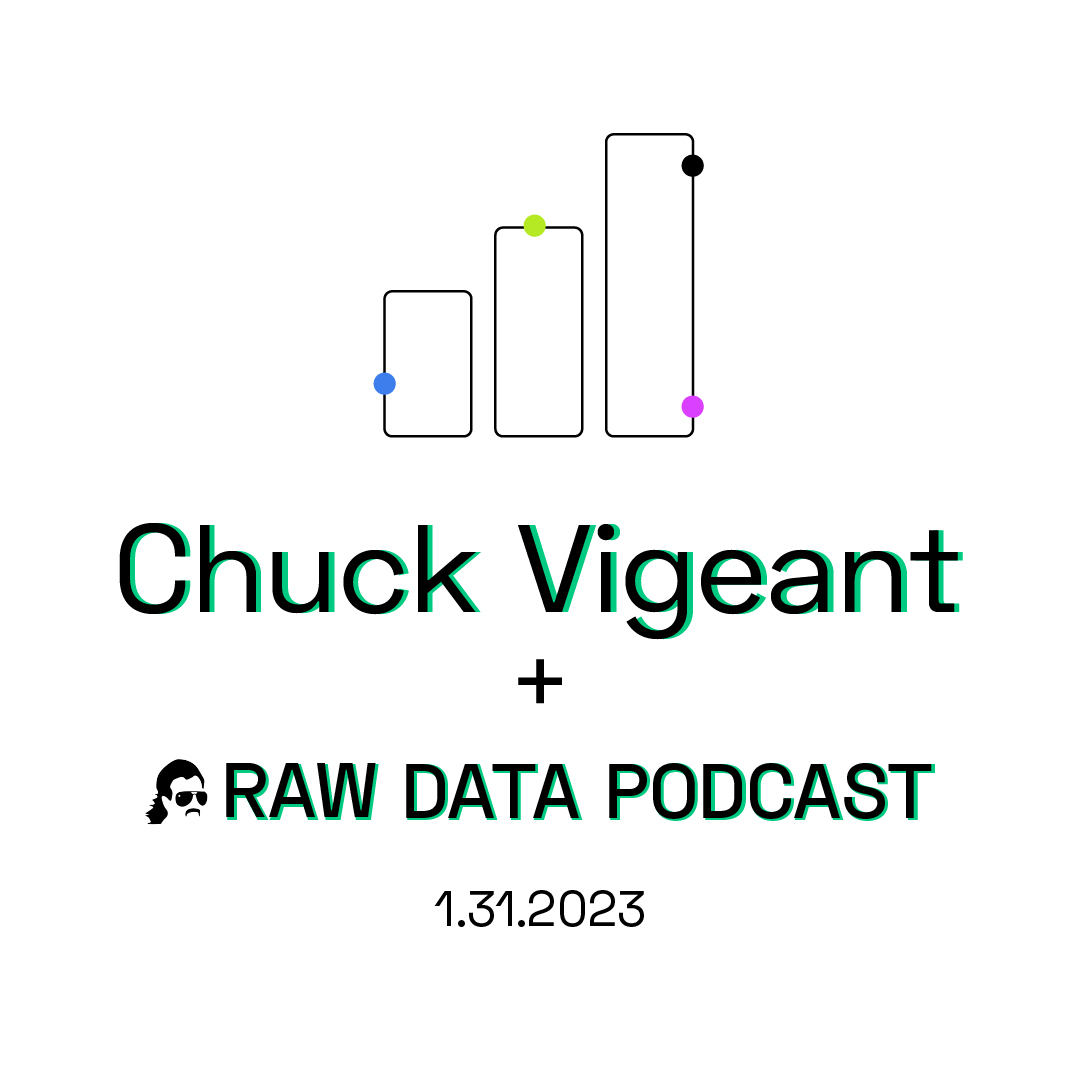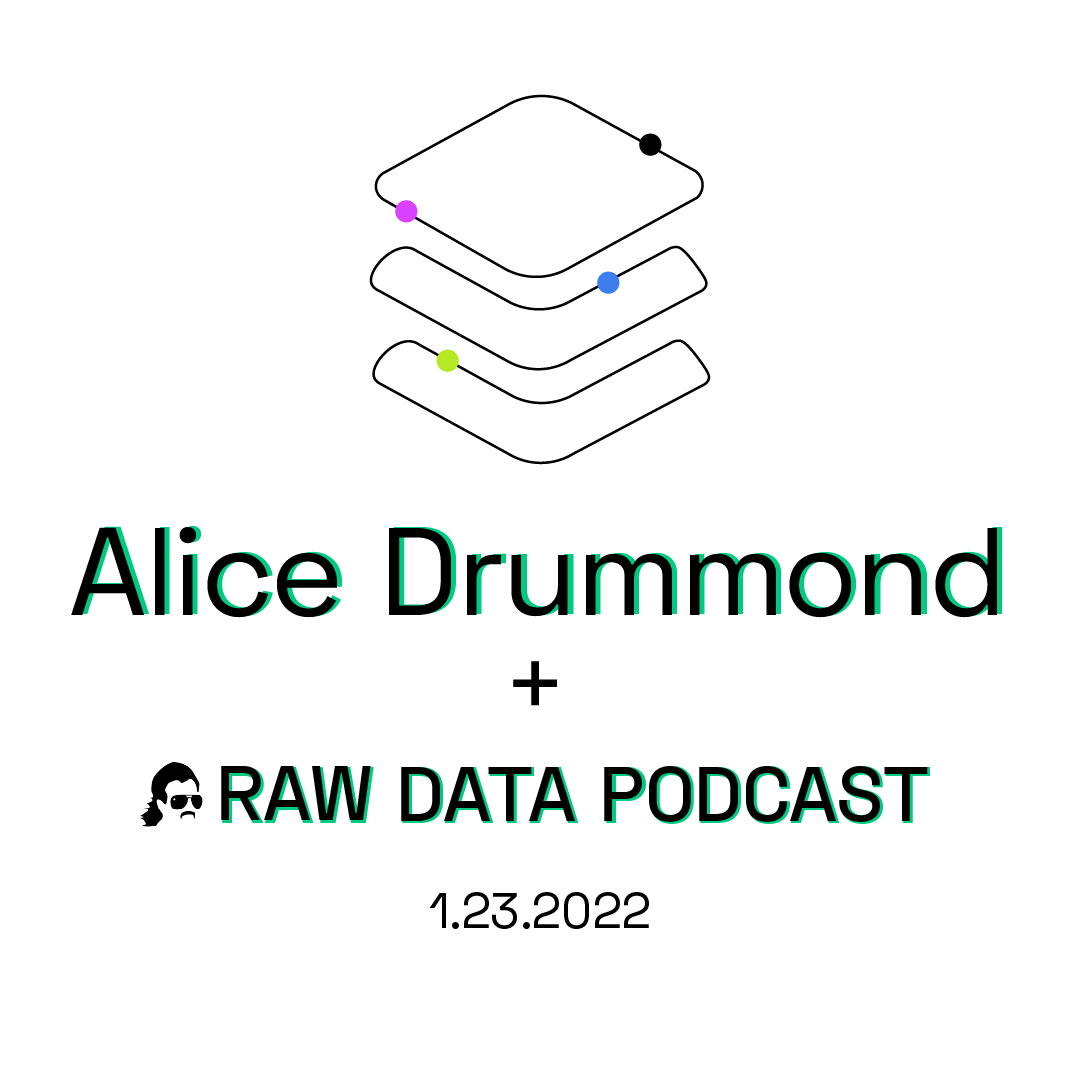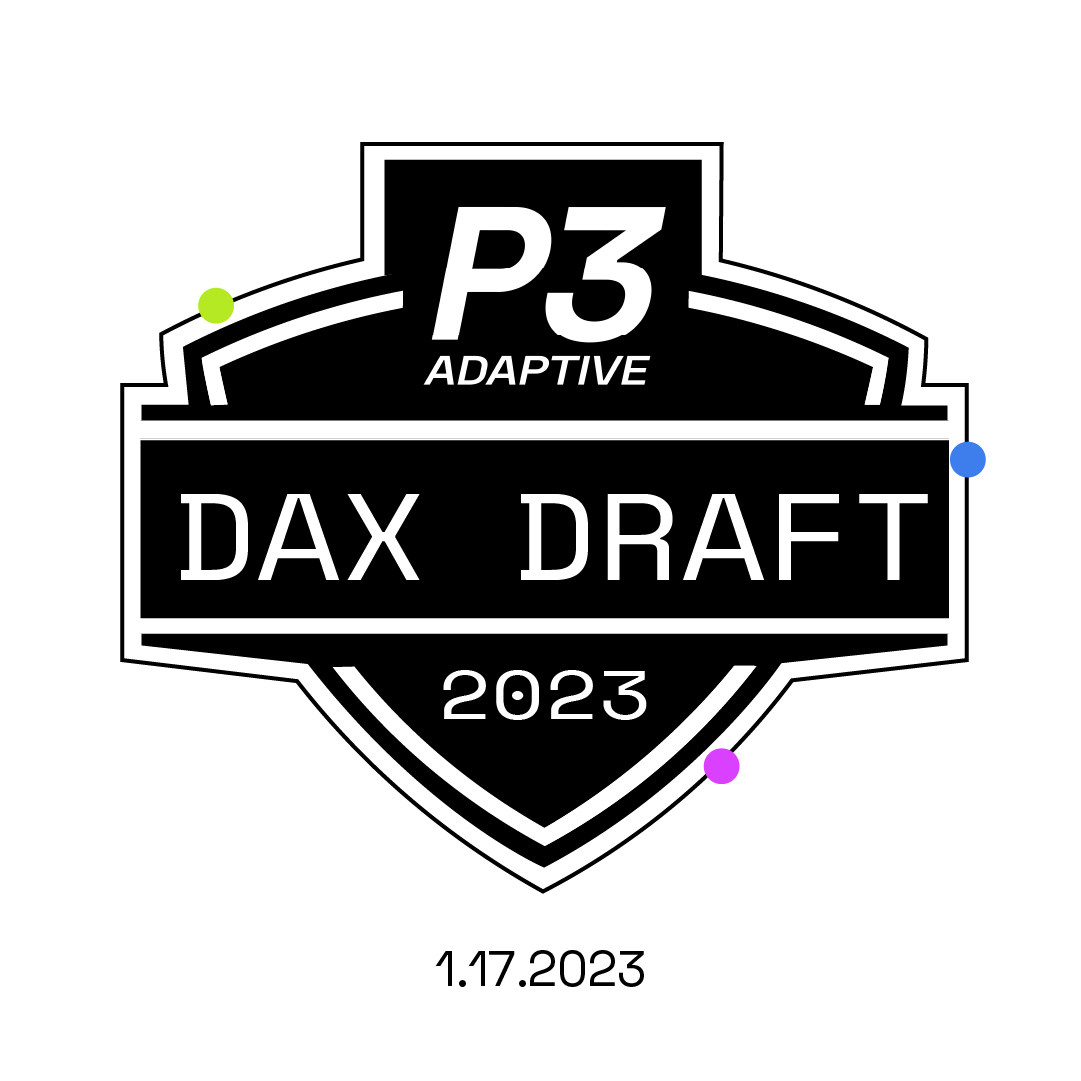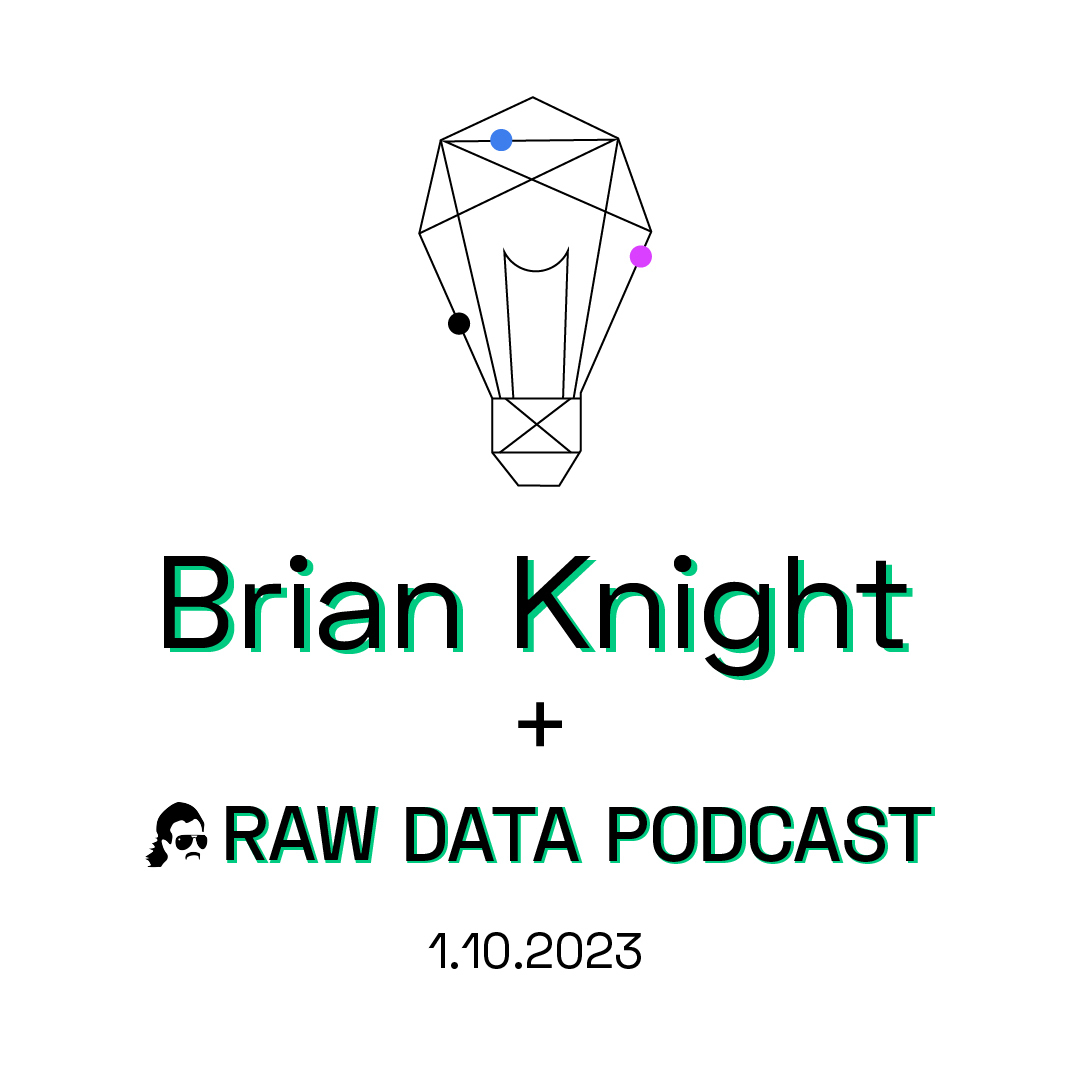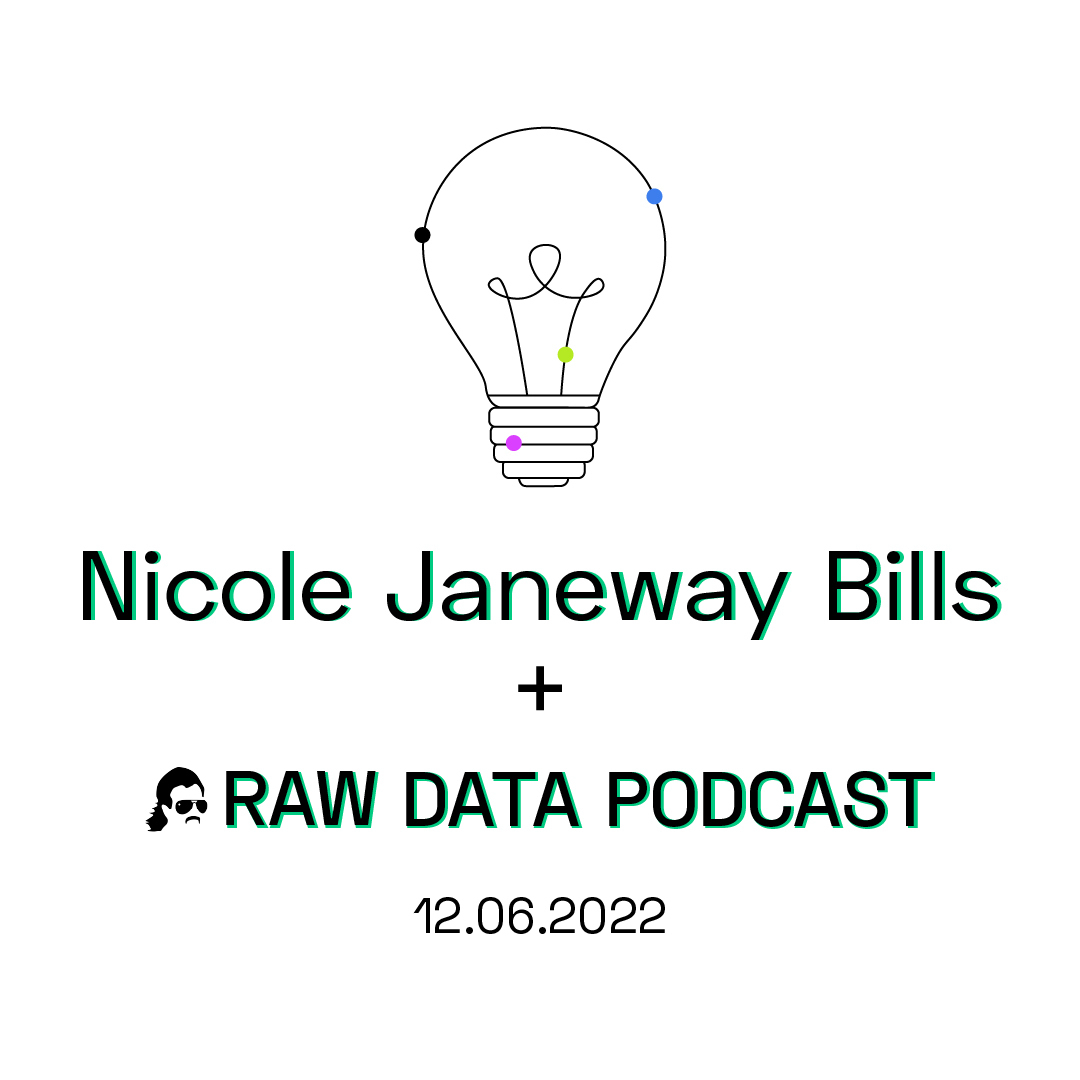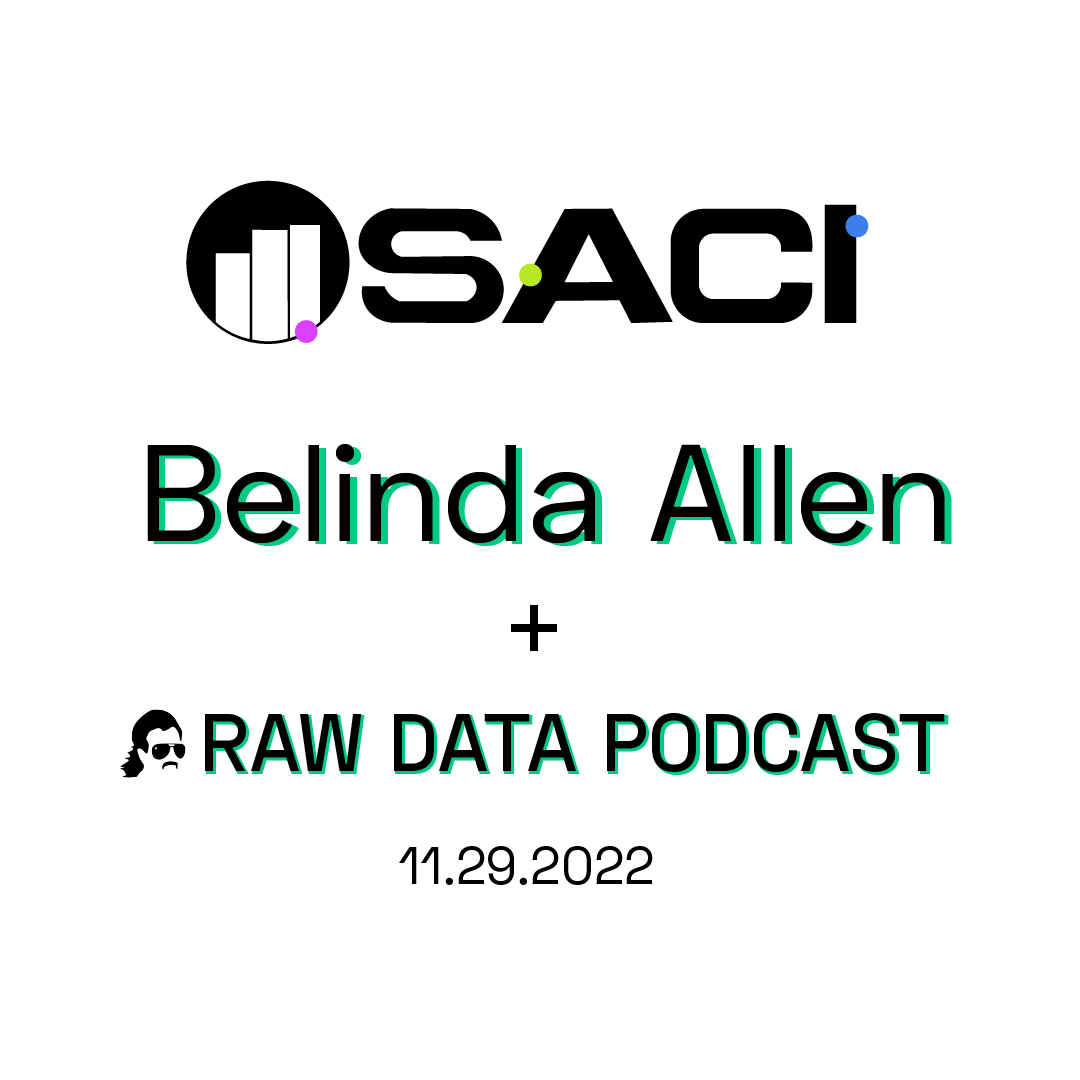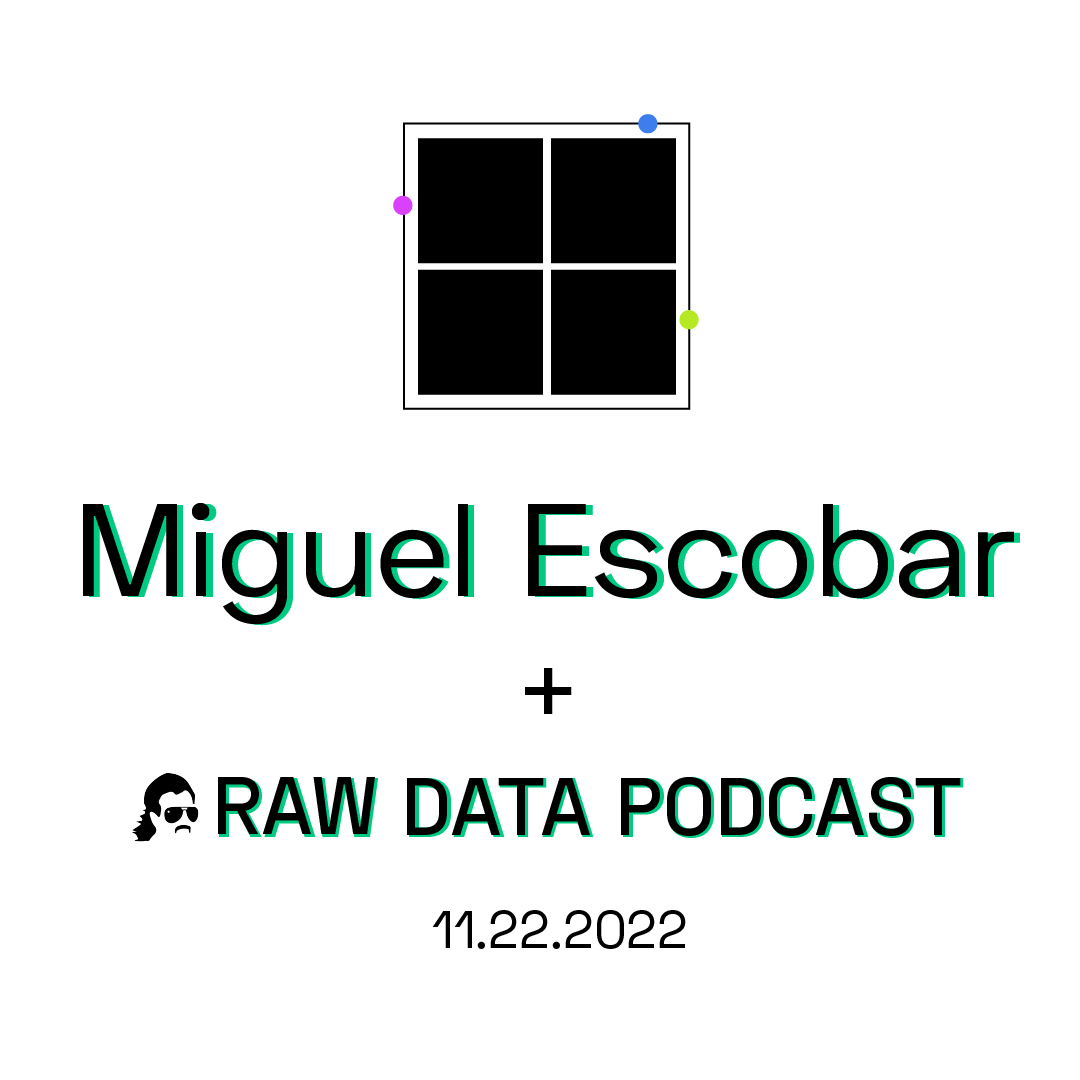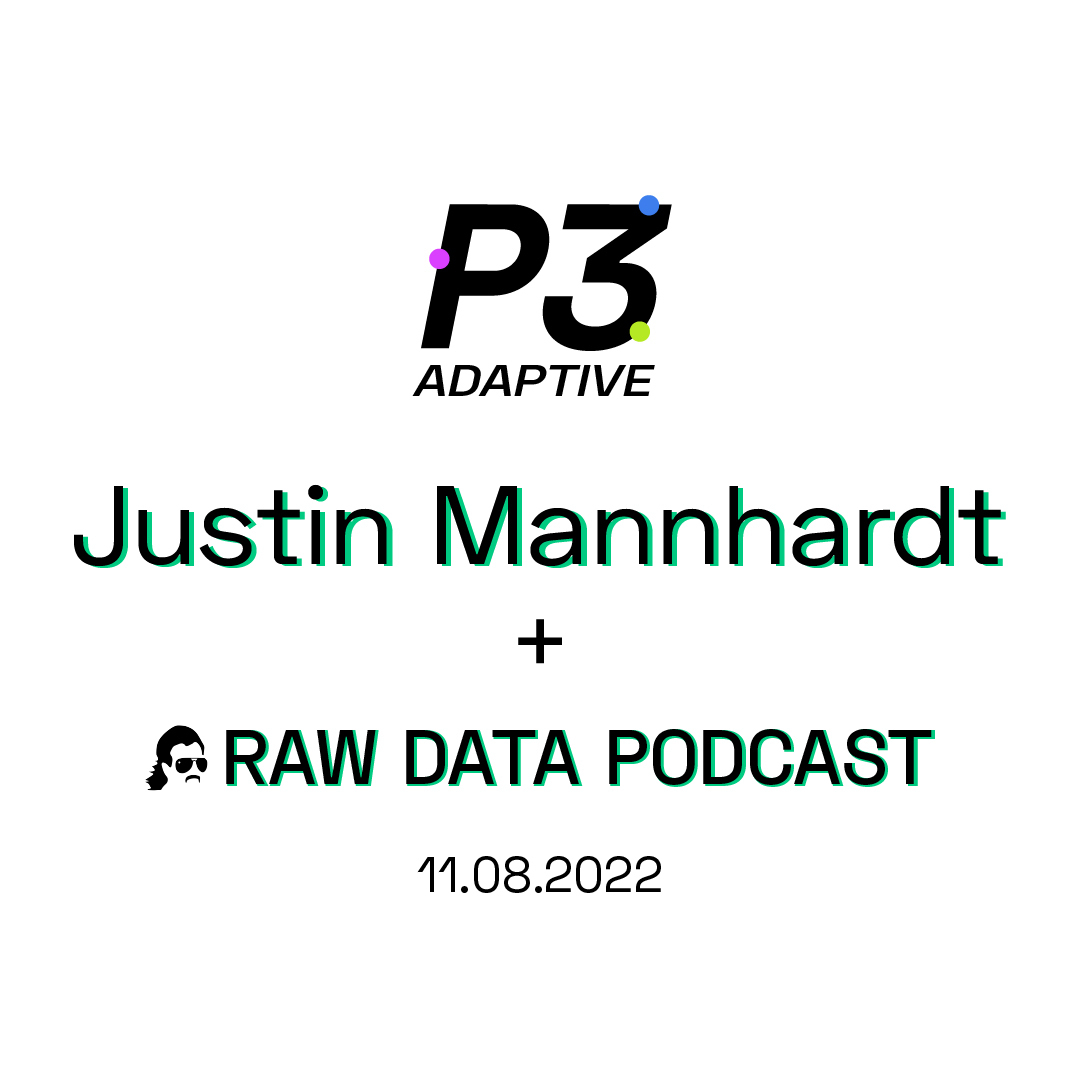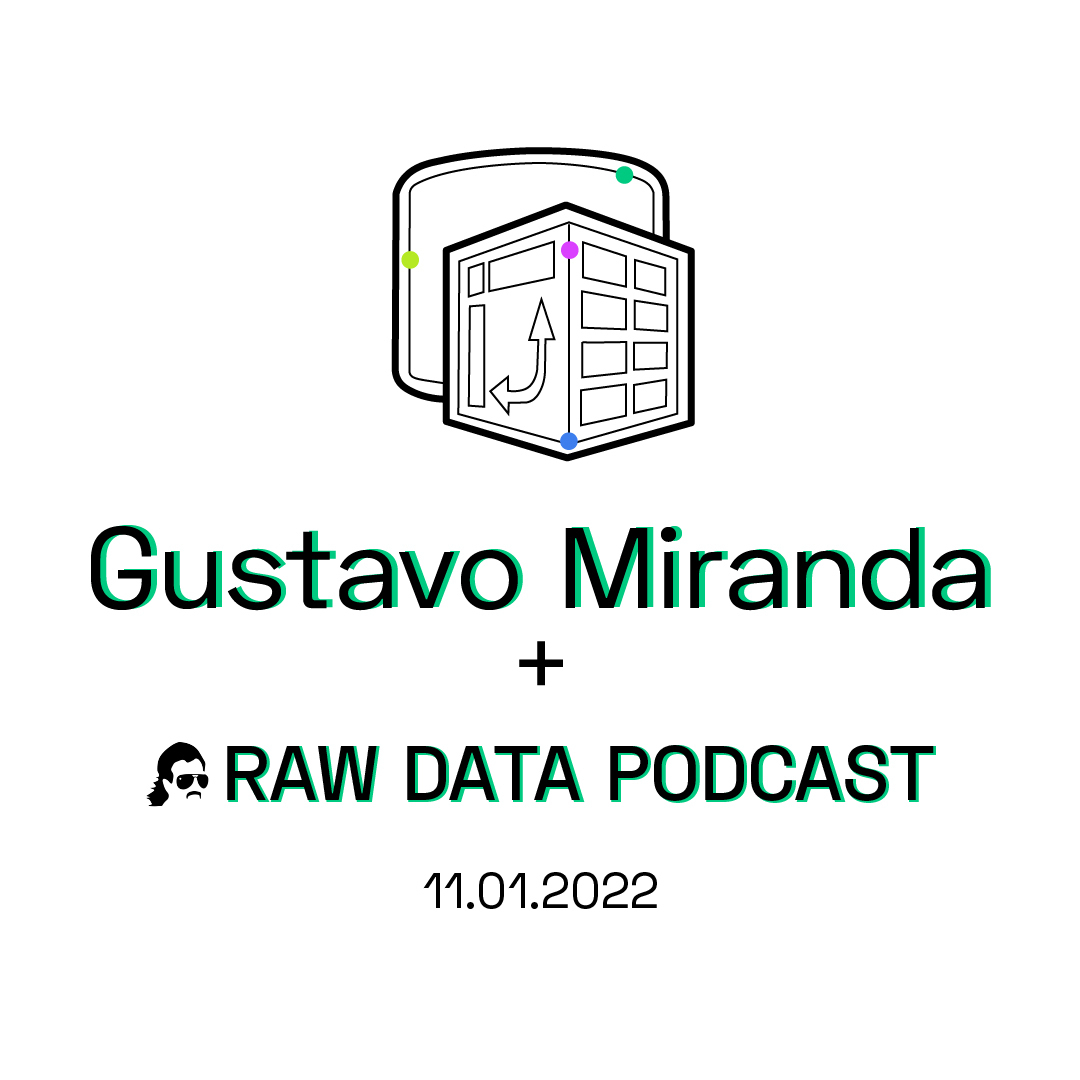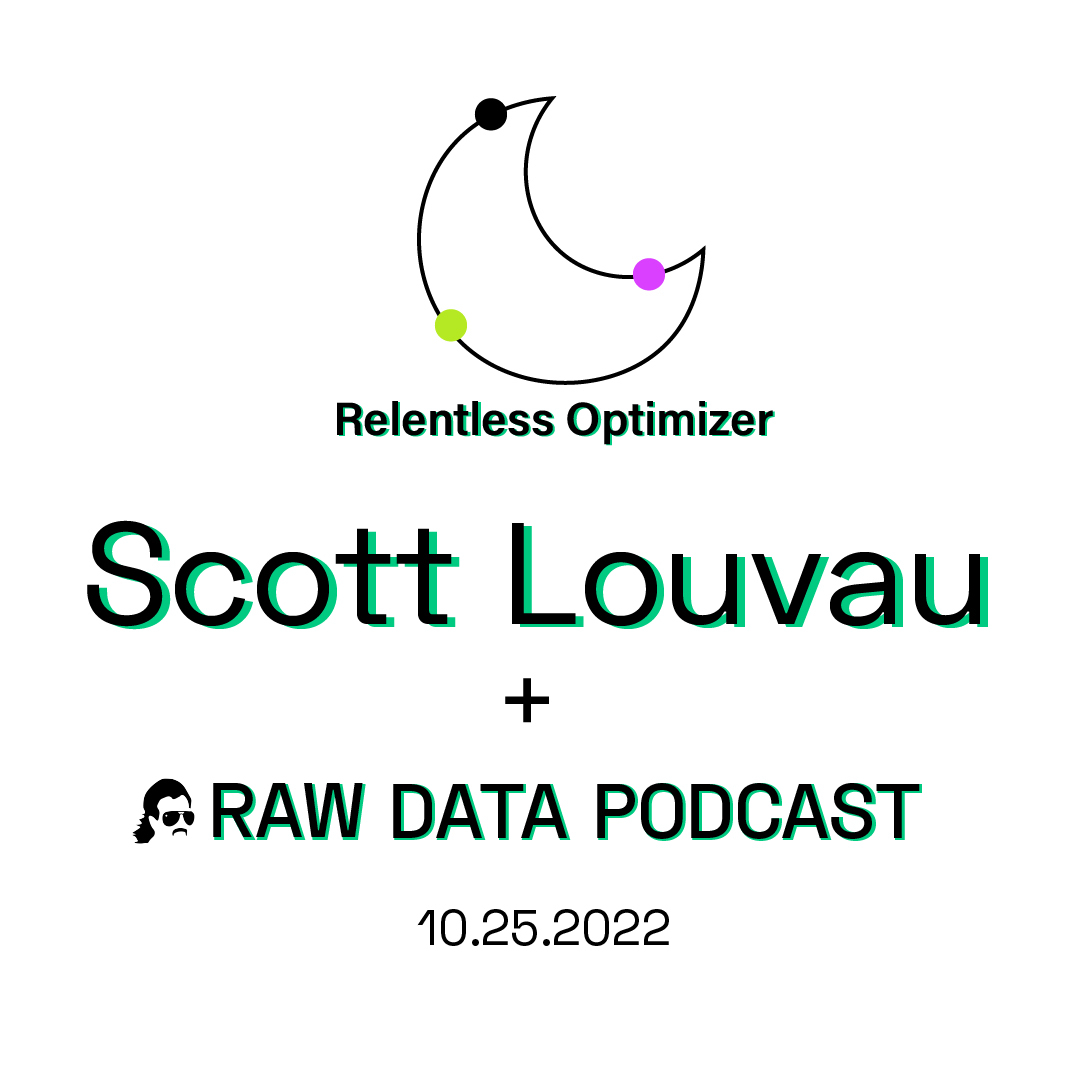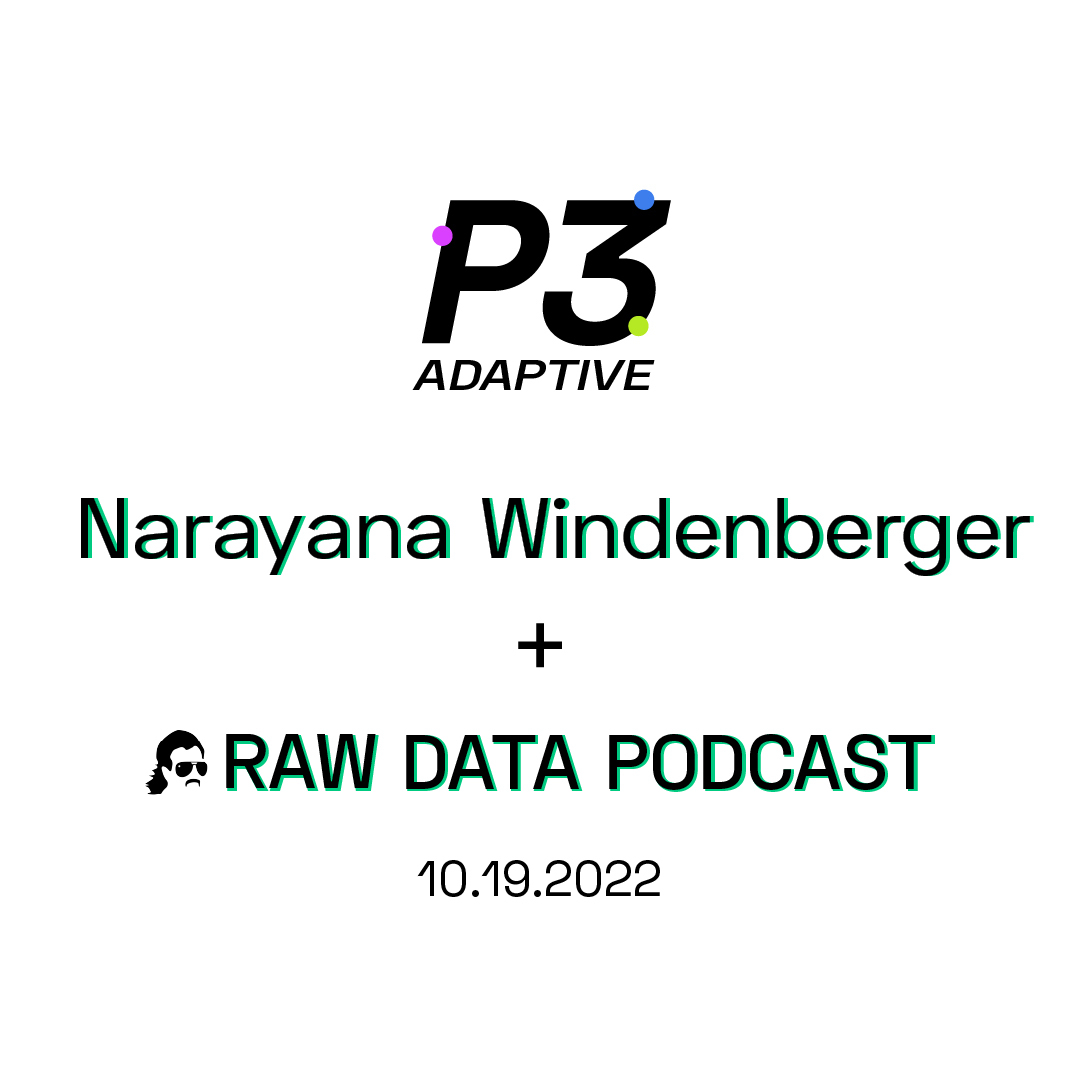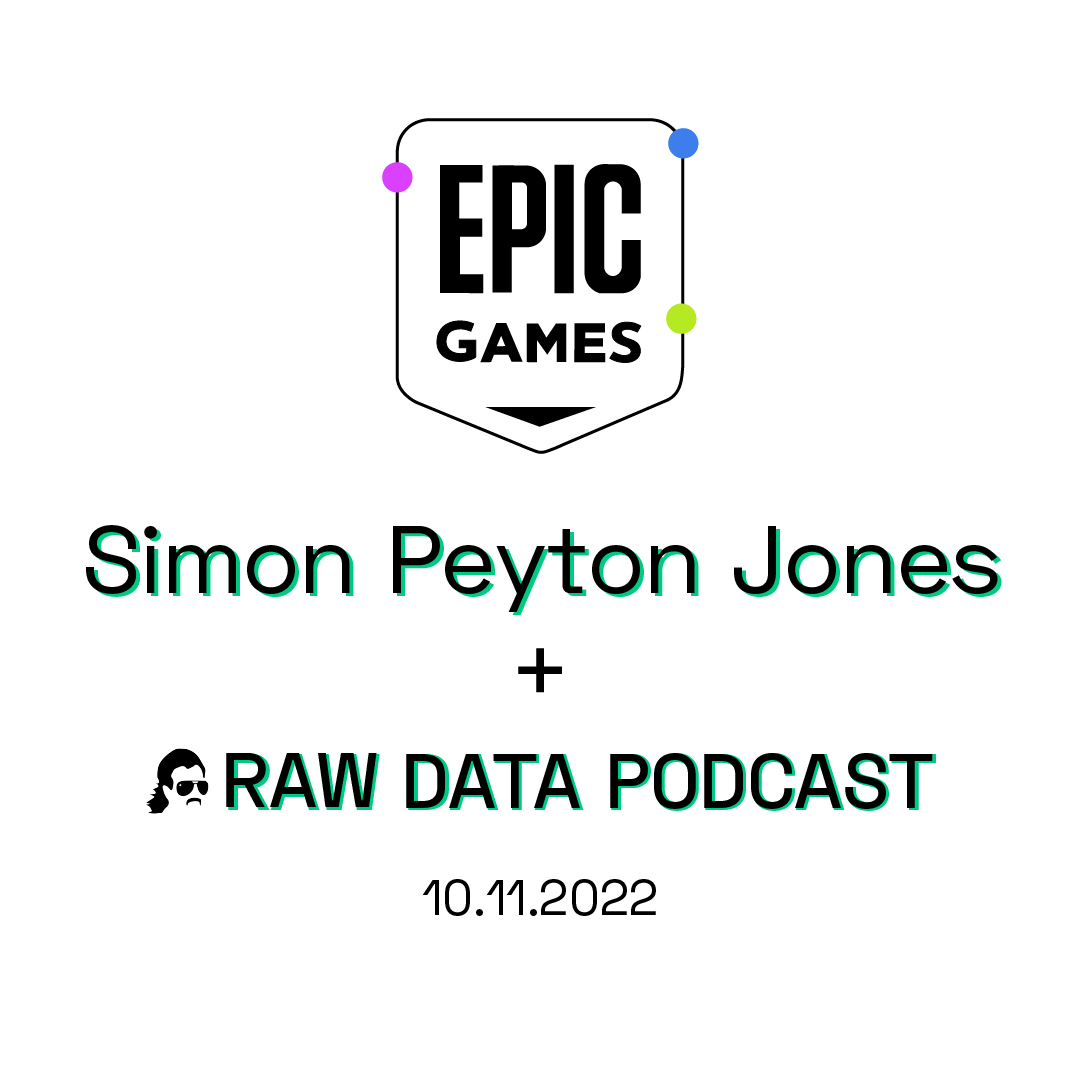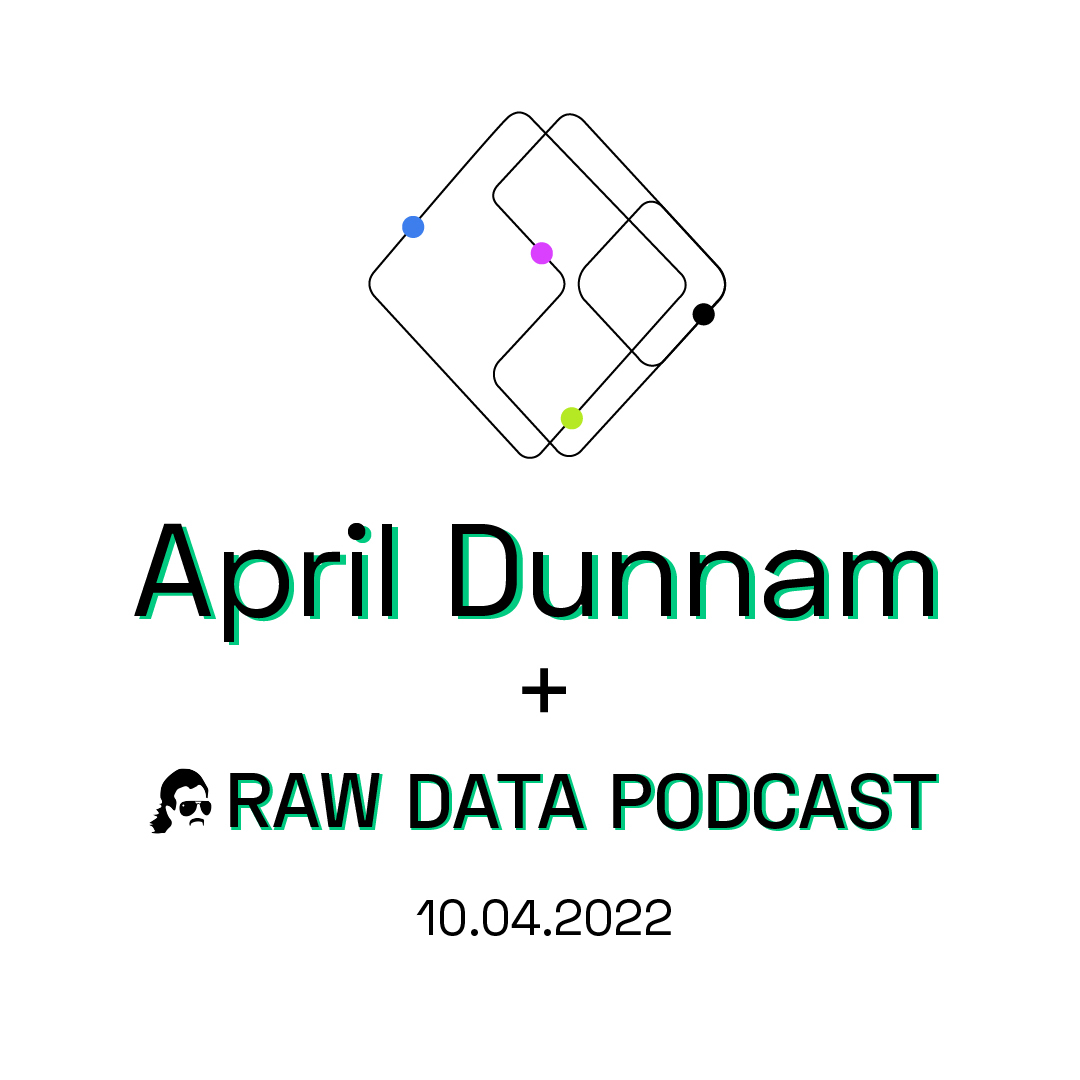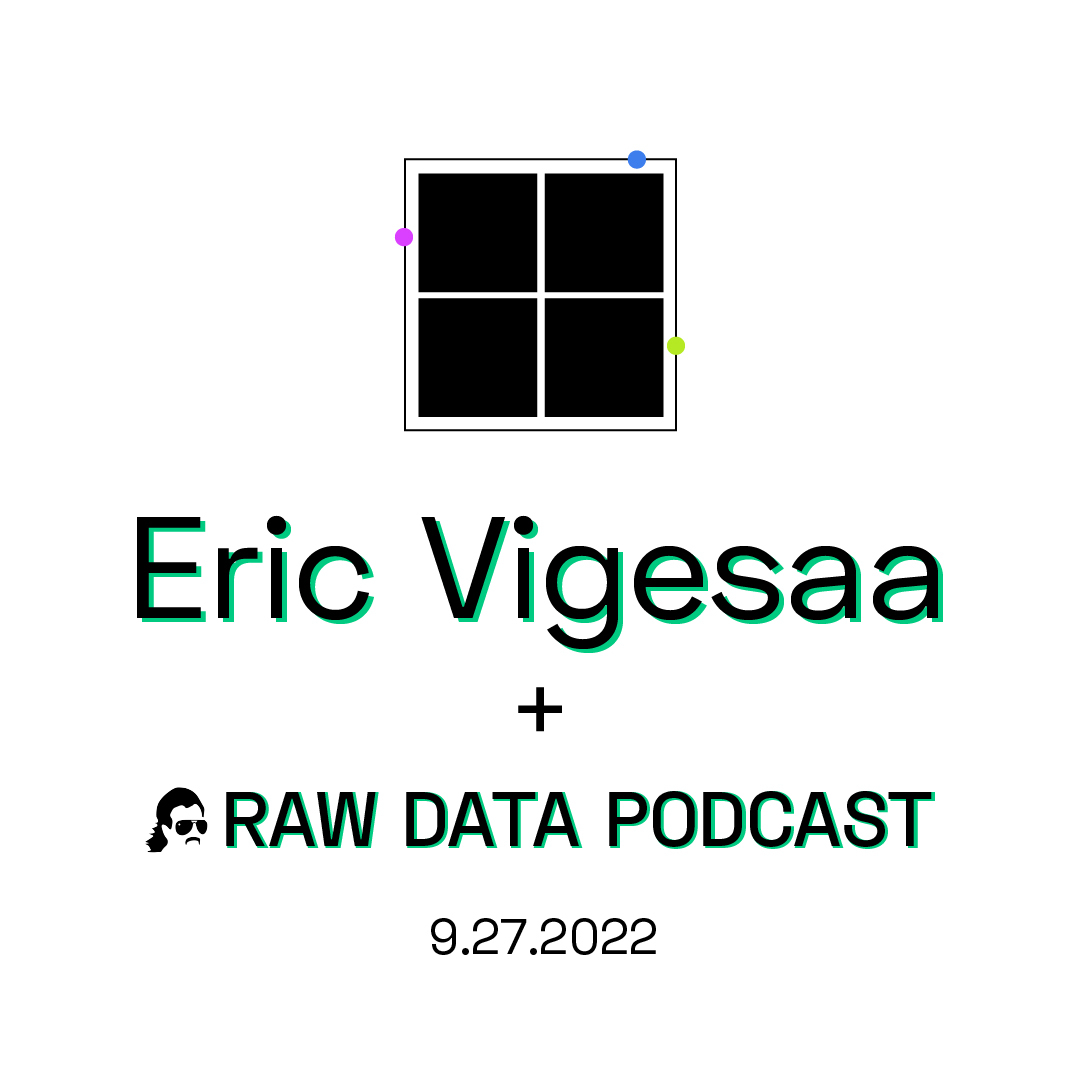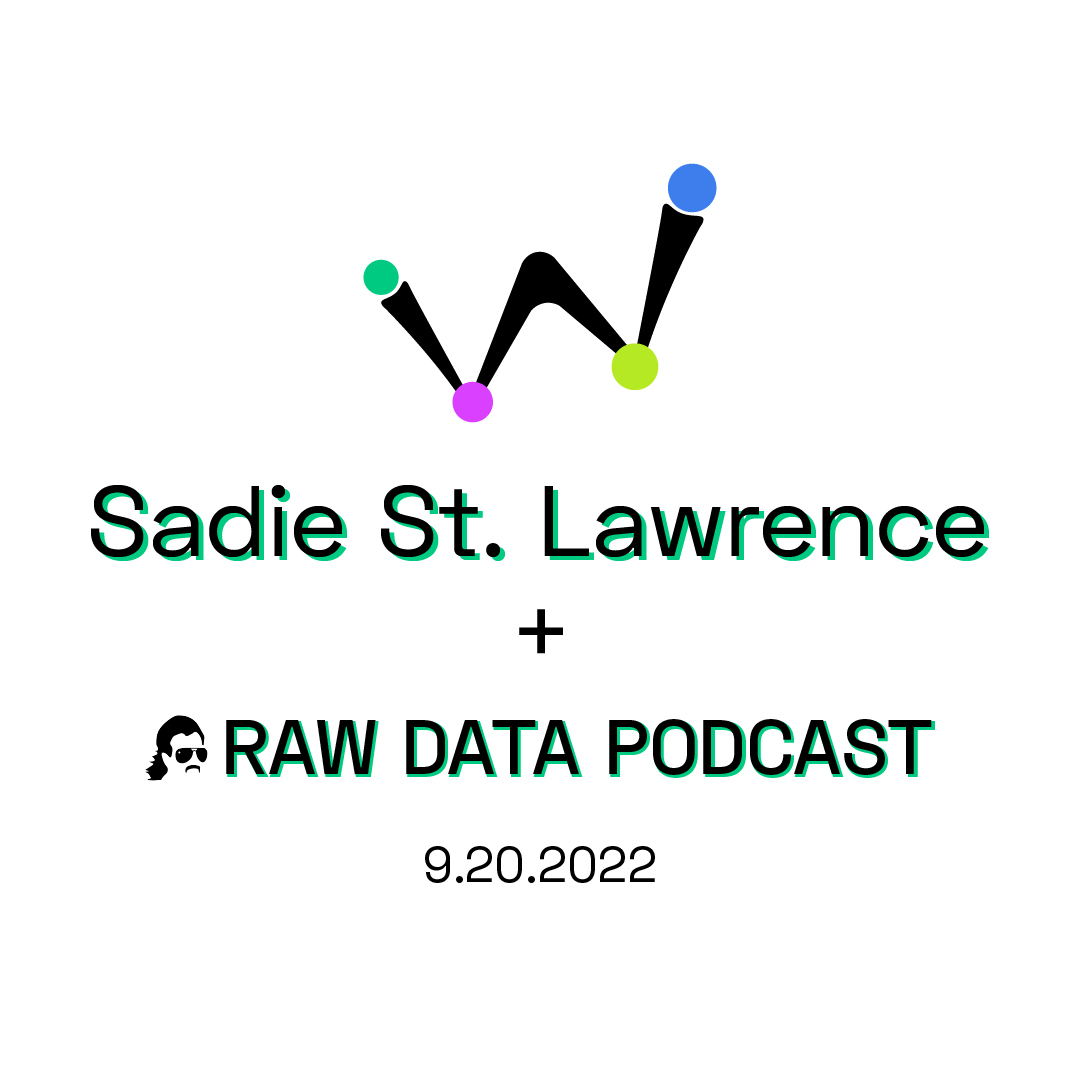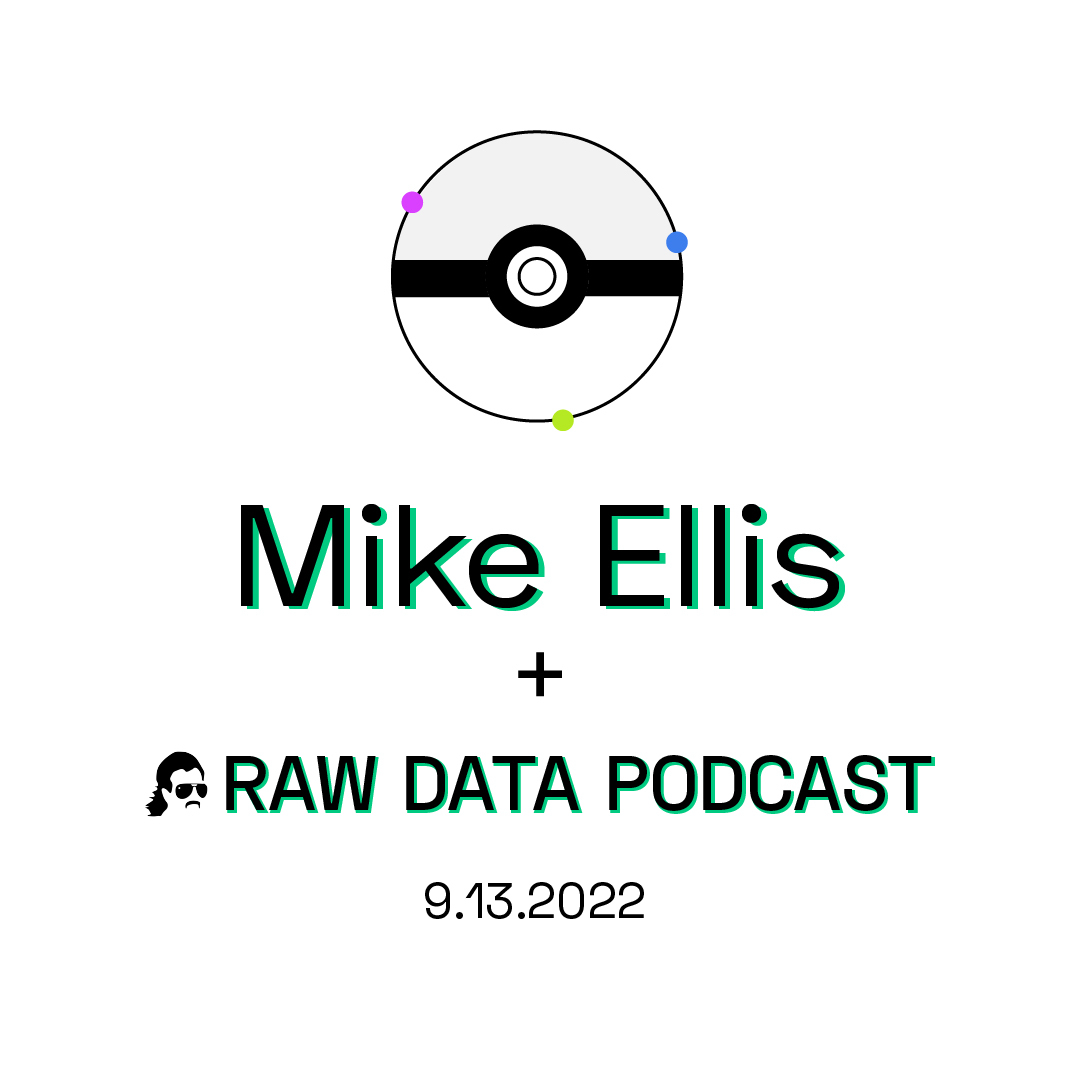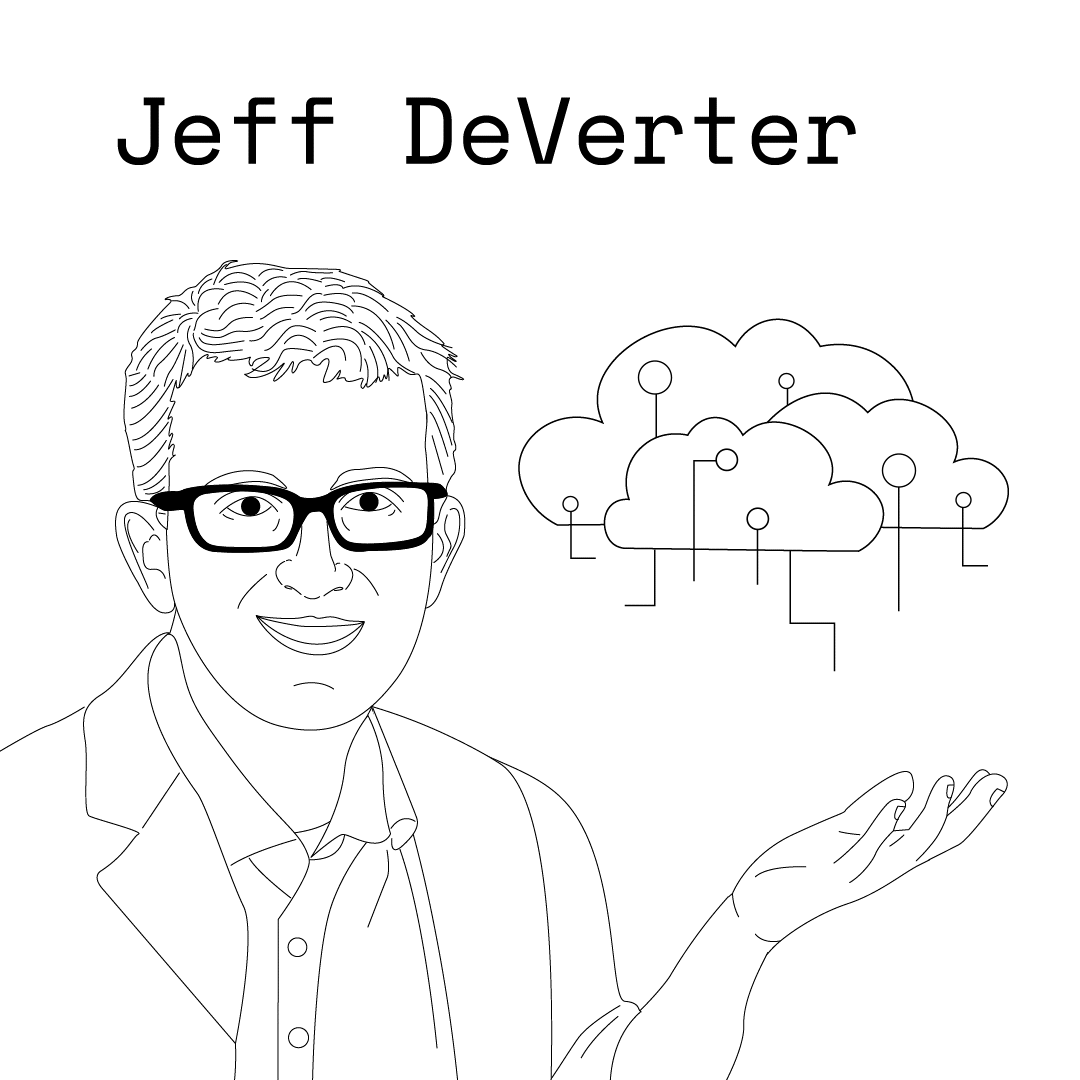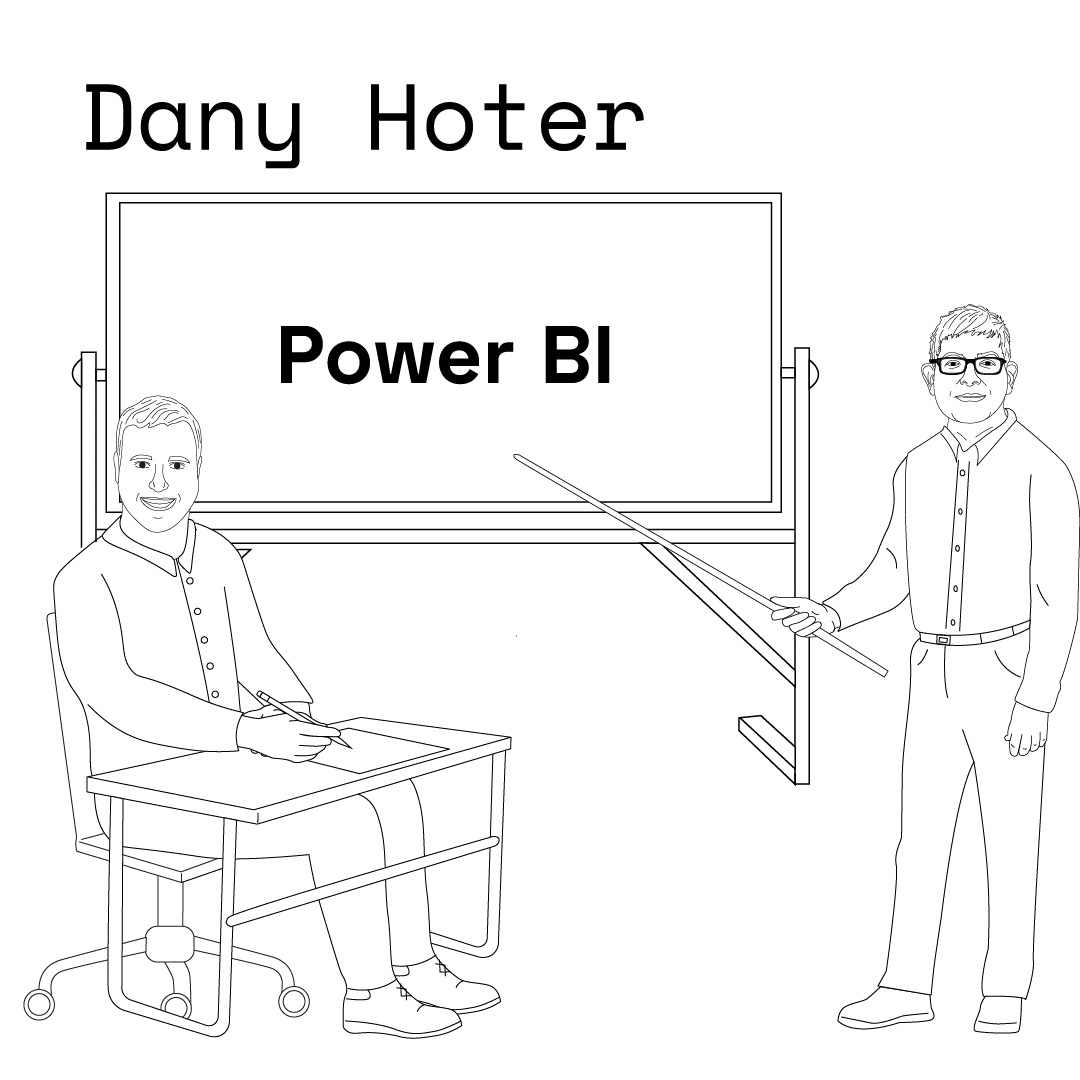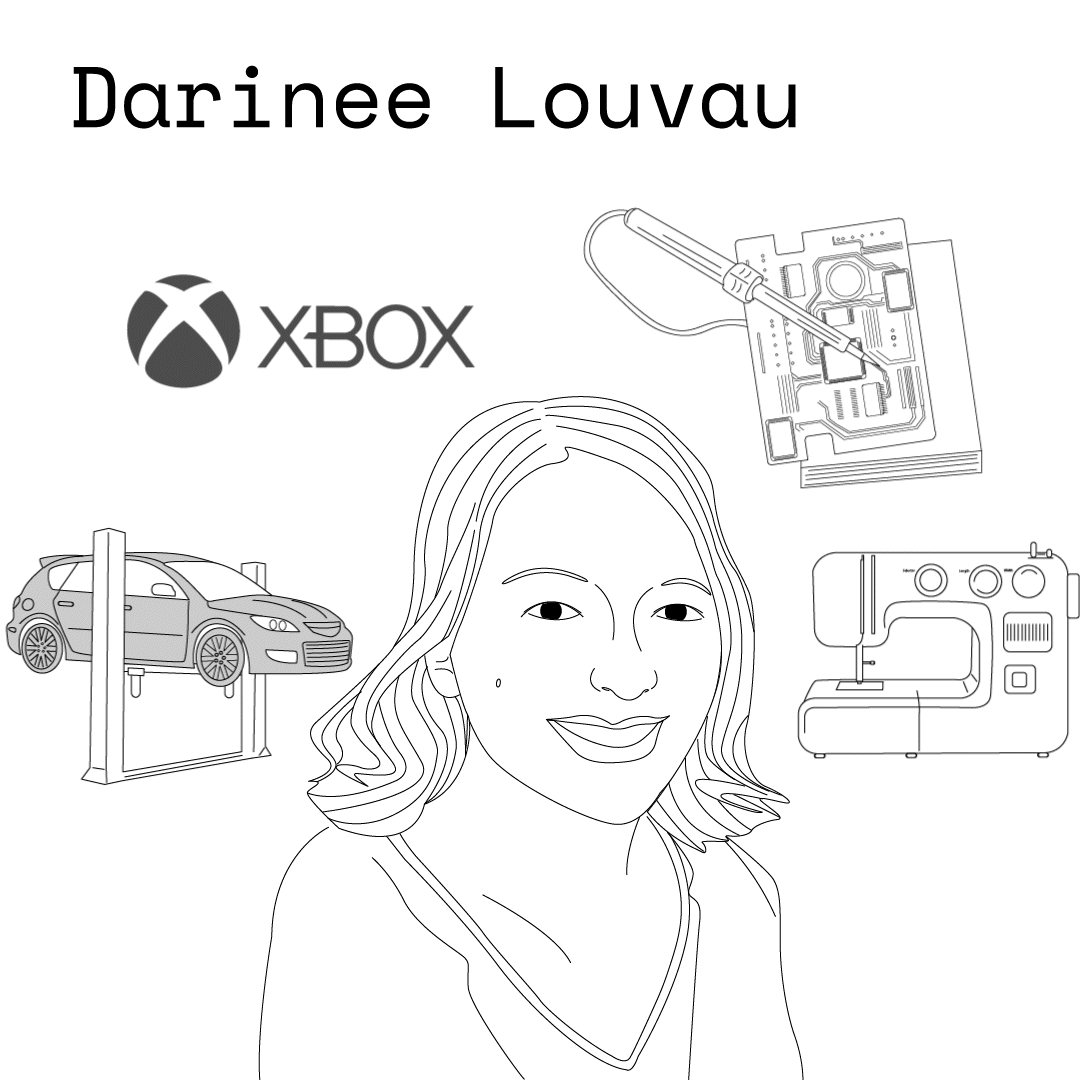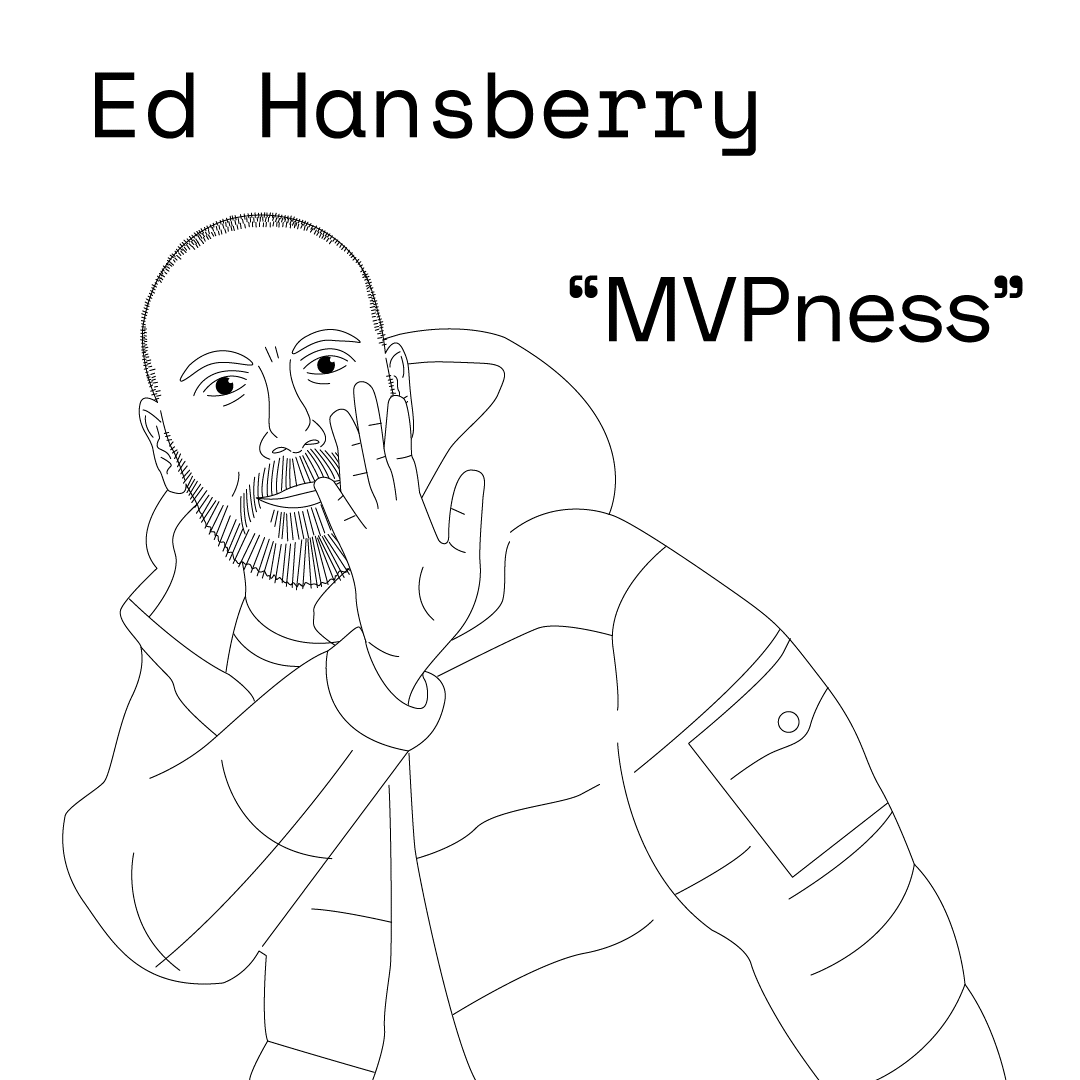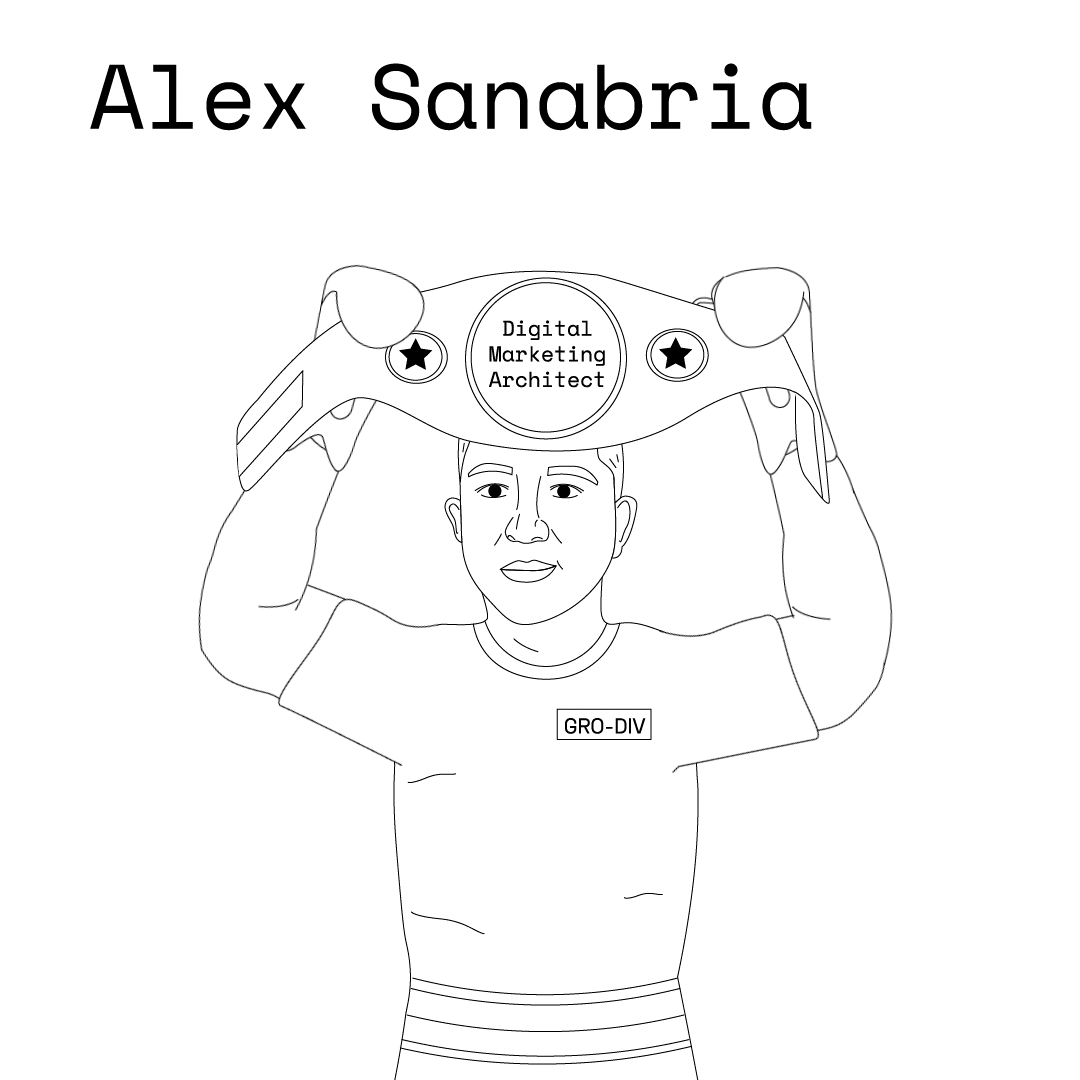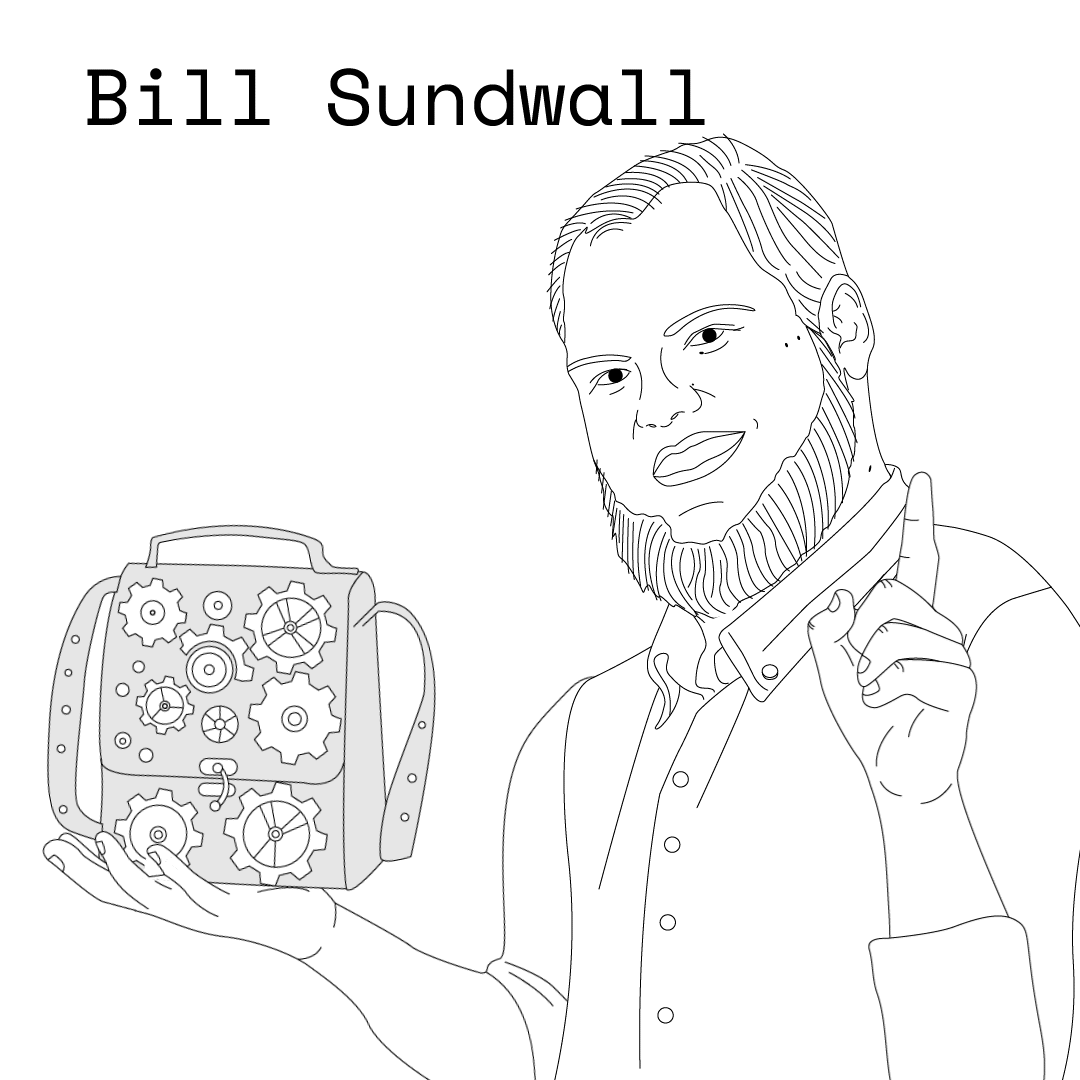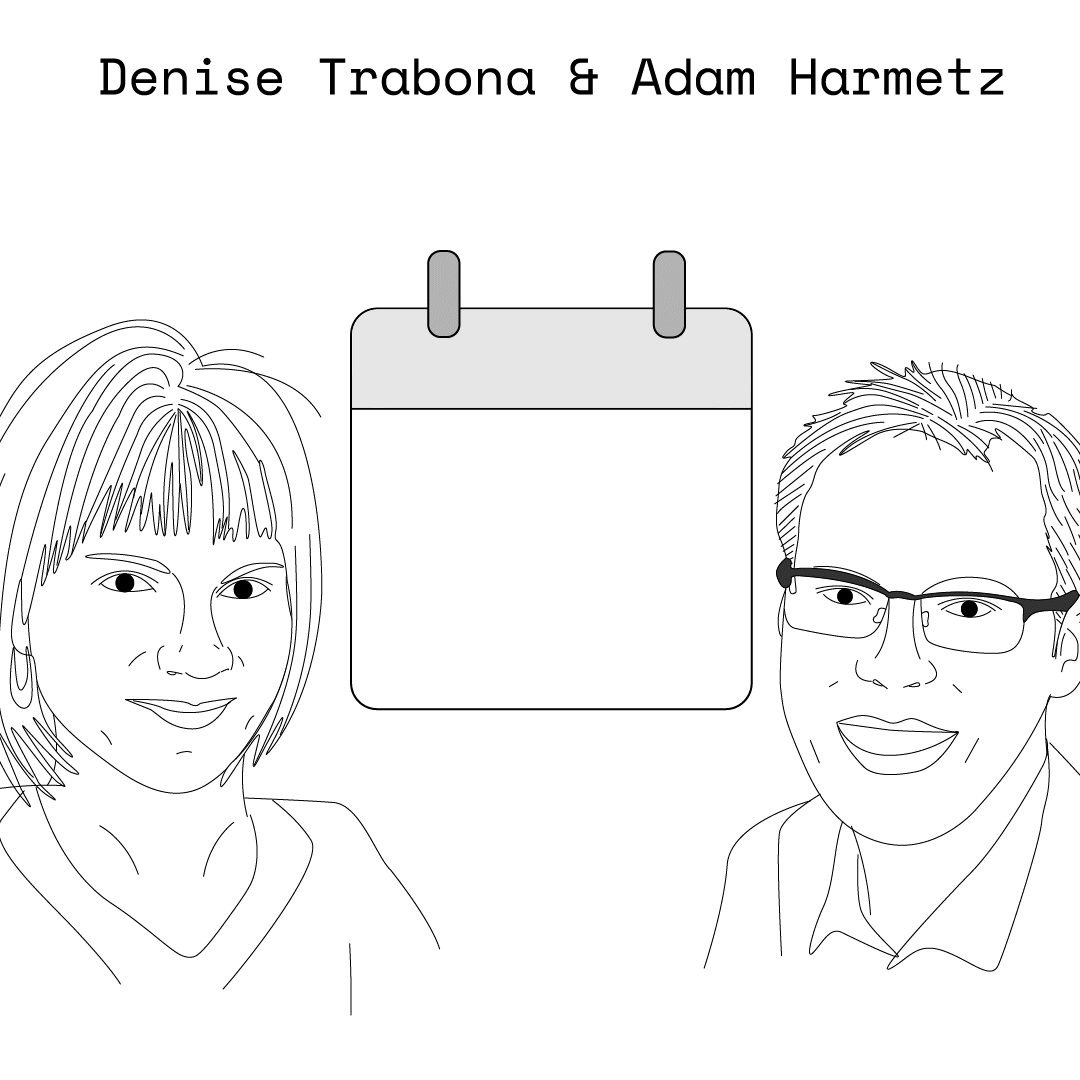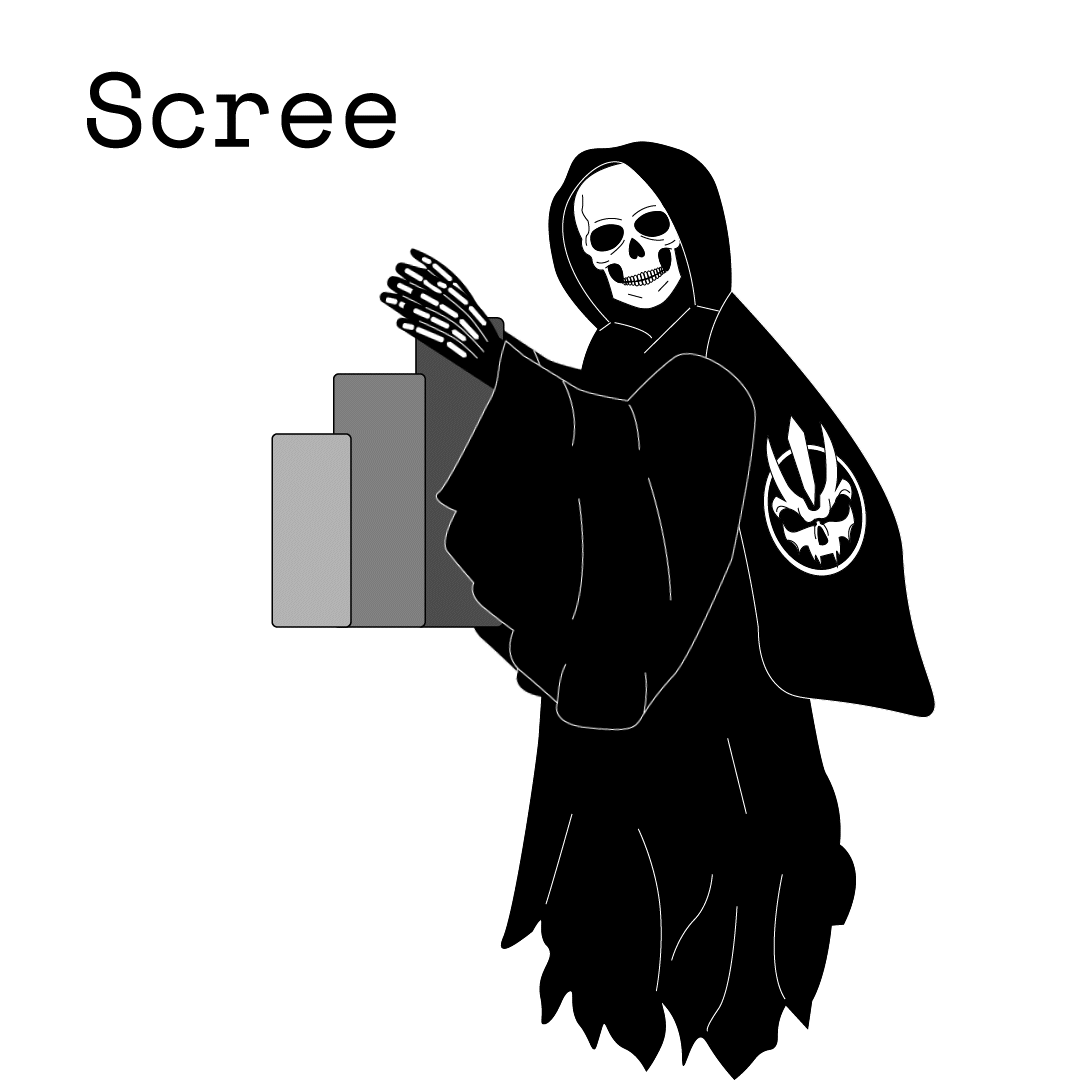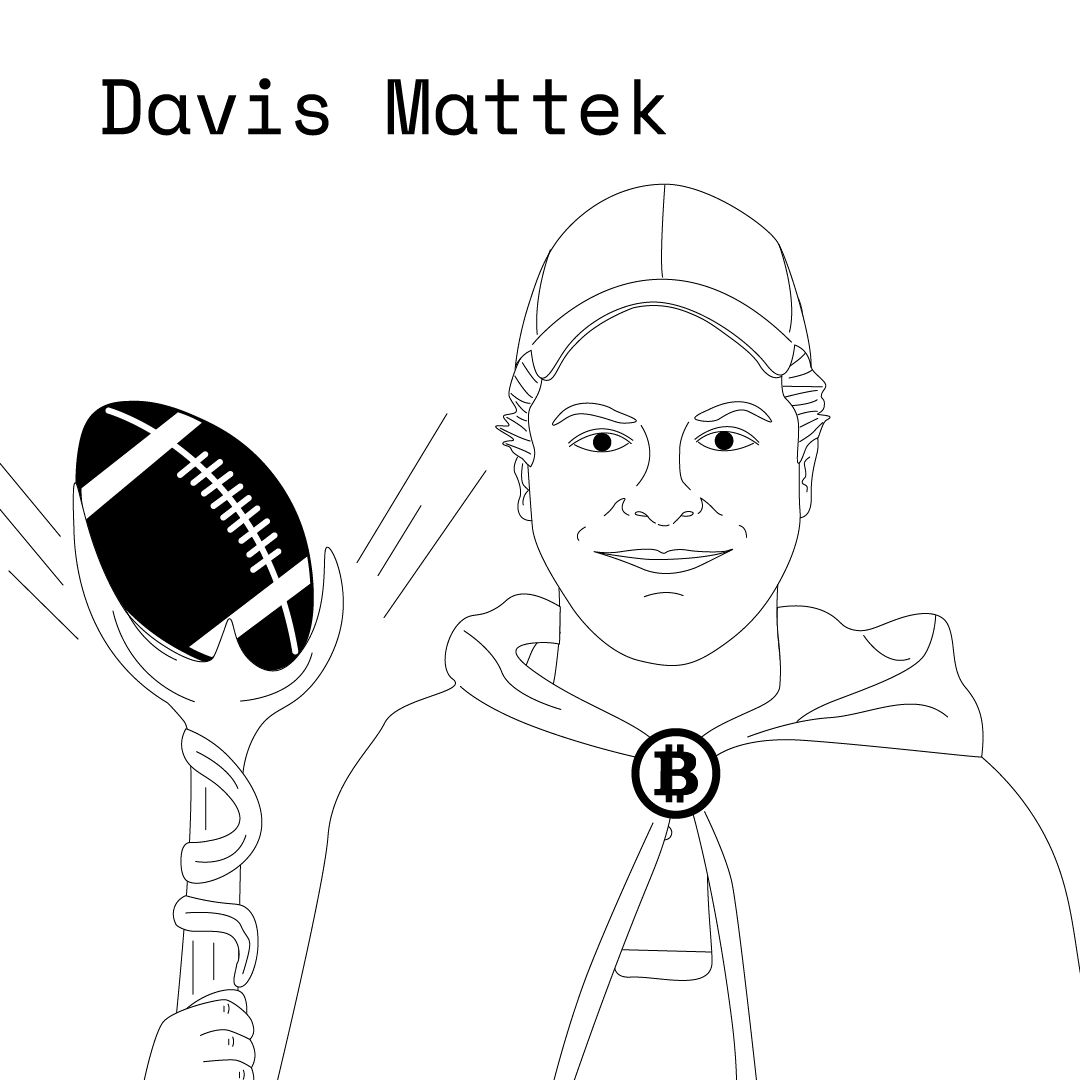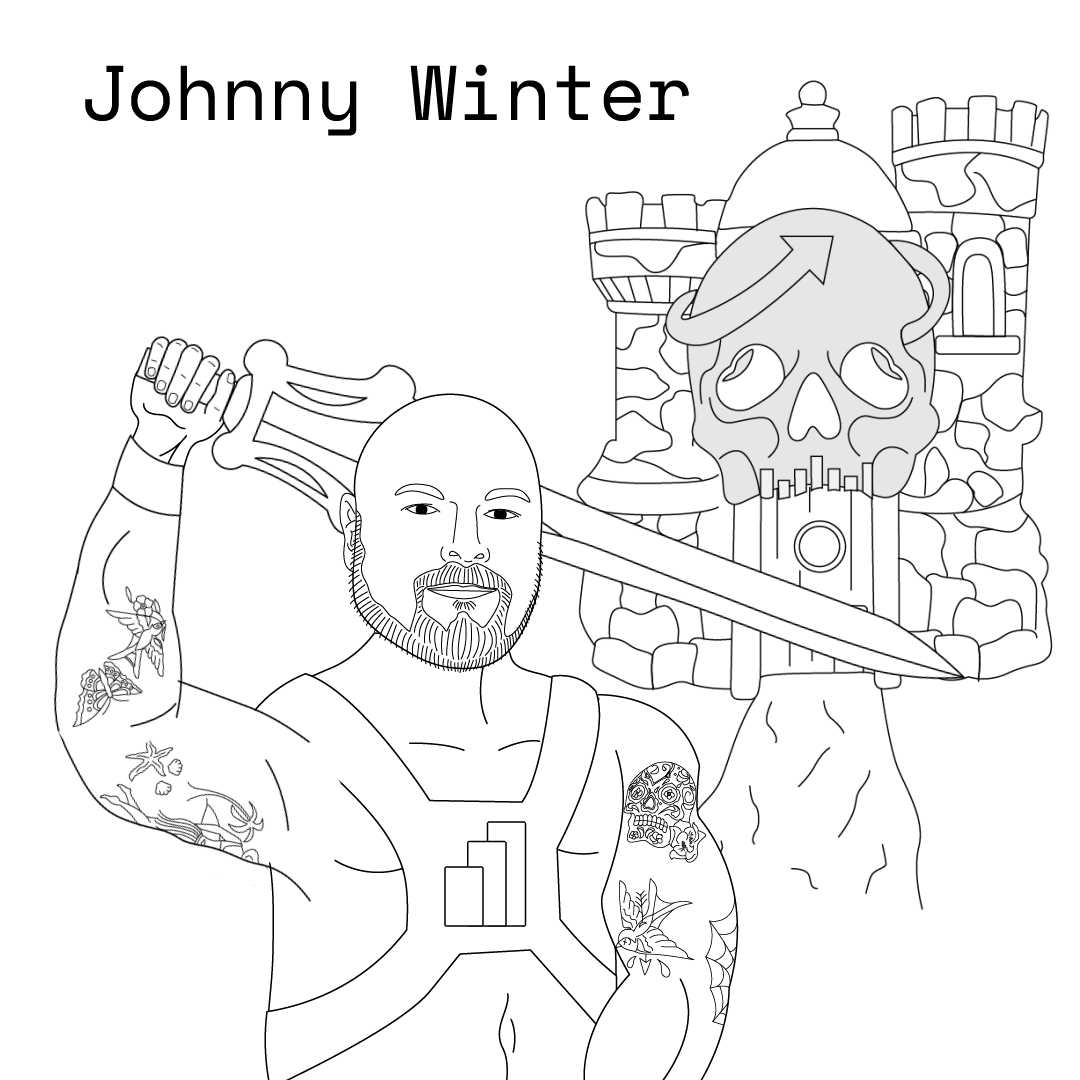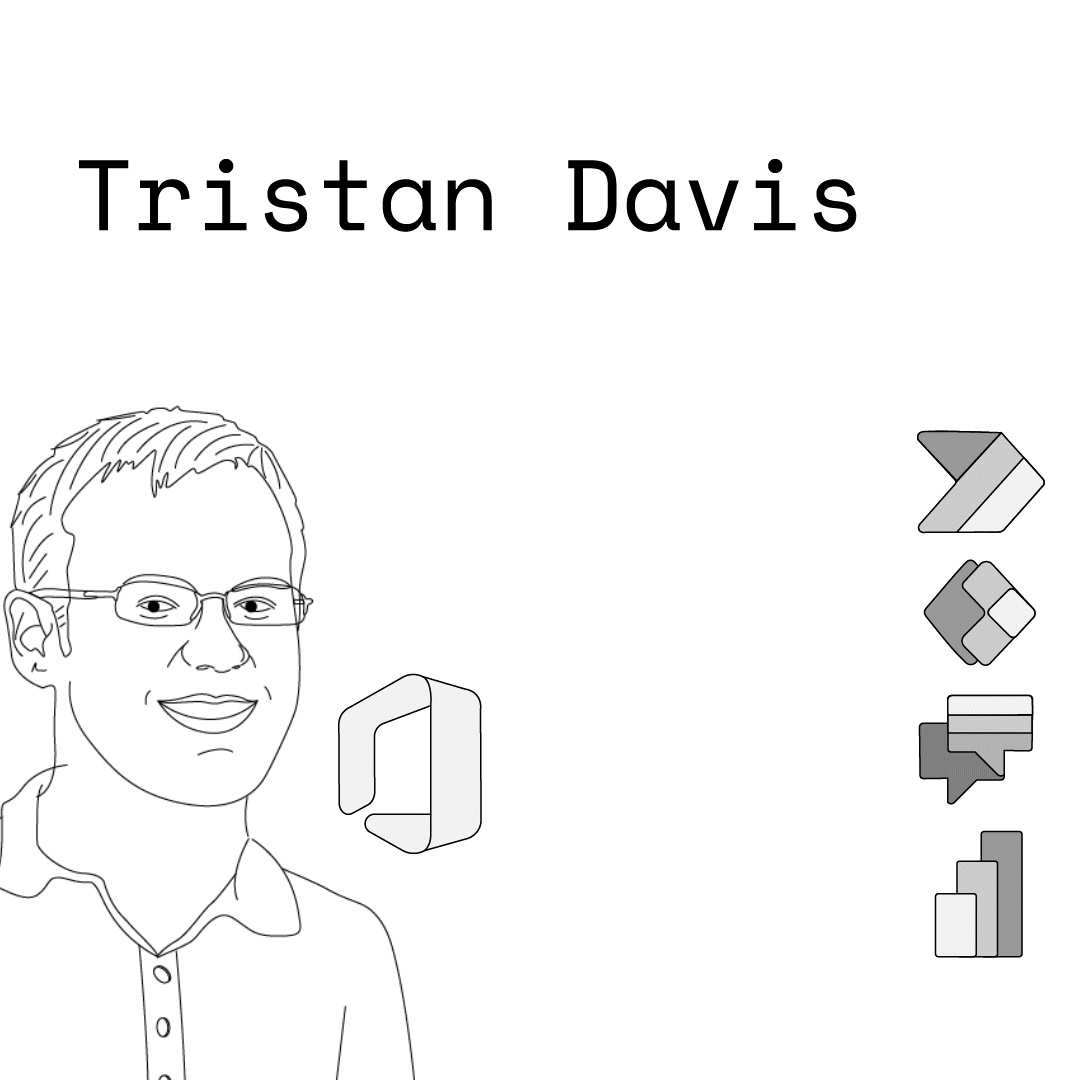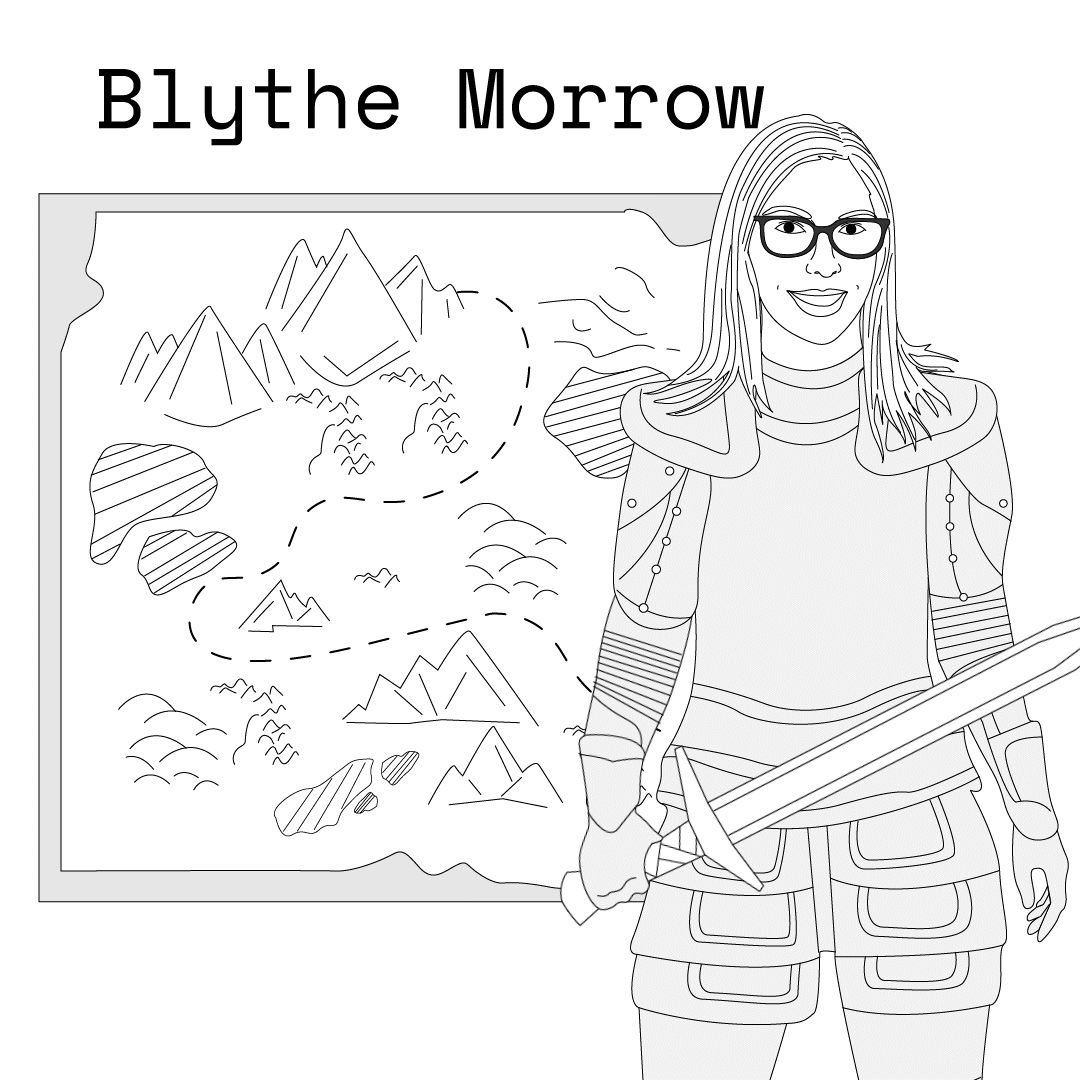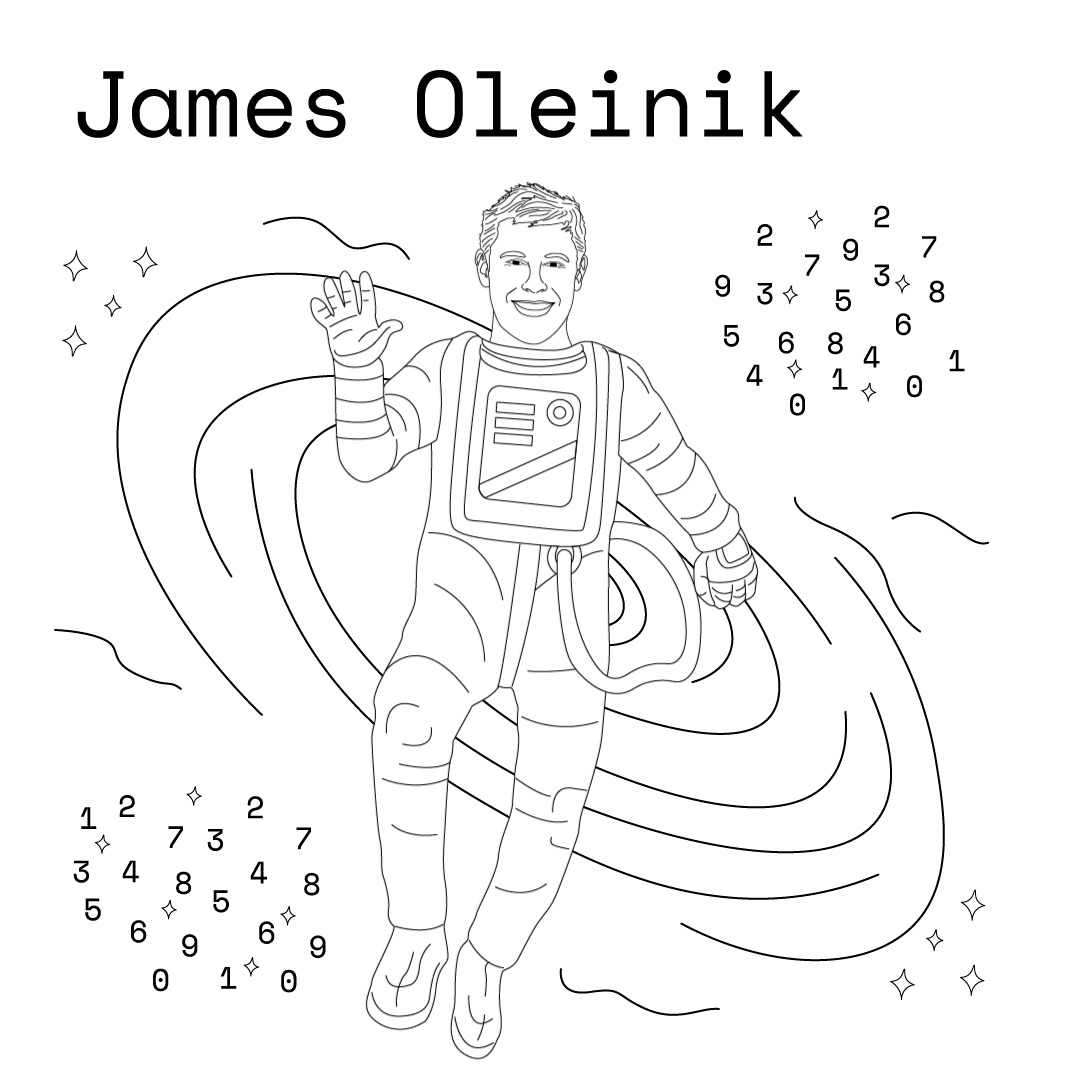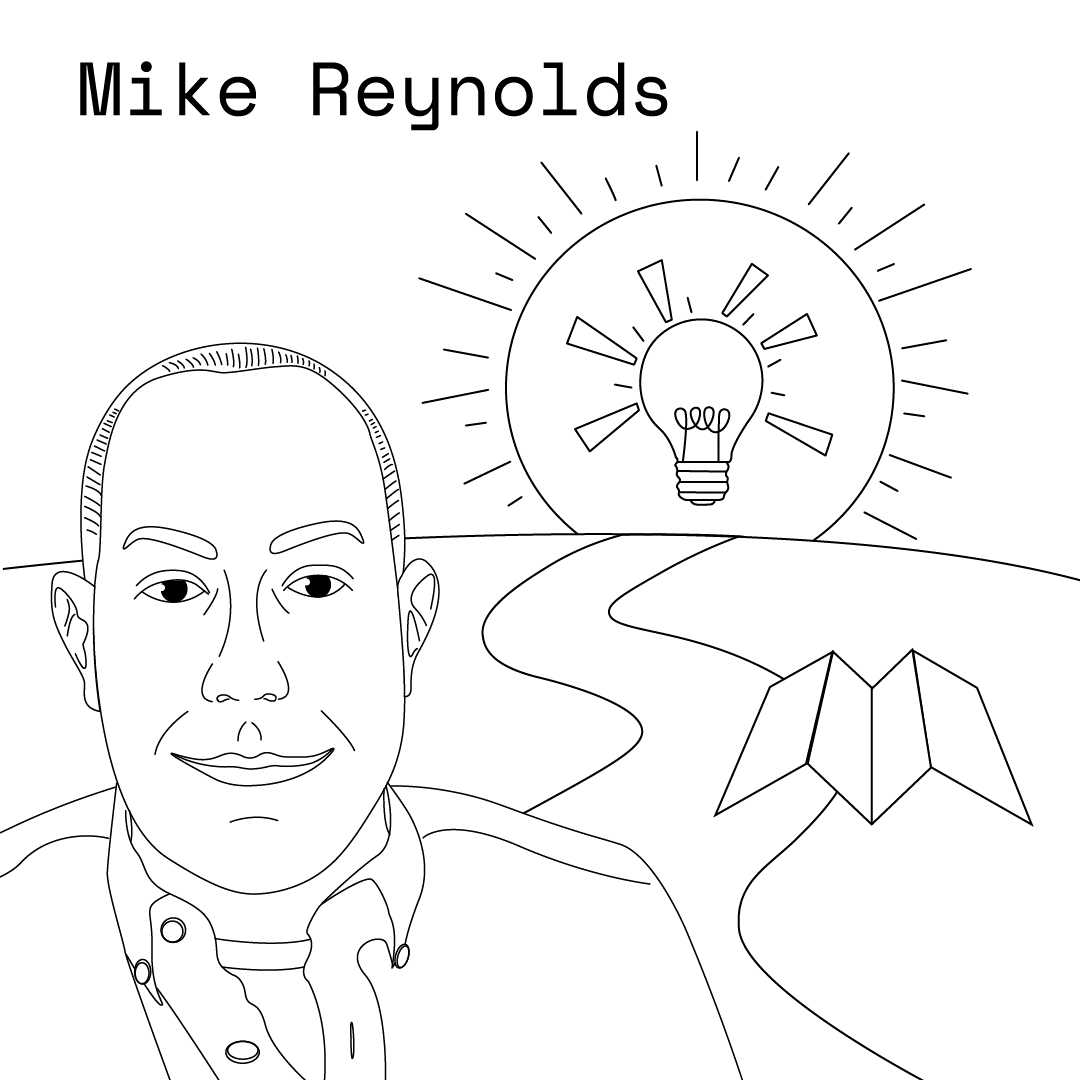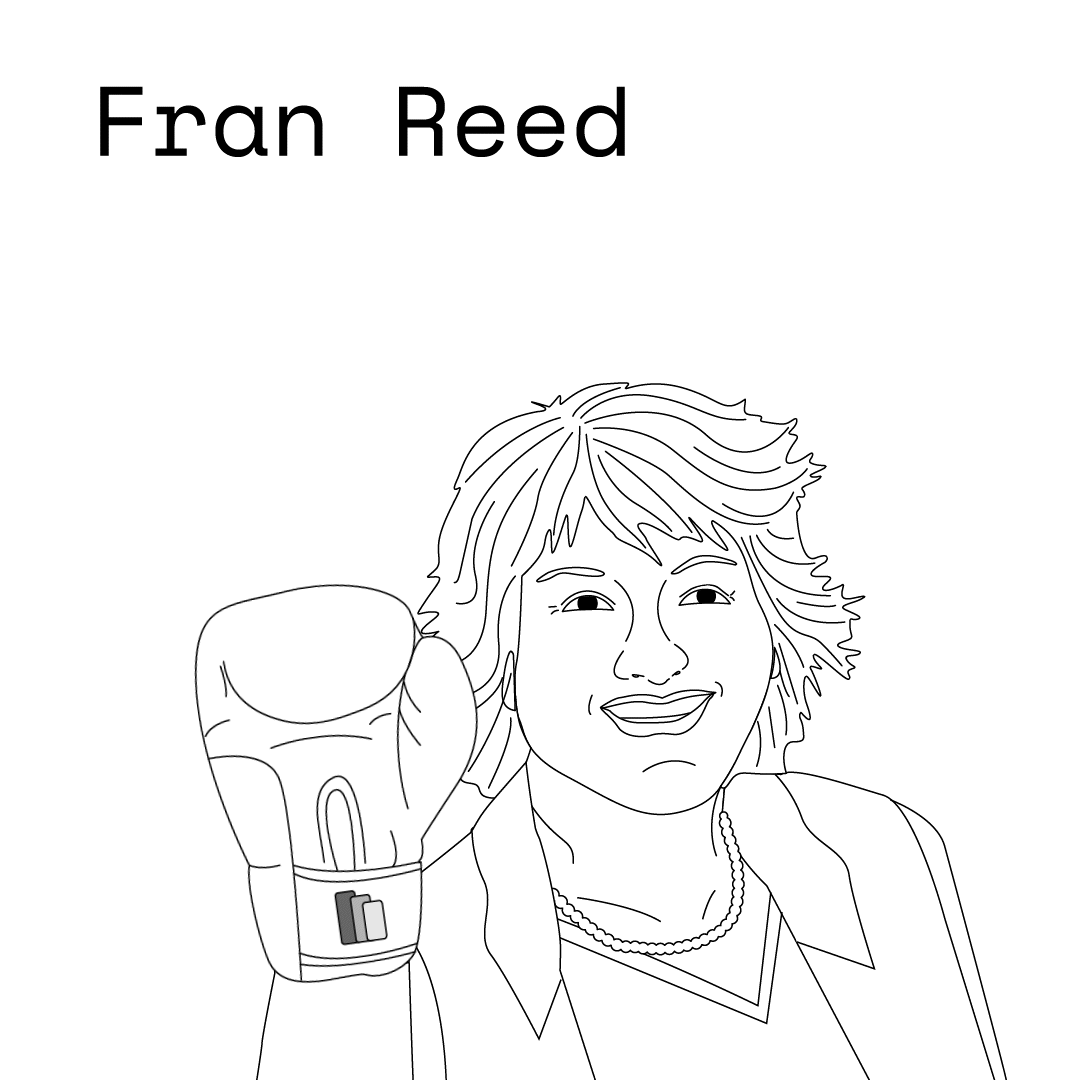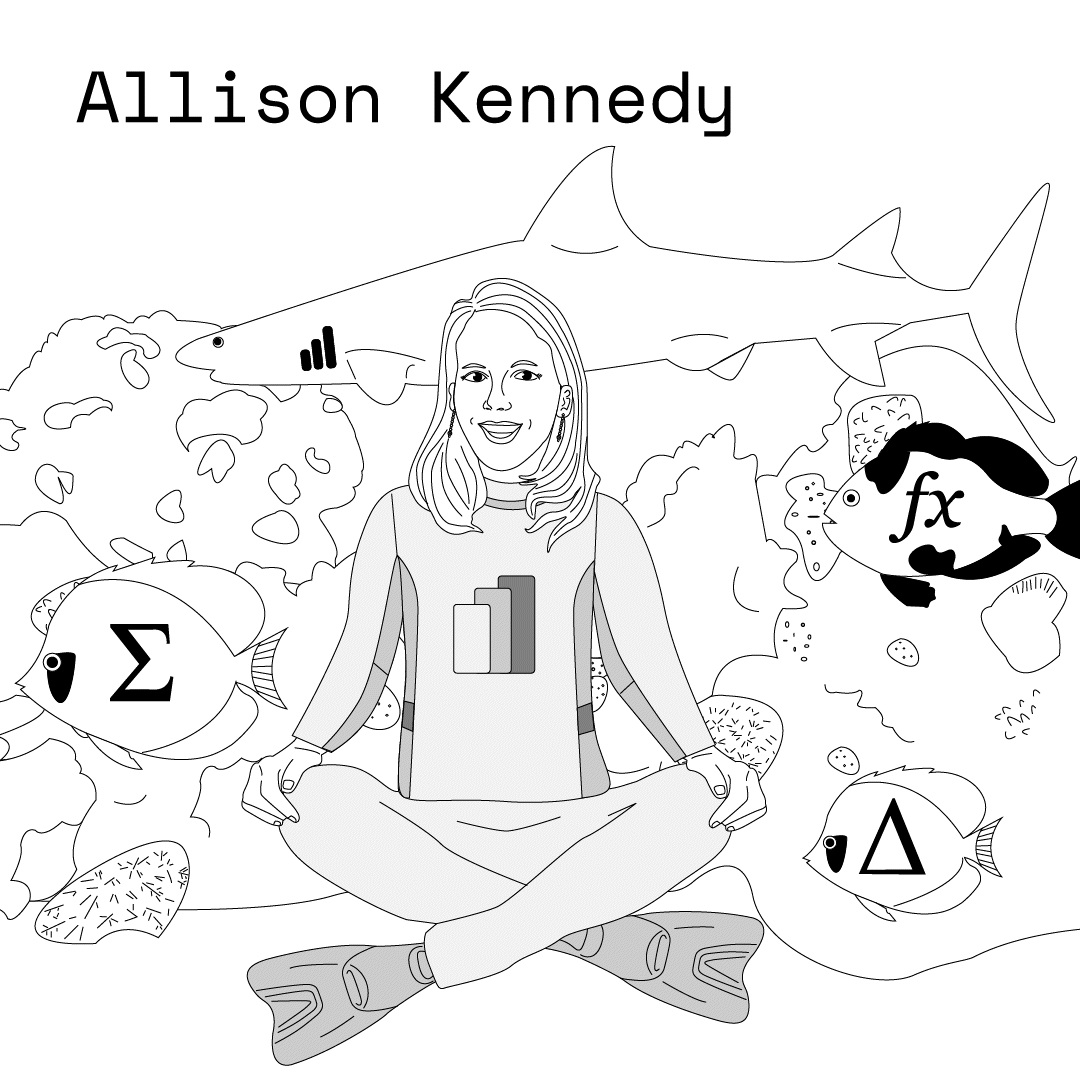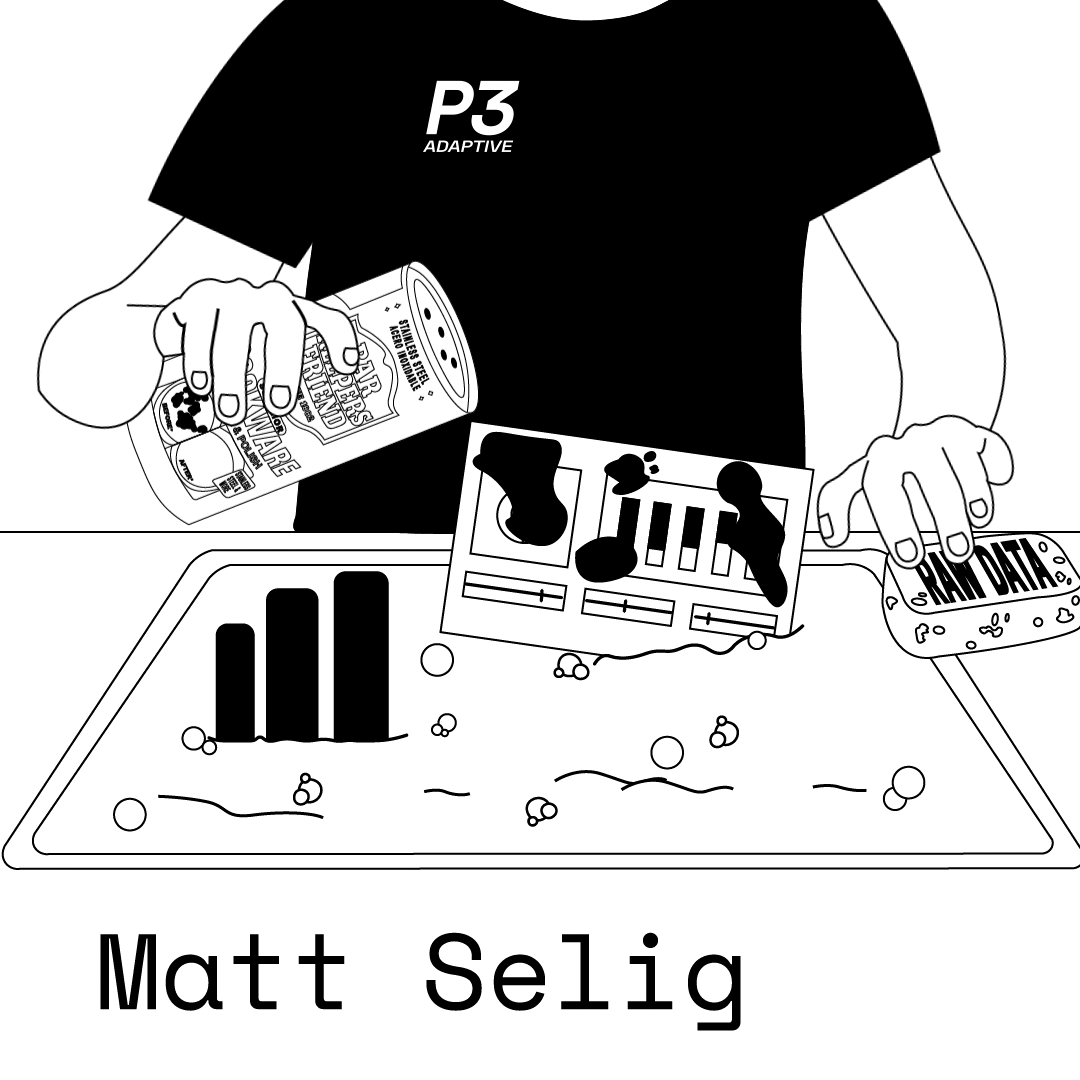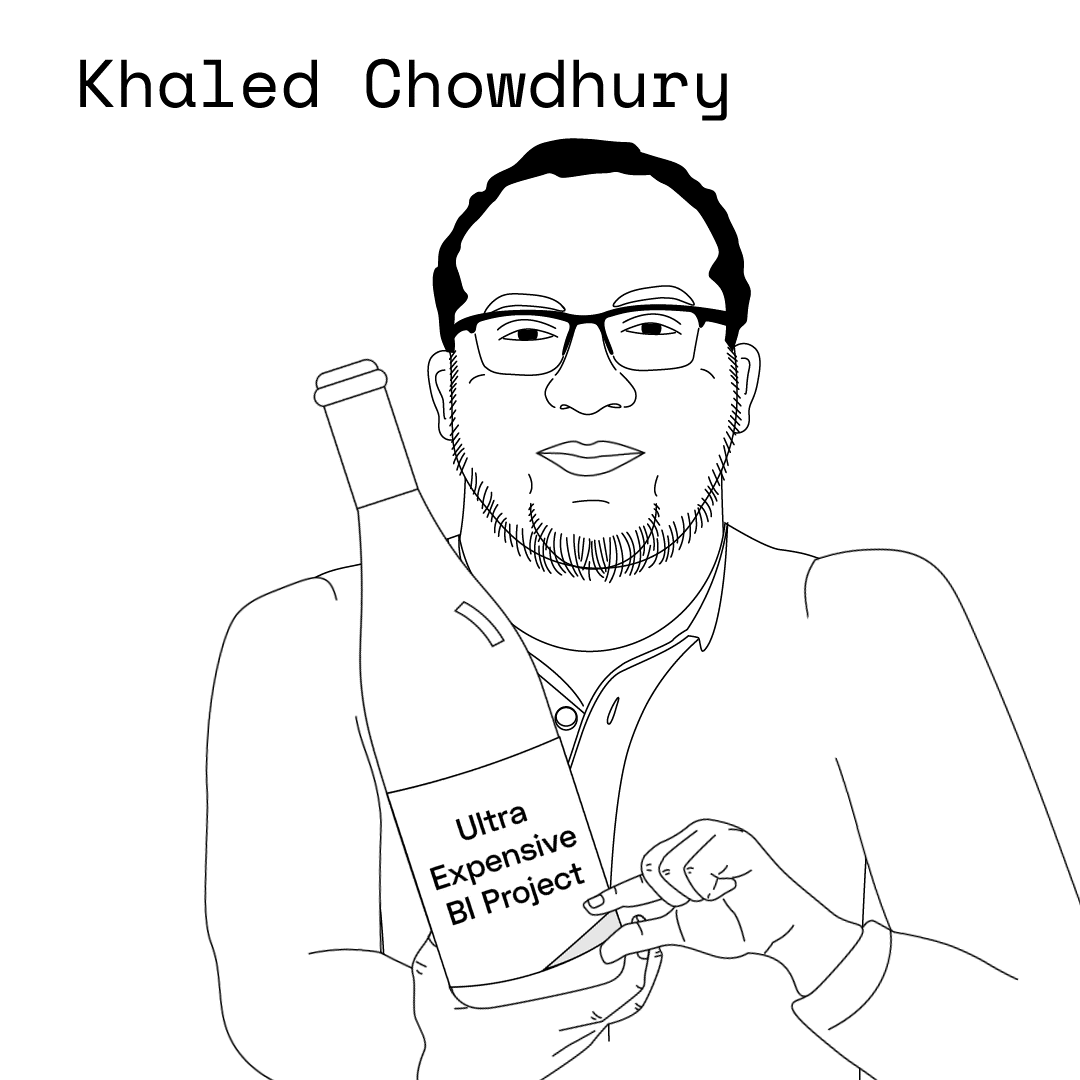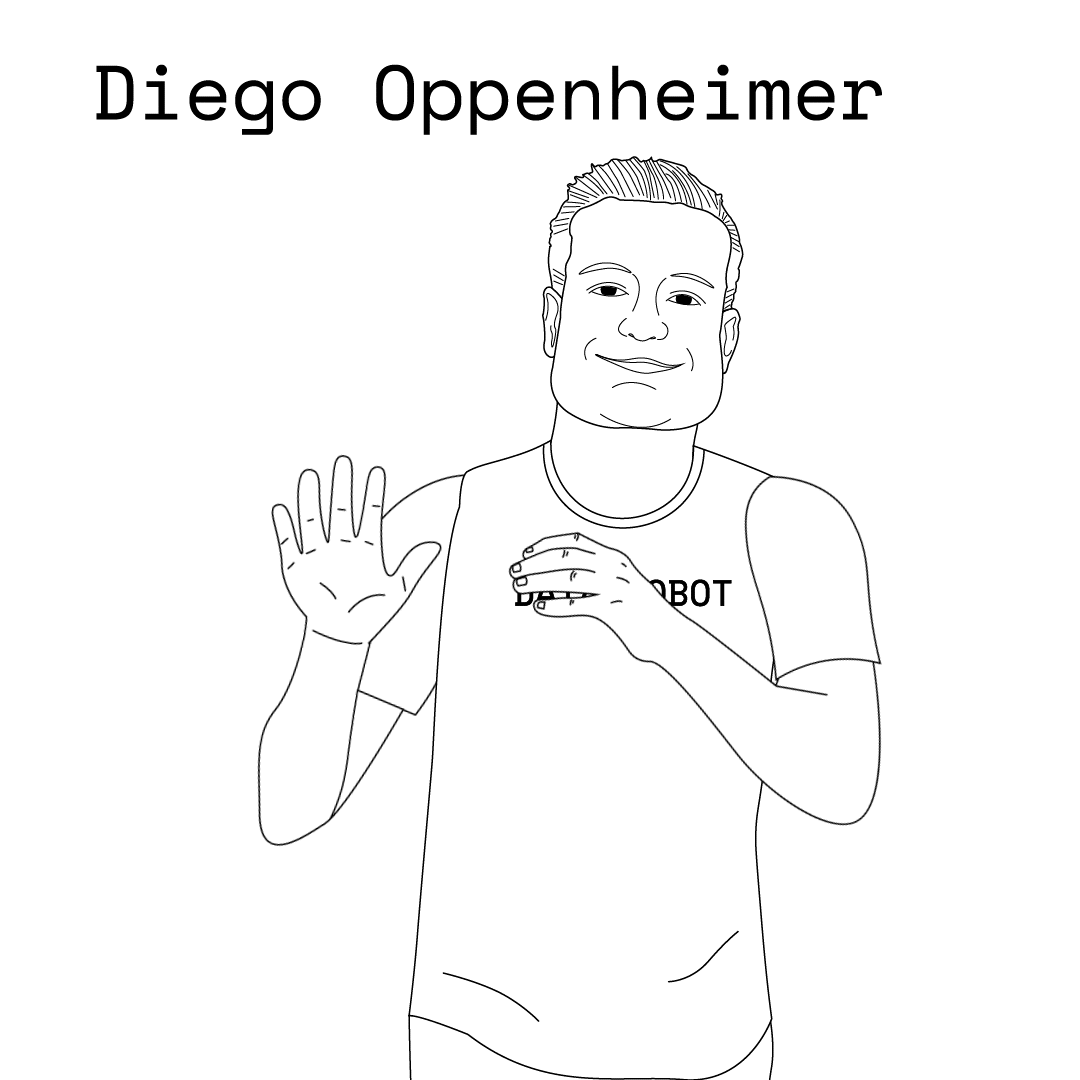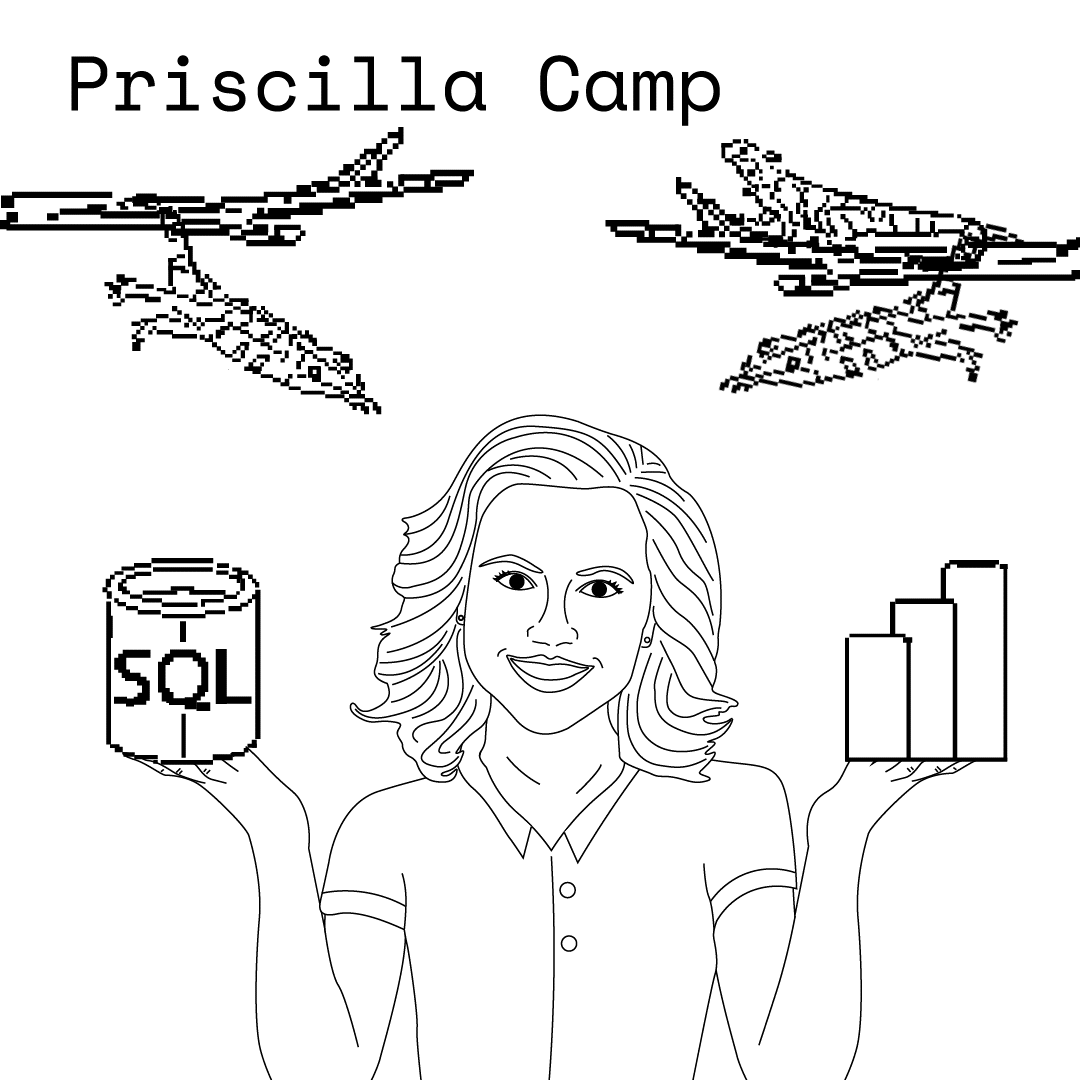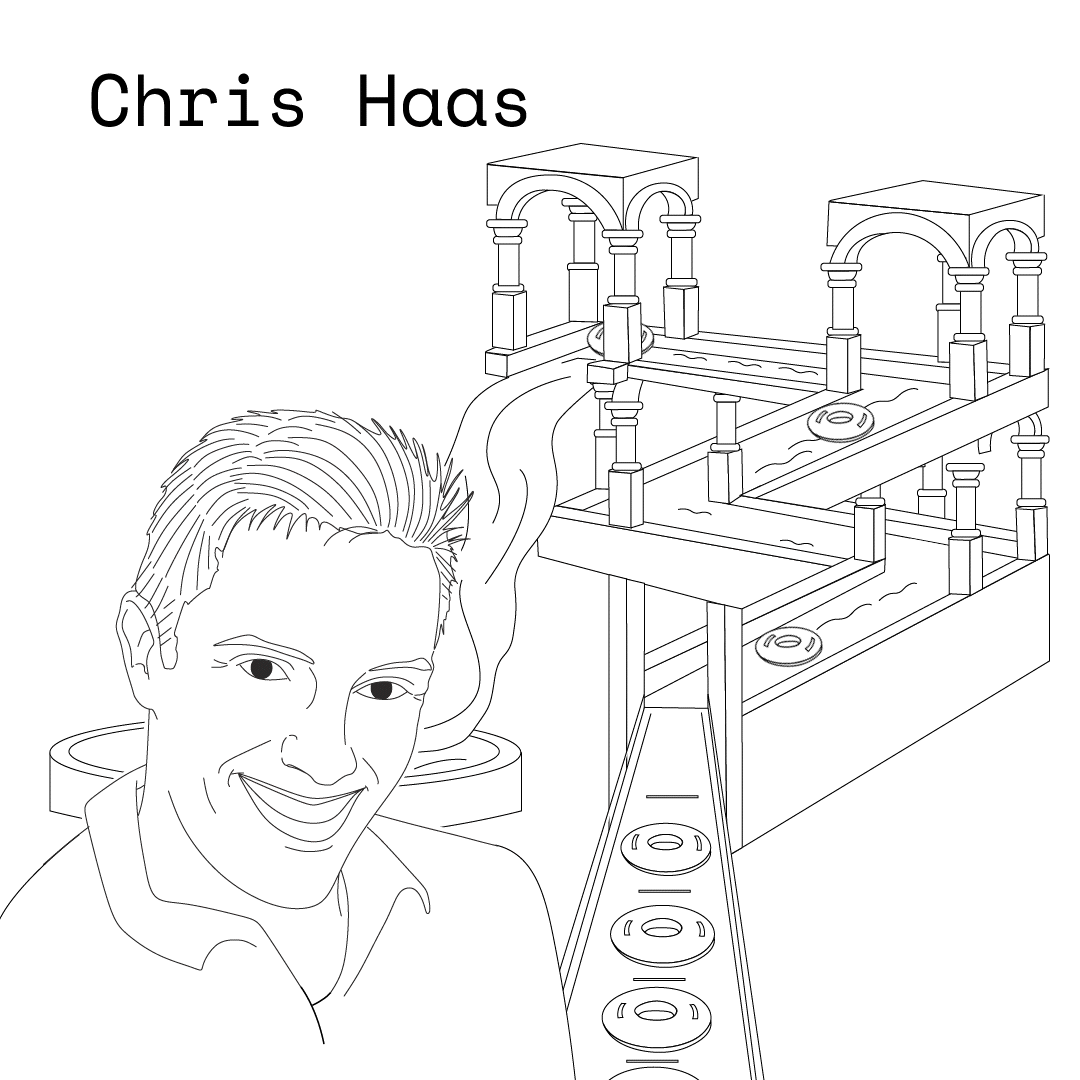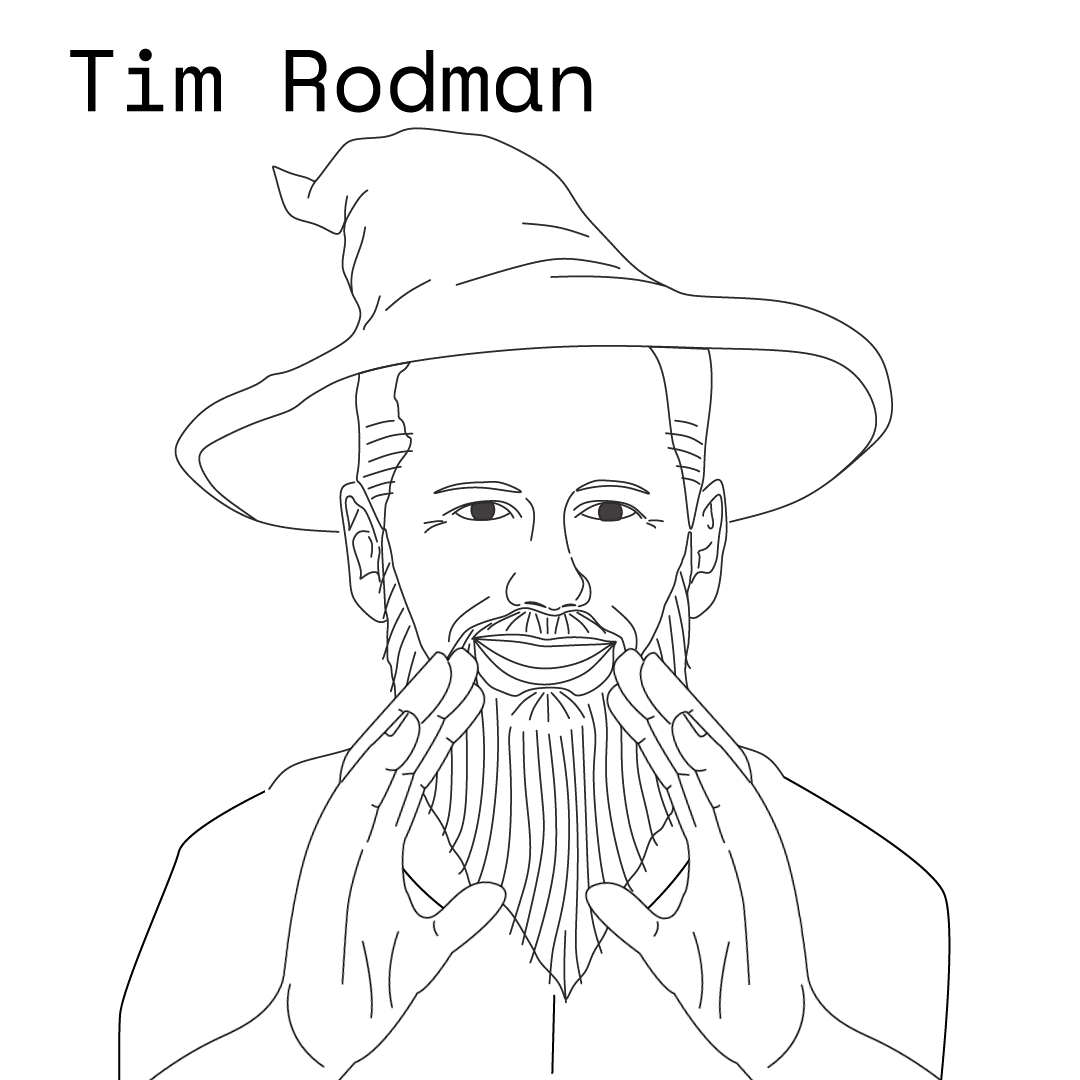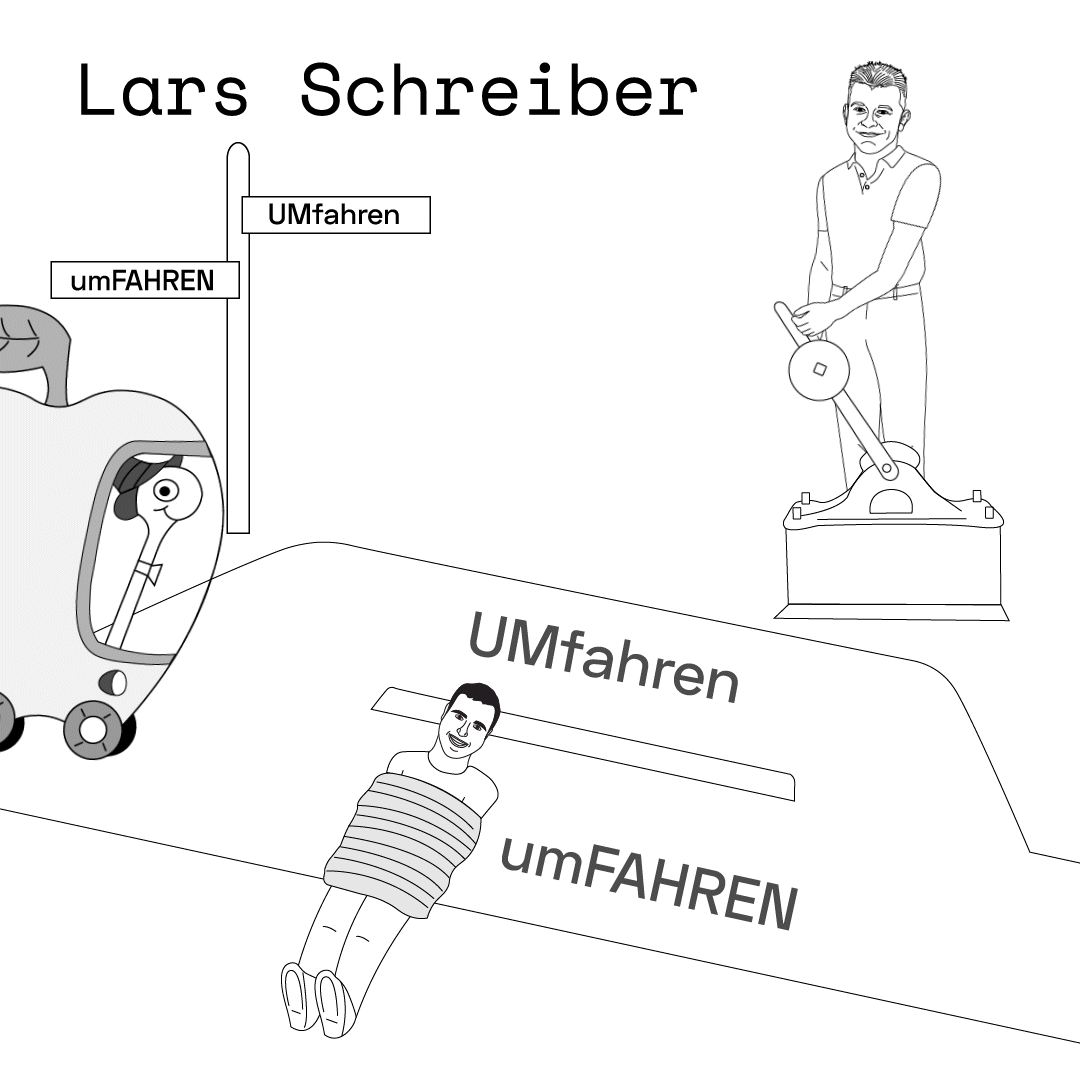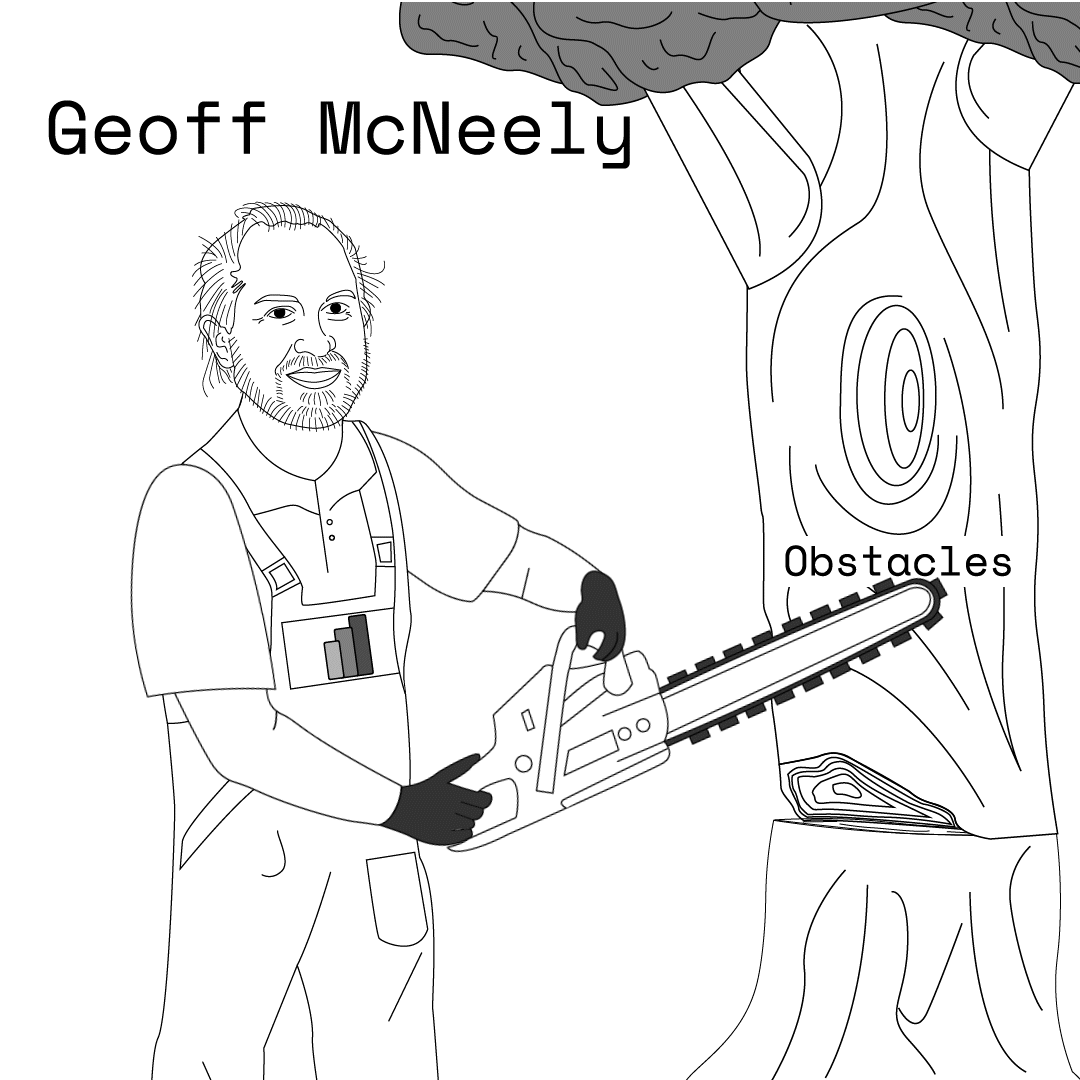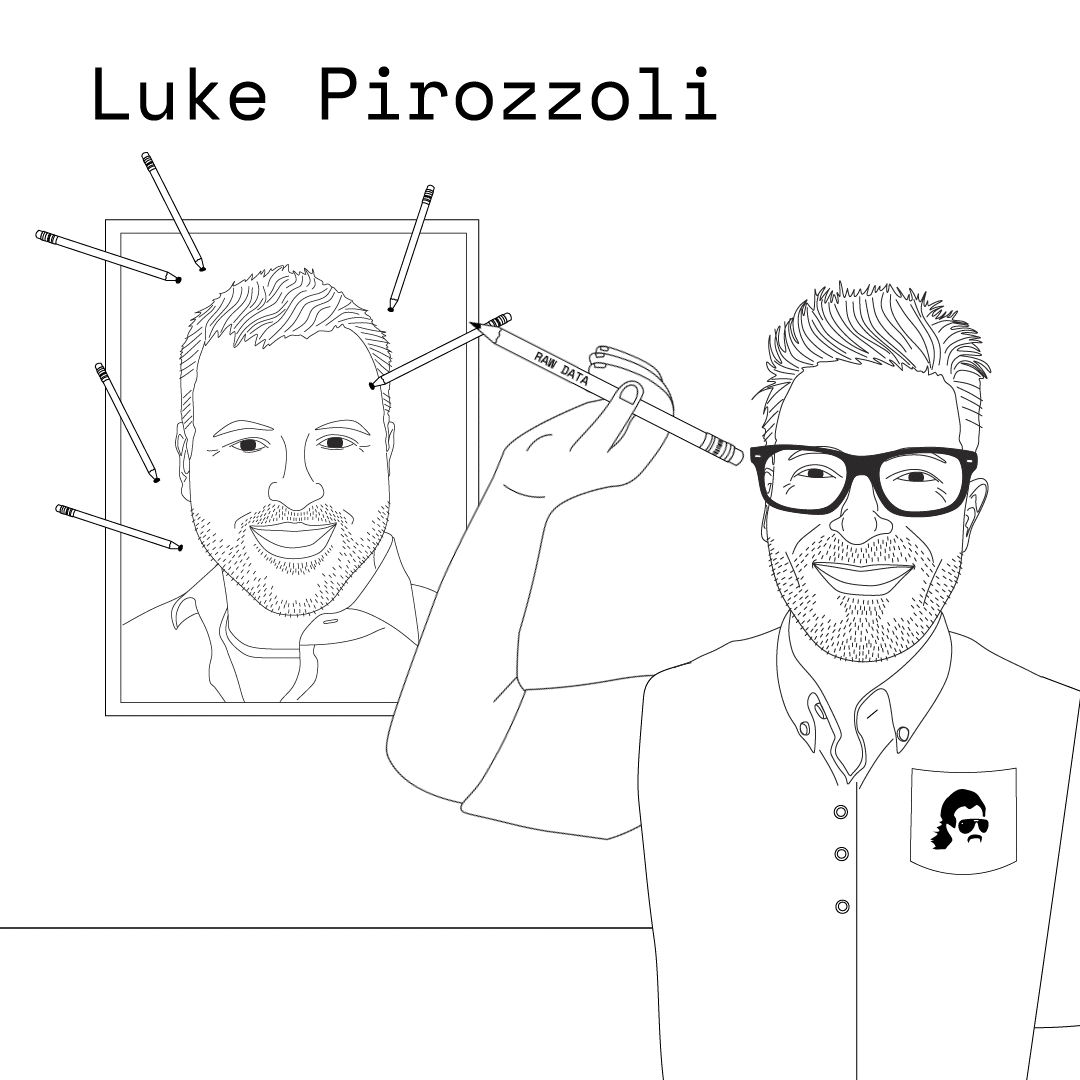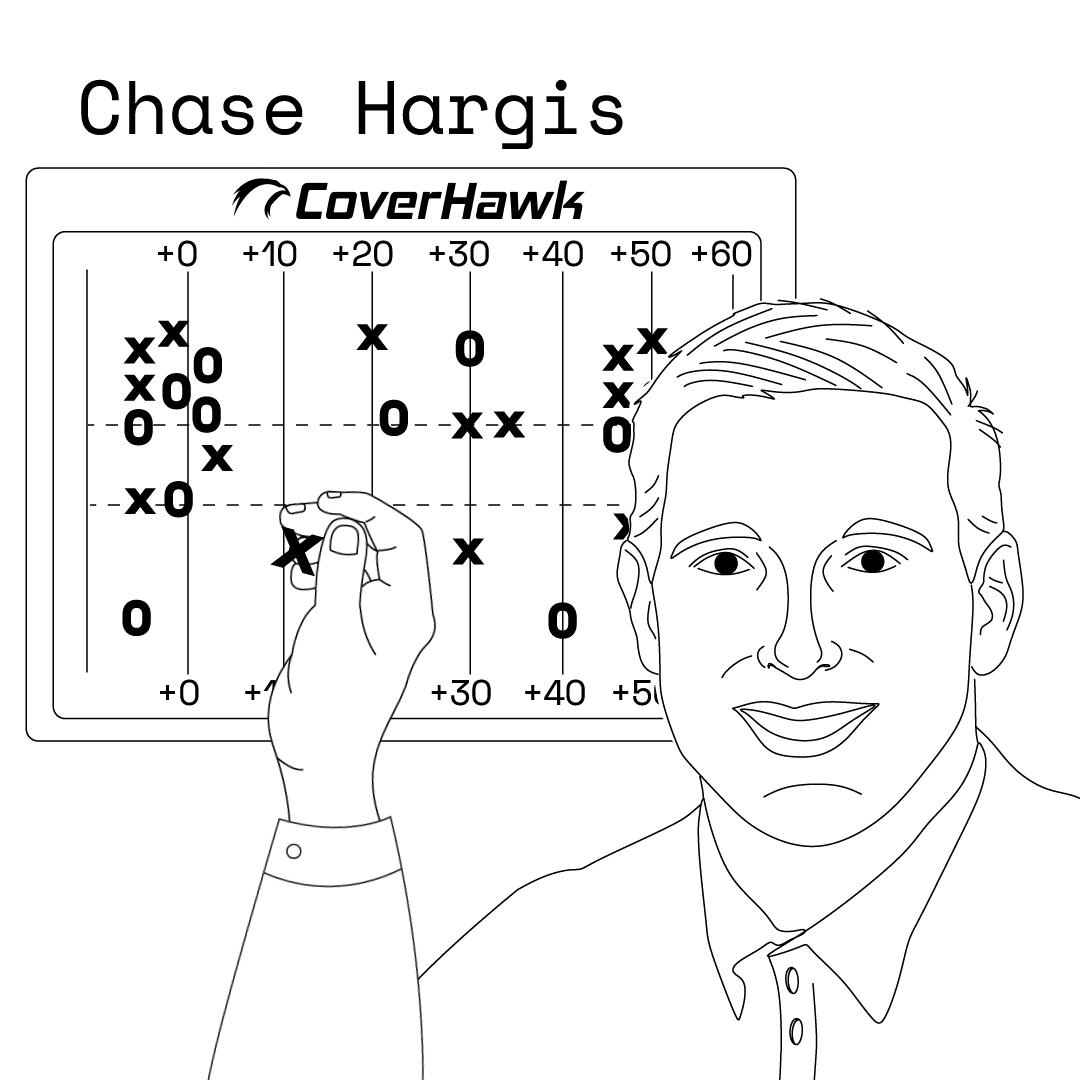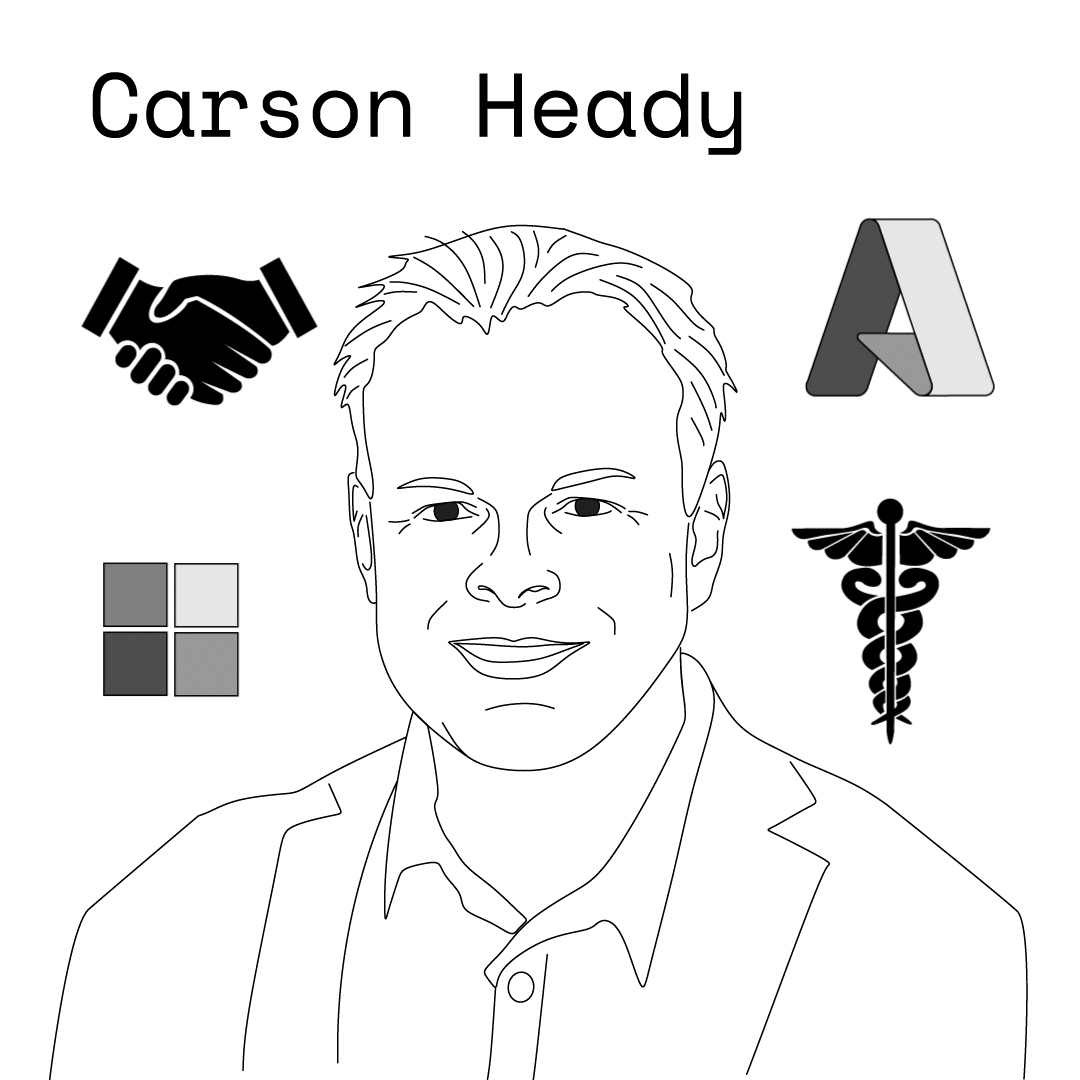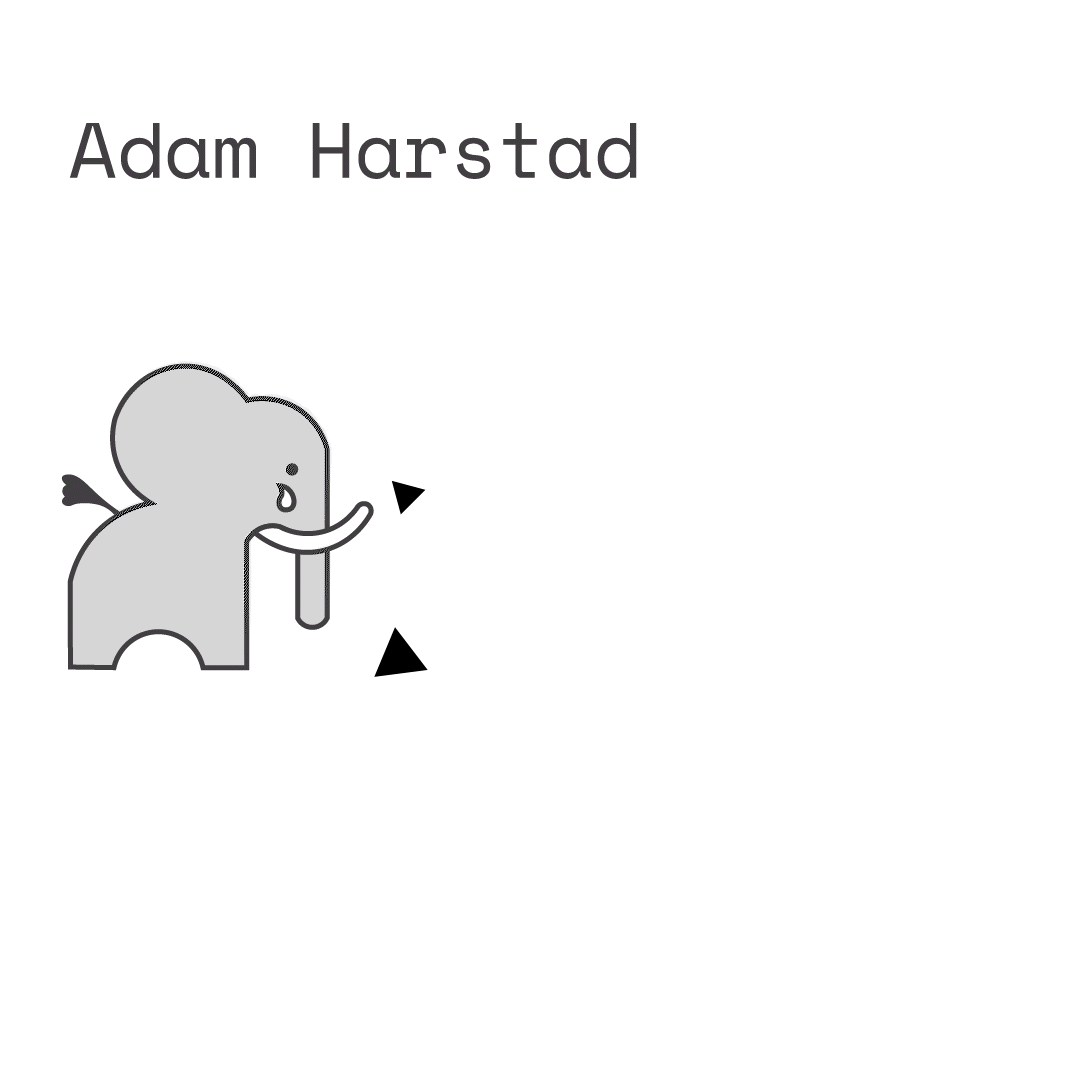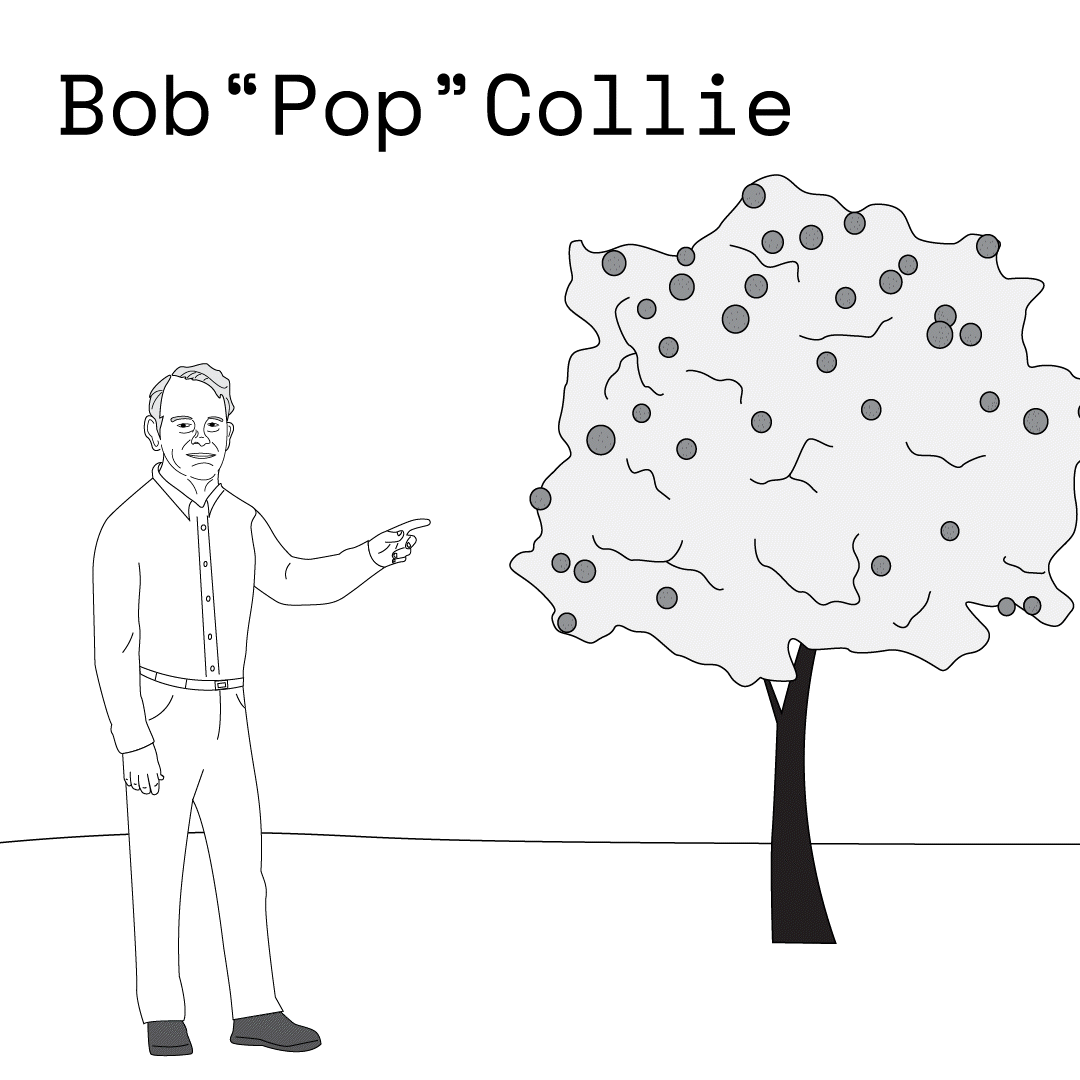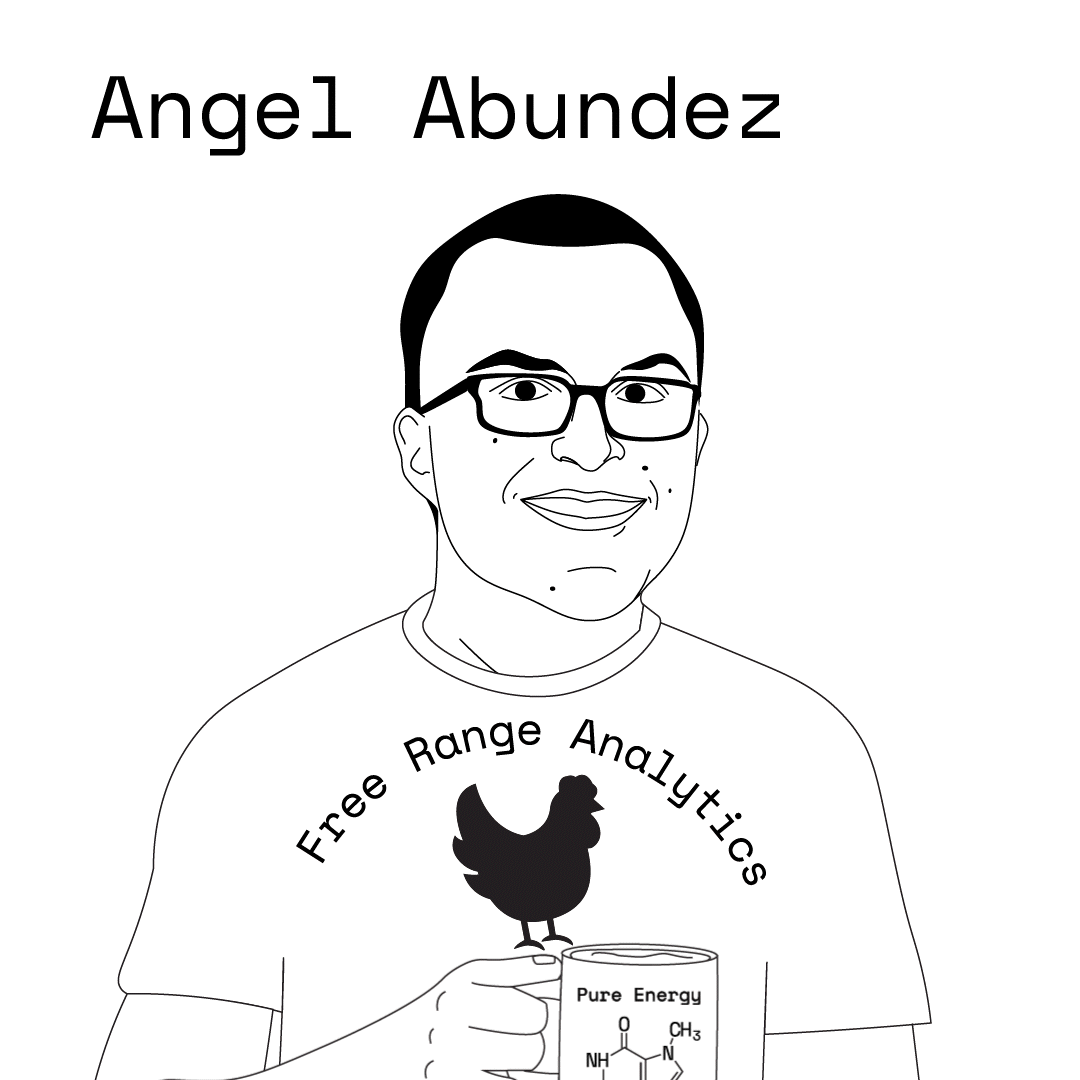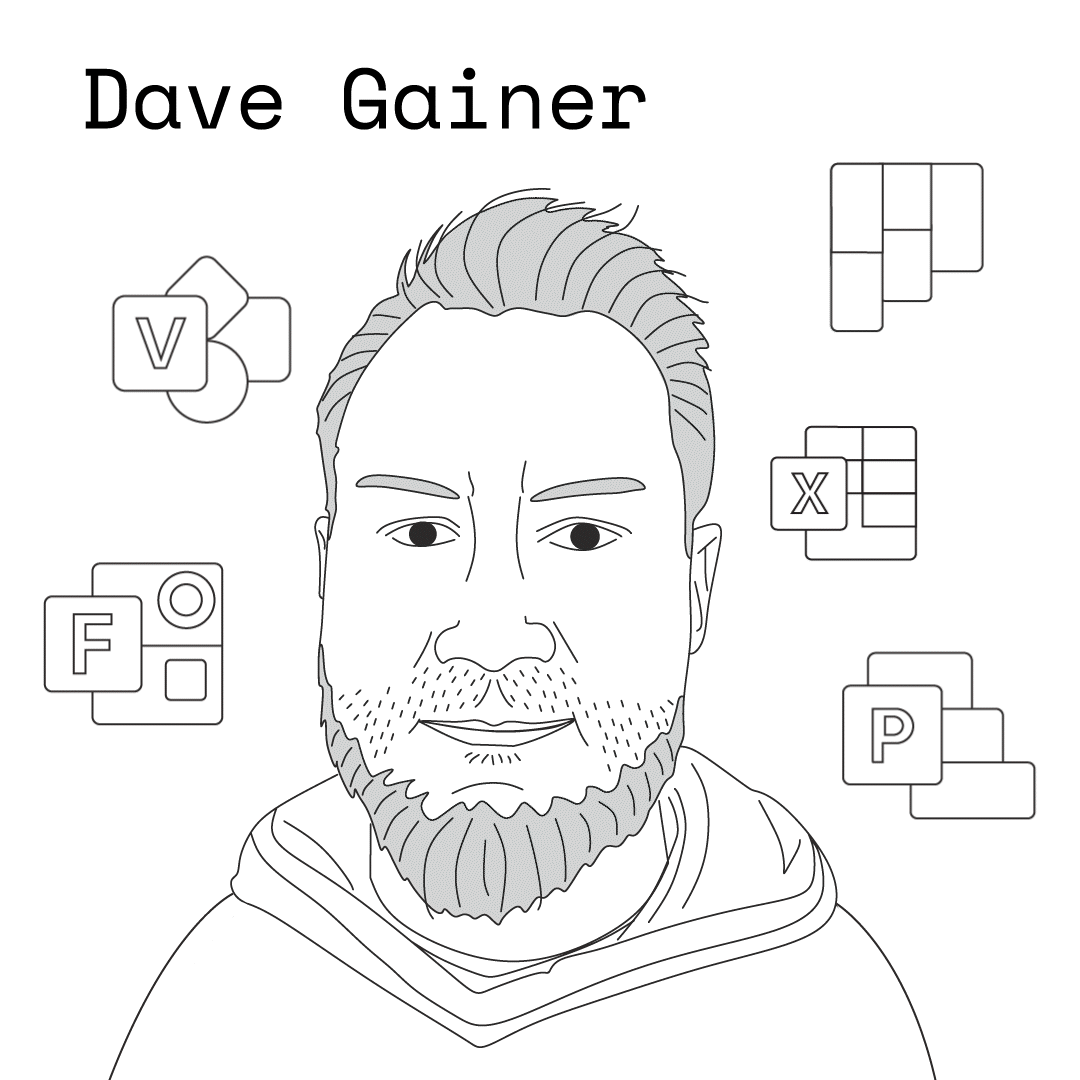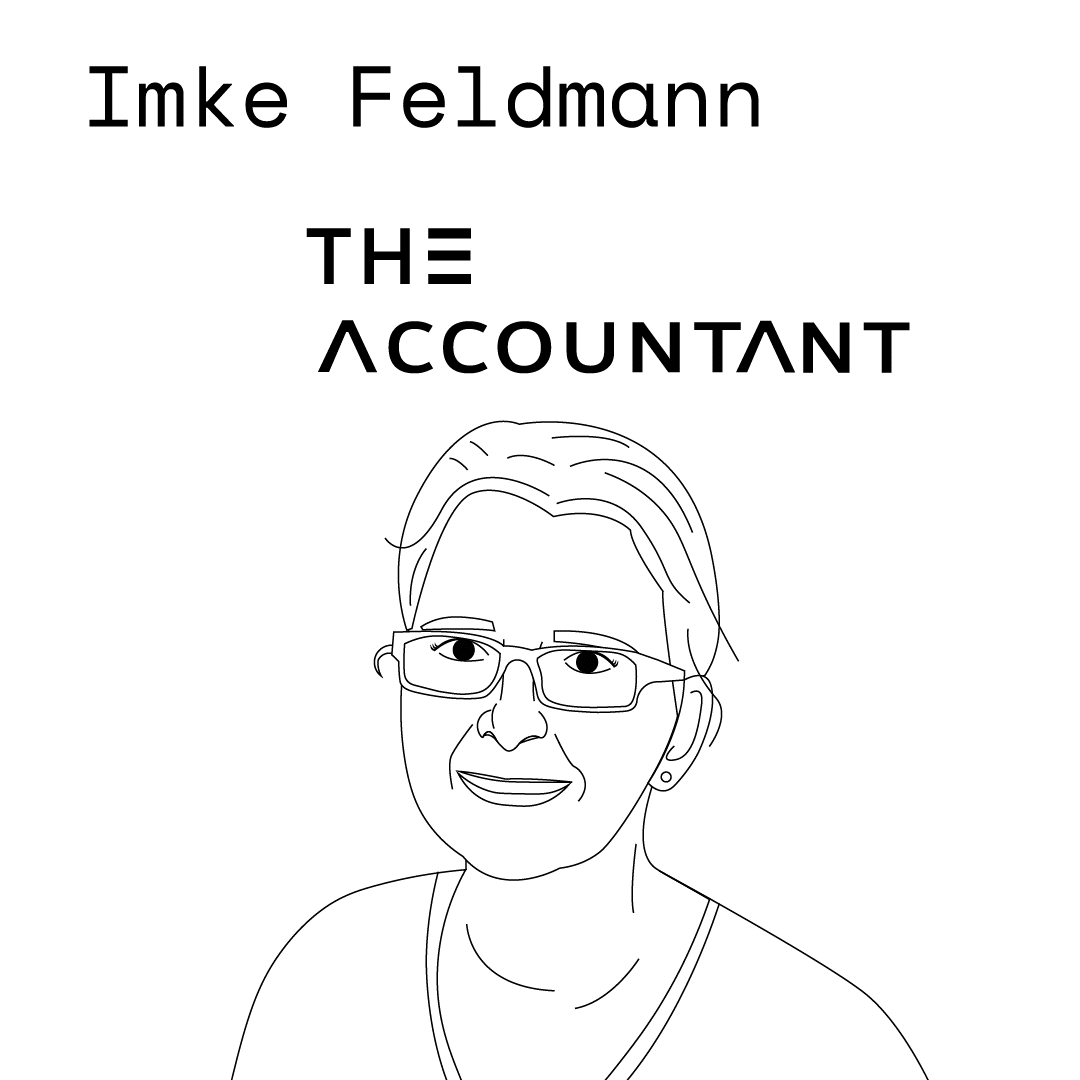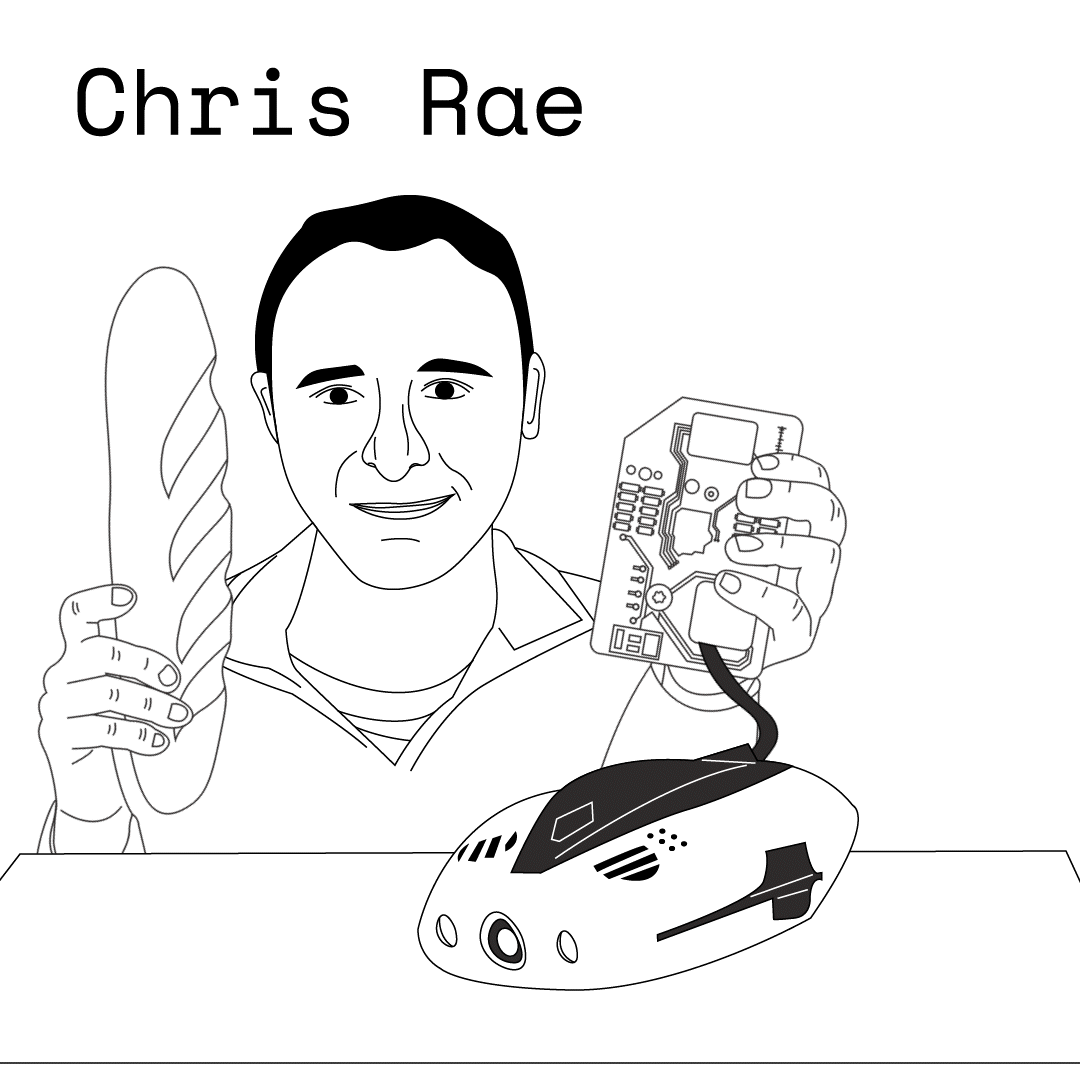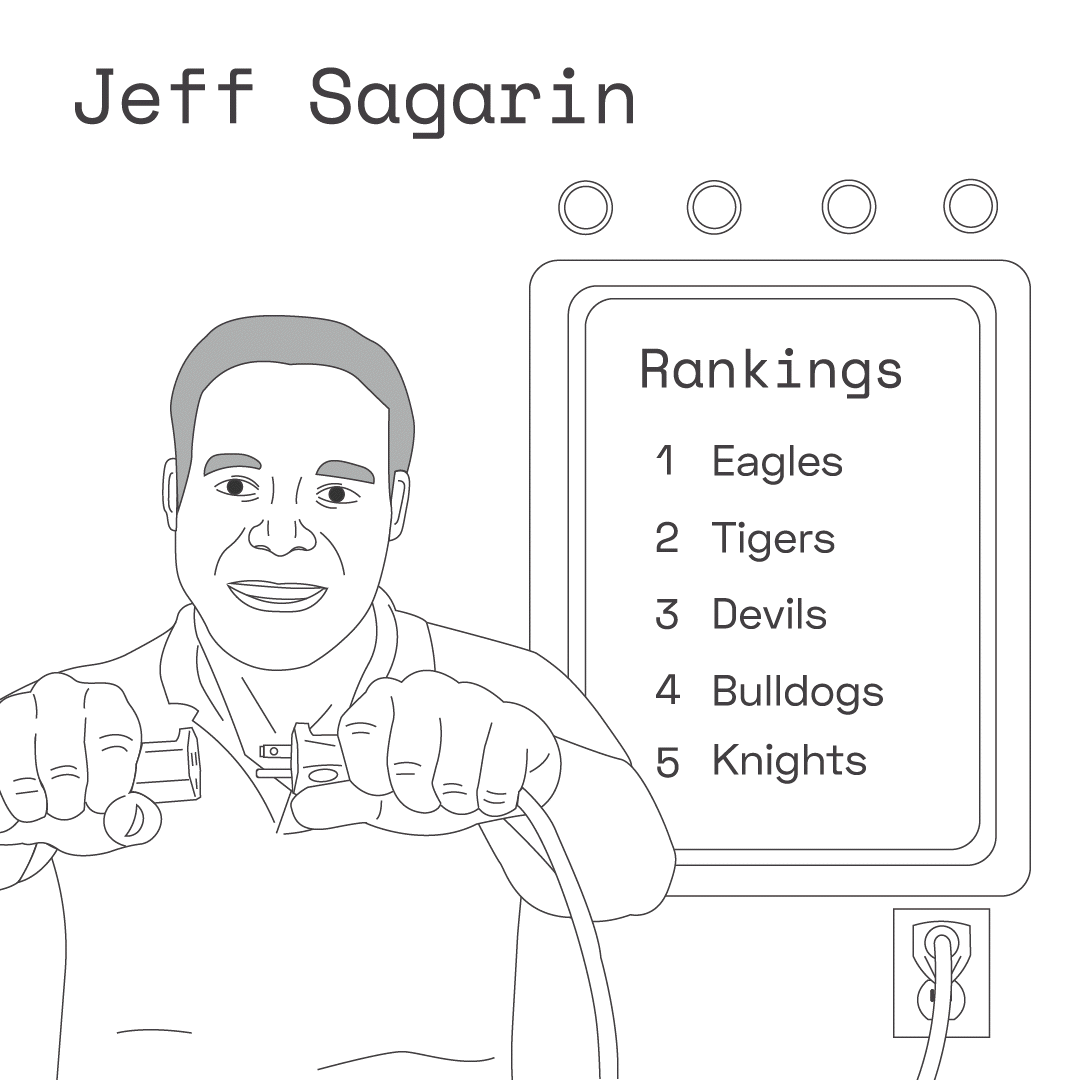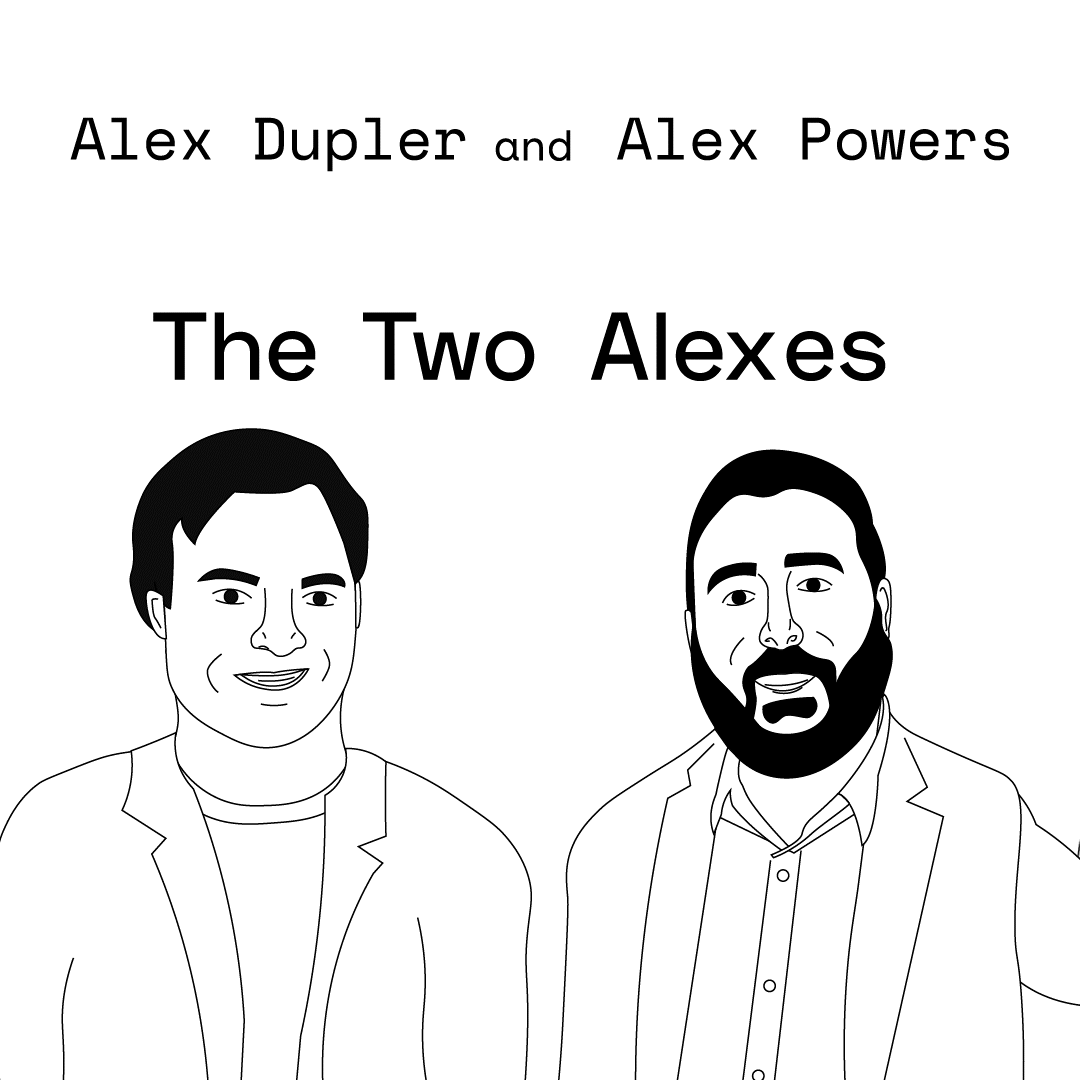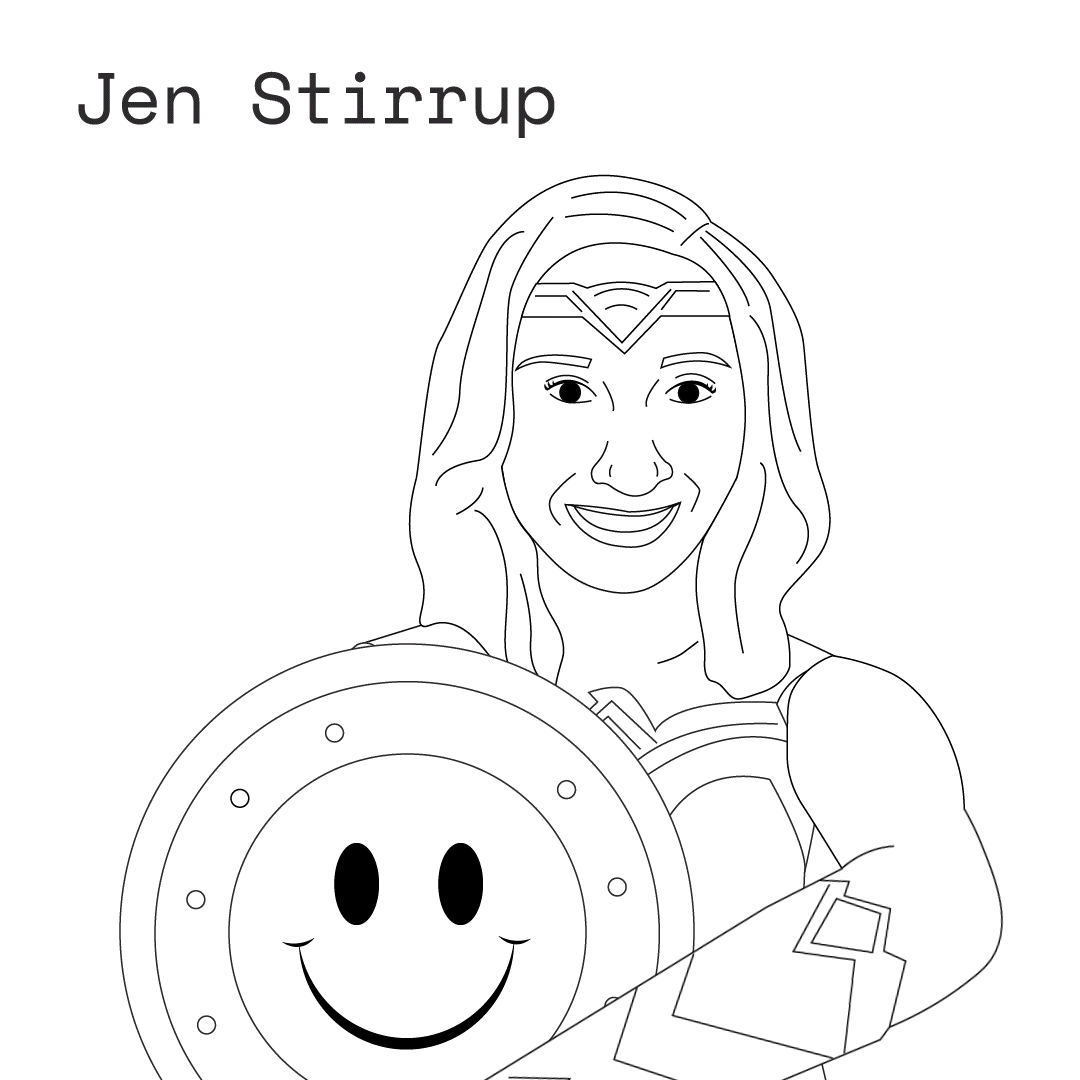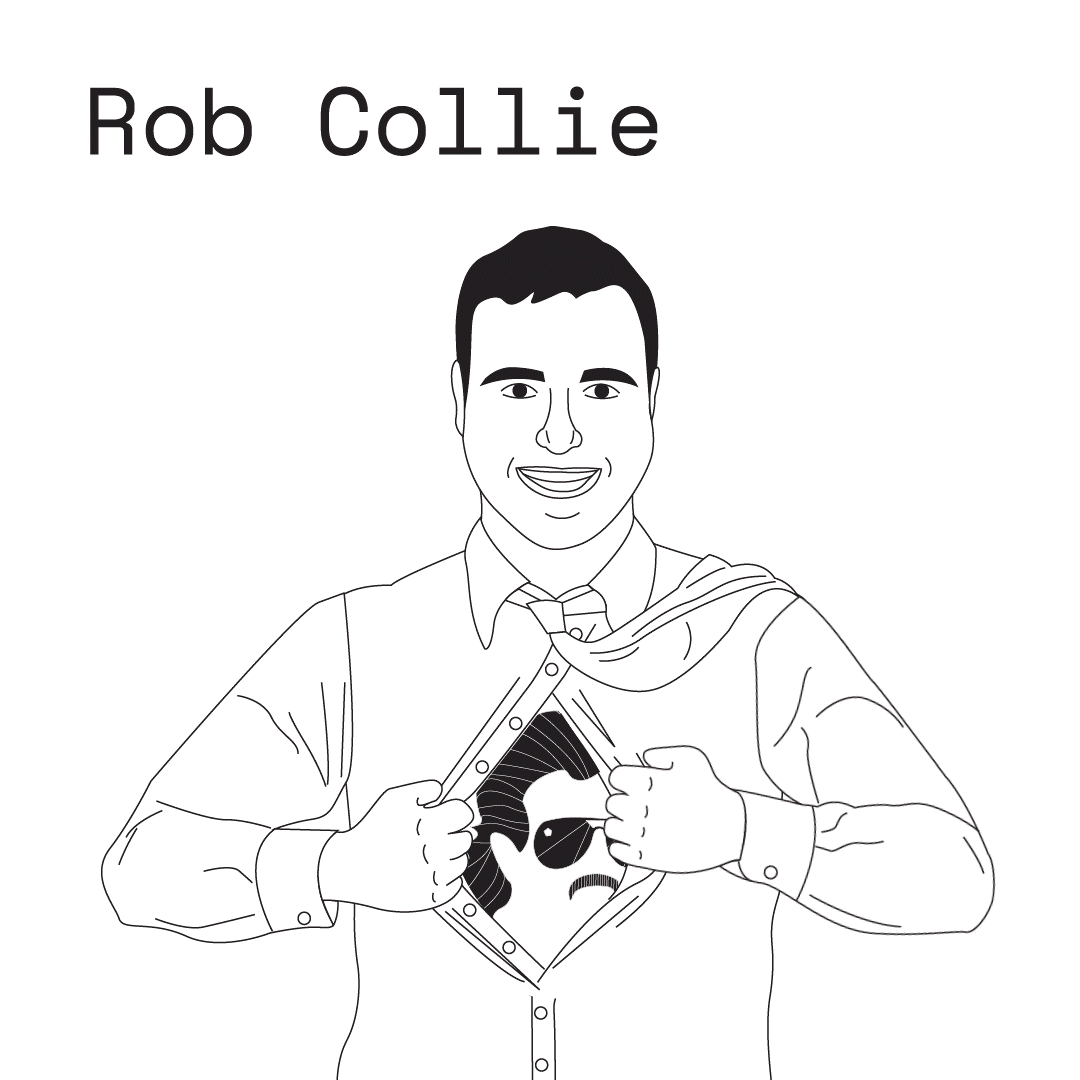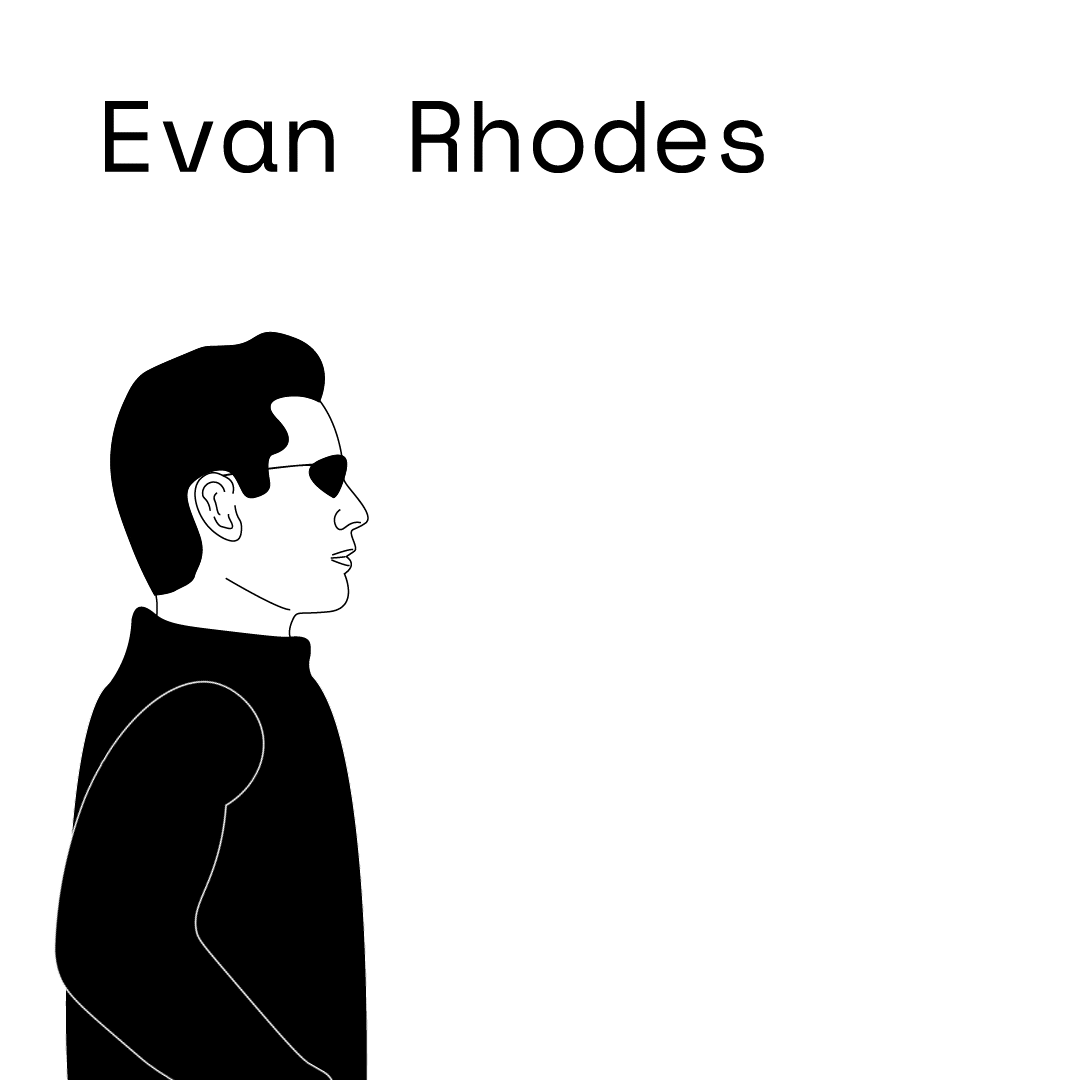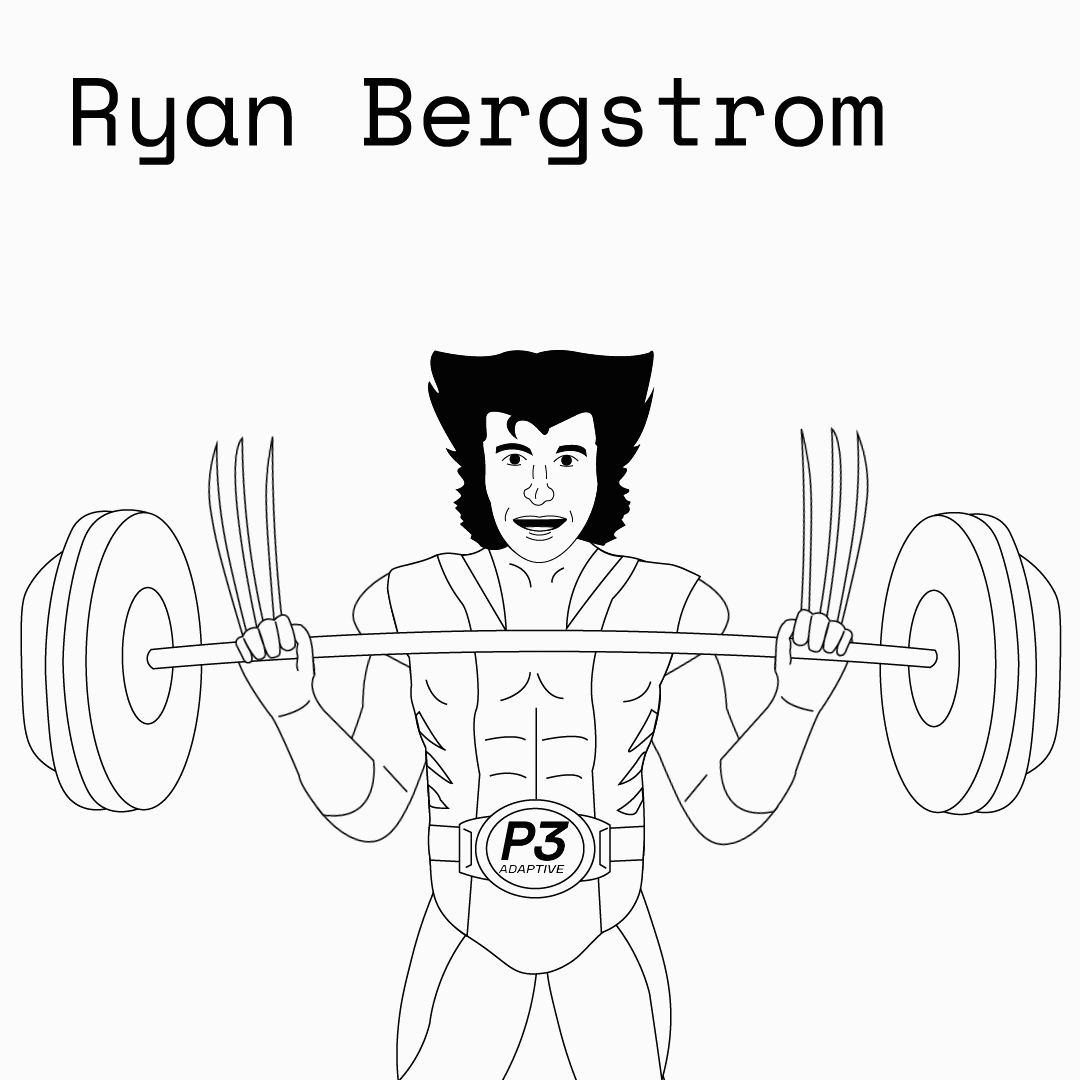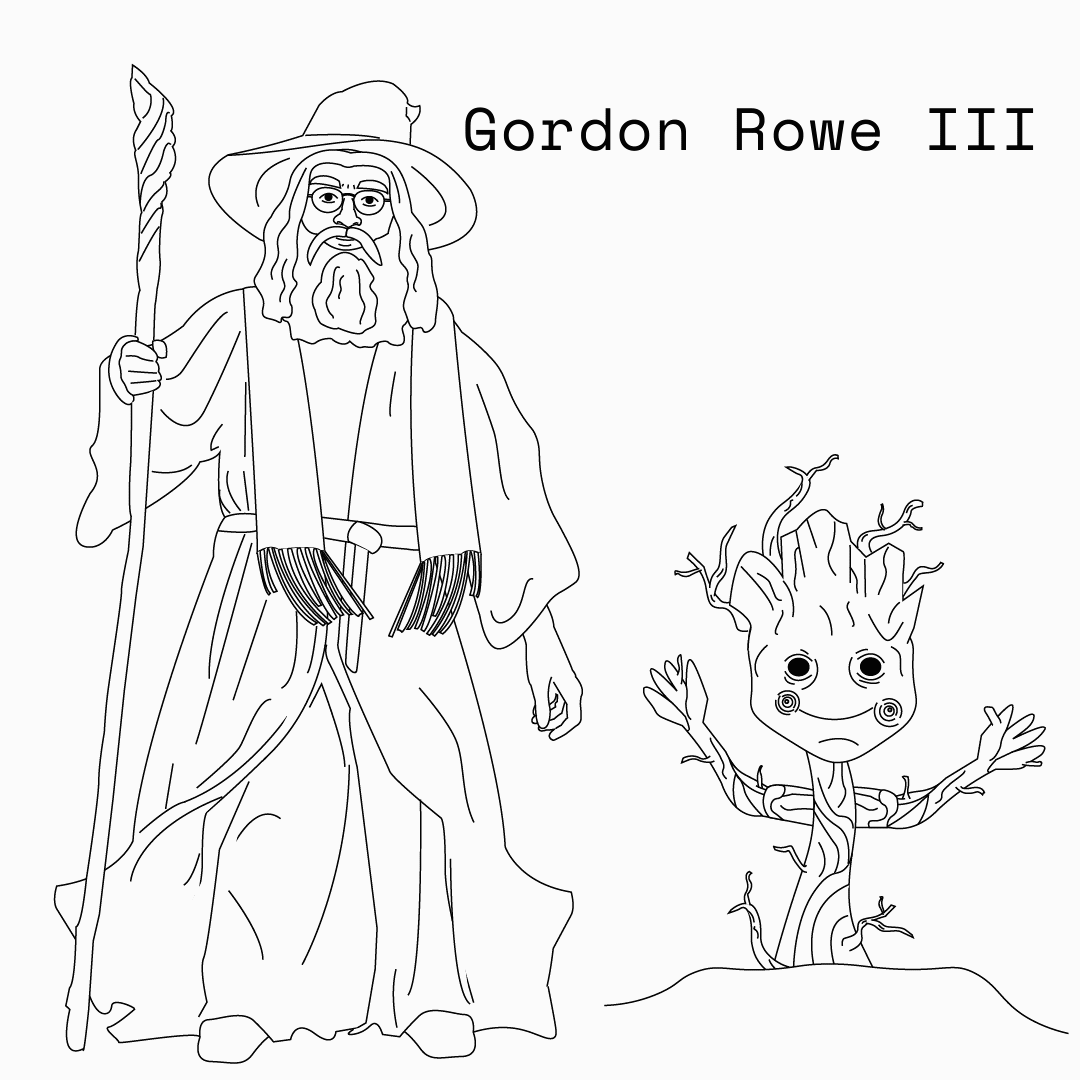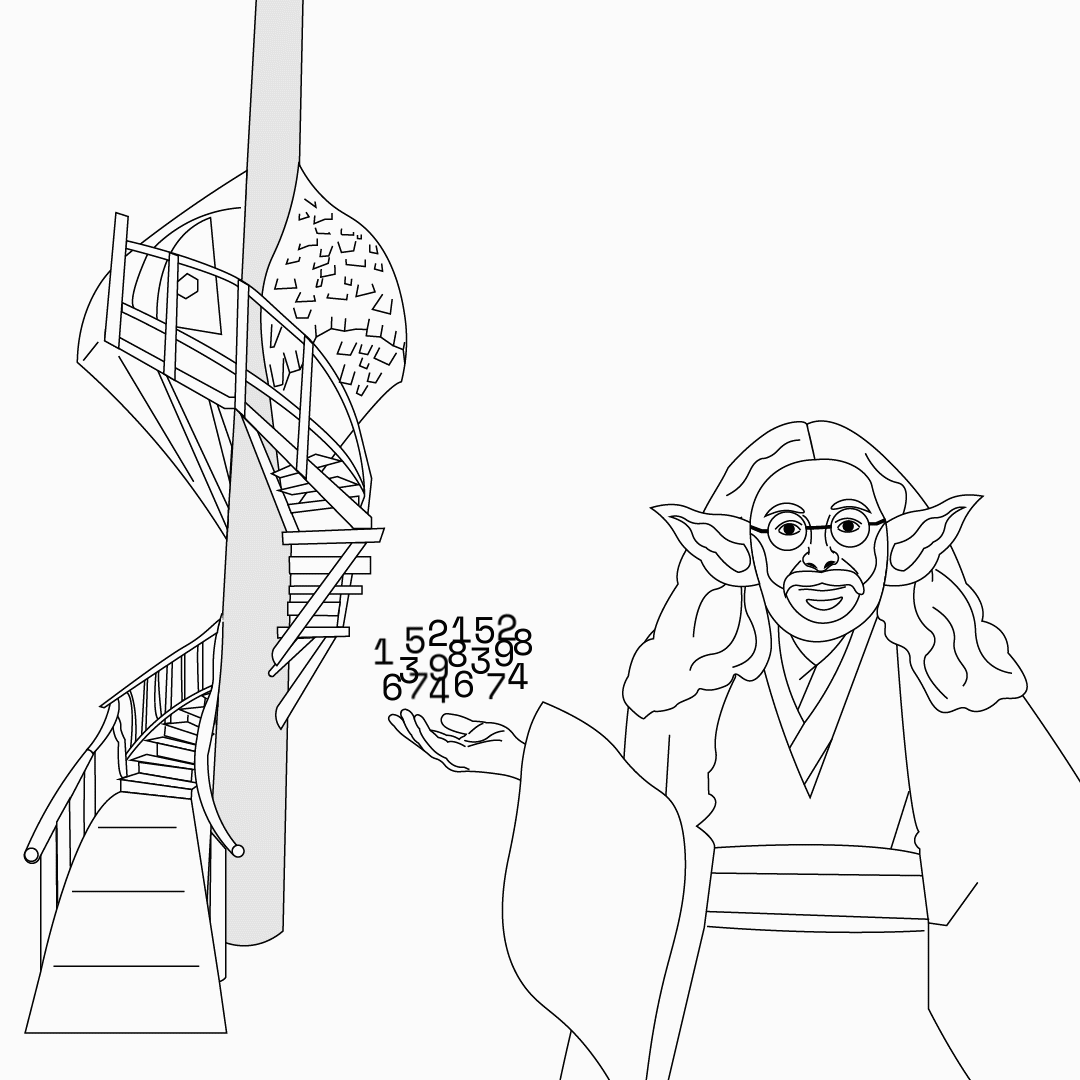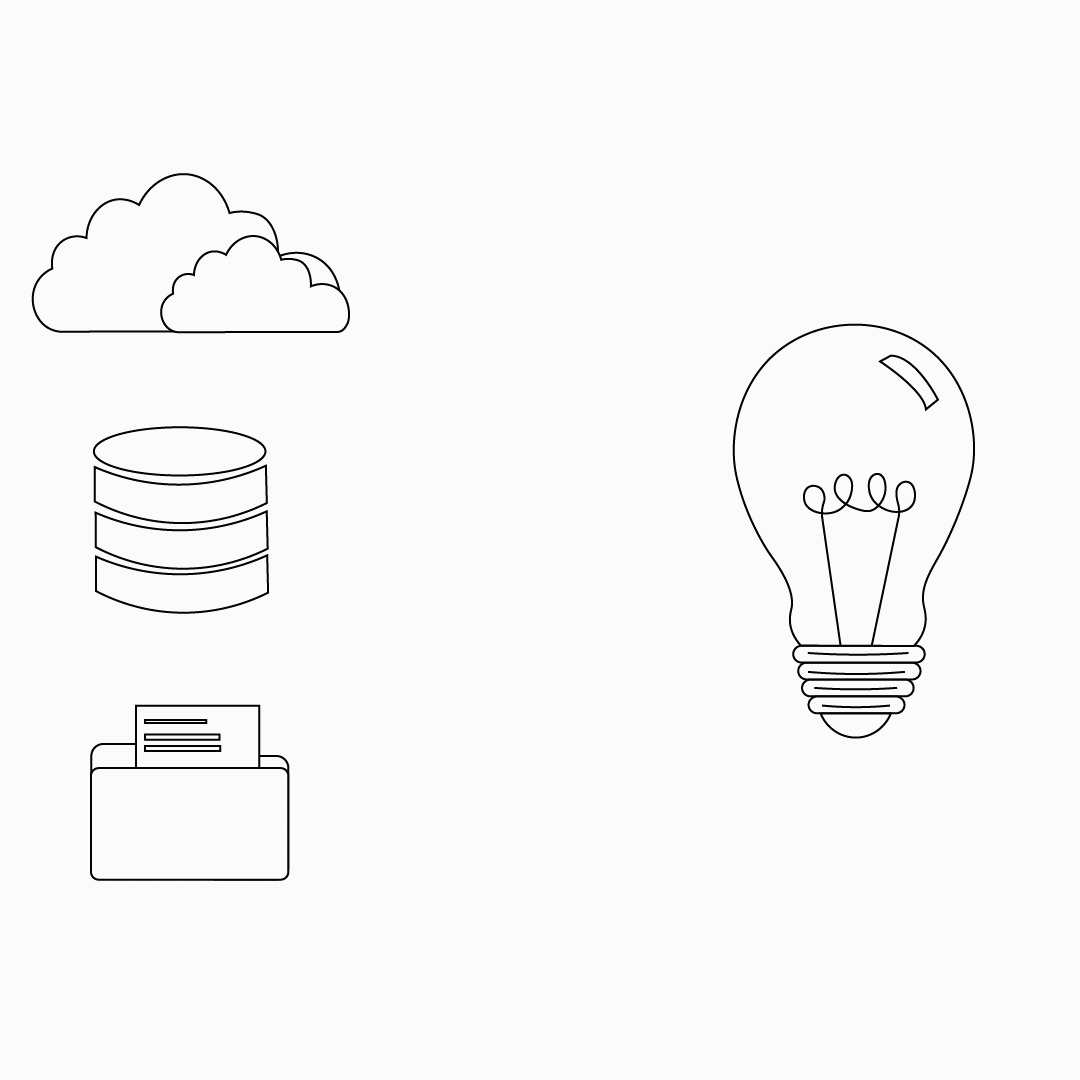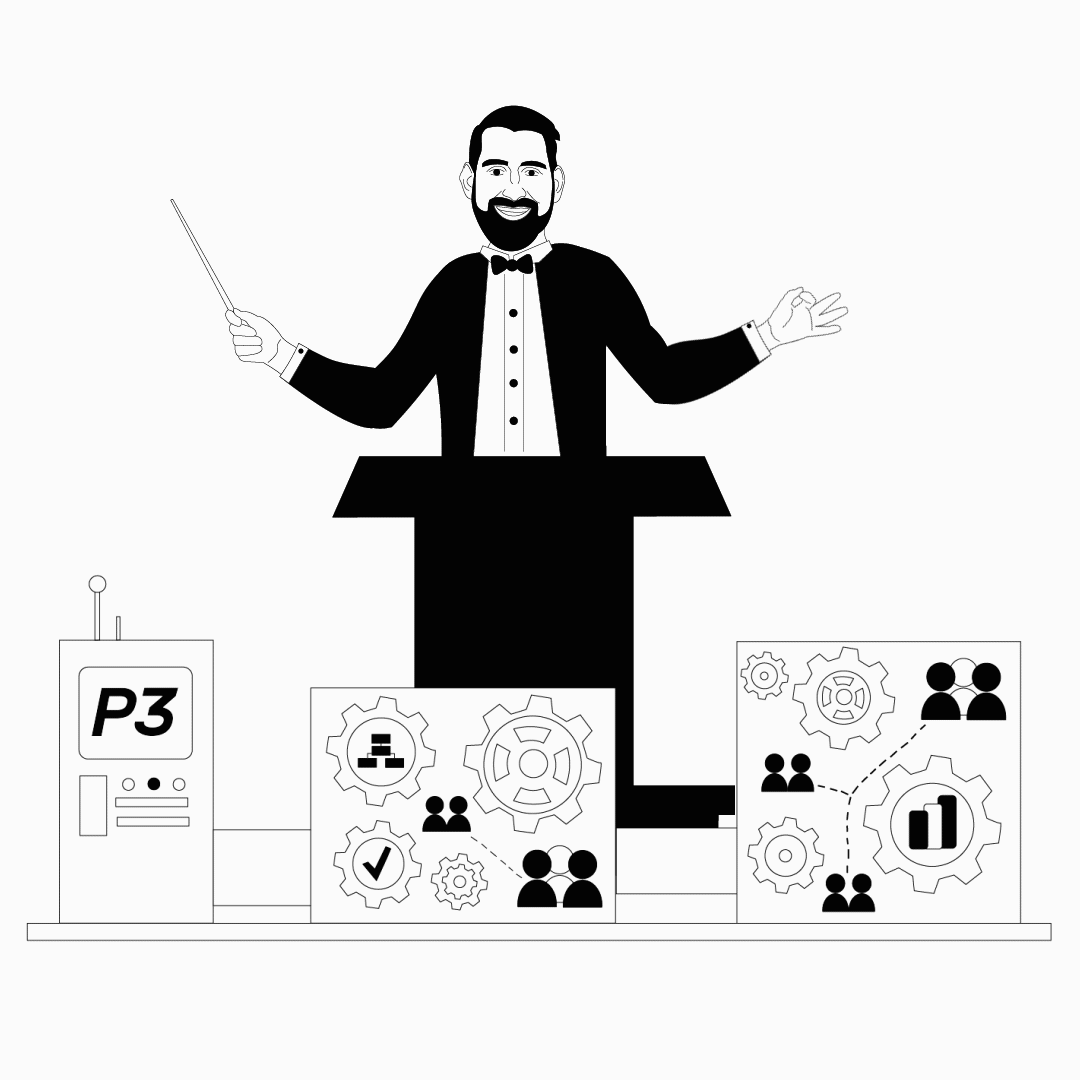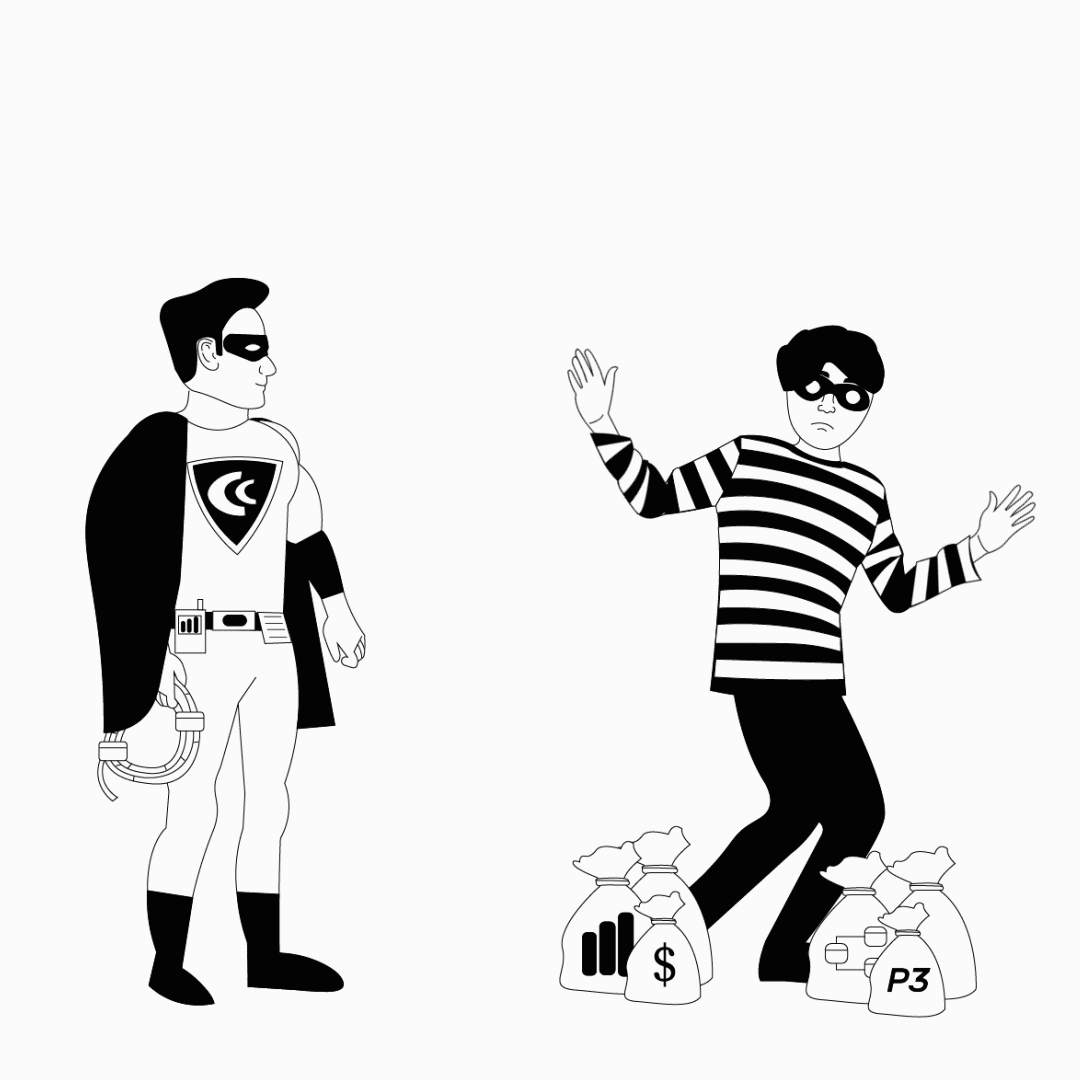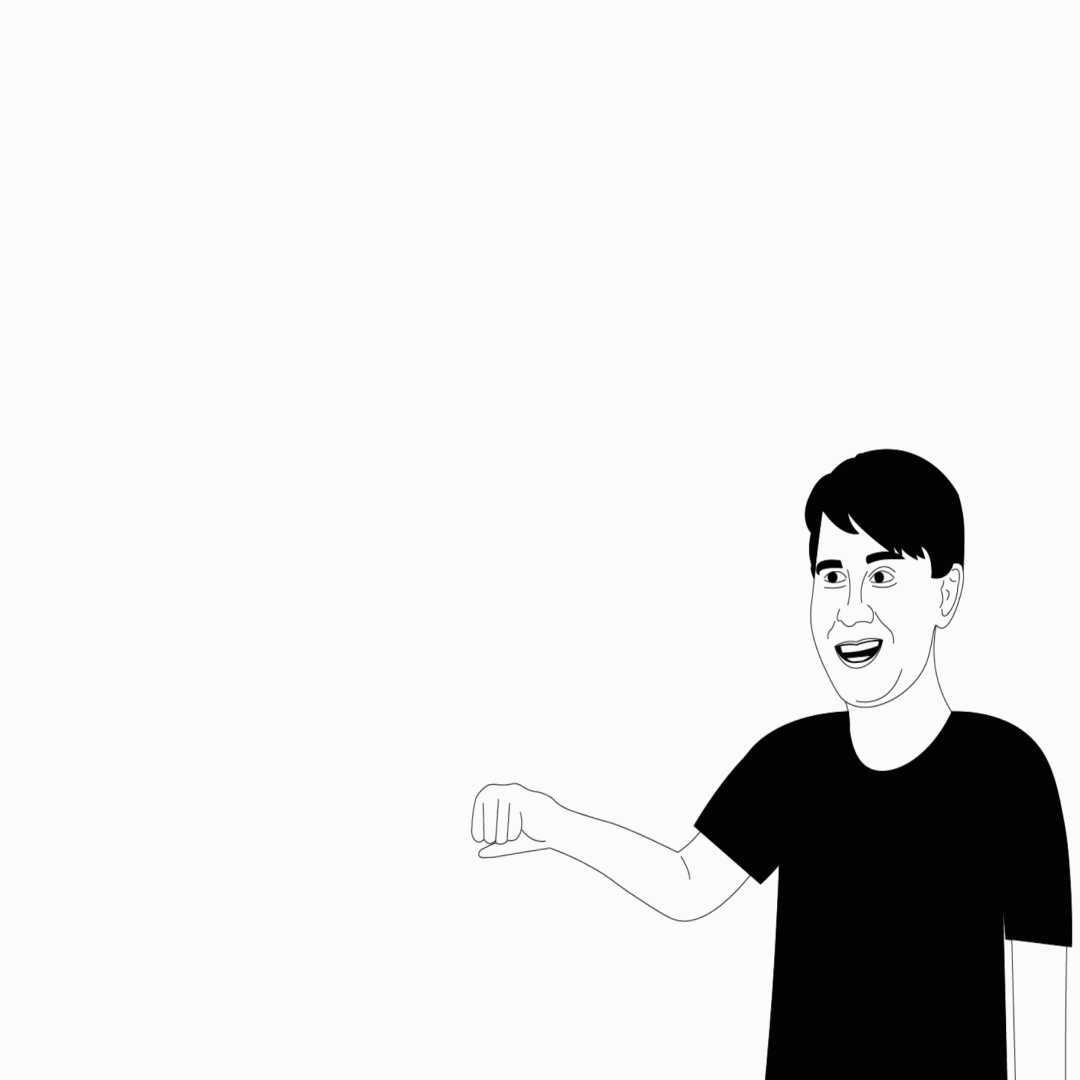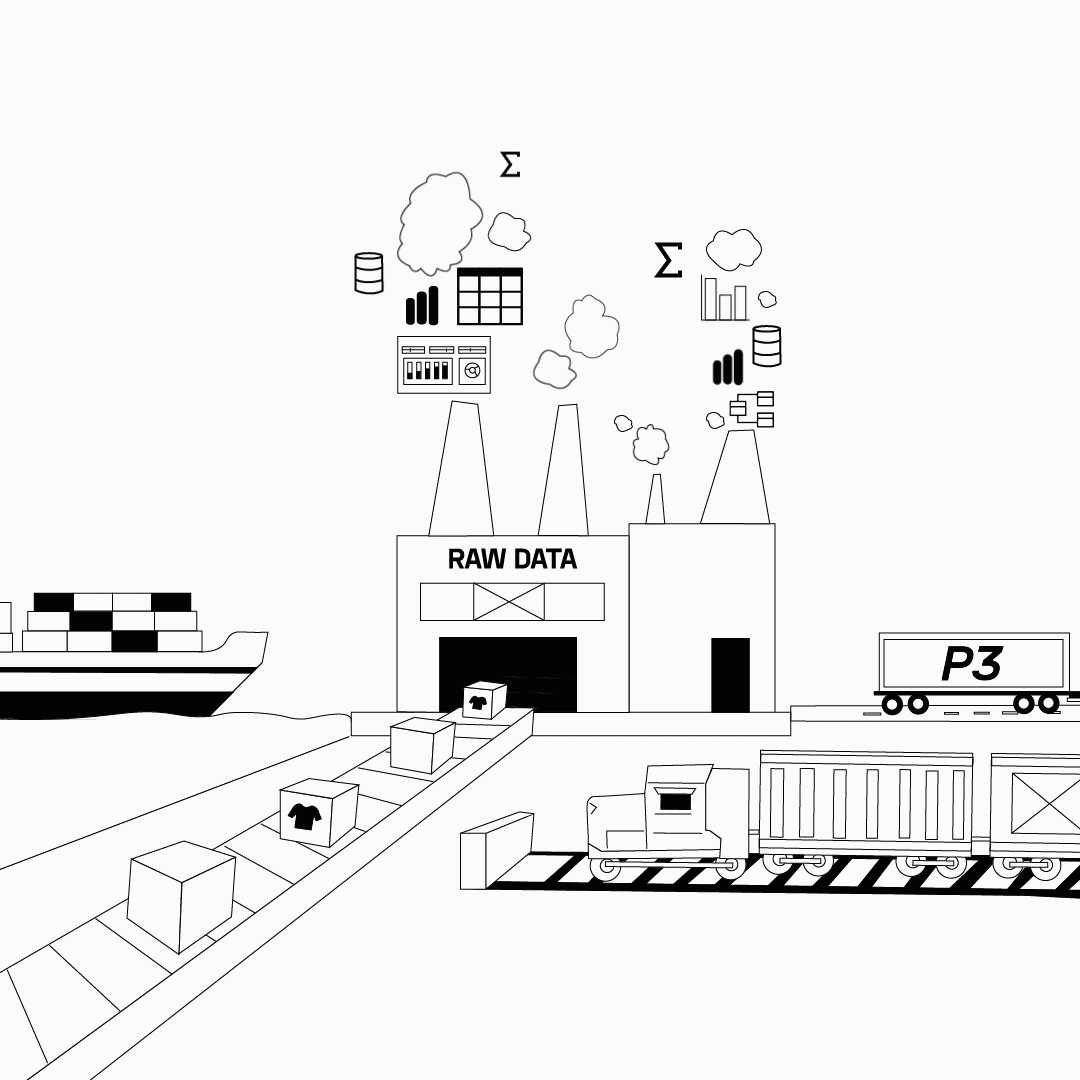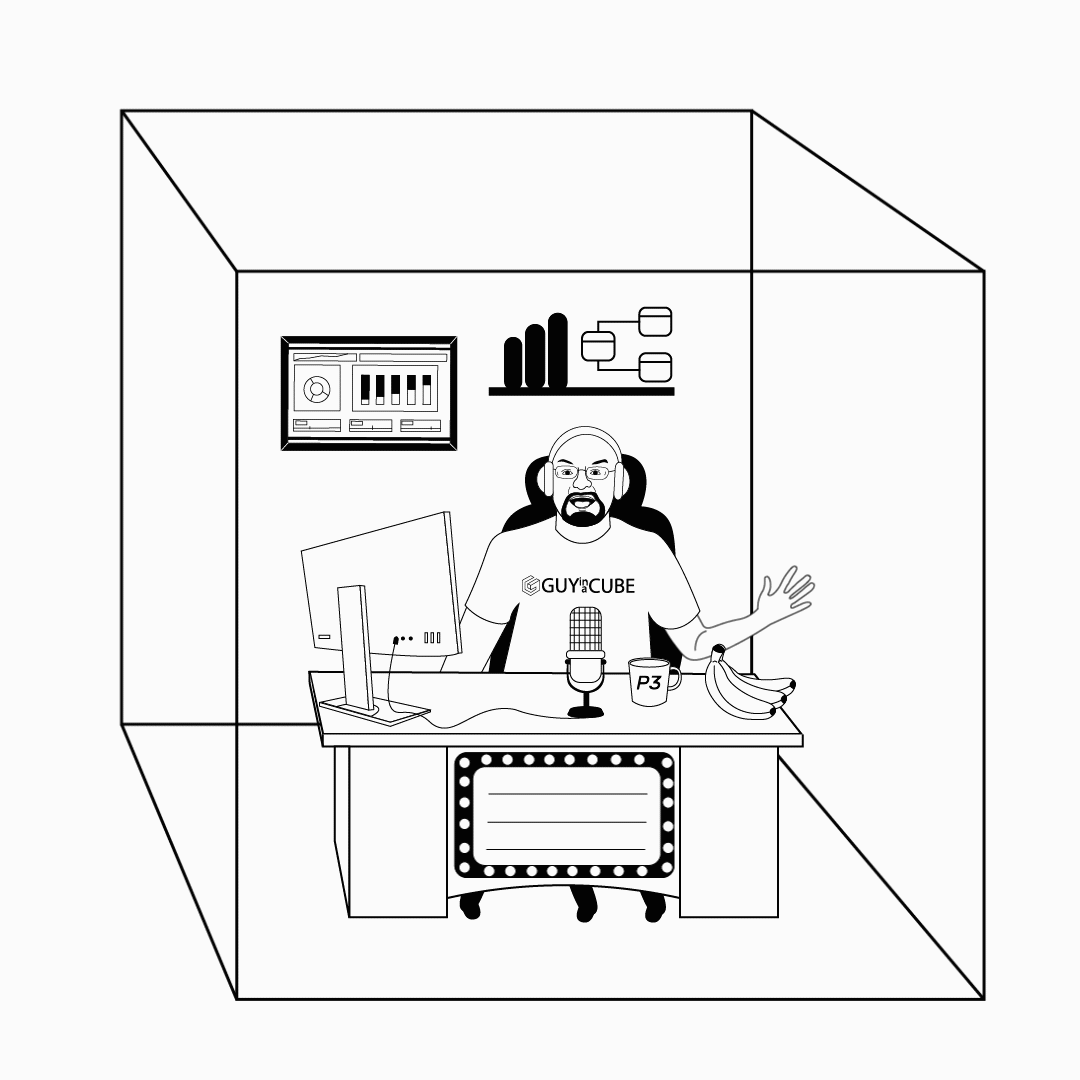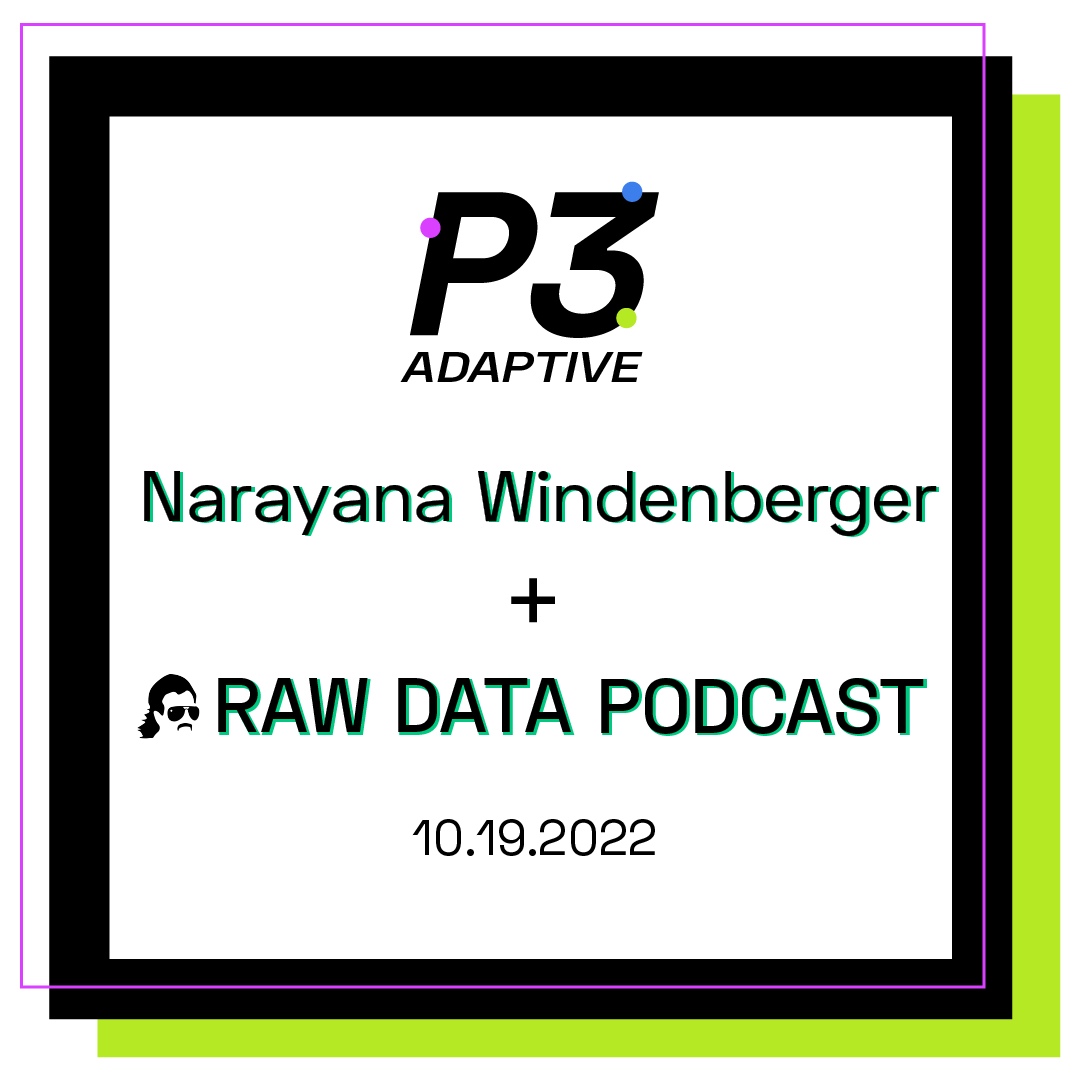
Raw Data By P3 Adaptive
Soaring the Skies of OPTIMIZEDAX(), w/ Narayana Windenberger
Listen Now:On today’s episode P3 Adaptive Principal Consultant extraordinaire, Narayana Windenberger sits down for a chat on data, travel, and the ethics of the financial markets. Nar is a 5-year veteran of P3 with an unforgettable name and a penchant for being a digital nomad. Whether he is working from the Midwest, Germany, or enjoying hang gliding in San Diego, Nar puts the remote in remote work and regardless of his location, still creates epic analytic masterpieces. Nar also has the distinction of being the author of a P3 Adaptive blog that shook the Power BI world to its core in 2020 and earned him the title of Power BI Super Villain. His blog on the DAX function invented to optimize other DAX made such an impact that a disclaimer had to be placed to temper the responses.
It isn’t all fun and games, though, Nar, Rob, and Tom also delve into the inner workings of financial markets and hedge funds and attempt to differentiate between the evils of a hedge fund and the potential benevolence of a hedge fund manager. When are losses a gain and gains a loss? Listen to today’s episode to find out!
Don’t forget to leave us a review on your favorite podcast platform to help new listeners find our show.
Also on this episode:
Where in the World is Carmen Sandiego
P3 Blog: Distinct count in PowerPivot V2 is Much Faster
Wall Street: Money Never Sleeps
Far Side comic: Wolves/Neighbors
The Software Hall of Fame, w/ Microsoft’s Conor Cunningham
What is Data May Never Die, w/ Scree
Luke Pirozzoli (00:00:00): Hello friends. I've always wanted to say that. Obviously not Rob, it's Luke, the producer. Hello. I'm cutting this intro because Rob is feeling pretty ragged after our company retreat this weekend in Miami Beach. We had a blast. P3 is a fully remote company and as a result of that, so many of us had never met each other face to face before. And to a person, each and every one of us came away really feeling more connected than ever before. It was unbelievable. You can hear it in my voice. That's karaoke night that got me. And one of the people there in Miami is today's guest, Narayana Windenberger, code named Nar. Nar's been with P3 Adaptive for over five years and that was our excuse, as if we needed one, to have him on his five year anniversary.
(00:00:54): And here's something else. At about the 20 minute mark of the audio, you'll notice the audio quality drops considerably. It's the first time that we've had an issue quite like this where one of the participants' recordings, in this case it was Nar, it failed to upload completely and we had to fall back on the cloud based backup that sounds like three people in a tin can. We take the audio quality very seriously and even considered having Nar rerecord his lines. But come on, authenticity trump's quality every time. Think of this as your chance to appreciate all the behind the scenes work that goes into making this sound velvety smooth. Very much unlike my voice right now. All right. Enough complaining about audio quality. I've always wanted to say this too, let's get into it.
Speaker 2 (00:01:45): Ladies and gentlemen, may I have your attention please.
Speaker 3 (00:01:49): This is the Raw Data by P3 Adaptive Podcast with your host Rob Collie and your co-host Thomas LaRock. Find out what the experts at P3 Adaptive can do for your business. Just go to p3adaptive.com. Raw Data by P3 Adaptive is data with the human element.
Rob Collie (00:02:15): Welcome to the show, Narayana Windenberger. How are you today?
Narayana Windenberger (00:02:19): Hey Rob, it's going really well. Thanks for having me on here. I feel honored to be a guest with the venerable group of other folks that have been on the show before me.
Rob Collie (00:02:28): Wow. Look at that praise. Future guests take note. This is how you do it. All right. So, Nar, that's how we refer to you 99% of the time. Tom's already been wondering though, the first name and the last name don't really seem to come from the same origin, do they? Narayana Windenberger.
Narayana Windenberger (00:02:50): It's a pretty common question and my name has been a big focal point of my life for a long time because whenever I call up my credit card or bank or whoever, I got to spend the first 30 seconds or 60 seconds just spelling out the name. I'm learning the military alphabet at this point. So, Narayana is actually an Indian name and then Windenberger is more Germanic. So, my dad grew up in France right on the border of Germany. So, in this region called Alsace. That was a pretty contested territory. So, Germany during World War I and II was taking over that region. There's mountain ranges on both sides of the region. You can think of it as a no man's land.
(00:03:34): There's definitely some Germanic influence there. I got the last name like that and then the first name is Indian. So, a lot of times people will ask me what its origin is. So, my parents, they're pretty interested in, you could say eastern philosophy and spirituality and meditation. They were really, really interested in that spiritual development. So, they had a lot of interest in Indian religion and Indian philosophy and so that's how I got the name. It's the name of a spiritual master from 10,000 years ago.
Thomas LaRock (00:04:07): Neither of your parents are Indian?
Narayana Windenberger (00:04:10): No, my parents are both European. So, French and Slovenian.
Thomas LaRock (00:04:15): Okay, that's an interesting combination. So are your parents.
Narayana Windenberger (00:04:18): It's fun now because with all the consulting and training that I do with P3 there's usually in any given training group, there'll be a cohort of Indians and they will usually politely ask me during a break, so Narayana, what does that name mean? When I know for sure that they know exactly, it's a pretty common name in India.
Rob Collie (00:04:40): They're testing you.
Narayana Windenberger (00:04:41): Yeah, they're being polite, not making assumptions. And so, then I'm, it's an Indian name. Narayana gives me a quick in with them and then I make some friends quickly.
Rob Collie (00:04:53): You're a chameleon, an international shape shifter. You look like you could play a German, a Russian in a movie. Could you see him in Red October standing next to Sean Connery on the bridge of the Red October?
Thomas LaRock (00:05:05): Maybe.
Rob Collie (00:05:06): I could. I could totally, you could see him in a World War II German movie. He could have been in Inglourious Basterds. He's got a wide range.
Narayana Windenberger (00:05:14): It's a good movie.
Rob Collie (00:05:15): And you are one of the most accomplished digital nomads that I know, at least in my personal circle. Where in the world is Carmen Sandiego was an Apple II game that we've played a lot when we grew up. Where in the world is Narayana Windenberger? It looks like you might be what we think of as at home right now. Is that correct?
Narayana Windenberger (00:05:35): This is my home office here. What got you thinking that I'm the most accomplished digital nomad?
Rob Collie (00:05:39): So, often, I'm in Berlin this month or I'm down in San Diego this month or whatever. That just seems like a common thing with you. Whereas it's a big deal if I get on a meeting and I'm in a different room of my house, that's my nomadic nature is I'm apologizing I'm in the guest room today because there's a lot of noise out in the house.
Narayana Windenberger (00:06:04): When I first started with P3 five years ago now, people kept asking me, you got this remote gig that was special at the time back in 2017. COVID hadn't hit yet. People kept asking me why am I working out of Iowa if I could work anywhere as long as I'm on a time zone that's compatible and so forth. And I didn't really have a good answer to that. I think the difference was that back then we were doing these onsite gigs with the clients so we would actually get some travel time all over the US and then COVID hit. That completely changed and then I started having this mindset of I've got the life situation right now that allows me to travel. As long as I work with the clients to make sure they're good with my different setup and I'm getting the work done, then those are the main criteria that seemed to be the most important.
(00:06:54): So, I would always make sure that would work. It's just been an awesome opportunity. So, I went to Berlin for about two months and the client I was working with at the time had offices internationally. So, they were used to working with different time zones even though primarily the offices I was working with were in the US. That worked great. We actually had a regular person on the call that, on the group that we were working with from France. I was just another one of the European cohort. And then in San Diego I was the same kind of thing. Got a co-working space. I had that office environment and got to enjoy a different pace of life than I'm used to here in Iowa.
Rob Collie (00:07:28): San Diego is a different pace. Every time I've ever gotten off the plane in San Diego I walk out and go, why don't I live here?
Thomas LaRock (00:07:37): Because there's cost way too much, that's why.
Rob Collie (00:07:42): Yeah. It does cost a lot. It's not like San Francisco too much.
Thomas LaRock (00:07:47): Yeah, but do you know why San Diego costs so much?
Rob Collie (00:07:50): No, I don't.
Thomas LaRock (00:07:51): Because it's worth it.
Rob Collie (00:07:52): Yeah, I walked into that one.
Thomas LaRock (00:07:55): Yeah, you did.
Narayana Windenberger (00:07:57): You know what the interesting part is, I was just there recently and I talked to almost every person that had moved there recently was from say Seattle or San Francisco because they were taking their now remote tech jobs and San Diego feels cheap to them.
Rob Collie (00:08:13): Oh yeah. It's a third tier cost structure city.
Narayana Windenberger (00:08:17): Yeah. So, it's pretty wild.
Rob Collie (00:08:21): I admire the discipline to take advantage of this. If I just happened to check in on you at the exact two times that you've been doing the nomadic thing, small sample size, I get the impression that you're never home.
Narayana Windenberger (00:08:34): Yeah. I think it is pretty much you checked in the two times.
Rob Collie (00:08:38): This is over a pretty long period of time too. There's some space between these two. Lie to me, tell me that every other month you're not home.
Narayana Windenberger (00:08:46): What were we talking about just recently that mentioned that I was in San Diego? Do you remember that?
Rob Collie (00:08:50): I think it was the original attempt to schedule this podcast.
Narayana Windenberger (00:08:53): That's right.
Rob Collie (00:08:54): Then I asked to reschedule it.
Narayana Windenberger (00:08:56): The reason I wanted to go out there was a couple things. I've always wanted to hang glide. I always had this dream of trying that out, but there aren't very many mountains in the Midwest and then also you don't have as consistent weather conditions. So, when I was out there I did a number of lessons where I actually learned how to control the glider. You have to learn how to balance it on your shoulders and then when you start running, it can tend to roll to one side, which is very dangerous.
(00:09:22): You have to learn how to roll correct by shifting your weight properly and then you have to learn how to flare the nose up to stop when you're wanting to land. So, it's a lot of these fundamentals that you're just drilling in. And then I did an actual tandem flight with an instructor just to get the feel for how to control it in the air. So, that was one of my big desires going out there. I wanted to have some time to be able to do it over a period of weeks and not feel rushed or anything, just see how I liked it.
Rob Collie (00:09:48): What does a tandem hang glider look like? Doesn't seem like it would work that well. Are you side by side?
Narayana Windenberger (00:09:54): Yeah.
Rob Collie (00:09:55): So, that means that the co-pilot, you, actually have a lot of control. I would not want to be the instructor in a tandem hang glider.
Narayana Windenberger (00:10:06): Most people's reaction is they see the safety issues with hang gliding. I resonate with that. I just don't have as much of the fear of heights that a lot of folks seem to have. So, it was an interesting experience. You get up to the top of this mountain, you're 3000 feet high and there's just this very steep cliff that you're supposed to run off. It's meant to be a very steep incline so that you can run and then catch air and start flying. So, getting up there, I was, oh dang is this really what I'm going to do. Looking out over the California valley to do this takeoff, but then once you're in the air, so these hang gliders are actually a lot more stable than people think, unless you hit a massive pocket of turbulence, you're not just going to suddenly fall out of the air.
(00:10:51): So, when there's a tandem going on, we're lying prone, we're hanging by these wires that's connected to the wing and we're lying prone and then whoever's not controlling it, they're not really holding onto the frame very, very firmly. So, you're basically lying prone next to each other and whoever's holding onto the control bar and they're shifting the weight. Now, you have to push two bodies now when you're the one controlling it. But it's not really going to ever get to the point where I could make a sudden movement and then we just spin out control and crash.
Rob Collie (00:11:23): I see. Unless you grab the control bar.
Narayana Windenberger (00:11:26): Yeah, if I was a psycho then I could try to overpower him and then...
Rob Collie (00:11:29): That's right.
Thomas LaRock (00:11:29): And then what? And then kill yourself, it makes no sense.
Rob Collie (00:11:35): The world doesn't make sense. There's just plenty of examples of people dying because they didn't make sense. That's one of the most common causes of death I think actually of premature death anyway is not making sense.
Narayana Windenberger (00:11:49): Insanity or people doing things that you wouldn't expect.
Rob Collie (00:11:51): That's right. Have I told you on the show my theory on dangerous activities and how they're always perfectly safe? I was reading this on Reddit a couple years ago and it's really stuck with me-
Thomas LaRock (00:12:04): I'm going to stop you right there, because now you've lost all credibility.
Rob Collie (00:12:07): Dude listen, it depends upon if you're going to pick a social media network to spend some time reading, Reddit's the place where you're going to get the smart stuff, you still got to curate. You can't just go wandering around into random dark corners now can you.
Thomas LaRock (00:12:23): Reddit is where you get the smart stuff. Wow.
Rob Collie (00:12:27): Certainly not Facebook.
Thomas LaRock (00:12:29): Certainly not.
Rob Collie (00:12:30): It's not even LinkedIn.
Thomas LaRock (00:12:32): I'm just saying you're setting a pretty low bar. But sure, let's go with it.
Rob Collie (00:12:37): I don't know what you subscribe to on Reddit, you sicko, but I subscribe to some high quality subs.
Thomas LaRock (00:12:44): That's fine.
Rob Collie (00:12:45): And so, it's basically anyone that's engaged in a dangerous activity as a hobby will tell you, it's perfectly safe if you know what you're doing.
Narayana Windenberger (00:12:55): There you go.
Rob Collie (00:12:57): It's a very common refrain.
Thomas LaRock (00:13:01): How do you learn what to do?
Rob Collie (00:13:02): Bear with me for a moment. Someone on Reddit is recounting the story. So, I met this guy who, he keeps poisonous snakes as a hobby and I say, wow that sounds dangerous. And of course you get the reply, no, no, no, it's perfectly safe if you know what you're doing. And the guy who keeps the snakes keeps going on and says, my father, my uncle, they all kept poisonous snakes. Your father kept poisoning snakes too? Is he still with us? No. How did he die? Snake bite. And your uncle, is he still? No, he's dead. And how did he die? Snake bite. So, the thing that it crystallized for me is that occasional participation in a dangerous activity, quote unquote dangerous activity, if you know what you're doing is okay. But sustained exposure to this eventually gets you. And this is my opinion about riding motorcycles or heck even bicycling on busy roads. It's perfectly safe. No, not really. What do you think the hang gliding fatality rate looks like?
Narayana Windenberger (00:14:09): I know.
Rob Collie (00:14:10): Oh you've researched it?
Narayana Windenberger (00:14:11): That was all part of it. And just to get a sense for what I was getting in to. So, I think it's pretty high, it's one out of a thousand per year of pilots that fly experience a fatality. That's the overall rate. But then when you slice and dice it by cause, pilot error, was it weather conditions, a lot of it seems to come down to pilot error making a decision to fly when they ignored signs that were out there. So, it's one of those things where you're exposing yourself to a lot of potential risk. And it was interesting going through that mental process because I was, my idea was I want to try it and see am I getting something out of it that's some payback. Is the experience feeling like it's worth it? Am I feeling really fearful the whole time that I'm doing it or what my experience is?
(00:15:01): Because I wanted to just at least experience it, try it out. It was pretty interesting just feeling comfortable up there. And with hang gliding, you're trying to catch these thermals. So, you're trying to catch these pockets of rising air. The sun's heating the earth up. It makes this bubble of hot air depending on the surface that the sun's heating up. So, if it's an asphalt parking lot, that's going to create a nice hot bubble of rising air. Whereas if it's a grassy field that might absorb more of the heat or a pond might absorb more of the heat. So, you're trying to find these pockets of rising air and then catch them and circle up that thermal to get altitude. You gain altitude. And the instructor that I did this tandem with, he's so experienced that he can, as soon as he feels one he knows how to basically center in it, even though you're not able to see this, it's just an invisible column of air. He was so experienced that he would be able to catch us into it and then he would let me fly up it.
(00:15:53): He would coach on what pitch to be at and when to pull in, pull back, accelerate, whatever. So, we ended up getting to 10,000 feet up in the air and at one point I looked to the left and there's a hawk circling with us on that same thermal and we're looking down and you can see these mountain ranges that we lifted off over 7,000 feet above them now. And then he had me do some stalls where you basically pitch your nose straight up so that you stall and then he shows you how to recover from that. So, you know what to expect with these different emergency situations. Having heard all the horror stories and the statistics and at the end of it I was still, this is such a novel experience and it was fulfilling this dream that I had as a kid. So, for me, I still want to pursue it knowing that there are some odds against it. But that's why I'm investing in learning how to do it right.
Rob Collie (00:16:49): You've now explored that particular space and come to the conclusion it's perfectly safe if you know what you're doing.
Narayana Windenberger (00:16:55): There you go. There you go.
Thomas LaRock (00:16:56): So, I have two questions. One, how did you know were at 10,000 feet, you just pack your own altimeter?
Narayana Windenberger (00:17:01): They do, they have these variometers which tell you when you're going higher or lower, it has a beeping noise and then they also have an altimeter that'll tell you what your height is. He didn't actually have one, but we were pretty close to the cloud base. And so, I think just from his judgment, since he's been doing it for so long, he was estimating we were about around 10,000 feet.
Rob Collie (00:17:22): He knows how the air tastes at certain altitudes.
Thomas LaRock (00:17:26): Well, I've always wondered where the cloud layers are and I know it varies mostly because I see when planes are landing near Bradley here and I know that they're 2,000 feet but they're below the cloud or above the cloud and things like that. Anyway. So, my next question about the hawk. So, you're telling me that when I see a hawk circling in the air that it's possible he's just out for a joy ride on one of these bubbles and just floating up for no other reason just because he's tired, I'll just rest for a little bit and go for a ride?
Narayana Windenberger (00:17:58): Yeah. You can't really see anything down below. Now, you hear about eagles and hawks having that laser sharp vision. I can't imagine it being able to see a mouse circling at 10,000 feet. So, I asked the instructor and he said that they've done some research and apparently these birds of prey will spend about 30% of their time just chilling, riding that thermal just out of enjoyment.
Thomas LaRock (00:18:18): That is awesome. A hawks' life.
Rob Collie (00:18:22): Conserving energy.
Narayana Windenberger (00:18:24): Yeah.
Rob Collie (00:18:26): It's funny, this is really nerdy. On the one hand I know that hot air rises and so you're caught in this updraft, but at the same time hot air is less dense, which is why it's rising. So, it seemed like you might fall in the hot column if the air gets, I'm not really sure what to think about that.
Narayana Windenberger (00:18:47): When you're flying through the air, you got that forward velocity and then that's running air over your air foil, your wing, and that's giving you that lift. So, as long as you're staying in the rising column, you're now getting lift from the air rising up, pulling you up like a parachute. So, I think it's a combination of both.
Rob Collie (00:19:05): Is there a point where the air gets so hot that something falls through that column of hot air rather than rise with it because there just aren't enough molecules per square inch?
Narayana Windenberger (00:19:15): That's a good question.
Rob Collie (00:19:16): Have you ever seen the experiments on MythBusters when they aerate the water underneath the boat and the boat sinks?
Narayana Windenberger (00:19:23): Yeah.
Rob Collie (00:19:25): Bermuda Triangle type experiments. You want the medium you're moving through to be dense relative to you. We're talking a lot about all this stuff. We buried the lead here. Nar's been with P3 for five years.
Thomas LaRock (00:19:38): Do you give some sort of reward or recognition?
Rob Collie (00:19:40): Oh we totally do. We give this really awesome 3D printed bronze steeled statue. Nar, how are you enjoying yours? Pretty amazing isn't it?
Narayana Windenberger (00:19:52): I don't think it's come in the mail yet.
Rob Collie (00:19:52): It hasn't? So, this thing is so cool. Custom designed and 3D printed. In fact, probably the only way it can be manufactured is 3D printed, even though we're it's steel. And then, wouldn't you know it, somewhere between the supply chain problems, COVID hangover and I'm sure the great resignation somewhere in all of that, materials for 3D printing have skyrocketed in price and these things have become, let's put it this way, our original supplier has become unreliable in this space. We've been seeking alternative manufacturing. We're scouring the world. We've got international investigations going on to find ways to source this most precious of keepsakes, mementos, trophies, monuments. Anyway, Nar doesn't have his yet.
Thomas LaRock (00:20:47): But you do recognize your employees, right?
Rob Collie (00:20:50): Yeah, absolutely. That's Nar right there. I see him on screen. It's definitely him.
Narayana Windenberger (00:20:57): This is the recognition happening right here.
Thomas LaRock (00:21:00): They recognize people at different intervals and I've been here going on 13 years, not once have I ever received anything.
Rob Collie (00:21:07): Really?
Thomas LaRock (00:21:08): All my colleagues five, 10 years, there's always a little something. Not once. Nobody's ever mentioned it. You know what my reward has been for being there? Is more work.
Rob Collie (00:21:17): They just know you. That's what you want. You're like please no, don't embarrass me with your platitudes.
Thomas LaRock (00:21:27): That is true. That is me. So, it's like they do know me.
Rob Collie (00:21:27): You got more like that Karl Marx attitude. Work will set you free type of thing.
Narayana Windenberger (00:21:30): Tom, it's your 13th anniversary. So, the celebration happened without you knowing. It's the missing celebration.
Rob Collie (00:21:36): They had a party.
Thomas LaRock (00:21:39): But the density of the air was such that...
Rob Collie (00:21:42): The candles on the cake, Nar came hang gliding right through the room. He's like, I heard there's a thermal. Yeah, you missed it Tom. It was great.
Thomas LaRock (00:21:56): It's great. They had a hawk and everything.
Rob Collie (00:22:00): Nar, let's rewind to the data origin story. So, 2017 you joined us as a principal consultant. That meant that you were already very capable, extraordinarily so. How did you first collide with the field of data and analytics and all of that? How'd you get your start?
Narayana Windenberger (00:22:19): Yeah. So, I've been working professionally for about five or six years, maybe seven years before coming across P3. I was actually thinking a little bit about that. The first time I think I worked with data was in my ninth grade computer class where it was just a general computer class, but the teacher decided to specifically focus on setting up an Access database. Up until that point, looking at all the Microsoft Office tools, Access is probably one of the least likely ones I would actually click on. I just had no idea. Excel I wasn't really into back then either, but the teacher showed us how to set up the different tables, their relational modeling a little bit.
(00:22:59): I remember having fun with that. I didn't pursue it more afterwards, but I remember thinking it was pretty fun. Just the concepts. I still didn't really understand what a query meant. The query sounded like that really intimidating concept, but that mindset or that programming or logical mindset I found an affinity with. And then over the years after that I started buying books on programming and HTML or JavaScript or just getting my feet wet with some of the development work. And it wasn't really until I was doing my business degree and ultimately my MBA when I really got exposed to advanced Excel. So, a former McKinsey consultant, she was a CEO of a large agriculture company based in Europe and she needed a couple interns and we were putting together financial models and investor presentations. And that's really where I got my teeth cut on all the advanced Excel things like VLOOKUPs, pivot tables.
(00:23:57): We had had some experience with Excel in some of our classwork, but she was, you don't know anything about Excel until you really master those two skills. So, I credit her. She was this pretty high powered Belgian lady and just really as a McKinsey consultant, we probably talked about that on this podcast a number of times, very high level professionals. So, I really got a good sense of the tool set that I would need to use. And I really liked all these techniques creating financial models. I didn't have a clear path from that, that was probably 12, 13 years ago to becoming a data consultant. But I just knew that I liked that kind of work. And then after that, the company I worked at before P3 was a food certification company that specialized in non GMO certification. Little did I know the very first task I worked on there was Whole Foods at the time was trying to say that their products are non GMO verified.
(00:24:53): So, the very first task was going through a list of 10,000 SKUs and doing some the VLOOKUP validation or matching and data cleanup. And from there I just started having an affinity to these more data oriented tasks. The company I was working with was more of a startup. So, if I had an inclination to work in a certain part of the business, I would just talk to the CEO and he'd have me work on more of the reporting tasks. That eventually led me to becoming the BI manager there. I set up a slew of reports and dashboards that would help the team of evaluators. They were the team that was actually looking at product labels and looking at the ingredient list and running the tests and certifying test results that products are contaminated or not contaminated with genetically modified material or not.
(00:25:42): There was this huge surge in popularity in this certification back in 2012, 2013, 2014. It was starting to become pretty mainstream and we were just getting underwater with demand. Part of my job at the time was setting up these reports that would prioritize all of the workload. It was like this Tetris problem that you've talked about at P3 a lot. You've got all these buckets of work and you try and distribute it to all the different folks with the different levels of expertise so that they can just crank through their backlog. And so, setting up these reports, it would be some performance metrics so people could see what pace they were working at and then we could use that to help guide people, if we want to achieve this goal of clearing our backlog in two months, if you can push really hard for the next month, we were able to set up some incentive and bonus programs based off of the metrics.
(00:26:34): Just having that information right there made it really easy to track how much of the backlog have we cleared out, are there any of these outliers that we need to clear out? And this is all Excel based. So, I was still just working with Excel based dashboards. I hadn't even learned about Power Pivot yet. But I think the connection back to P3 was back in 2014 maybe, and I was looking up how to do a distinct count in Excel. I googled it and it kept coming up that you had to install this Power Pivot module and I was, no that sounds too complicated. I'm just going to try and find some other way. And I kept running into these formulas that were 300 characters long to do a unique distinct count of a column. And eventually I just bit the bullet and installed Power Pivot and then started reading more and more on the P3 blog.
Rob Collie (00:27:22): The sentence came to mind, stake count claims another victim, but not really a victim. It wins another recruit. That one function has done a lot, done a lot of marketing for the Dax platform, hasn't it.
Narayana Windenberger (00:27:36): Now they've got a suite function called Unique and that thing works great and Office 365, I think it came out a year or two ago. I'm using that all the time now.
Rob Collie (00:27:45): Yeah. That's all you ever needed. If you'd had the Unique function back then, never would've needed any of this stuff. Might not have ever gotten into it. It's obviously tongue in cheek, but at the same time if there hadn't been that clear on ramp, there's this whole world that might have taken you quite a bit longer to stumble into.
Narayana Windenberger (00:28:03): Yeah, for sure.
Rob Collie (00:28:04): Now the types of work you were doing, at least originally what you're talking about like assigning work streams and things like that, is not particularly aggregative. Is that a word aggregative? Aggregation oriented. Maybe. We'll see. If you make up a word, it doesn't count. I have no idea.
Narayana Windenberger (00:28:28): I think you're trying to say I'm not doing analysis that was leveraging the might of the VertiPaq engine.
Rob Collie (00:28:32): Right. But the CEO is allowing you to choose your own adventure. I'm sure they had all kinds of real BI problems and that's where you ended up deploying Power Pivot. Not in the work assignment but in other corners of the business.
Narayana Windenberger (00:28:44): Yeah. It was doing things like tracking days between when a work item was issued and when it was actually worked. The difference between two dates and then trying to roll that up into time periods. That was one of the core things in the interview of death that I took. I don't know if it's still the same now five years later, but the one to get into the P3, there's a lot of that date difference that was hard to do in regular Excel.
Rob Collie (00:29:10): Power Pivot is still to this day a revelation to people I think. I don't really think about Power Pivot that much anymore. That's an amazing thing for me to say, because I used to just have it on the brain all the time. I don't even consider building a model in Power Pivot anymore.
Narayana Windenberger (00:29:24): That's pretty cool though, to see the integrations that Microsoft has built over the last five years that really make you not need to reach for that anymore. The Analyze and Excel works quite well. And then being able to connect to Power BI data sets directly now.
Rob Collie (00:29:37): I still miss the two windows that I can alt tab between the model window and the report layer. And I think there's a lot that Power BI could do to make its IDE essentially a bit more humane. There's just so many things that piled up over time. Like the editor, the formula editor is better in Power BI. There's no two ways about it. You're going to want the visuals. I think I used to under count the value of the multi-touch, everything as a slicer that Power BI has got. Maybe the charts in Excel are perfectly fine, but being able to click on a bar and have the other visuals update is really super, super powerful. I'm not saying anything groundbreaking here. Everybody who uses these tools knows this, but it took a while for me to get used to it. So, everything is Power BI now all the time. With the exception of the pivot table interface being a slightly superior debugging interface for measures and that ability to alt tab between screens. That's really the only thing I miss.
Narayana Windenberger (00:30:39): It's interesting you mentioned just the everything is a slicer concept. I remember when I was really deciding to go all into Power BI back in 2016 or so, they had just released the product a year earlier. So, it was still really fresh at the time. And I remember pulling up a demo of it and that was the feature. I just put together a simple dashboard and I was using a use case from my prior company. Suddenly all these things that were way complicated to do in Excel, you could do it in Power BI and then I remember just having that moment where I was, this is something I really need to get more into. That moment of clarity that if I invest time learning this, I think it's going to pay off.
Rob Collie (00:31:21): And then you start seeing things like custom tool tip pages and everything. It's like I built a custom tool tip page last night. It's ugly. I do not have the talent for making my Power BI stuff look good. I was much better at that in Excel than in Power BI. But man, is it functional. That is a heck of a tool tip. All right, so first of all, I've got to ask, the non GMO certification organization, is there just a tremendous amount of lab space there? Operationally, what did that look like?
Narayana Windenberger (00:31:51): It's pretty interesting because depending on who you talk to, this whole concept of non GMO can be somewhat controversial for a number of reasons. Number one is, that they haven't really found GMOs to really have that much of a health impact, yet there's a large population of folks who just feel that they would prefer to have non genetically modified foods. So, on the one hand you're creating the certification that doesn't really have any life or death implications. It's not like gluten. If you screw up the gluten certification, then somebody's going to get an allergic reaction. But at the same time, it's hard to detect, especially in animal products. Animals will eat GMO corn, genetically modified corn, and they'll digest it and all the DNA of the corn is digested away and now you can't really detect anything in the meat or the milk.
(00:32:41): So, the way that they would do it is they would trace back to the feed to animals. What was the feed that was given to the animals? You only had to test a pretty small sample of ingredients. So, corn, canola, soy, there's only nine or 10 risk crops out there that you pretty much see in all, if you go to the middle 10 aisles of a grocery store, not the vegetable aisle and not the milk aisle, but processed aisles, they're all going to have some amount of corn, canola or soy. Food industry has figured out how to take these commodity crops and basically make everything out of them. If you just make the production of these 7, 8, 9, 10 crops really efficient, which GMOs allow for, you can spray them with pesticides and herbicides and the corn will just grow vibrantly through that. So, it's all meant to optimize the production of these grains.
Rob Collie (00:33:32): I think you just solved one of our problems Nar. We're going to have your five year trophy made out of corn.
Narayana Windenberger (00:33:41): Are you going to give me a GMO corn trophy or non GMO?
Rob Collie (00:33:44): Naturally, we'll source GMO, non GMO, whatever it takes. But now you're trusting the dairy producer is telling you the truth, what suppliers they use for corn or whatever, right?
Narayana Windenberger (00:34:00): Right. That's where you think that you would be forced to test every single batch of every single kernel, run it through the DNA machine. But in fact they just use some statistical sampling. Every lot that comes in you take a bucket of the corn from that lot, you send it to the lab and that was what needed to be tested. And it was only if it was a large proportion of the finished product, if it was a micro trace amount, there's these additives like citric acid, which is a preservative derived from corn ethanol for example. So, if that's just some tiny fraction of the finished product, the standard would allow for a small percentage to essentially get through the gate.
Rob Collie (00:34:37): Can't be zero. Zero tolerance is impossible. The famous thing growing up in the '80s was, do you know that there's an acceptable percentage by weight of rodent hairs acceptable in hotdogs? That was always a fun conversation. We didn't have a lot of things to do back in the '80s. So, we've talked about stuff like that. We've programmed Apple II though.
Narayana Windenberger (00:34:59): Yeah. Hotdog probably has a low proportion of a lot of unacceptable components.
Rob Collie (00:35:04): Yeah, I don't think that non GMO hotdogs are a hot niche in the market. The vegan hotdogs, you could certainly see those going for the non GMO certification. But just straight up hotdogs, Oscar Mayer isn't going to produce anything non gmo.
Narayana Windenberger (00:35:22): Probably not. But if it was an organic hotdog then... And that was the other thing that was interesting was that organic certification, people would say, why do you need to do a non GMO certification on top of the organic, because organic by definition includes sourcing non GMO seed. I think there was this extra testing component that the non GMO project standard that was the organization non GMO project. Organic was more looking at the traceability every step of the way. You shouldn't have contamination, but there was a little bit of a more rigorous testing component in the other standard that we were working with.
Rob Collie (00:35:57): So, here's the question I've always wanted to ask someone that's had anything to do with that industry. Most of the grains that we eat today were extensively hybridized and cross bred and optimized throughout human history. Wheat didn't exist. Basically a speciess that humanity created. And so, how do we know something's GMO versus non GMO? Is there a catalog of things that's, these are considered clean and anything else is modern GMO? Does it leave some sort of telltale that it wasn't modified via selective breeding over millennia? Do you have any idea what the difference is between those?
Narayana Windenberger (00:36:39): Not completely, but I think from what I remember hearing when I would talk with the scientists there was, there is some telltale indicator, some kind of DNA flag so to speak, of where they spliced in a gene versus if it was more selective breeding, the flag wouldn't be as obvious.
Rob Collie (00:36:58): Oh, interesting. It's almost like a metaphor to bad Photoshop. The shadowing isn't the same or something.
Narayana Windenberger (00:37:06): That's my rough understanding, but I may be butchering that a little bit.
Rob Collie (00:37:10): Well, that's it. I'm going to take that as the truth. I'm running with that.
Narayana Windenberger (00:37:13): Put on Reddit and get a bunch of up votes.
Thomas LaRock (00:37:17): I think that's what they did with corn originally though, is that they would manually splice different varieties of corn together to create new variations that might be resistant to one thing or another. Because that's an easy thing to do. You learn about that in school. You take the seeds of things and mix it together and grow something.
Rob Collie (00:37:35): Mental squares, genotype, phenotype.
Thomas LaRock (00:37:40): It's genetically modified, but it's also something that could occur naturally versus I think genetically modified has to be, this was done in a lab. This is not something that would happen in nature. And there must be a flag for that somewhere in that DNA I would think.
Narayana Windenberger (00:37:53): The technical details always fascinated me because they would, I remember taking a tour through the lab, they would have these little machines that would grind up all the corn or whatever you're testing and then they would go through a multi-step process and somehow you'd get a readout. So, that was the secret sauce there.
Rob Collie (00:38:11): I read a Sports Illustrated article years ago where Ed McCaffrey of the Denver Broncos was talking about how he and his super athletic wife ran track in college when they met and the two of them were going to set about raising a population of super fat white kids. That's what he said in the article.
Thomas LaRock (00:38:27): And he did.
Rob Collie (00:38:37): And years later, Christian McCaffrey. And you know you're old when you've had multiple instances of the father and the son on your fantasy football team. So, that would be considered okay. Christian McCaffrey is a non GMO athlete.
Narayana Windenberger (00:38:47): He's a selectively bred athlete, is that what you are trying to say?
Rob Collie (00:38:49): That's exactly right. Whereas if someone came to me when I was six years old and zap me with radiation or something to turn me into something different, that would be a GMO athlete, like a Spider-Man type scenario. That's a GMO athlete.
Narayana Windenberger (00:39:08): So, you're saying Spider-Man is GMO?
Rob Collie (00:39:10): Oh yeah. Peter Parker is totally GMO.
Thomas LaRock (00:39:14): But are we concerned that Ed did something different to turn, because he was a wide receiver, but his son is a running back. So, maybe there's something in there because Ed clearly has the genes to be a wide receiver.
Rob Collie (00:39:27): Well, there's a net conservation of positions in... Also, Michael Pittman Sr. was a running back. His son Michael Pittman Jr. is a wide receiver. So, this is another instance of the father and the son being active commodities in our fantasy football leagues. And it won't be long before the players in our fantasy football leagues were born after September 11th. We're getting there. [inaudible 00:39:58] Almost.
Narayana Windenberger (00:39:59): Rob, I got a question for you. How do you feel about me never having joined the fantasy football league at P3?
Rob Collie (00:40:06): I feel incredibly cheated. I'll be perfectly honest. I do respect your discipline. I've got to acknowledge that. I would love to see you play it, but at the same time I respect that maybe we shouldn't inflict that on you. Maybe this would become the thing. Right now you're spending all of your time on Reddit, on wallstreetbets, probably the creator of that sub Reddit, the Bed Bath & Beyond, and the game stock. Nar was driving that school bus and don't get him started on Bitcoin. Nar's a crypto fiend. Just kidding. All these things you are very interested in and active in financial markets. Is that correct?
Narayana Windenberger (00:40:48): I think I've gone through a bit of evolution of my interest in the financial markets when I was younger, 16, 17, I saw them as a way to make money without having to work too hard. And I pretty quickly learned my lesson there. That's not quite the way it works.
Rob Collie (00:41:06): It's just like the earlier conversation. Investing in financial securities are perfectly safe as long as you know what you're doing.
Narayana Windenberger (00:41:15): Dang touche Rob. That's a good one right there. Well, I guess the difference is with financial markets, it's trying to go into the NBA and just these other high risk activities you're competing against static elements. You're competing against your judgments. It's not like the environment is actively out to beat you, whereas in all these other competitions, your competitors are out to best you.
Rob Collie (00:41:40): It's a little bit of a more zero sum.
Narayana Windenberger (00:41:42): Yeah, exactly.
Rob Collie (00:41:44): And the hang glider equivalent would be to put four of you on the same hang glider and the hang glider can't hold all four of you. So, two of you got to go.
Narayana Windenberger (00:41:50): You keep that one.
Rob Collie (00:41:59): You want to soar with the hawks?
Narayana Windenberger (00:42:01): Is that like a prisoner's dilemma thing? Are we going to work together to keep the hang glider afloat?
Rob Collie (00:42:10): Nope, nope, nope, nope. This is how we turn hang gliding into a sport Tom.
Thomas LaRock (00:42:16): Where's the defensive territory, Rob?
Rob Collie (00:42:19): Well, you're right. It fails, unless we start getting really elaborate, it's going to fail the territory test.
Narayana Windenberger (00:42:27): But I'm really interested in economics and seeing macroeconomics play out. And I've been pretty fortunate to read a lot of the work that Ray Dalio has put out, he's a pretty famous, I think he runs the biggest hedge fund in the US at least. He's been spending the last five years of his life basically creating content and videos that explain his understanding and take of how the economy works. He really boils it down to this idea that it's a logical machine with all these millions and millions of inputs, everyone's daily activities. And so, that's really resonated with me and it's given me what I think is more of a mature perspective on what money is and what markets are.
(00:43:08): And for me, it feels like it's really shaped my outlook of what work is. My mindset has changed a little bit, especially after hearing some of his work. My goal should be more about what can I give back to society? How can I use my skills, whether it's data analytics, Power BI, how can I give back to society to make everyone else's lives better? Rather than focusing on what career should I do that's going to give me the most money? Because at the end of the day it's what value are you giving back to society? And then as a result, now society can give back to you for your own needs and desires.
Rob Collie (00:43:42): Now, these are the principles of a successful hedge fund manager?
Narayana Windenberger (00:43:45): Yeah. That's why I really like his philosophy. It's not about how to squeeze out profit. In all his videos he always ends with what can you do to protect yourself from the ups and downs of the economy. And his advice is always focus on honing your own skills because the economy is made up of everyone's individual contributions. So, I think it gives me this grounding perspective on life. And then I really enjoyed tracking the ins and outs, seeing what's happening to the economy. And I use now financial trading. I don't really do it with a very large amount of money because I've proved I didn't have the control of your emotional state to be a successful trader.
Rob Collie (00:44:25): You call those diamond hands.
Narayana Windenberger (00:44:27): Yeah. Those diamond hands from wallstreetbets.
Rob Collie (00:44:29): I don't read wallstreetbets except as a joke. It's often really funny.
Narayana Windenberger (00:44:34): Having gone through that trading experience when I was much younger and going through the emotional rollercoaster, seeing the difficulty and the competitive aspect of it. Now I see so many people that are my age, they're the same age that I was when I was going through that. People spend a lot of time reading analysis, tracking these companies, getting emotionally invested, losing sleep. And at the end of the day it's basically, especially on these bubble meme stocks, it's a zero sum game. So, if somebody's losing the money that somebody else won because the value of the company didn't inherently change. And so, it's a bummer to see people spending all this energy on these hype things that aren't really creating anything to help everyone else day to day.
Rob Collie (00:45:17): It's an extractive thing.
Narayana Windenberger (00:45:19): Yeah.
Rob Collie (00:45:20): When they win, they're just extracting from the pie without really providing much of value. And when they lose, someone else is extracting them. It's hard to have an ecosystem composed of nothing but carnivores. Something's got to eat plants, and there's got to be plants. Otherwise, there's no way to get energy injected into the system. Now, I completely salute a mindset like the one you're describing. There's something very old fashioned, honest days work, honest days pay type of thing about it, which appeals to me, I'm wired that way. I want to feel like I'm getting paid for helping as opposed to just out sharking other people. But I got to say, isn't there some irony in this coming from a hedge fund titan? I'm not trying to tear down a hero in your life. This philosophy that we're talking about is espoused by someone who's made their personal fortune as a hedge fund runner. Is this like him trying to square his soul?
Narayana Windenberger (00:46:26): Might be.
Rob Collie (00:46:26): A little guilt. Does he ever let on about that? The human element of that is fascinating.
Thomas LaRock (00:46:32): But Rob, why do you assume hedge fund means that he's bad, evil, corrupt or any of that?
Rob Collie (00:46:37): Well, it is extractive, right?
Narayana Windenberger (00:46:38): No, I think you're right Rob. His alpha and alpha meaning any gains above the market, so if he's making above average gains, he's extracting those above average gains from somebody else who's participating in the market that's taking below average gains.
Rob Collie (00:46:53): That's right.
Thomas LaRock (00:46:54): Whoa, whoa, whoa. But hold on, hold. No, no, no, no. You're assuming that this game is zero sum. But there are people who will sell at a loss to gain an advantage in another area, such as taxes, capital loss.
Narayana Windenberger (00:47:08): That's right.
Thomas LaRock (00:47:08): Just sell and I've lost money because it's going to save me money somewhere else. So, if somebody just won off of my loss so you can't go into it thinking, because it says hedge fund, that he's taking advantage of others or a situation that's not necessarily, it's more like as a hedge fund, he's analyzing the market to maximize his ability to have profit. And yes, he wants above market rate returns. That doesn't... Now, if he's doing things to manipulate and he's just an evil fuck, then he's a bad person. But I wouldn't say every hedge fund manager is that way.
Rob Collie (00:47:46): Tom, are you contemplating running for office with a speech like that?
Thomas LaRock (00:47:49): No. Not saying that at all.
Rob Collie (00:47:52): Ladies and gentlemen, Libertarian party candidate, Tom LaRock.
Thomas LaRock (00:47:58): You know how you and I feel about people who say it's not personal, it's just business. [inaudible 00:48:04]. Those people, those are a lot hedge fund managers I'm sure. That somebody makes money, means that somebody lost money and is worse off for it. That's not necessarily the case. Somebody might have lost money and they're actually better for it.
Rob Collie (00:48:17): I don't know. It just seemed like I just watched you contort yourself into a pretzel to suggest that hedge funds are not necessarily an extractive business model.
Thomas LaRock (00:48:27): Nope. No, no. Sorry. Be clear. Hedge fund managers. Hedge funds are different. That's a corporate entity and we know what their mission is, is money above relationships. Absolutely.
Rob Collie (00:48:38): What's the hedge fund guru himself, what's his take on this apparent hypocrisy?
Narayana Windenberger (00:48:46): My perspective on this has evolved over time. There is some value to hedge funds. Speculators do provide some value. They aren't just extractive. And the example would be, if you think about a very simple commodity like oil, like say jet fuel, if you're an airline you might want to hedge a certain price, lock in a certain price for your jet fuel for the next two years. So, if jet fuel gets to a low enough price, you might lock that in. But it turns out that jet fuel keeps dropping after you lock it in. And the speculator who took the other side of your trade is benefiting from that profit. But from the airline's perspective, they are totally happy. They locked in a good profit margin for two years. They're fine with the results.
(00:49:31): They're willing to give up that extra bit of profit to the speculator. And so, I think the speculators do have some value in the market because they're willing to take the other side of the trade. They're taking a risk to get up above average profits, but they are taking the other side of the trade. And again, this isn't my thinking. I remember reading this from a seasoned trader. So, the problem is you have this fixed pie of value that the speculators provide. On average the industry or the market is willing to give up a billion dollars of this pie to lock in their, hedge their businesses. But then you hear about the one trader who made a billion dollar profit last year, that one trader took up the entire pie of value. And then what's left for all the other speculators participating are negative pieces or zero pieces.
(00:50:16): I think that's the part that most people that go and speculate don't recognize that you are competing against this fixed pie of value and there's way more supply of speculators than there's demand for their services. And so, the hedge fund that is crushing it like Ray Dalio's Bridgewater is taking a big chunk of that pie. They're analyzing the markets better than everyone else and predicting the future trends better. So, they're getting that pie and then they are leaving some negative pieces. But the other part that's important to consider is that the economy is growing and every year we're producing more goods and services than the previous year. So, even though the pie is somewhat fixed, it is growing. And you could have, let's say the market went up 10%, you could have people making 12% on average, and then other people are making 8%, that's at some portion of it. But then on net, everyone's still making some money.
Rob Collie (00:51:09): To be clear, I'm not the person that tells someone, you made your money through X, Y, Z. So, let's take for example, the Facebook executive, I forget this person's name who quit Facebook, left the country, renounced his citizenship and now reliably talks about how Facebook is destroying society while sitting on a gigantic pile of money that he made at Facebook. He's Scrooge McDuck'ing it in Facebook money in Singapore or whatever. And he's just bitterly critical of Facebook. I'm not the person that goes, you don't have a right to speak because of the Scrooge McDuck pile of money. You made a bunch of dirty money. If we believe you about Facebook, you made your money, might as well have made it working for the mob. You still might be right.
(00:52:09): The things you're saying, your words are worthy of being tested on their own. But I'm always still very keenly interested in how an individual balances that for themselves internally. Do they try to get off the hook, do they try to say, but not really my money that I made at Facebook, I did other things at Facebook or whatever. Do they try to wiggle off or do they just look you in the eye and say, yeah and I'm still here saying, like Eminem at the end of 8 Mile, he admits to all the things that the other people have on him. He says, And I'm still standing here raising my middle finger at you. I have a higher degree of respect for the Eminem model in this world. Which flavor is he?
Narayana Windenberger (00:52:54): If I had to guess, I'm not Ray Dalio, but if I had to guess, I don't think he would be apologetic, because I think he would just say that he was better at reading the signals that he was seeing in the economy than other people. And I wouldn't have perceived that he has done anything that's like Gordon Gekko he's aggressively cost cutting, doing the stereotypical private equity approach of just cut, maximize the valuation of the company. Whereas I would think that this guy Ray Dalio, he would consider himself more as a reader and reacting to what he perceives and doing that successfully. I'm curious though, I'd be curious if he's mentioned anything about that in any of his interviews with people asking, what has your contribution been aside from the educational material you put out now.
Rob Collie (00:53:45): There's an old fireside cartoon where there's a parent, a dad standing at a window with their kid and they're looking out the window at the next door neighbor's house, and there's a bunch of wolves running in and out of the next door neighbor's house. And the parent's going, Jimmy, I'm going to miss the Jacksons too. But they were sickly and weak and that's why we have wolves. And the legend is that Lloyd Blankfein, Grand Poobah of Goldman Sachs, had that in his office.
Narayana Windenberger (00:54:18): Dang. Yeah.
Rob Collie (00:54:22): And so, this mindset culling the herd and driving efficiency and all of that, you can get a lot of mileage out of it if you commit to it. The person who has the gall to have that in their office, and again, this is a legend I don't know if it's actually true, but let's assume for a moment that it is, if you have the gall to have that in your office, you are both very Gordon Gekko like and you believe you're doing God's work.
Narayana Windenberger (00:54:48): Maybe that's what viruses have going through their mind when they're doing their work. I'm just doing God's work. I'm making the tribe stronger.
Rob Collie (00:54:56): Without me their immune systems would be terribly feeble.
Narayana Windenberger (00:55:01): Every COVID virus has a little poster on its little microscopic home office.
Rob Collie (00:55:07): We're the raptors testing the fences. I think we are. That's exactly right. That's why we have viruses.
Thomas LaRock (00:55:17): Ray was just, he worked at Bridgewater, but he was just a manager?
Narayana Windenberger (00:55:21): No, he is a CEO, or he was.
Thomas LaRock (00:55:24): He's a CEO.
Narayana Windenberger (00:55:24): He may have transitioned now, but he was the CEO for decades.
Thomas LaRock (00:55:29): I have Bridgewater stories that maybe I'll save for the end when we don't record.
Rob Collie (00:55:33): Okay. That sounds great. Tell me about the DAX function or Power BI function optimized DAX.
Narayana Windenberger (00:55:41): Have you heard of it before, Rob? Has anybody heard of it?
Rob Collie (00:55:43): I've heard whispers of it at night around campfires. People speak of it in hushed tones.
Narayana Windenberger (00:55:49): So, optimized DAX, that is one of the functions you don't really hear about it too often. Not too many people know about it, but it basically takes one argument, it takes a measure reference as an argument. If you've got a measure that's running not as quickly as you want, you just wrap that measure in a new measure and you do optimized DAX, open parenthesis, put in the measure name, close parenthesis, that's it. It's going to make your code run 95% faster.
Rob Collie (00:56:14): Does it output a text blob that's the optimized formula, or does it just cut to the chase and run that measure formula in optimal fashion?
Narayana Windenberger (00:56:24): The latter.
Rob Collie (00:56:24): It doesn't let you see under the hood.
Narayana Windenberger (00:56:26): No, no, no. You can only see the speed tests happening when you run it in DAX studio.
Rob Collie (00:56:32): Tom, if you're curious about this, you should just search our blog for it. Optimize DAX, p3daptive.com.
Narayana Windenberger (00:56:39): Who's the author that article?
Rob Collie (00:56:41): I believe it might have been you, wasn't it? I think you attached your name to this.
Narayana Windenberger (00:56:47): And I'm curious, Tom, what's the date on that article?
Thomas LaRock (00:56:51): When I find it, I'll let you know.
Narayana Windenberger (00:56:54): I think Google actually de-indexed it after we put the disclaimer.
Thomas LaRock (00:56:59): Speed up your Power BI DAX formulas by up to 95% using the new optimized DAX function. Looks like this was published in 2020.
Rob Collie (00:57:07): Yeah, but what day?
Thomas LaRock (00:57:09): Oh, it would look like, I believe the 1st of April.
Rob Collie (00:57:17): If you know Nar over the years like I do, I didn't expect this from you. This kind of fiendish... This actually made a handful of people angry.
Narayana Windenberger (00:57:34): Were they important people?
Rob Collie (00:57:36): No, I mean...
Thomas LaRock (00:57:40): Use it no more than three measures per Power BI report. This isn't good advice from you.
Narayana Windenberger (00:57:45): I think I also said you need a liquid cooled, make sure your server is liquid cooled so it wouldn't overheat.
Rob Collie (00:57:51): Yeah. You definitely need that. Because it drives massive parallelism. It takes your-
Thomas LaRock (00:57:57): And you submitted an item to connect is what I would say, uploading the idea at the Power BI forum. [inaudible 00:58:08].
Narayana Windenberger (00:58:10): How many up votes does it have? [inaudible 00:58:13].
Rob Collie (00:58:18): Microsoft's got no sense of humor whatsoever.
Narayana Windenberger (00:58:21): This is one of the great benefits of working at a consulting company like P3. Because I had 30, 40 people that actually could get this joke. It was a fun ride. I remember, I think you mentioned that it drove the most traffic on the website.
Rob Collie (00:58:43): Oh yeah. You can argue that it's not necessarily the right kind of traffic. But there's no such thing as bad publicity.
Narayana Windenberger (00:58:53): 30 minutes in all these comments started rolling in, people being, so how do you use it? I tried it around my measure and it didn't quite do anything.
Rob Collie (00:59:01): Because you know what you do, you skim a technical article. You're just, let's go put this into practice.
Narayana Windenberger (00:59:08): So, I think I remember you slacking me pretty quickly and saying, we're going to have to put the April Fool's disclaimer up at the top of the article.
Rob Collie (00:59:16): Because people were reading it and starting to waste their time. Anyway, good times. So, we need that kind of attitude in our fancy football league, Nar. We even have two leagues now. You can hone your craft against relative newbies in the lower division.
Narayana Windenberger (00:59:37): Oh, my God.
Rob Collie (00:59:38): Before working your way up to the upper division.
Thomas LaRock (00:59:42): So, this one comment, I tried using it without going to the end of the article. Oh, this poor person.
Narayana Windenberger (00:59:56): But I think that was the moment where I was, all right, we got to put a lid on this.
Rob Collie (00:59:59): And then at moments like that, the unique name really adds something. Of course the super villain has a really interesting name.
Narayana Windenberger (01:00:14): Rob, it reminds me, there's a story that I remember from when we first met when you interviewed me the first time. One thing that attracted me to P3 was the culture. You have all this really good information and content, but at the same time, you're not taking data too seriously. It's not this ultra dry dense content. I like that, there's a little bit of a sarcasm here and there. And it was definitely a selling point to maybe I should apply and work at this company and hopefully you're cool with me telling this story. But do you remember the first time when we got on the Skype interview?
Rob Collie (01:00:47): I don't. Which means I'm in suspense.
Narayana Windenberger (01:00:51): Okay.
Rob Collie (01:00:51): I'm excited to hear what weird things went down.
Narayana Windenberger (01:00:55): It wasn't that weird, but I just started a two week trip. I was taking a summer vacation. This is June 2017. At this point I've taken the interview test, the challenge test. I've talked with Kellan and then I haven't heard back for a few weeks. It's been maybe a month or two. So, I start this vacation and I'm traveling in New York City and I didn't pack any business clothes with me. So, then I get a message from Kellan maybe day three, and I'm staying at a friend's place in New York City in their apartment. And I get this message, we'd like to get moving on this process. Can you interview with Rob tomorrow? So, of course at that point I was pretty excited to hear back and move forward with the process. But I didn't have any clothing with me, any business clothing. So, I literally went out that night, I was in New York City, so it wasn't hard to find a shop, but I went out and bought a dress shirt and a suit.
Rob Collie (01:01:48): This is starting to sound familiar, continue.
Narayana Windenberger (01:01:50): So, then I get all dressed up, get on Skype and we have this interview and then you're wearing this black pulp fiction shirt and there are cats. So, they're in this Pulp Fiction pose, but they're actually cats. And I remember the first thing you said was, wow did you get dressed up just for this interview? Little did you know that in fact not only got dressed up but I purchased the outfit the night before. So, that was the moment I was, man this is a serious company. But it's also got this lighthearted attitude to it. And I think that's just been one of the things that has helped me stick through the ups and downs. There haven't been that many downs to be honest, but just over the years to stick through the group that we have here is just, I can think of five to 10 people who all have that lighthearted attitude. They work really hard, they know what they're doing. We do good work for the customer, but we're also not taking life too seriously.
Rob Collie (01:02:52): At some point, I know that I did something like this because Ryan Bergstrom encouraged me to do it, did I turn the tables on you at one point? I've done something like this to somebody. I showed up blazer and a tie. This was an old Ryan Bergstrom joke. You show up wearing a blazer and a tie and then you stand up to get something, excuse me let me go get something and you walk five steps away from the camera, you're wearing athletic shorts.
Narayana Windenberger (01:03:15): Yeah. I think you were wearing swim trunks or something.
Rob Collie (01:03:21): He put me up to it. He made me do it.
Narayana Windenberger (01:03:25): I don't think Bergs has pulled them off yet, but there's a couple other schemes that I've talked about with him that I don't think you're privy to.
Rob Collie (01:03:33): I've heard a couple of them. We've work shopped. Some ideas in terms of magnitude of impact, nothing will ever touch optimized DAX.
Narayana Windenberger (01:03:42): Have there been any other posts or traffic that surpassed that? I think there have been by now.
Rob Collie (01:03:48): I don't know, we really haven't prioritized the blog in a long time. There was a time in my life when I was checking the blog stats 10 times a day. I haven't looked at our blog stats in years at this point. We released the Software Hall of Fame podcast and it did its usual release bump. And when I wasn't paying attention, Luke was, suddenly the Software Hall of Fame podcast has gone through the roof in terms of downloads. It's number three all time in our history now. Behind only the other two appearances by Scree. So, organically it's the champion. This is the non GMO champion because Scree brings a cheat code with him. He has a promotional network behind him of considerable weight. I have no idea where the traffic's coming from for the Software Hall of Fame. We're up to 15,000 downloads of Software Hall of Fame podcasts. For a long form this is not an easy thing to consume. You can't skim it like optimized DAX. This is an hour and a half, hour and 45 minutes content.
Narayana Windenberger (01:04:49): The traffic like referred links don't tell you anything?
Rob Collie (01:04:52): No, because Libsyn is where we publish the files and they handle distribution to all the various podcast networks. They do tell you a little bit about where things are coming from. So, for example, if someone's listening via Apple podcast, they'll tell you that. They're listening via Spotify. They'll tell you that. But then there's this everything else bucket. And for every episode, 90% of traffic is in the everything else bucket. And they don't break it down any further than that. Maybe because they can't, maybe because they won't. I have no idea. If we were a Libsyn, we might get the referral, but they're not sharing it and that sucks.
Narayana Windenberger (01:05:32): Yeah, that's interesting.
Rob Collie (01:05:33): So, listen, when we use the five year milestone, given that we're growing super fast, most of our people have a much shorter tenure. We have a lot of people around the one and two year mark right now. Not a lot of people around the five year mark. The early stages of exponential growth are very slow. Exponential's only fast later in lifespan. I've really enjoyed having you around. I've always found you to be a very compelling person to talk to. It's very easy for me to find something just to play devil's advocate with. You're going to make a stand on something. You're going to say Bitcoin's a scam. And I'll say, five seconds ago I also thought Bitcoin is a scam. But let me tell you, now that you've said Bitcoin's a scam, I think it's the real deal.
Narayana Windenberger (01:06:16): I'll pull out the devil's advocate in people.
Rob Collie (01:06:19): Yeah. And I think you play the same game. Let's put a probability on it. Over the next three years, what's the percentage chance you participate in a P3 fantasy football league?
Narayana Windenberger (01:06:32): 20% maybe.
Rob Collie (01:06:33): 20%.
Narayana Windenberger (01:06:34): The problem is that, so Ryan Bergstrom, he's gotten me into chess. Unfortunately, it's not just a simple game. There's way too much depth to it. So, I could put all my spare time into that now. I'm going to get into fantasy football, that's got some depth to it too.
Rob Collie (01:06:49): But fancy football is [inaudible 01:06:50].
Thomas LaRock (01:06:50): Are you on chess.com?
Narayana Windenberger (01:06:53): Yeah. I set up an account there.
Thomas LaRock (01:06:55): You should friend me there so we can play.
Narayana Windenberger (01:06:58): There we go. See Rob, now it's going to be tough. I've already made a new friend for chess.
Rob Collie (01:07:04): Tom, do you also play fantasy Football, Tom?
Thomas LaRock (01:07:07): Oh yes I do.
Rob Collie (01:07:08): So, you can multitask. Tom is proof. He has a chess.com account and wants to be friends.
Thomas LaRock (01:07:17): SQL Rockstar.
Narayana Windenberger (01:07:18): You're happy with getting 1,000 to 2,000 new requests Tom?
Thomas LaRock (01:07:22): If two people are listening and try to friend me, I would be shocked.
Narayana Windenberger (01:07:28): Rob, this could be a good technique for attribution. You see how many people friend Tom, and then I'll give you some statistics.
Rob Collie (01:07:36): I was thinking from over there, Tom, did you give your actual handle?
Thomas LaRock (01:07:39): It's SQL Rockstar. Of course it is.
Rob Collie (01:07:43): SQL Rockstar. S-Q-L Rockstar, right?
Thomas LaRock (01:07:45): SQL Rockstar.
Narayana Windenberger (01:07:45): Not S-E-Q-U-E-L?
Thomas LaRock (01:07:48): If you put in S-E-Q-U-E-L, then we can't be friends anyway, so it's all good.
Rob Collie (01:07:54): Some people might think the DAX is D-A-C-K-S. They can still be in our club.
Thomas LaRock (01:08:04): It sounds like a Spanish lesson. D-A-C-K-S.
Rob Collie (01:08:14): Yeah. We're so authentic.
Narayana Windenberger (01:08:21): I get a kick out of seeing Luke on his silent laughs. That's one of my favorite qualities about Luke is his big grin comes out on a team meeting or whatever.
Rob Collie (01:08:32): Well, he was a radio producer for decades. He was supposed to laugh at everything. He even laughs at my jokes now.
Luke Pirozzoli (01:08:39): The ultimate height man baby. That's what I am.
Rob Collie (01:08:43): Even when he is muted, you can get the affirmation of a Luke laugh. Luke is just a really warm and authentic person. He's a great fit.
Narayana Windenberger (01:08:56): Yeah, for sure.
Luke Pirozzoli (01:08:56): Thanks guys.
Rob Collie (01:08:56): But I do. Luke, I absolutely, I'll make a joke. No lie. My eyes cut up to see whether you think it's funny. And you're always first on the recording, so you're always in the upper left. So, I have muscle memory now for joke confirmation. Survey says... Again, thanks for spending a couple hours with us doing this. Sorry about your trophy. It is coming. The global supply chain is a grinding, brutal, zero sum game. More importantly, thanks for being such an important part of the team for so long. Folks, I have gone to Nar multiple times for the organic version of optimized DAX. Also known as make my DAX work.
Narayana Windenberger (01:09:44): I appreciate it, Rob. It's been a pleasure and an honor to work with P3 the last five years and it's been just a blast talking with you guys. Really appreciate you guys having me on here.
Speaker 3 (01:09:53): Thanks for listening to the Raw Data by P3 Adaptive Podcast. Let the experts at P3 Adaptive help your business. Just go to p3adaptive.com. Have a data day.
Sign up to receive email updates
Enter your name and email address below and I'll send you periodic updates about the podcast.
Other Episodes
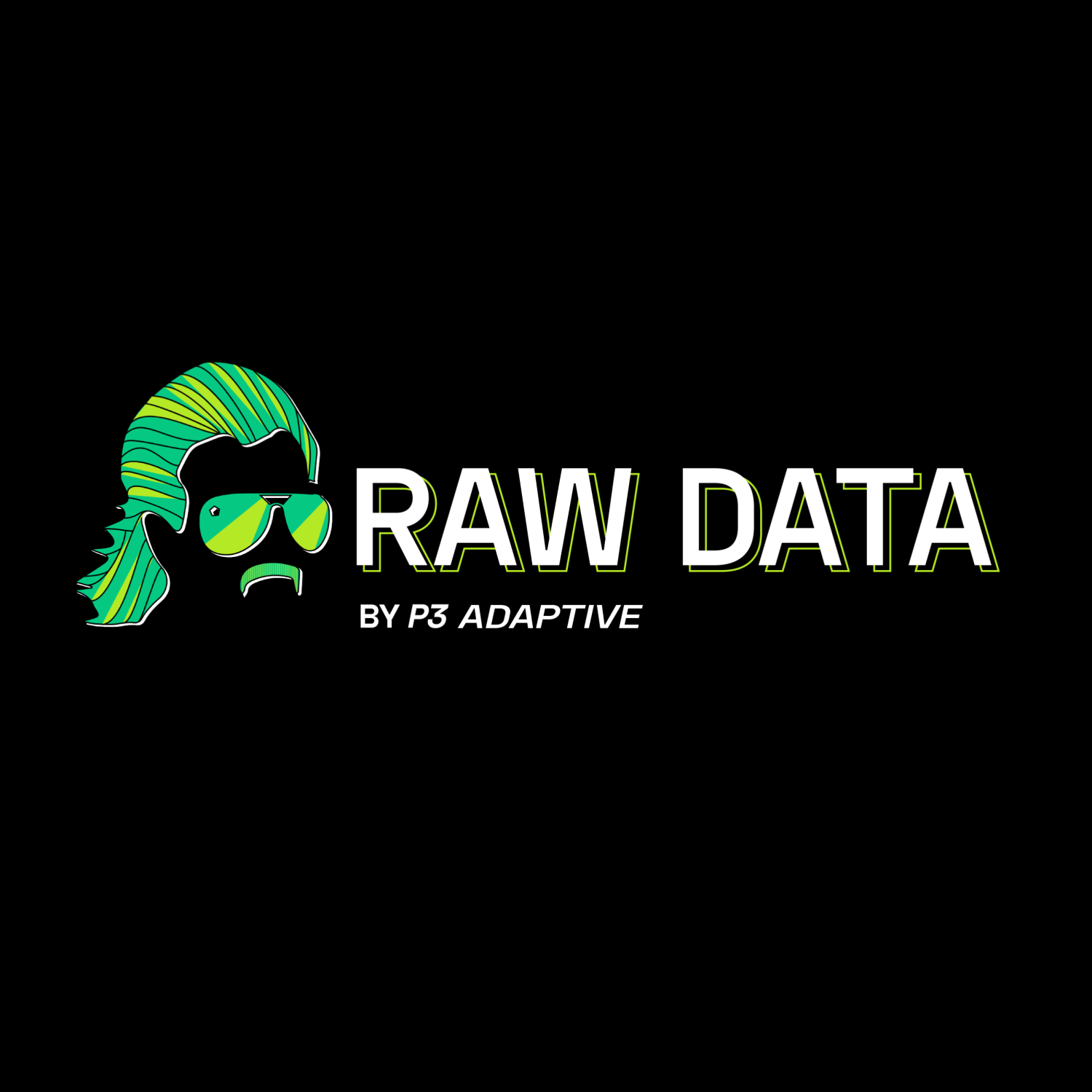
Adjacent and Between: Demystifying Digital Transformation with Power Apps and Power Automate
03.26.24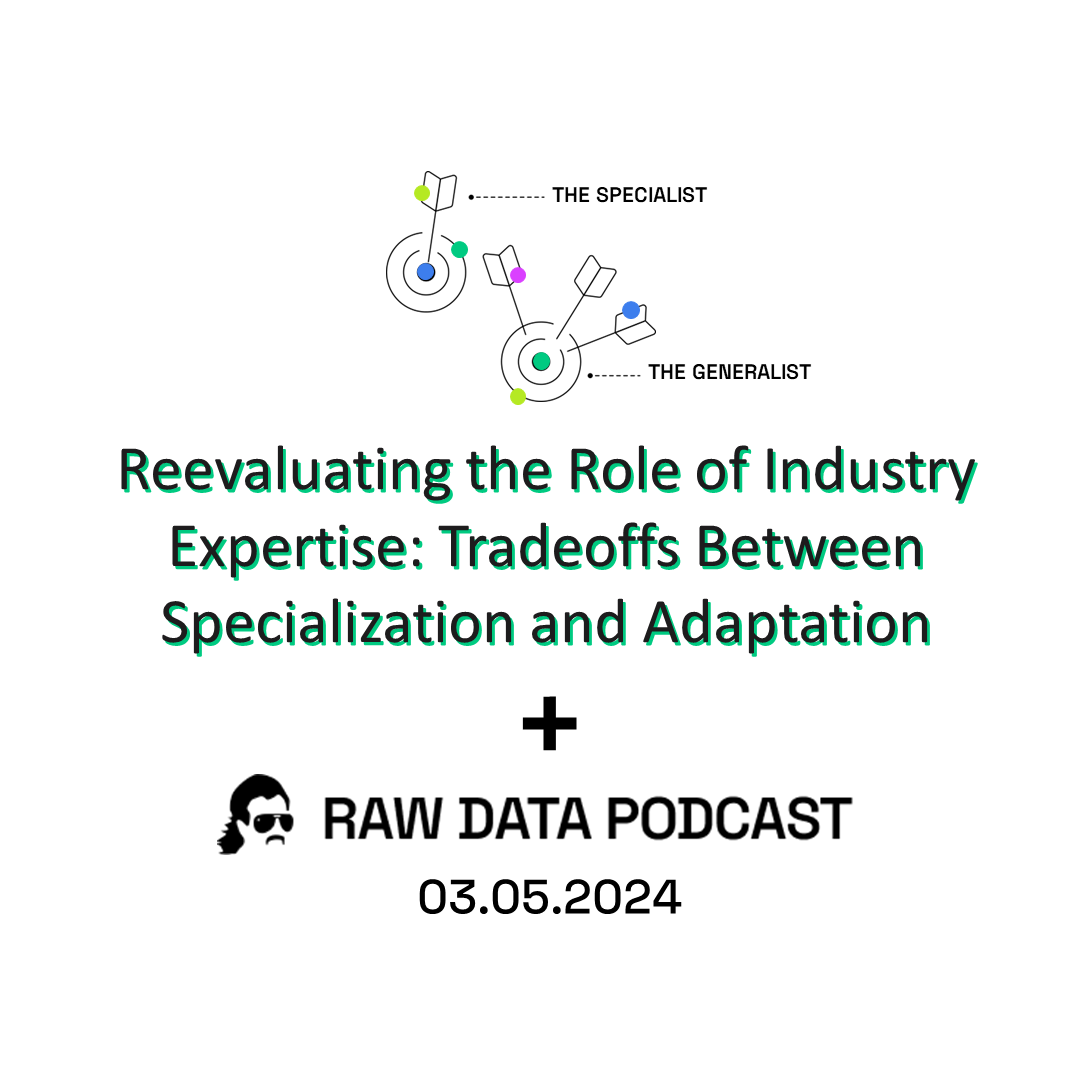
Reevaluating the Role of Industry Expertise: Tradeoffs Between Specialization and Adaptation
03.05.24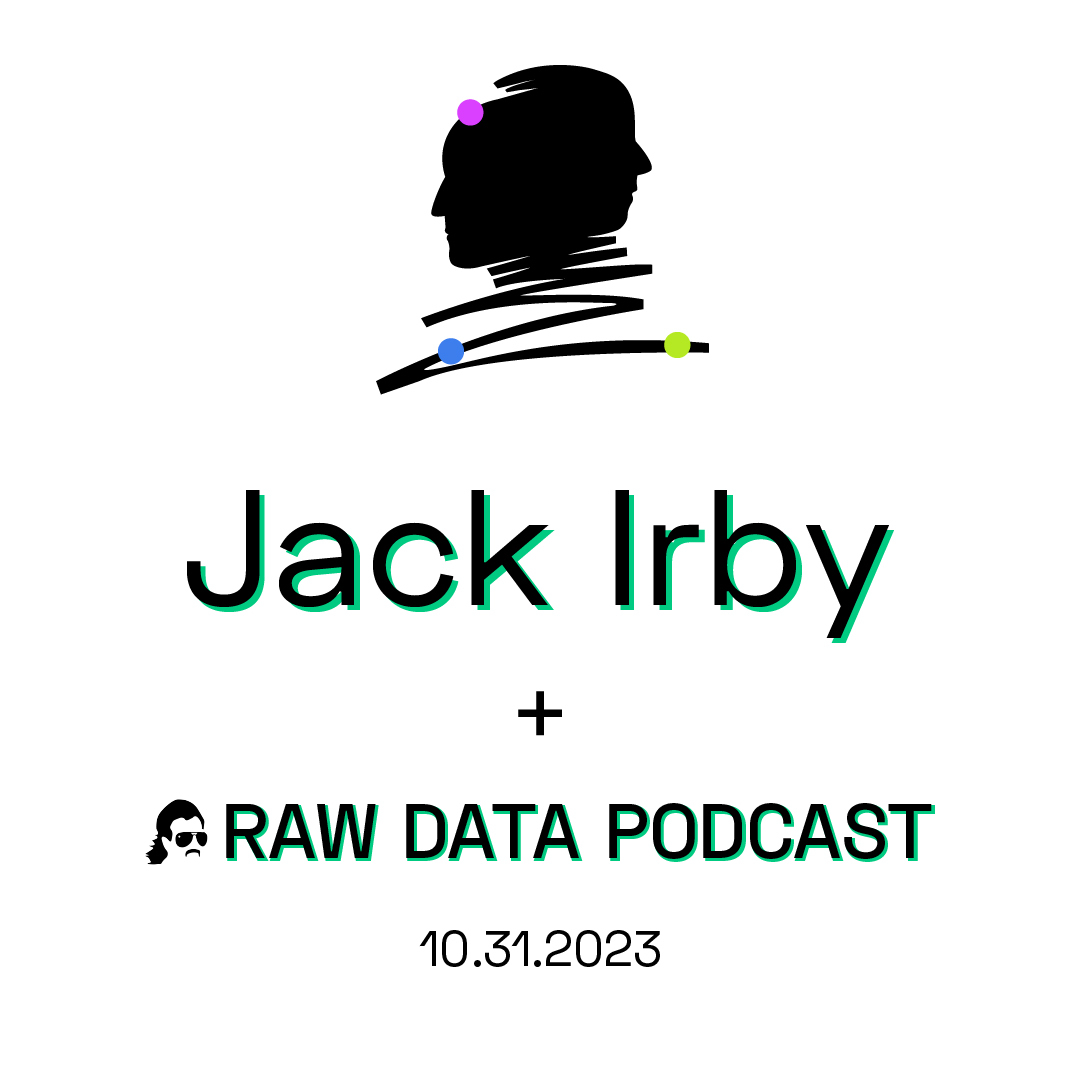
The Fruit of the Electric Grapevine: Industry-Leading Visibility on Limited Resources, w/ Jack Irby
10.31.23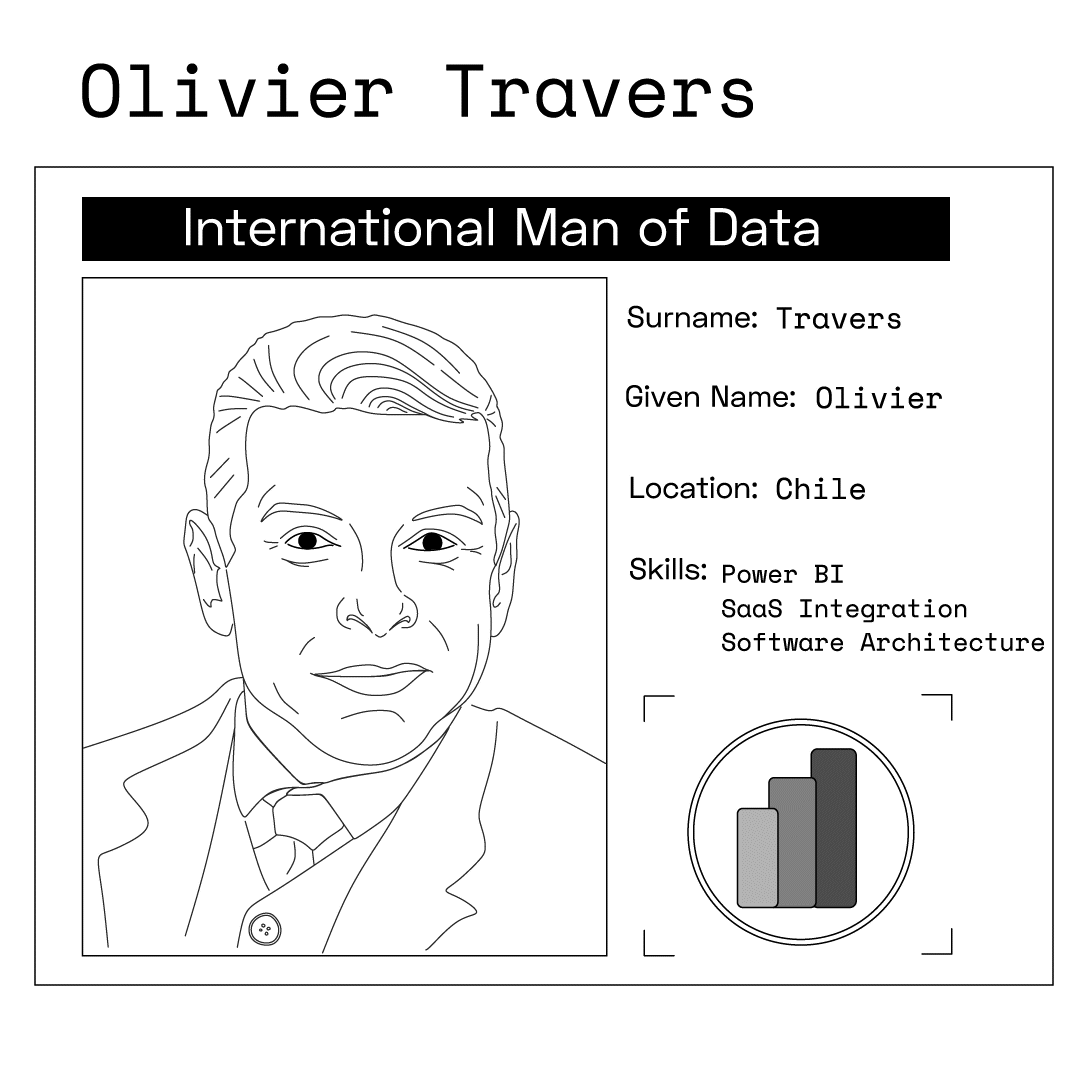
Stay Away from Guadalcanal, w/ Olivier Travers
MS Data Platform International Man Of Mystery
01.04.22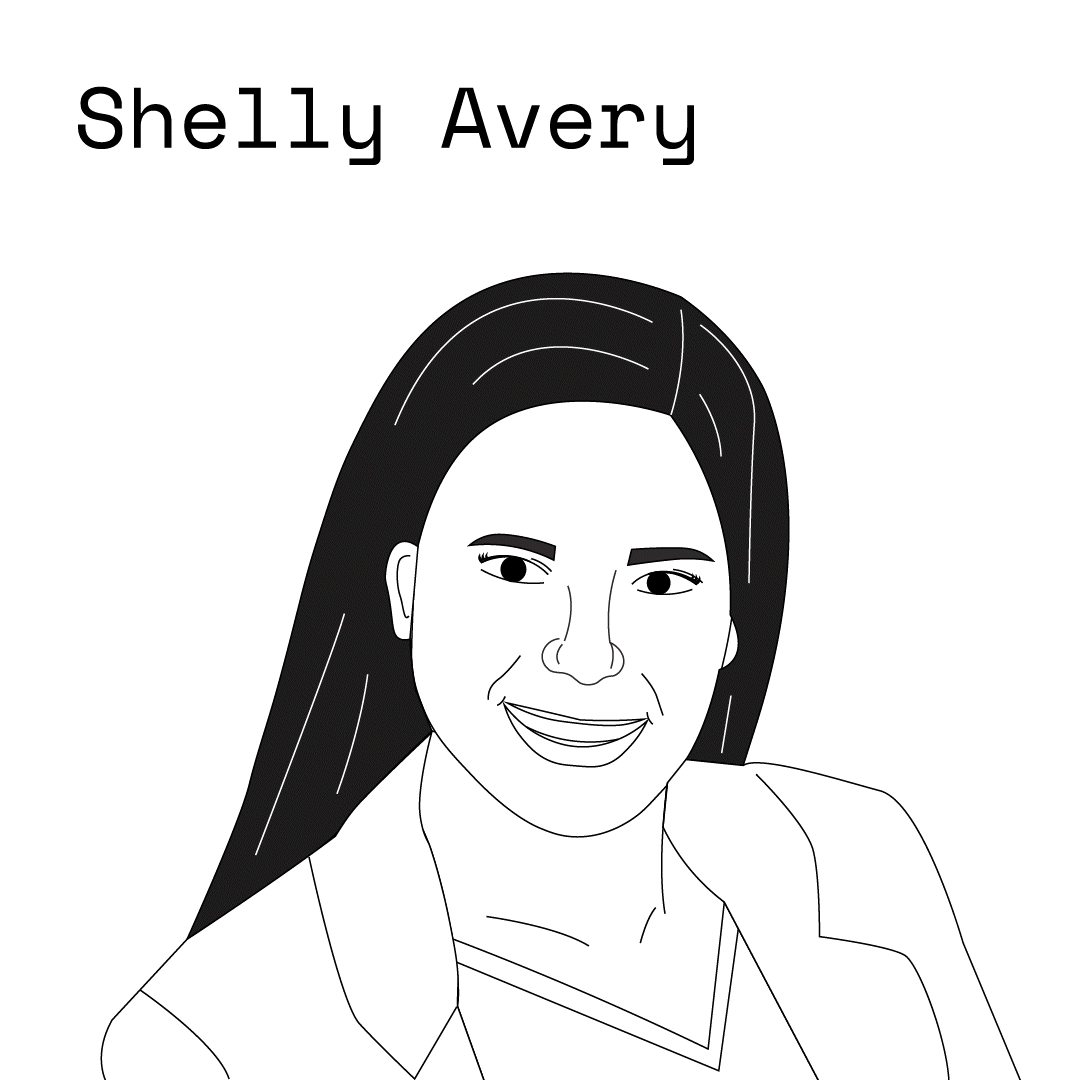
99% is the New Zero, w/ Microsoft Director Shelly Avery
Director-US Healthcare Specialist, Microsoft
09.14.21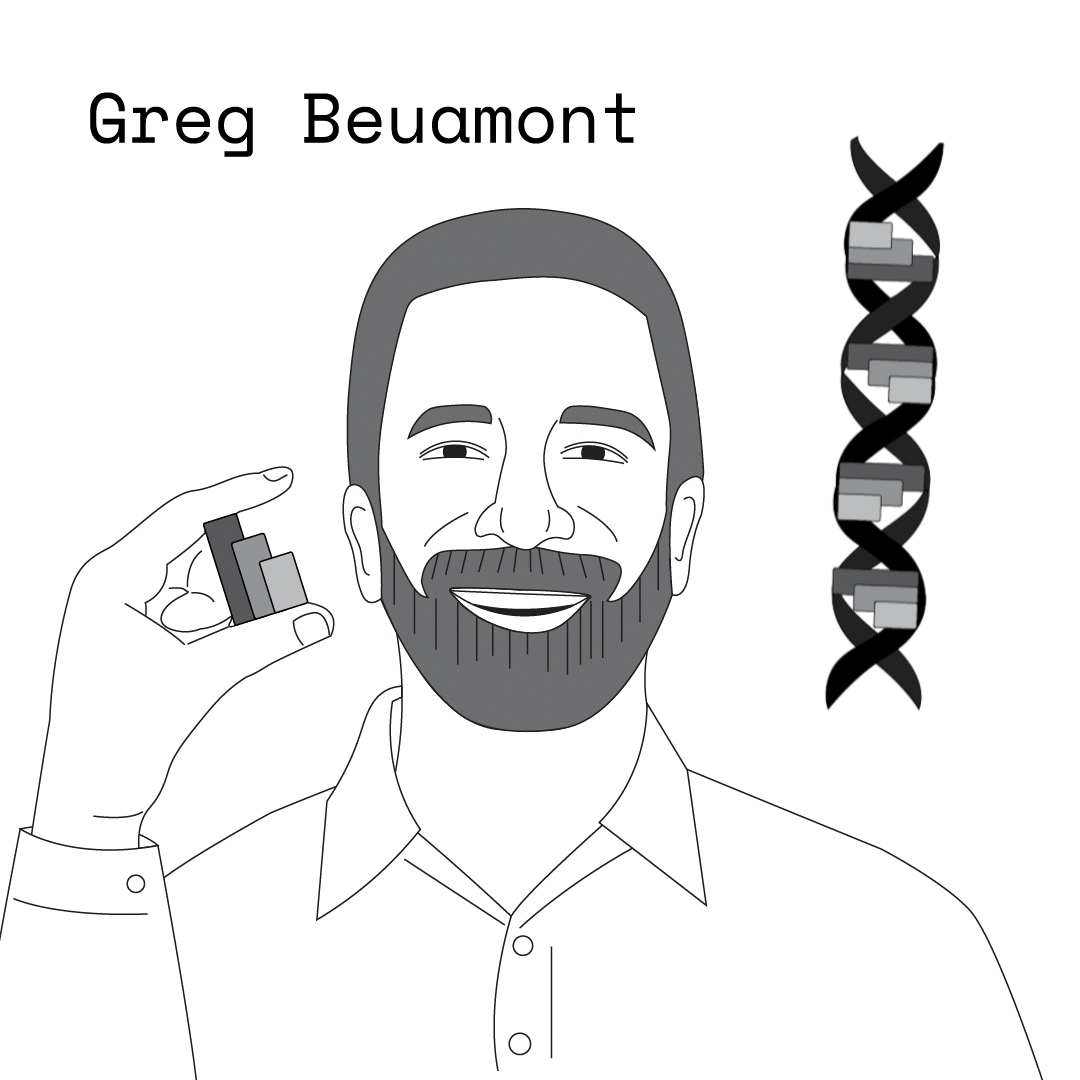
For Those About to DAX, w/ Microsoft’s Greg Beaumont
Senior Business Intelligence Specialist, Microsoft
08.17.21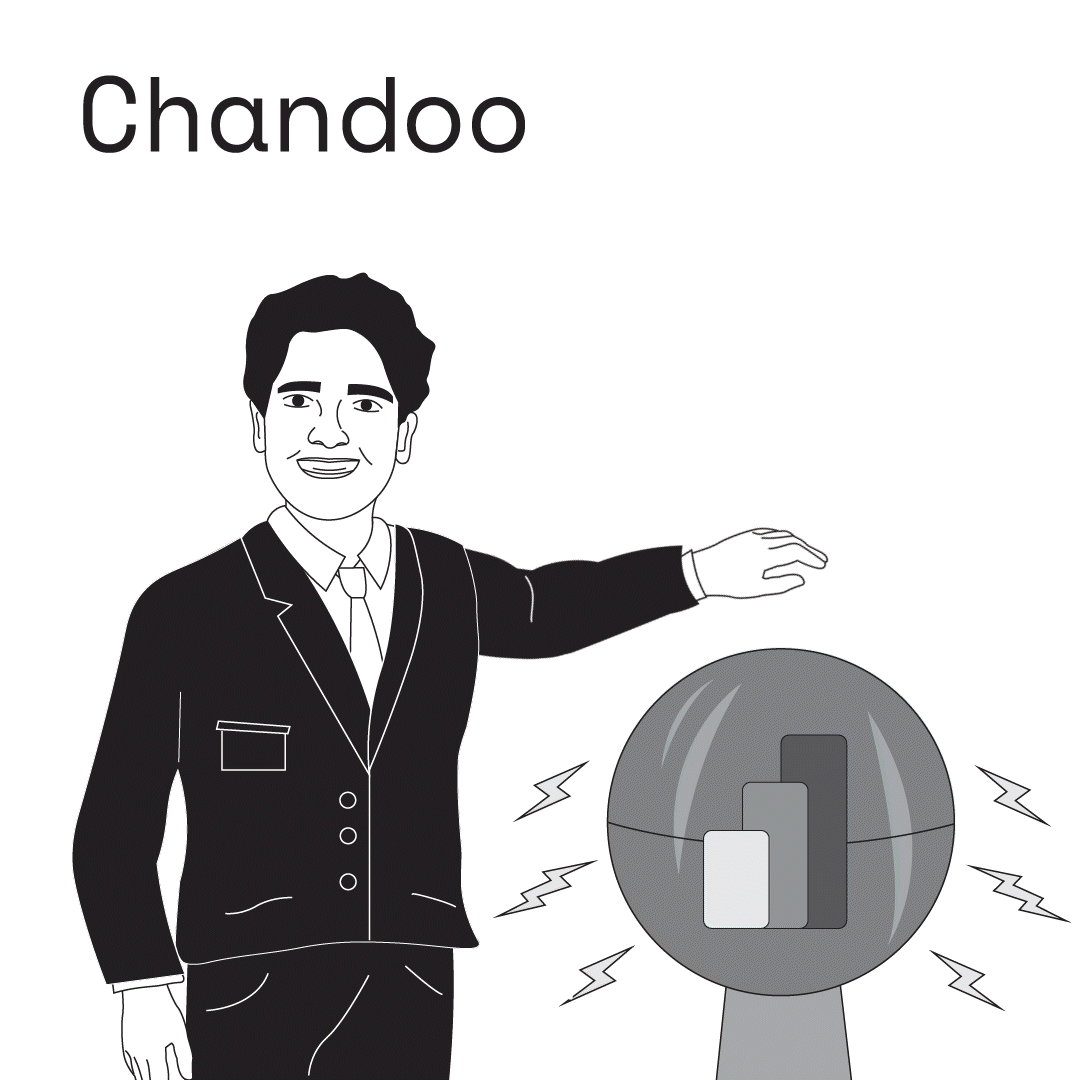
Spreadsheet Celebrities & Power BI Playdates, w/ Chandoo
Hear from the Mozart of Excel Dashboards: Chandoo
08.10.21
The Data Lakehouse: Brick by Brick, w/ Databricks’ Denny Lee
Sr. Staff Developer Advocate, Databricks
08.03.21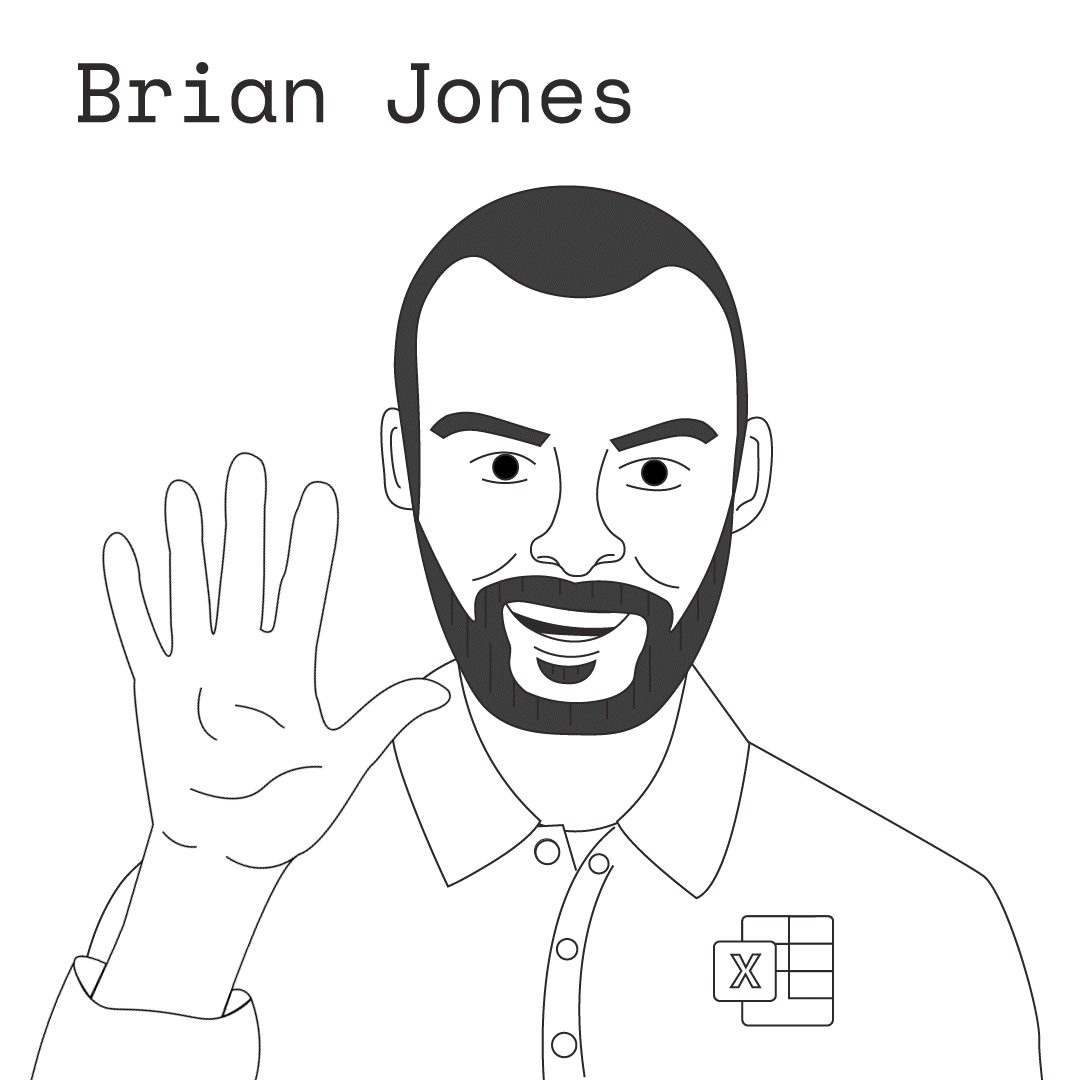
Excel Past/Present/Future, w/ Excel Head of Product Brian Jones
Head of Product, Excel-Microsoft
07.27.21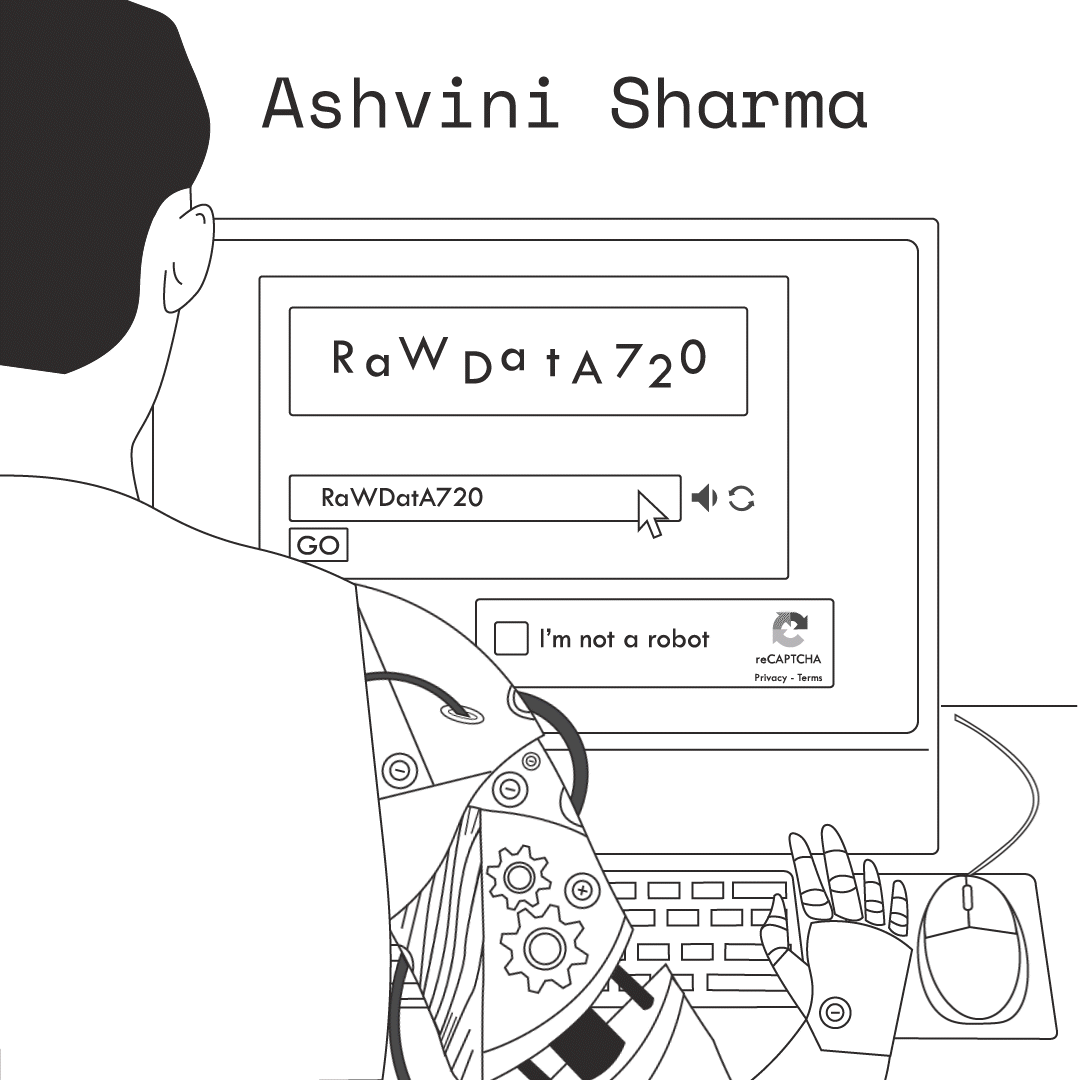
Robotic Process Automation for All, w/ Microsoft’s Ashvini Sharma
Group Program Manager-Power Automate RPA, Microsoft
07.20.21
COVID Basement Racquetball, w/ Microsoft’s Vishal Lodha
Strategic Account Director, Microsoft
06.03.21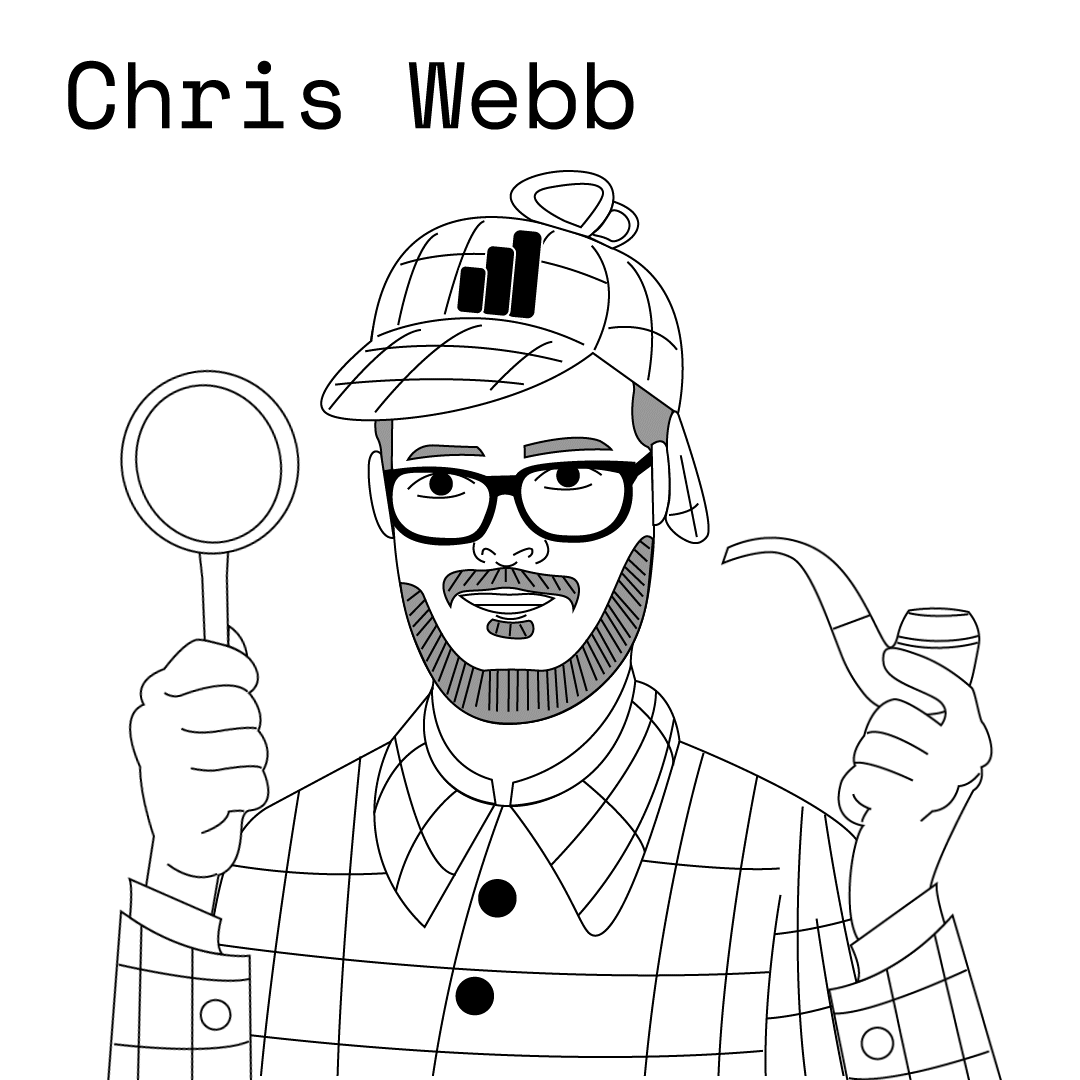
Surfing the Changing Seas of Data, w/ Microsoft’s Chris Webb
Principal Program Manager-Power BI Customer Advisory Team, Microsoft
06.01.21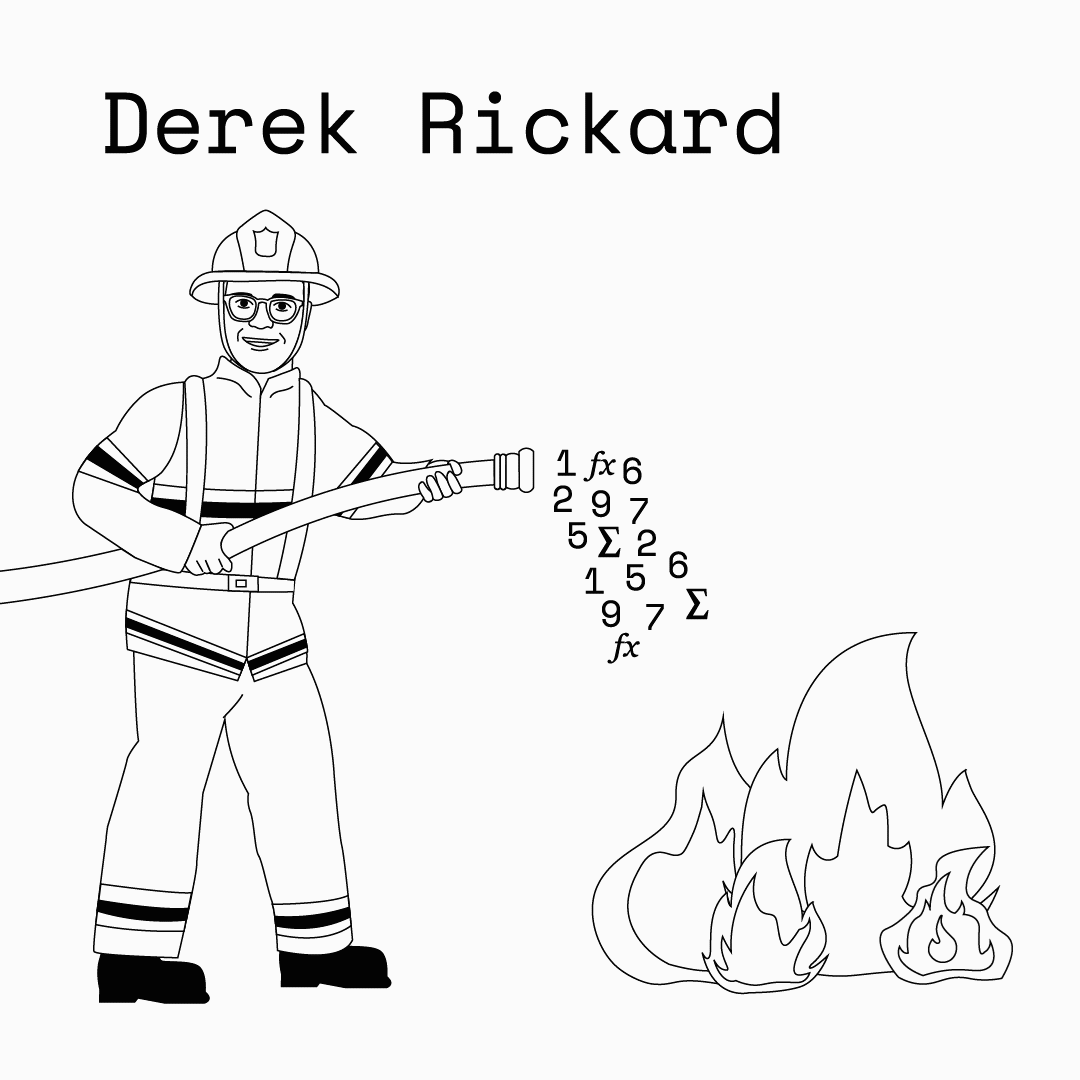
A Different Kind of Data Emergency, w/ Derek Rickard
Chief Data Officer, Emergency Reporting
05.04.21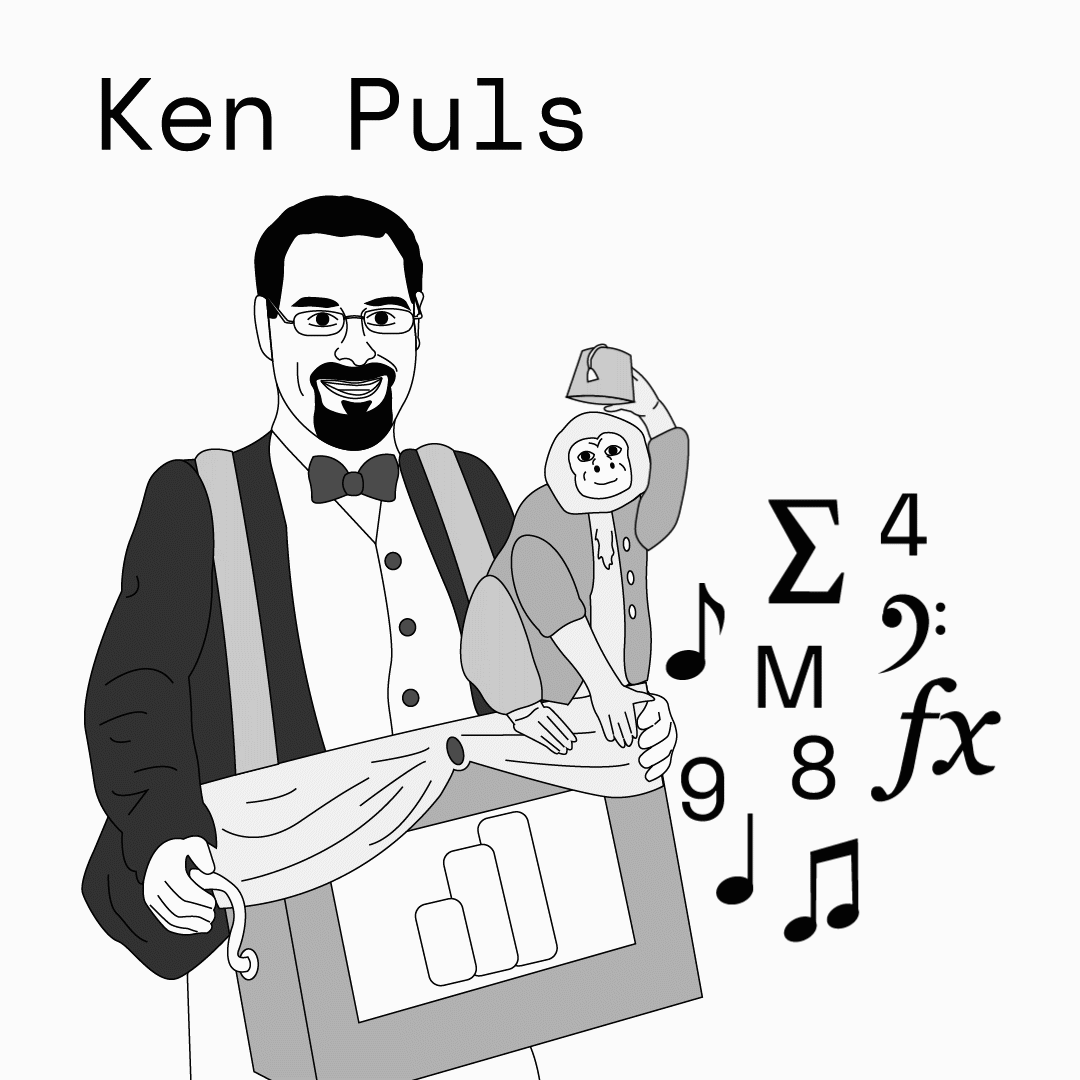
Earth’s Only Hope vs. Alien Excel Invaders, w/ Ken Puls
President and Chief Training Officer, Excelguru Consulting Inc.
04.27.21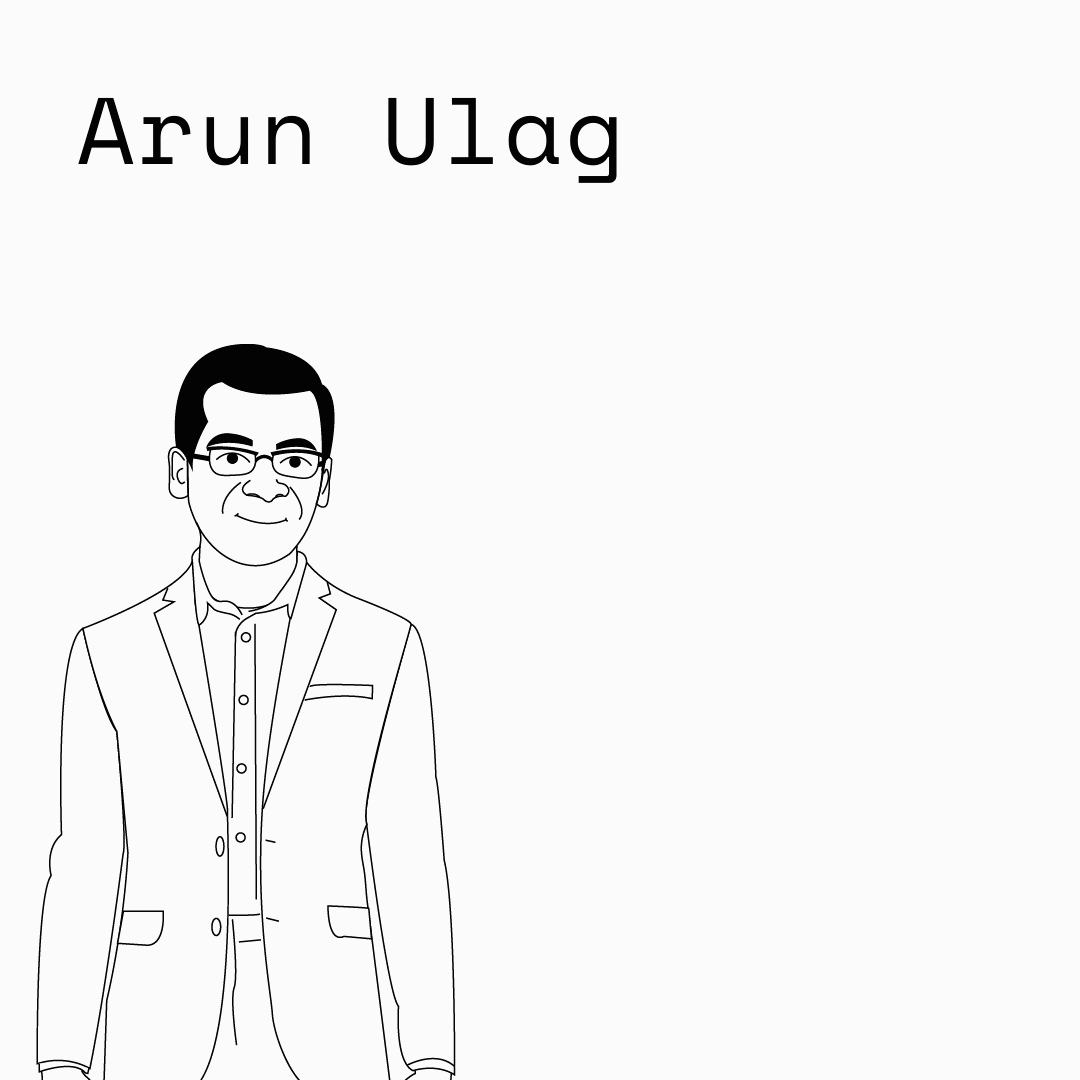
Intelligence Platform is a Cool Name, w/ Microsoft CVP Arun Ulag
Corporate Vice President of the Business Intelligence Platform at Microsoft
04.01.21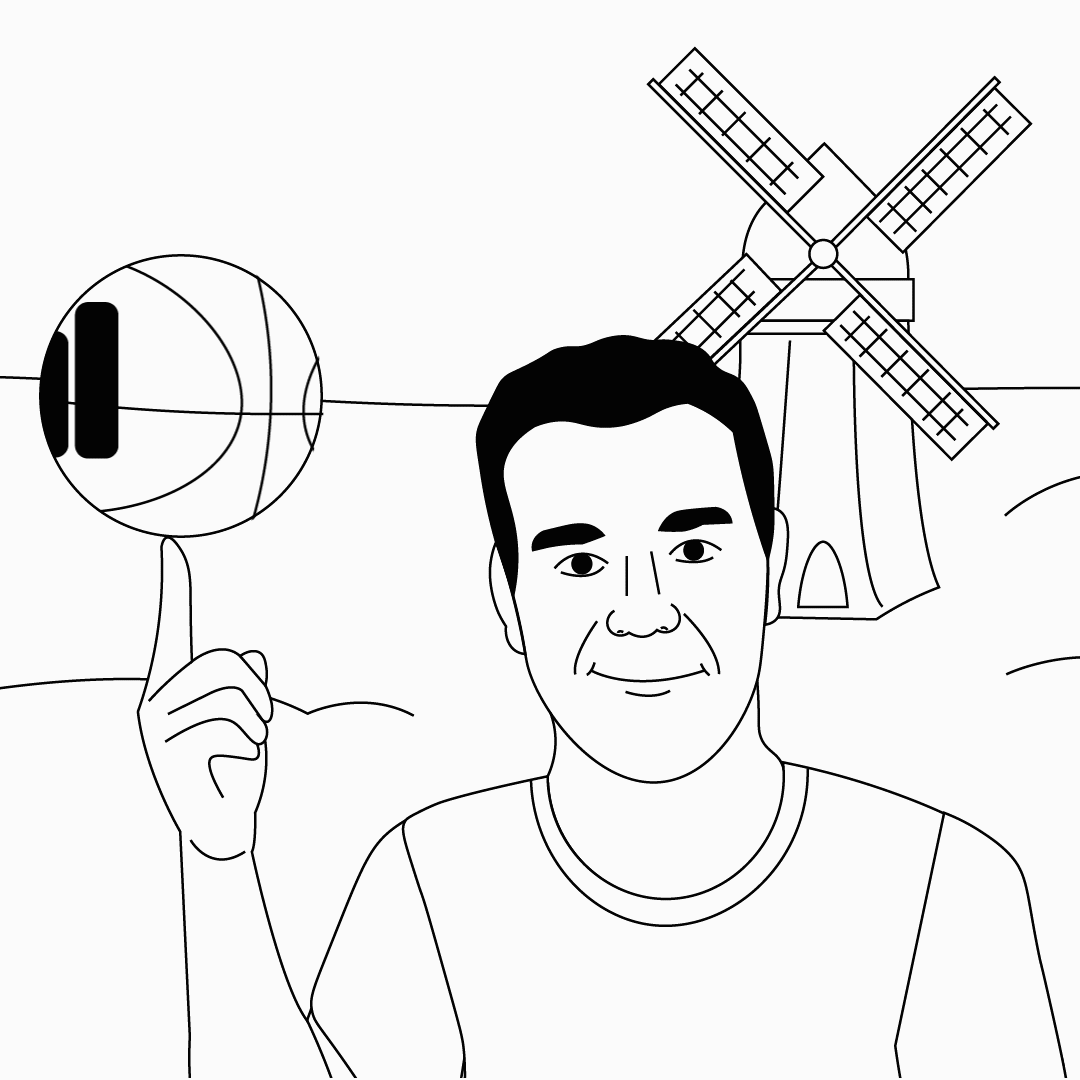
The Dutchman of Data Dunked on Me, w/ Kasper de Jonge
Analytics Advisor and Principal Program Manager-Power BI, Microsoft
03.23.21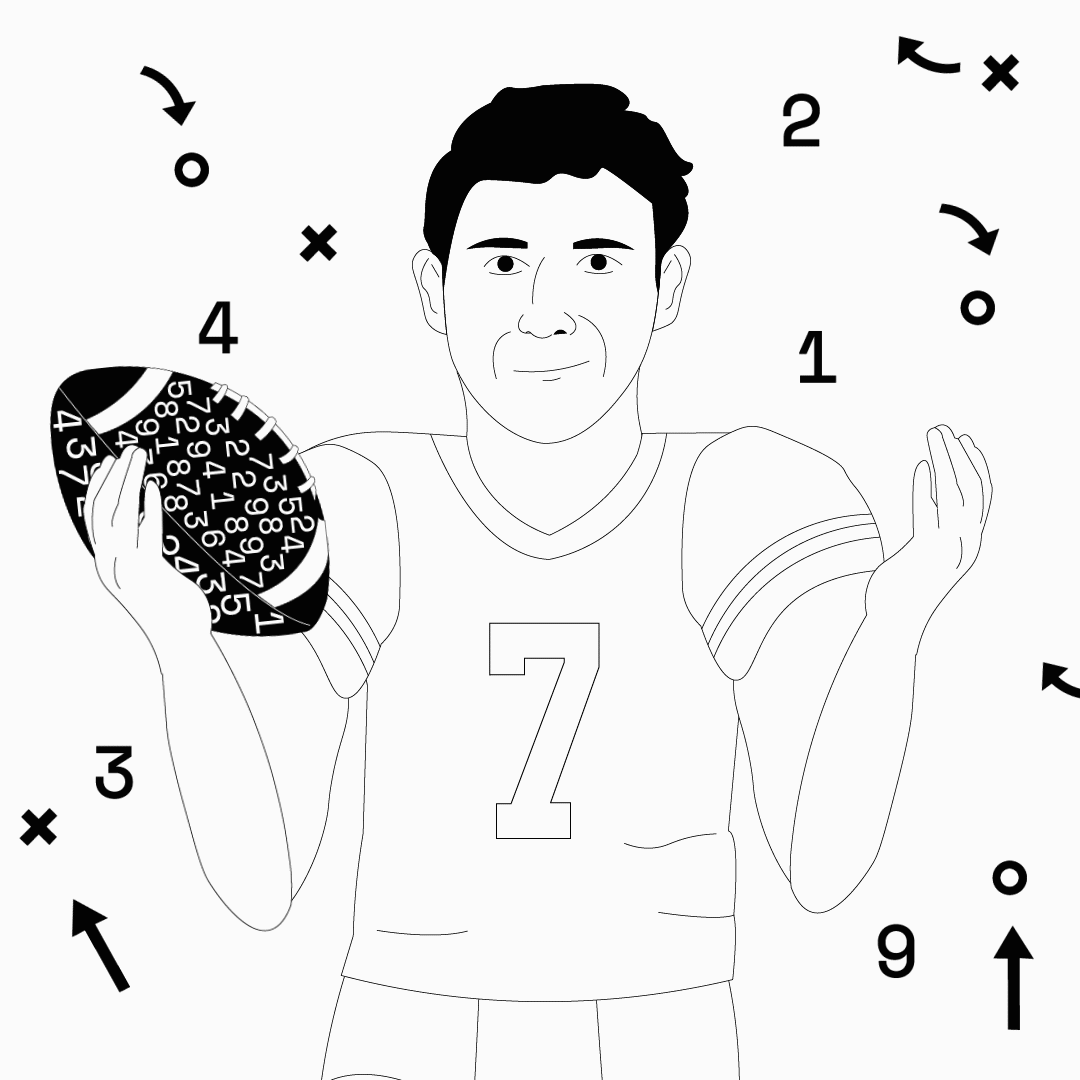
Everyone’s in the Middle, w/ Former NFL QB Hugh Millen
Former NFL Quarterback and Data Nerd
03.09.21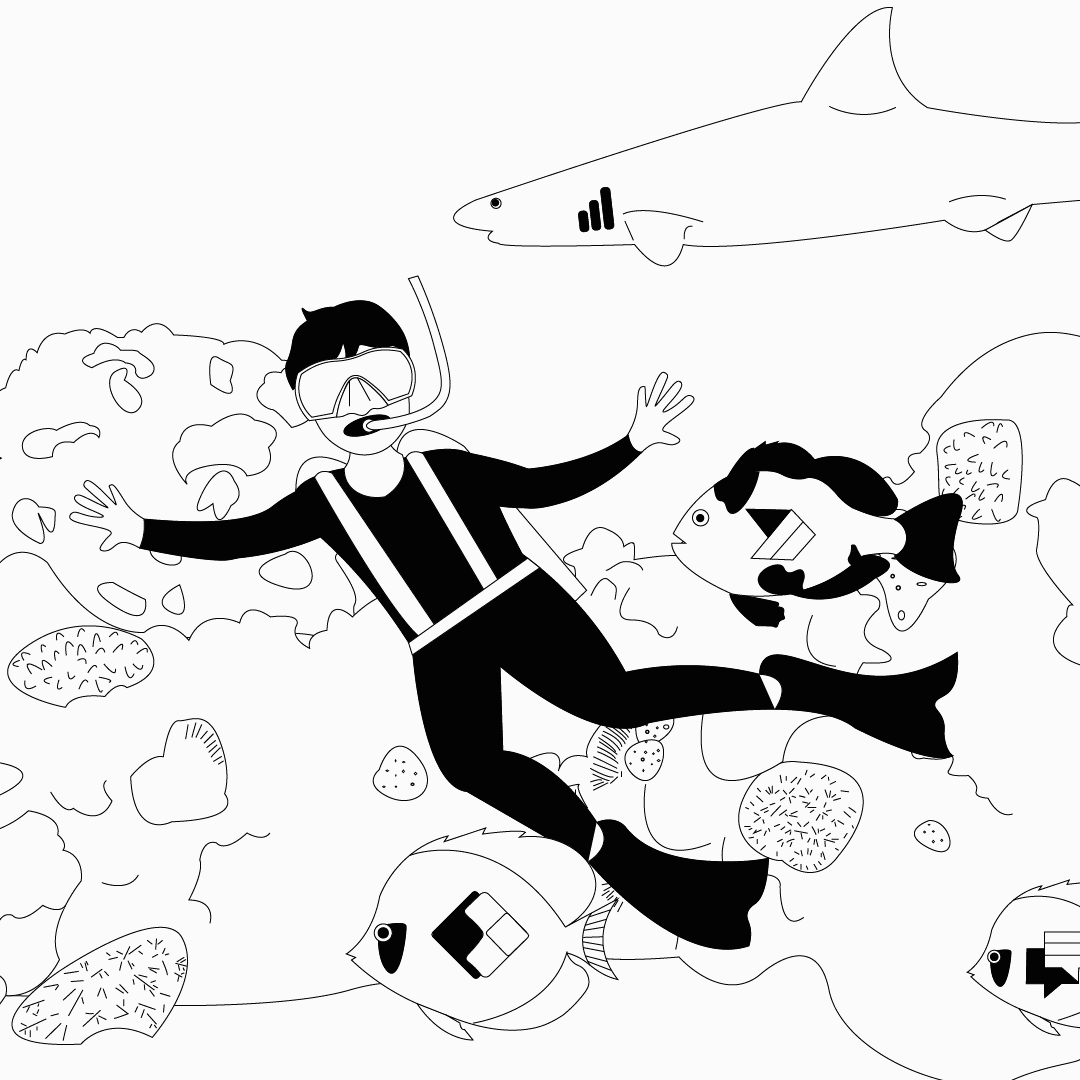
Marine Biology Leads to Power Platforming, w/ Chuck Sterling
Senior Program Manager, Microsoft
02.23.21
Data Chefs Can Come From Anywhere, w/ Gartner’s Lori Rodriguez
Vice President Executive Programs at Gartner
01.26.21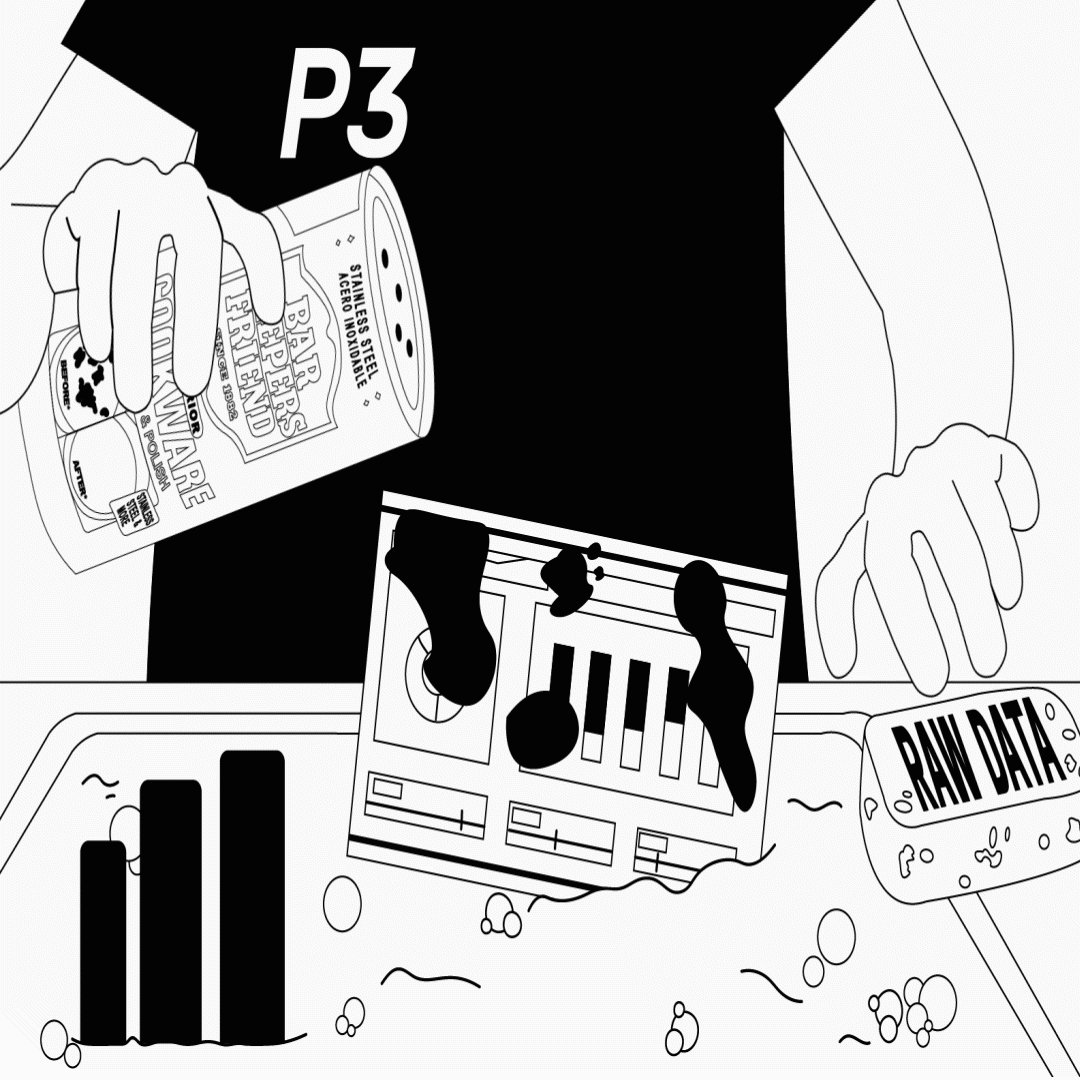
Scrubbing Data & Beating COVID, w/ Matt Selig of Bar Keepers Friend
Exec. Vice President, Chief Financial Officer & Chief Human Resources Officer at SerVaas Labs
01.05.21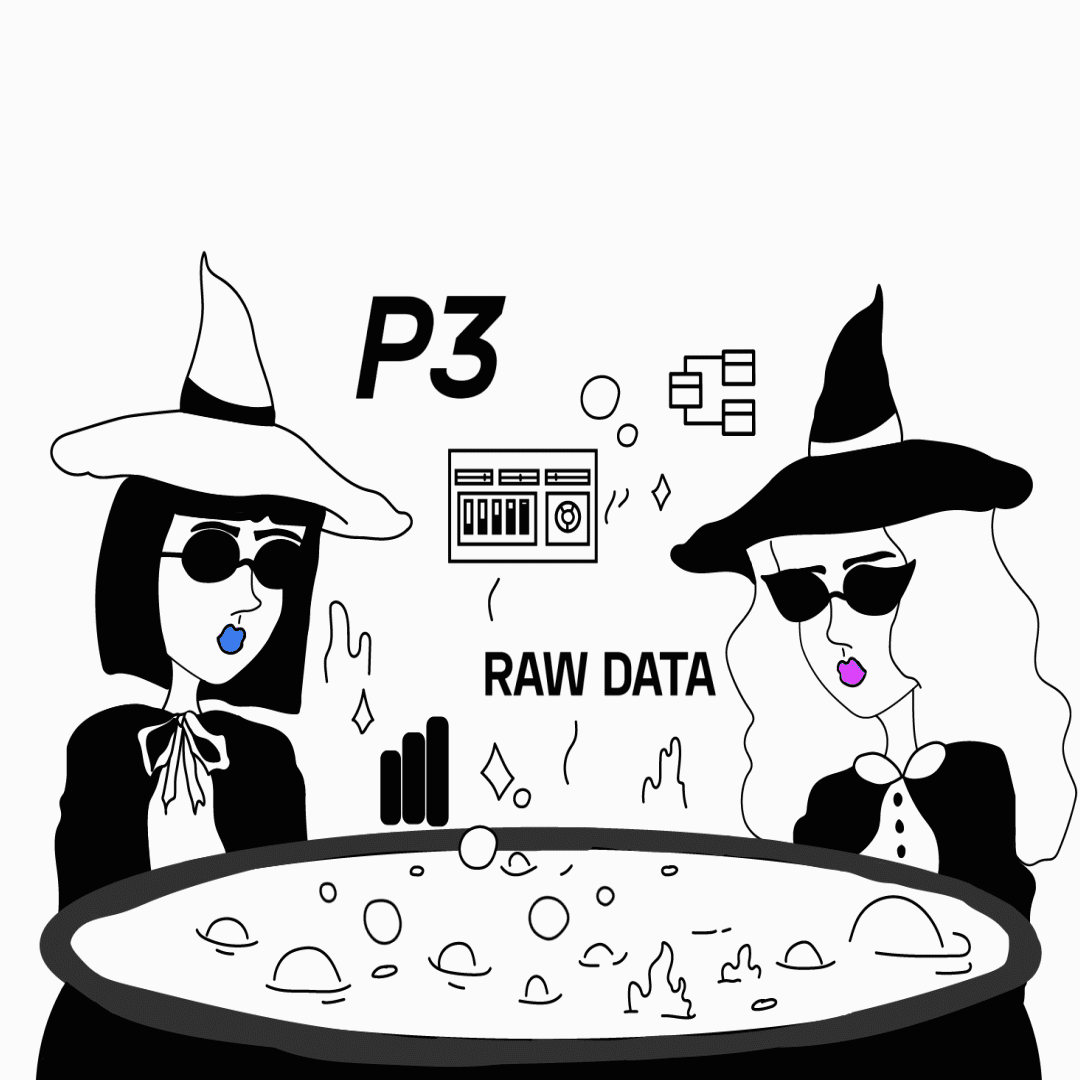
The Data Witches, w/ Shannon Lindsay & Stephanie Bruno
Shannon Lindsay-Microsoft Certified Data and Analytics Professional &
Stephanie Bruno-Associate Director of Informatics at the Elizabeth Glaser Pediatric AIDS Foundation (EGPAF)
12.22.20
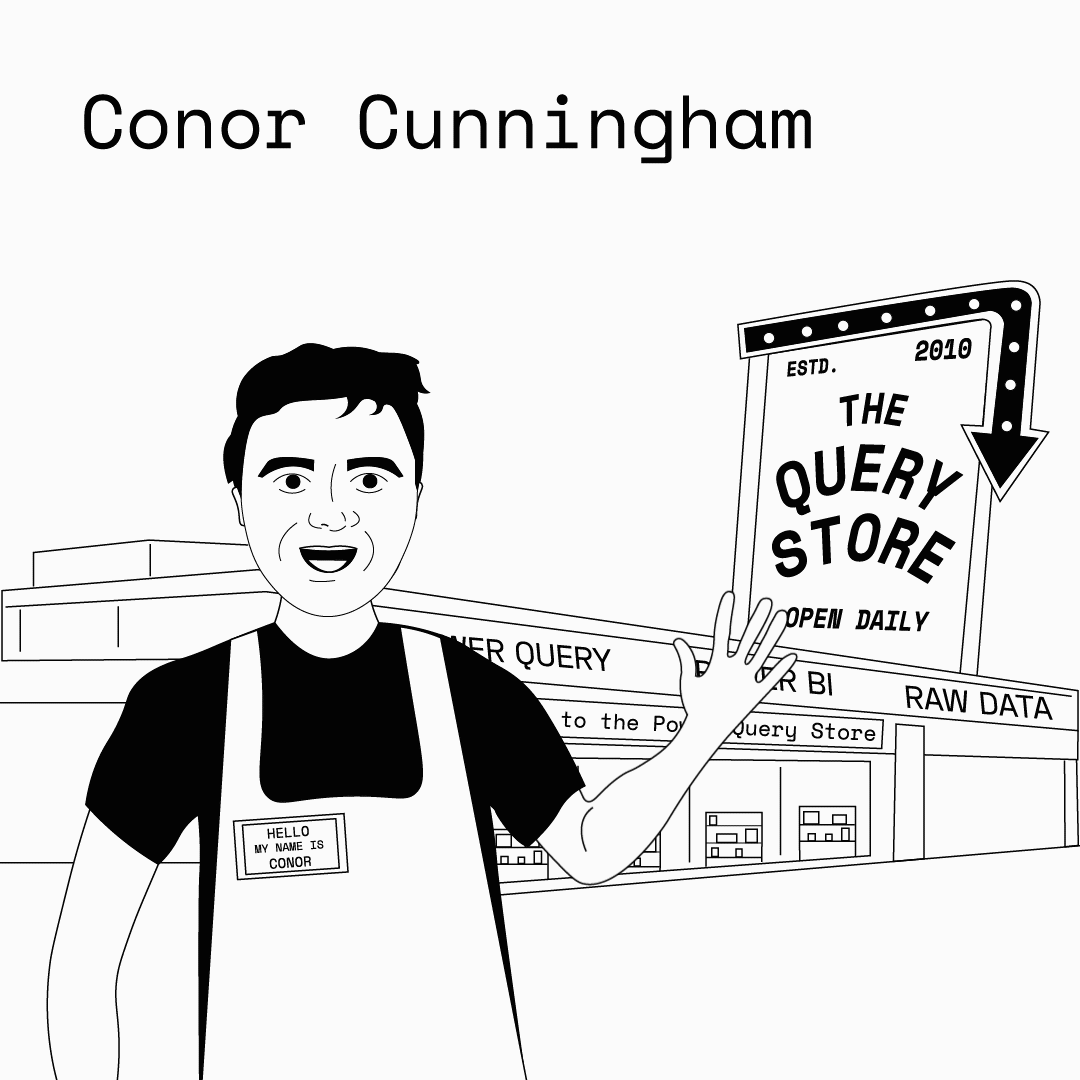
The Query Store’s Open for Biz, w/ Microsoft’s Conor Cunningham
Partner Software Architect, SQL Server Engine-Microsoft
12.15.20One of the World’s Most Amazing Humans, w/ Matt Allington
Power BI Consultant, Trainer, & Microsoft MVP
12.01.20